





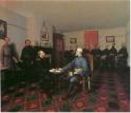











TLW's U.S. Civil War Historyscope |
By T.L. Winslow (TLW), the Historyscoper™ |
© Copyright by T.L. Winslow. All Rights Reserved. |
Original Pub. Date: Oct. 6, 2012. Last Update: Sept. 26, 2024 |










In 1600 English Puritan Samuel Sewall (1652-1730) pub. The Selling of Joseph, against slavery but ambivalent about what to do with blacks, capturing the essence of Am. white racism?; "Liberty is in real value next unto life. None ought to part with it themselves, or deprive others of it, but upon the most mature consideration"; "Man-stealing is an atrocious crime which would introduce among the English settlers people who would remain forever restive and alien"; "There is such a disparity in their conditions, color, hair, that they can never embody with us, and grow up into orderly families to the peopling of the land"; "These Ethiopians, as black as they are, seeing they are the sons of daughters of the first Adam, the brethren and sisters of the last Adam, and the offspring of God, they ought to be treated with a respect agreeable."

The first blacks arrive in the future U.S. one year ahead of the Mayflower? On July 30, 1619 after economic success causes Dale's Code to be relaxed, and the Va. Co. promises settlers the "rights of Englishmen", including a rep. assembly, and new gov. Sir George Yeardley (Eardley) (Yardley) (1587-1627) arrives, the House of Burgesses, the first representative assembly in Am. (gov., six councilors, 22 burgesses elected by property owners, all male) meets in the church in Jamestown and deliberates for five days, "sweating & stewing, and battling flies and mosquitoes"; member Walter Shelley dies from the heat; they discuss Indian relations, church attendance, gambling and drunkness, and tobacco prices; the die is cast for the WASP pattern of democratic capitalism for themselves and chattel slavery for blacks?; they hold a Thanksgiving on the banks of the James River on what later becomes Berkeley Plantation, birthplace of Benjamin Harrison; having exported 10 tons of tobacco by this year, the Jamestown colonists can afford to import their first African (Negro) slaves (which are still called indentured servants?) and women, which arrive on the Treasurer and Dutch man-of-war White Lion (captained by English privateers) from Angola in late Aug.; they were originally captured in North Africa by African Muslims, who enslave 1M Euro whites from 1500-1800, and hold slave auctions in Egypt until 1885; they pay for the "20 and odd Negars" "victuale" (food), and for the 90 women brought by another English ship with 120 lbs. of tobacco for each (5 tons); the blacks are slaves captured from the Portuguese slave ship Juan Bautista en route from Angola to Veracruz (there are already 200K African slaves in the Americas); by the 1640s several of the blacks are listed as landowners, indicating they had attained freedom, but after 1640 they begin to be treated as chattel, and outnumber white indentured servants by the 1670s - by which time their ass is grass and their white owners have the lawnmowers?


In May 1676 29-y.-o. rich spoiled Cambridge U. grad. and recent (1674) immigrant Nathaniel Bacon (1647-76) defies the authority of Va. Gov. Sir William Berkeley (1606-77) by organizing an armed band of "common men" (white and black, many of them debtors eyeing Indian land) vigilantes in a war against the Indian "wolves, tigers, and bears" who prey upon "our harmless and innocent lambs", occupying Bacon's Castle, a colonial house with distinctive decorative end gables; after issuing the Declaration of the People of Virginia on July 30 to gain support, Bacon leads Bacon's Rebellion in colonial Virginia against Berekely's govt., having him arrested and burning Jamestown in Sept.; unfortunately, Bacon dies of swamp fever in Oct., allowing Berkeley to regain control and subdue the rebels, hanging 23 of them and confiscating several estates; when Berkeley captures Bacon's closest lieutenant, exclaiming, "I am more glad to see you than any man in Virginia; Mr. Drummond, you shall be hanged in half an hour", this and other excesses cause his recall to England, and a royal commission makes pacification treaties with the wronged Indians, granting them tiny reservations which survive to modern times; Virginia is so weakened that a British military force is dispatched to protect it; the rebellion causes the supply of indentured servants to Chesapeake Bay to dry up, causing a systematic transition to African slaves, helped by distrust of white indentured servants?

In 1754 Quaker preacher John Woolman (1720-72) pub. Some Considerations on the Keeping of Negroes, one of the first abolitionist documents in North Am., convincing many Quakers to abandon slaveholding.

As white Americans fight to create a new homeland for their "race" on stolen Amerindian land, a German scientist lays the theoretical basis for the original sin of white supremacy so that white will always be right theoretically no matter how the facts look? In 1776 German biologist Johann Friedrich Blumenbach (1752-1840) pub. De Generis Humani Varietate Nativa Liber (On the Natural Varieties of Humanity), which lays the foundation for the science of anthropology; taking it as given that only God can create them, he defines the four "races" of mankind as Caucasian, Mongolian, American Indian, and Ethiopian (African); in 1795 he adds Malayan; of course the punch line is that white is right and black is bad - and for the in-between colors, welcome to Progressive.com, Manwich, Manwich, we adore thee?




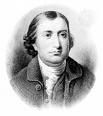











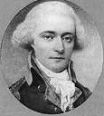
On May 25, 1787 the U.S. Constitutional Convention opens in Independence Hall in Philadelphia, Penn. with 29 delegates from nine states (average age 42) (swells to 55 from 12 states by the end, avg. age 44 - all except R.I.) (27 college grads) (34 lawyers) (over half Am. Rev. War vets), originally intending to rewrite the Articles of Confederation but deciding to write a new constitution instead; John Adams and Thomas Jefferson are absent because they are serving abroad; George Washington (nominated by Robert Morris and unanimously chosen pres.) stays in Philly as a guest of delegate Robert Morris, and doesn't take part in debates, although he consults in private; Alexander Hamilton, a prime mover in getting the convention called, attends irregularly and makes unpersuasive arguments?; James Madison's voice is so weak that no one can hear him?; Ben Franklin is too weak to stand and make a speech, asking other delegates to read for him?; Patrick Henry of Va. "smelt a rat" and refuses to attend (along with three other delegates), gets James Monroe to make several lengthy arguments against ratification, and later demands that it be investigated as a conspiracy, but then changes his mind and supports both the Constitution and the Bill of Rights; the windows are kept shut allegedly to keep out horseflies but actually to preserve secrecy?; Ben Franklin (81) is the oldest delegate, and he travels in a sedan chair brought from Paris?; the youngest delegate is Jonathan Dayton (1760-1824) of N.J.; the convention delgates are divided between federalists (strong "energetic" central govt.), inc. George Washington and James Madison of Va., Alexander Hamilton and Gouverneur Morris of N.Y., James Wilson (1742-98) of Penn., Rufus King (1755-1827) of Mass., and indigo grower Charles Cotesworth Pinckney (1746-1825) of S.C., and states' rightsers, incl. William Paterson (1745-1806) of N.J., John Dickinson (1732-1808) of Del. (the dude who was refused to sign the DOI but came around late after being appointed brig.-gen. in the Continental Army as a joke, resigning, then moping around for two years), Luther Martin (1748-1826) of Md., and John Ten Eyck Lansing Jr. (1754-1829) and Robert Yates (1738-1801) of N.Y. (who pull N.Y. out of the convention and never sign the constitution); on May 29 big-state men Edmund Jennings Randolph (1753-1813) and James Madison (1751-1836) of Va. introduce the Virginia Plan of proportional representation in Congress; on June 15 small-state man William Paterson (1745-1806) of N.J. counters with the New Jersey Plan of equal numbers of members for each state; Hugh Williamson (1735-1819) of N.C. plays a key role in the large vs. small state debate; on June 18 Alexander Hamilton introduces a plan for a strong executive elected for life, but it is rejected, and he walks out with the New York delegation because of their states' rights principles; on June 28 Benjamin Franklin rises to his feet and leads a prayer, which causes the members to quit stonewalling and begin making progress, causing Washington to call it a miracle (if it weren't for the Christian faith, there would have been no U.S. Constitution?); too bad for blacks, on July 12 very Christian James Madison introduces the Three-Fifths Compromise, counting three-fifths of a state's slave pop. in apportioning representation; on July 16 self-taught lawyer Roger Sherman (1721-93) and state superior court judge Oliver Ellsworth (1745-1807) of medium-state Conn. introduce the Great (Connecticut) Compromise, setting up the House of Representatives and the Senate based on the Va. and N.J. plans, respectively, and incorporating the three-fifths plan; Randolph acts like the big man and stubbornly opposes a compromise; Madison's Notes of the Debates in the Federal Convention cause him to become known as the Father of the Constitution, and he observes that the decision to make the chief executive a single person causes "considerable pause", with Va. planter ("the gentleman revolutionary") ("the reluctant statesman") George Mason (1725-92), who worries about it becoming a "fetus of monarchy".


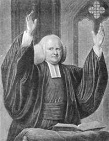
In June 1787 English Unitarian MP William Smith (1756-1835) (grandfather of Florence Nightingale) becomes one of the first to advocate an end to the slave trade, becoming friends with 4'11" William Wilberforce (1759-1833), MP since 1780 (a shrimp who becomes a whale when giving speeches, according to James Boswell), who is converted to Christianity by "evangelical Dr. Johnson" abolitionist mathematician (7th Lucasian prof. of mathematics and pres. of Queens' College, Cambridge U.) Isaac Milner (1750-1820), then meets former slave trader and clergyman John Newton (1725-1807), author of "Amazing Grace", and makes a tour of England reading the Bible regularly, becoming convinced that slavery is wrong and devoting his life to ending it, even though virtually every businessman in England makes some income from it; his cause of "the abolition of the slave trade and the reformation of manners" attracts Grenville Sharp, Zachary Macaulay, Thomas Clarkson, Sir William Dolben et al., and they research the necessary legislation; each year Wilberforce makes a motion to abolish slavery, which is handily defeated despite his eloquent and moving speeches, and he decides to go directly to the people with his case, causing Josiah Wedgewood to design the black-yellow Jasper Wedgewood Slave Medallion, a cameo depicting a slave kneeling and crying "Am I not a man and a brother?", and poet William Cowper next year to write The Negro's Complaint; a boycott of slave-produced sugar gains a following of 300K across England; 519 petitions are brought to Congress, and in 1792 it finally relents and passes Wilberforce's motion, after adding the word "gradually"; too bad, the French Rev. and the West Indies slave revolts turn Parliament against him, and they flip-flop, and final victory takes until 1807 - may the force be with you?


In 1793 while visiting from New Haven, Conn., Am. nailmaker Eli Whitney (1765-1825) invents the little ole Cotton Gin (which combs out them pesky seeds) at Nathaniel Greene's Mulberry Cove Plantation near Savannah, Ga., applies for a patent on June 20, and is granted one on Mar. 14, 1794, but it is so easily pirated that he never gets paid much; 800K+ black slaves are imported to the cotton-producing regions in the U.S. South between this year and 1860, and cotton becomes the South's leading crop, with Savannah the chief cotton port.
On Mar. 16, 1802 the U.S. Military Academy (USMA) at West Point, N.Y. is authorized by Congress; it officially opens on July 4; later, when they can't find dark material for uniforms they end up using gray, causing the "plebes" (1st-year students) to become known as the Long Gray Line.

In 1802 Edinburgh-born Sir Walter Scott (1771-1832) (first major historical novelist) pub. Ivanhoe, about 13th cent. knights incl. Cedric the Saxon; Rebecca and Lady Rowena; coins the term "freelance"; makes the name Cedric (OE "war leader") popular in Britain; Mark Twain later blames it for starting the U.S. Civil War by glorifying outmoded ideals of rank and privilege.
In 1807 the U.S. Congress bans the importation of slaves beginning Jan. 1, 1808; the U.S. now supplies 60% of Britain's cotton; on Feb. 4, 1807 (Wed.) after a month-long fight, the English House of Lords passes William Wilberforce's Abolition of the Slave Trade Act, followed by the Commons on Feb. 22 by 283-16 (as Wilberforce sits in his chair weeping?), but the law has no teeth, and the light fines and nonexistent jail prospects make scofflaws out of ship captains, who often chuck slaves overboard to avoid paying; Wilberforce spends the next 18 years of his career in the House of Commons fighting for the total emancipation of existing slaves - you can't flag the king, or, illegal use of a hand truck?
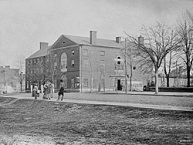
In 1815 the red brick Old Brick Capitol on Jenkins Hill (E slope of Capitol Hill) at 1st and A Sts., NE in Washington, D.C. is founded out of Stelle's Hotel (built 1800) as the temporary U.S. Capitol (until 1819); during the U.S. Civil War of 1861-5 it becomes the Old Capitol Prison; in 1865 it houses Lincoln's suspected assassins; in 1867 it is purchased by U.S. sgt.-at-arms George T. Brown, who turns it into three rowhouses called Trumbull's Row; in 1929 it is demolished to make way for U.S. Supreme Court Bldg.

In 1817 Capt. James Riley (1777-1840) pub. Sufferings in Africa (Authentic Narrative of the Loss of the American Brig Commerce by the Late Master and Supercargo James Riley), about how his U.S. merchant ship Commerce was shipwrecked off the coast of Western Sahara in Aug. 1815, and him and the crew captured by black Sahrawi natives, who kept them as white slaves, horribly mistreating them incl. forcing them to drink their own and camel urine; freaks out Abraham Lincoln, turning him against black slavery, causing him to claim it along with the Bible and Pilgrim's Progress as the most influential books of his life.

On Mar. 3, 1820 the Missouri Compromise, drafted by U.S. sens. William Pinkney et al. approves Missouri's admission as a slave state, then divides future U.S. states into slave and free along the Mason-Dixon Line, which is extended from the Penn. border down the Ohio River to the Mississippi River at 36 deg. 30 min. N lat. (Missouri's S boundary); on Mar. 15 "Pine Tree State" Maine is admitted as the 23rd U.S. state, but Missouri must wait until next year; handsome Kentucky Rep. Henry Clay (1777-1852) becomes known as the Great Compromiser; Thomas Jefferson writes the soundbyte that the resurgence of the slavery issue is "Like a fire bell in the night. This momentous question awakened and filled me with terror. I considered it at once as the knell of the Union"; those against the expansion of slavery are often really against the introduction of blacks into all-white states, incl. Abraham Lincoln?

In 1823 William Smith (1756-1835) and Zachary Macaulay (1768-1838) found the Anti-Slavery Society (London Society for the Abolition of Slavery in Our Colonies) in England, with Macaulay amassing huge volumes of evidence to use in the battle.


In 1825 6'2" blue-eyed abolitionist anti-Mason Charles Grandison Finney (1792-1875), ordained a Presbyterian minister in 1824 begins a 7-year series of "repent-and-be-saved" revivals in Oneida County, N.Y., pioneering citywide campaigns and gaining nat. fame as "America's foremost revivalist", converting 500K+ while preaching against slavery. Also in 1825 William Henry Furness (1802-96) of Boston becomes pastor of the First Unitarian Church in Philadelphia (until 1875), which becomes a hot spot for abolitionists.


On Oct. 28, 1830 after saving $350 to purchase his freedom and then being told the price had increased to $1K, black slave Rev. Josiah Henson (1789-1883) escapes with his wife and four children from slaveowner "Mr. Amos R." in Daviess County, Ky., rowing aross the Niagara River from Buffalo to Canada, then to the underground railroad mecca of Kent County, Ontario; in 1833 when Canada officially abolishes slavery he settles S of the Sydenham River near Dresden, Ont., and establishes the 200-acre British-Am. Inst. for escaped slaves in 1841; Harriet Beecher Stowe (1811-96) reads The Life of Josiah Henson, Formerly a Slave, Now an Inhabitant of Canada, Narrated by Himself, pub. by the Anti-Slavery Society of Boston, Mass. in 1849, invites Henson to her home in Andover, Mass., and uses him as the basis of her 1852 world-shaking bestseller Uncle Tom's Cabin, which takes on the horrible wave of hate afflicting black-skin-hating whites that turns them into devils.
On Dec. 16, 1830 after being hired by former Lexington, Ky. horse trainer Denton Offutt to work at his gen. store in New Salem, Ill., 21-y.-o. Abraham Lincoln helps set the value of a stray mare, and walks several mi. to return change to a customer he overcharged, earning the nickname "Honest Abe" - as the pressure builds, who will remain in the fight for the title, and whose dream will come to an end?


On Jan. 1, 1831 Boston, Mass. abolitionists William Lloyd Garrison (1805-79) and Isaac Knapp (1808-58) begin pub. The Liberator (until 1865), a broadside against slavery as an institution, using Christian principles, with the slogan, "I will be heard", and a cool graphic masthead with "Thou shalt love thy neighbor as thy self"; it never attains a circ. over 3K, but is extremely influential, immediately causing the state of Ga. to offer a $5K reward for Garrison's arrest, plus tons of death threats - that Playboy-under-the-bed feel, so bon ton to pass around?
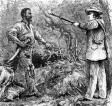
In Aug. 1831 black slave preacher "the Prophet" Nat Turner (1800-31) leads a slave rebellion in Va. with as many as 80 followers, moving for 12 hours from farm to farm in Southampton County and murdering 55 whites, mostly women and children, while the men are attending a religious revival; the militia suppresses the insurrection, and a reign of terror against blacks follows; Southern sentiment for abolition evaporates as the news that niggers are indeed savage apes out to murder them freaks the whites out bigtime, and hardens their resolve to keep them down - they don't remember the Wat Tyler Rebellion of 1381?
We Americans don't have the amenities at home that you Brits afford us here? On July 26, 1833 while white Americans cower in fear of freeing black slaves for fear of racial amalgamation, the Whig-dominated British House of Commons, enjoying a comfortable remoteness from its black slaves passes the Slavery Abolition Act (introduced by colonial secy. Lord Stanley, and supported by Lord Brougham), giving all British slaves their freedom by 1834 and compensating slave owners to the tune of £20M; the British Anti-Slavery Society is disbanded; lifelong English abolitionist leader William Wilberforce (b. 1833) hears the good news before dying on July 29, his last words being "Thank God that I should have lived to witness a day in which England was willing to give twenty millions sterling for the abolition of slavery"; too bad, the law is initially applied only in the West Indies, and it goes on in Sierra Leone until Jan. 1, 1928; on Dec. 4 William Lloyd Garrison, returning from a trip to England with his batteries recharged helps found the Am. Anti-Slavery Society in Philadelphia, Penn., and becomes its pres. from 1843-65.
The first gag rules in the land of free speech? In 1836 tired of the flood of antislavery petitions, many from pesky women, the U.S. Congress passes Gag Rules (effective Dec. 4, 1837), the Senate deciding to receive but automatically reject them, and the House deciding to receive but automatically table them; in 1840 the House decides not to receive them at all; after years of efforts by U.S. Rep. (formerly Pres.) J.Q. Adams, Northern Democrats and Northern Whigs end gag rules in 1844. In Nov. 1836 after the Nat.-Republican Party of J.Q. Adams, Henry Clay, and Daniel Webster unites with Anti-Masons, Dems. and others alienated by "King Andrew I" and form the Whig Party, and 28 of the 41 Dems. in Congress who had voted to recharter the nat. bank join, the 1836 U.S. Pres. Election sees Martin Van Buren benefit from the deceptively rosy economy (which waits to fall apart until after he takes office) and beat the entire Whig field, receiving 765K popular votes to their 740K, and 170 electoral votes to 73 for Harrison (who supports the use of federal money for internal improvements and the reopening of the Bank of the U.S.), 26 for White, and 14 for Webster (113 total); the first nat. election in which the issue of slavery is important, with Van Buren claiming that Congress has the right to outlaw it in the District of Columbia, but that he personally opposes the move; the Dem. Party of Van Buren, devoted to a small federal govt. that hates banks and tariffs stays intact until at least Pres. Grover Cleveland's admin., when "Great Commoner" William Jennings Bryan wants it have a more active role, starting it on a path leading to FDR's new Deal?



On Nov. 7, 1837 U.S. abolitionist (Presbyterian minister) Rev. Elijah Parish Lovejoy (b. 1802) is murdered by a mob in Alton, Ill. while trying to defend his printing press, which they throw into the Mississippi River, shocking the U.S. with the news that whites have killed one of their own over the slavery issue; Boston-born Wendell Phillips (1811-84), who became an abolitionist two years earlier after witnessing an attack by a mob of wealthy Bostonians on William Lloyd Garrison gives a big speech denouncing the Alton mob in Boston's Faneuil Hall, gaining him nat. publicity; after hearing of Lovejoy's murder, John Brown (1800-59) publicly vows "Here, before God, in the presence of these witnesses, from this time, I consecrate my life to the destruction of slavery", uttering the soundbyte that slaveholders won't give up their slaves "till they felt a big stick about their heads".
On Aug. 1, 1838 all slaves in the British Empire are freed after the period of forced apprenticeship under the 1833 Slavery Abolition Act ends; of 4M African slaves imported to the British West Indies to work sugar plantations, only 400K remain.
On July 1, 1839 Spanish sloop Amistad (Sp. "friendship"), carrying 50 African slaves recently sold in Havana, Cuba is taken over by the slaves, who kill the captain and one crewman, and hold two Spaniards captive to act as navigators to sail them back to Africa; a U.S. naval vessel intercepts them, releases the Spaniards and imprisons the Africans, and they are indicted for murder, causing U.S. abolitionists to take up their cause. In 1840 former U.S. pres. John Quincy Adams argues before the U.S. Supreme Court on behalf of the Africans illegally abducted by the Spanish in the Amistad Case, using African-born translator James Covey (Kai Nyagua) (1819-). In Mar. 1841 after eloquent arguments by former U.S. pres. J.Q. Adams the U.S. Supreme Court sets the Amistad prisoners free, and private funds are raised to send the 35 survivors back to Africa.
In 1839 state-supported Virginia Military Inst. (VMI) is founded at the state arsenal in Lexington, Va., becoming known as "the West Point of the South".
In the 1840s Mary Ann Hall (-1886) becomes the madame of a 3-story brick brothel at 349 Maryland Ave., SW in Washington, D.C. four blocks W of the U.S. Capital; in 1864 the U.S. Army Provost Marshall pub. a list of 450 brothels in Washington, D.C., listing hers as having 18 hos, making it the city's largest out of 5K total hos; it closes in 1878.

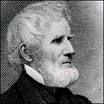



In June 1840 the World Anti-Slavery Convention in London is held; Lucretia Mott and other women are denied seats, pissing them off and turning them onto women's rights work, causing the U.S. abolitionist movement to split between nonviolent (but wanting it now, not gradually) "moral suasion" William Lloyd Garrison and his Am. Anti-Slavery Society, which links abolition with women's rights, and Theodore Dwight Weld (1803-95) (husband of Emily Grimke), moral reform philanthropists Arthur Tappan (1786-1865) and his brother Lewis Tappan (1788-1873), and the "pragmatic" (gradualist) abolitionists, who form the Am. and Foreign Anti-Slavery Society (AFASS) and enter politics through the anti-slavery Liberty Party (ancestor of the Free-Soil Party and Repub. Party), founded by James Gillespie Birney (1792-1857), their pres. candidate this year and 1844, who also founds the Nat. Anti-Slavery Society; Gerrit Smith (1797-1874) is the vice-pres. candidate; membership in the Am. Anti-Slavery Society (founded 1833) peaks at 200K (mostly women); by 1854 the AFASS carries on the bulk of antislavery agitation in conjunction with numerous state orgs. - ah, the heady feel of freeing one's fellow men, fudge the sneaky feeling of loosing a lower race of savages and undoing everything civilization has built?

Are you scared to take the Clorox 2 challenge? A brave white politician makes slave owners giddy? On Nov. 7, 1841 slave ship Creole is taken over by its 135 slaves en route from Hampton Roads, Va. to New Orleans, La., and after killing the captain they sail to Nassau, where they become free under British law, pissing-off the U.S. govt., secy. of state Daniel Webster demanding their return as property of U.S. citizens, which causes Whig abolitionist Joshua Reed Giddings (1795-1864) to introduce into the U.S. House of Reps a resolution declaring that slavery does not exist under federal but only under state laws; he is censured, resigns and is reelected, going on to lead opposition to the extension of slavery and go Republican; the slaves are never returned.
On Feb. 22, 1842 (110th anniv. of George Washington's Birth) Springfield, Ill. lawyer Abraham Lincoln (33) gives his Temperance Address to the Springfield Washington Temperance Society at the Second Presbyterian Church, pushing "kind, unassuming persuasian" instead of harsh measures, and ending with the soundbyte: "Happy day, when all appetites controled, all passions subdued, all matters subjected, mind, all conquering mind, shall live and move the monarch of the world. Glorious consummation! Hail fall of Fury! Reign of Reason, all hail!"; speaking of reason, and on Nov. 4 he marries mentally unstable Mary Ann "Mollie" Todd (1818-82) of Ky.; they have 4 sons (Robert, Edward, William, Thomas or Tad) and no daughters; Edward dies in infancy, William during his presidency at age 11, Tad at age 18; Robert Todd Lincoln (1843-1926) grows up and makes good; in 1844 they buy Abe's only home in Springfield, Ind. for $1.2K from Rev. Charles Dresser, who performed the marriage ceremony.
In Apr. 1843 secret negotiations to annex Texas, spurred by Southern slaveholders skittish about growing British influence result in a treaty completed by secy. of state John C. Calhoun being sent to the Senate for ratification; Calhoun then sticks his cotton' pickin' foot in his mouth when he sends the British minister a letter stating that Texas annexation will foil British abolitionists, and solid Whig opposition results in an overwhelming rejection of the treaty.


In 1843 after William Lloyd One-Man Garrison publicly burns a copy of the U.S. Constitution in 1840, his Am. Anti-Slavery Society adopts a resolution declaring that the U.S. Constitution is a slaveholders' document, a "covenant with Death and an agreement with Hell", and that voting or taking an oath supporting the Constitution would be a sin, adopting the motto "No union with slaveholders", and advocating peaceful separation of free and slave states; only the 15th Amendment (1870) satisfies them and causes them to finally disband; meanwhile, the British are light years ahead of the Yankees, and black-as-coal Samuel Adjai Crowther (1809-91), who was born in Nigeria, sold as a slave in 1821, freed by the British then educated in Sierra Leone and the Church Missionary College in London is ordained into the Anglican Church, going on to return to Africa as a missionary and teacher, becoming the first bishop of the Niger in 1864 and translating the Bible into Yoruba; back in the U.S., former slave Isabella changes her name to Sojourner Truth (1797-1883), and goes on crusade sojourning for the you know what.


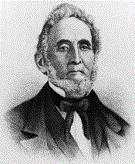
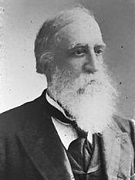
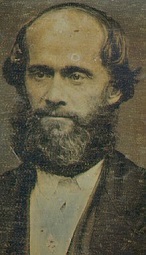
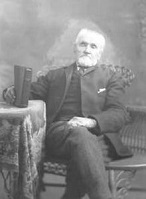
On Mar. 11, 1844 Joseph Smith Jr. establishes the Council of Fifty AKA "The Kingdom of God and His Laws with the Keys and Power thereof, and Judgment in the Hands of His Servants, Ahman Christ" to symbolize and represent the future theodemocratic Mormon Kingdom of God on Earth (cooked up by his ghostwriter Wiliam Wines Phelps), but really to launch his campaign for pres. of the U.S., which is announced at the LDS Gen. Conference on Apr. 9; on May 17 Smith's new Reform Party holds its nomination convention, which uninanimously nominates him, with the platform calling for members "to carry out the principles of liberty and equal rights, Jeffersonian democracy, free trade, and sailors' rights, and the protection of person and property", announcing a nat. convention in New York City on July 13; Smith turns Southerners on with a plan to end slavery by 1850 via compensated emancipation funded with the sale of public lands and the cutting of Congresspersons' salaries from $8/day to $2/day, and proposes a nat. bank along with a reduction of the U.S. House of Reps to two members per million pop., open borders, replacement of prisons with "seminaries of learning", and the granting of power to the U.S. pres. to suppress mobs sans a request from state governors along with a constitutional amendment providing for capital punishment for officials who refuse to assist those denied their constitutional rights, with the soundbyte: "The state rights doctrines ae what feed mobs." On June 27, 1844 after holy polygamist Nauvoo, Ill. mayor Joseph Smith Jr. (b. 1805) runs for pres., and the city council orders the suppression of an anti-Mormon newspaper, causing civil unrest that causes Smith to mobilize the Nauvoo Legion and declare martial law, getting him arrested for treason, he and his older brother Hyrum Smith (b. 1800) are murdered in jail by a mob in Carthage, Ill. after being promised protection by the gov. of Ill. and the Carthage Greys local state militia, which disobeys orders and joins the mob; he could have escaped, but preferred martyrdom?; the Prophet dies at age 39 after having married at least 49 women, incl. 12 already-married women, five sets of sisters, and one mother-daughter pair; "When I see a pretty woman I have to pray for grace"; Brigham Young becomes the head of the Mormon Church, continuing to operate the Nauvoo Legion, and after a bunch of defections the Mormons abandon Ill. heading west; the Rigdonite Church splits off after claiming that Sidney Rigdon (1793-1876) is the rightful successor; the Reorganized Church of Jesus Christ of Latter Day Saints (Community of Christ) also splits off, with Joseph Smith Jr.'s eldest surviving son Joseph Smith III (1832-1914) becoming prophet-pres. on June 6, 1860-Dec. 10, 1914; the Strangites, organized by James Jesse Strang (1813-56) split off after he produces a Letter of Appointment from Joseph Smith Jr. dated June 18, 1844 and convinces several thousand Mormons to move with him to Voree, Wisc., followed in 1848 by well-named Beaver Island in Lake Michigan after flopping from monogamy to polygamy and losing several followers, declaring himself king and ending up getting assassinated; the Church of Jesus Christ (Bickertonite) also split off, organized by William Bickerton (1815-1905), who was converted from Methodist to Mormon by Sidney Rigdon in 1845, and backs his claim to be Joseph Smith Jr.'s rightful successor.



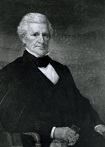
On Apr. 27, 1844 Henry Clay and Martin Van Buren pub. letters in separate Washington, D.C. newspapers opposing Texas annexation because of the danger of war, Clay adding in his Raleigh Letter that it would be "dangerous to the integrity of the Union"; the U.S. Senate rejects the Texas annexation plan zealously pushed by Pres. Tyler, who wants to give slavery more room - I didn't want to do it, I didn't want to do it? The slavery issue colors the election, as one white party goes for white clay, and the other for a pig in a polk on a dark horse? In May 1844 the Whig Convention in Baltimore, Md. unanimously nominates Henry Clay (1777-1852) of Ky. for pres., and Theodore Frelinghuysen (1787-1862) of N.J. for vice-pres.; the first-ever 1844 Whig Platform omits any reference to the hot potato of Texas; later in May the 1844 Dem. Nat. Convention in Baltimore, Md. deadlocks over anti-annexation candidate Martin Van Buren and pro-annexation candidate Lewis Cass of Mich., and on the 9th ballot nominates pro-slavery pro-expansionist (both Tex. and Ore.) James Knox Polk (1795-1849) of Tenn., who becomes the first "dark horse" candidate in U.S. history (a shock of long grizzled hair looks like a mane, and he has probing gray eyes?), and the first to announce that he won't seek reelection; the 1844 Dem. Platform calls for "the reoccupation of Oregon and the reannexation of Texas"; "president without a party" Tyler fails to win renomination by the alienated Whigs or the Dems. Henry Clay suddenly flip-flops on Texas, saying that slavery there is only a "temporary institution", and that if it could be annexed "without dishonor, without war, with the common consent of the Union, and upon just and fair terms" he wouldn't object; Polk's followers cry for "Texas and Democracy" and "Fifty-four Forty or Fight" (annexing Oregon all the way to Alaska), with Polk's Senate spokesman William Allen (1803-79), "the Ohio Foghorn" leading the charge; they also task Clay for being a gambler, dueling fool, and debaucher; "Who is James K. Polk?" is the Whig campaign slogan; in Nov. the 1844 U.S. Pres. Election sees Polk barely edge Clay in the popular vote by 39K (1,339,494 to 1,300,004), but win by 170-105 electoral votes ; the 62K votes (out of 2.5M total) for abolitionist James G. Birney of the Liberty Party (former Northern Whigs) deprives Clay of N.Y. and costs him the election (he would have won by 7 electoral votes); Polk carries neither N.C., his birth state, nor Tenn., the state he served as gov. for two terms; the Liberty Party disbands in 1848 when many of its members join the Barnburners to form the Free-Soil Party.
The massive American gringo land grab permanently opens up the black slavery wound? On Aug. 8, 1846 (noon) Pres. Polk sends Congress a hurried request for $2M to expedite peace negotiations with Mexico; instead of being rubber-stamped by the House, pro-war Penn. Dem. David Wilmot stands up, saying that if free soil should be acquired from Mexico, "God forbid that we should be the means of planting this institution [slavery] upon it", and introducing the Wilmot Proviso to prevent slavery in any territory acquired from Mexico; it passes the House next Feb. 17 but fails in the Senate, is reintroduced next year and rejected again, and later offered unsuccessfully as an amendment to many bills, but the issue is now out of the box, and debate rages on over the extension of slavery into the western territories.

In 1846 mulatto ex-slave Frederick Douglass (Frederick Augustus Washington Bailey) (1817-95), known for his 1838 escape to freedom launches the abolitionist newspaper The North Star in Rochester, N.Y. with William Lloyd Garrison and Martin Robinson Delany (until June 1851) - good name?

In 1846 Mass. atty. Lysander Spooner (1808-87) pub. The Unconstitutionality of Slavery, which splits the abolitionist movement over whether the Constitution is a "covenant with Death and an agreement with Hell", or actually doesn't support slavery, influencing Frederick Douglass et al. and leading to the 1848 platform of the Liberty Party; too bad, when the Repub. Party is formed he refuses to support it since it doesn't advocate abolition of slavery but only fights expansion, and when the U.S. Civil War breaks out he supports the right of states to secede as supported by the right of slaves to be free, and advocates compensation for emancipation.


In May 1848 after Pres. Polk refuses to run for a 2nd term the Dems. nominate pro-"squatter sovereignty" Mich. Sen. (1845-57) and U.S. war secy. (1831-6) (who supported the forcible removal of Indians beyond the Mississippi and backed Pres. Jackson in the nullification crisis) Lewis Cass (1782-1866) at the 1848 Dem. Nat. Convention in Baltimore, Md.; the Barnburners (N.Y. Dems.) bolt the convention, join up with James G. Birney's Liberty Party (their candidate John P. Hale withdraws), and form the anti-slavery Free-Soil Party, opposing admission of new slave states into the Union, which on Aug. 9 nominates Martin Van Buren for pres. and Charles Francis Adams (son of J.Q. Adams) for vice-pres. at its convention in Buffalo, N.Y.; U.S. Supreme Court judge (1830-61) John McLean (1785-1861) was the original pres. candidate until the abolitionist North Star newspaper revealed in July that he once gave instructions to the jury in the Crosswait trial telling them it was a crime to thwart any attempt by a white person to respossess a runaway slave, pissing off abolitionist Salmon P. Chase, who got him replaced. In June with slavery now the big nat. issue, and the two blocs balanced at 15 states each, but neither party able to address it because each party has national pretensions and is internally split, the Whigs pass over Henry Clay and nominate Mexican War hero, Louisiana planter and slave owner (father-in-law of Miss. Sen. Jefferson Davis) Gen. Zachary Taylor at their convention in Baltimore, Md., with former New York Rep. Millard Fillmore as vice-pres. In 1848 Ala. Dems. clamor for a federal slave code to protect the property of slaveholders in the new territories acquired from Mexico in the Platform of the Alabama Democracy, authored by former U.S. rep. William Lowndes Yancey (1814-63).

Let's shake, shake your daddy-o? On Jan. 22, 1849 S.C. Sen. John Caldwell Calhoun (1782-1850) Southern Address (Address of the Southern Delegates in Congress to Their Constituents) at the behest of "a committee of Southern members of Congress for Southern unity in the face of steady Northern Aggressions and encroachments" on the slavery issue, which, after pointing out that "the British West India possessions are ruined, impoverished, miserable, wretched, and destined probably to be abandoned to the black race", predicts that, if emancipation is ever effected, "it will be through the agency of the Federal Government... against the resistance and struggle of the Southern. It can then only be effected by the prostration of the white race... We would, in a word, change conditions with them [blacks], a degradation greater than has ever yet fallen to the lot of a free and enlightened people, and one from which we could not escape... but by fleeing the homes of ourselves and ancestors, and by abandoning our country to our former slaves, to become the permanent abode of disorder, anarchy, poverty, misery, and wretchedness"; 48 (fewer than half) of the Southern members (incl. not more than 3 Whigs) endorse it, but Calhoun gets brownie, er points as a prophet?







The final Congressional settlement of the slavery question, doo-dah doo-dah? On Jan. 29, 1850 Ky. Sen. Henry Clay (1777-1852) presents his Compromise of 1850 to the U.S. Senate, giving the three towering intellects of Clay, Calhoun, and Webster their day on the tottering nat. stage before they croak sans solutions; on Mar. 4 ailing Dem. S.C. Sen. John Caldwell Calhoun (1782-1850) has a speech read for him against the compromise and demanding equality and safety for the South, then dies on Mar. 31; on Mar. 7 Whig Mass. Sen. Daniel Webster (1782-1852) pushes for Union over slavery concerns and is pro-compromise; newcomer (since 1849) Whig N.Y. Sen. William Henry Seward Sr. (1801-72) (known for wearing yellow pantaloons and an outsized yellow handkerchief, and pausing theatrically during orations to dip into his snuff box) invokes "a higher law than the Constitution" and is against the compromise, as are Jefferson Davis (1808-89) and Salmon Portland Chase (1808-83), while 5'4" "Little Giant" Stephen Arnold Douglas (1813-61), chmn. of the Committee on Territories is for it, which carries a lot of weight; on Apr. 18 the matter is referred to a Senate committee of 13, with Clay as chmn.; debate drags on as Pres. Taylor dies on July 9 after less than 500 days in office, and is succeeded by fill-more Millard Fillmore; in Sept. a package of five bills is finally passed, ending a 4-year war over the status of territories acquired during the Mexican-Am. War of 1846-8. On June 3-11 the Nashville Convention in Tenn. is attended by 100+ delegates selected by the legislatures of 9 out of 15 slave states in an effort to establish unity in the face of the debate then going on in Congress; it proposes an extension of the Missouri Compromise line to the Pacific Ocean; when it is ignored, the convention reconvenes in Nov., attended by delegates from only seven states, and rejects the Compromise, asserting the right of secession; meanwhile late in the decade growing tensions cause pro-Southern residents of Calif. to propose splitting Calif. into Northern and Southern sections, but Congress votes it down; meanwhile the 1850 U.S. Fugitive Slave Act increases the resolve of abolitionists with criminal penalties for citizens concealing or rescuing a fugitive, as well as the award of a $10 fee to commissioners for accepting a slave owner's claim to an escaped slave, versus only $5 for rejecting it. On Sept. 9-20 the Compromise of 1850 passes after being split into five separate bills: 1: admitting (Calif.)) to the Union as a free state; 2: organizing the New Mexico Territory (N.M.) with the slavery issue to be decided by popular sovereignty, and payment of $10M to Texas to satisfy claims to New Mexico; 3: organizing the Territory of Utah ditto; 4: a stiff new fugitive slave act; 5: an act abolishing the slave trade (but not slavery itself) in the District of Columbia; the issue of popular sovereignty is left for future legislative debates, which is what makes the Southerners accept the whole deal; the Mormon Corridor from Utah N through W Wyo. and E Idaho, S to San Bernardino, Calif., W to Mesa, Ariz., and S to the U.S.-Mexico border (area between modern-day Interstate 15 and U.S. Route 89) begins to be settled by Mormons (until 1890).

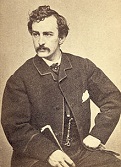
In 1850 the Winter Garden Theatre (originally Tripler's Hall) in New York City at 667 Broadway opens as a venue for Swedish Nightingale Jenny Lind; too bad, when she arrives it isn't finished, causing her to appear at Castle Garden instead; in Dec. 1850 thousands of Freemasons meet there; in Feb. 1842 a memorial service for novelist James Fenimore cooper is held there, presided over by Daniel Webster, with eulogies by Washington Irving and William Cullen Bryant; in 1854 it is rebuilt as the New York Theatre; on May 15, 1855 it is renamed Metropolitan Hall, followed on Dec. 27, 1855 by Laura Keene's Varieties; too bad, the Panic of 1857 causes it to close; in 1859 it is remodeled by Dublin, Ireland-born impresario Dion Boucicault (Dionysius Lardner Boursiquot) (1820-90), who renames it Winter Garden Theatre; on Nov. 25, 1864 Junius Brutus Booth, Junius Brutus Booth Jr., Edwin Booth, and John Wilkes Booth stage a benefit performance of Shakespeare's "Julius Caesar" to raise funds for a statue of Shakespeare in Central Park, after which on Apr. 14 (Good Fri.), 1865 Bel Air, Md.-born John Wilkes Booth (1838-65) asassinates Lincoln at Ford's Theatre in Washington, D.C. while viewing a performance of "Our American Cousin", crying out the words of Brutus "Sic semper tyrannis".

On Mar. 20, 1852 Litchfield, Conn.-born teacher Harriet Elizabeth Beecher Stowe (1811-96) pub. her compelling, tear-jerking, rabble-rousing, widely-translated anti-slavery novel Uncle Tom's Cabin (pub. starting June 5, 1851 in 10 monthly installments in Nat. Era, then as a book on Mar. 20, 1852), selling 300K copies in its first year then going on to become the first million-selling novel, the #1-selling novel in the world in the 19th cent., and #2 after the Bible.
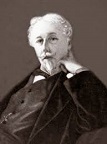
In 1853-5 French historian Joseph Arthur, Count de Gobineau (1816-82) pub. An Essay on the Inequality of the Human Races (Essai sur l'inégalité des races humaines), explaining how the Aryan Master Race (his, of course) created all culture, and how miscegenation (racemixing) ruined India, Egypt, Persia, Spain, and even has crept into France, Germany, Austria, Switzerland, everywhere, becoming the seminal doctrine of 19th cent. scientific racism, making a monkey, er, disciple of Richard Wagner - let's face it, Lexington Steele is unstoppable?




On Mar. 20, 1854 in reaction to the Kansas-Nebraska Act, the anti-slavery Republican Party is founded in Ripon, Wisc. by Francis Preston Blair Sr. (1791-1876), George Sewall Boutwell (1818-1905), Asahel Nichols Cole (1821-89), George William Curtis (1824-92) et al. in protest to fight against the expansion of slavery in the new territories of the West, becoming free-soil and anti-slavery but not abolitionist, and incorporating what's left of the anti-slavery members of the defunct Whig Party; on July 6 it holds its first official meeting in Jackson, Mich.
On May 30, 1854 after a push by Northern Dem. Senators Stephen Douglas of Ill. and Lewis Cass of Mich. to help the North catch up with Pres. Pierce's deal for a southern-route transcontinental railroad, the Missouri Compromise of 1820 is repealed, and the U.S. Kansas-Nebraska Act is passed, creating the territories of Kansas and Nebraska, while permitting a local option on slavery (popular sovereignty) (Tex. Sen. Sam Houston votes against it); both slave owners and free soilers rush in, riots ensue, and the War for Bleeding Kansas begins, trashing the existing political party system, destroying the Whigs and dividing the Dems; the city of Lawrence, Kan. (modern-day pop. 95K) is founded in NW Kan. between the Kansas and Wakarusa Rivers near Hogback Ridge on the Oregon Trail, becoming a hotbed of anti-slavery sentiment, going on to be the site of the Wakarusa War (1855), the Sack of Lawrence (1856), and the Lawrence Massacre (1863); after the U.S. Civil War ends, it becomes home to the U. of Kan. in 1866, and Haskell Indian Nations U. in 1884.

On Aug. 24-26, 1854 the Nat. Emigration Convention of Colored People is held in Cleveland, Ohio, attended by black physician Martin Robinson Delany (Delaney) (1812-85), who pub. the manifesto "Political Destiny of the Colored Race on the American Continent"; the convention passes a resolution that "as men and equals, we demand every political right, privilege and institution to which the whites are eligible in the United States, and we will either attain to these, or accept nothing", becoming the start of U.S. black nationalism.
On Oct. 4, 1854 successful ($5K a year) 6'4" atty. Abraham Lincoln speaks against 5'4" "Little Giant" Stephen Douglas in Springfield, Ill., and again on Oct. 16 at Peoria, Ill., opposing popular sovereignty when it comes to slavery, because "all this, to my judgment, furnishes no more excuse for permitting slavery to go into our own free territory, than it would for reviving the African slave trade by law".
The White Is Ostensibly Right Manifesto ends up being stopped by fear of another U.S. slave state? On Oct. 18, 1854 at the request of secy. of state William Learned Marcy, the U.S. ministers to Great Britain (James Buchanan), France (John Young Mason), and Spain (Pierre Soule) (Pierre Soulé) draft the Ostend Manifesto at Ostend, Belgium, calling for the U.S. to buy Cuba from Spain, and, if Spain refuses to sell, "then, by every law, human and divine, we shall be justified in wresting it from Spain"; after an outcry by anti-slavery forces, Marcy repudiates the doctrine, causing Soule (who had originally begun negotiations with Spain to purchase it without authorization, causing the Ostend Conference to be ordered) to resign.

In 1854 Topeka, Kan. on the Kansas River 55 mi. W of Kansas City at the site of a ferry founded in the 1840s by three half-Kansas Indian sisters married to the French-Canadian Pappan Brothers is founded by anti-slavery colonists incl. mayor #1 Col. Cyrus Kurtz Holliday (1826-1900) (who in 1859 founds the Atchison, Topeka and Santa Fe Railroad), becoming prominent in the political conflict before the U.S. Civil War.

In spring 1855 Lecompton, Kan. (founded 1854) (original name Bald Eagle) on the S bank of the Kansas River becomes capitol of the Kansas Territory, coming under control of pro-slavery settlers. On Nov. 21 the Wakarusa War in Kansas Territory (ends Dec.) begins when pro-slavery settler Franklin N. Coleman kills free-stater settler Charles Dow, causing a 1.5K-man army from Mo. under Douglas County, Kan. sheriff Samuel J. Jones to break into the U.S. arsenal in Liberty, Mo. then siege Lawrence, Kan., which is defended by free-state settlers under John Brown and James Lane, until a peace treaty is signed before an attack can be made; Topeka mayor Cyrus K. Holliday is given the honorary title of col. for leading a regiment of free-staters, after which Topeka is named the new capitol after statehood in 1861; the only KIA is free-stater Thomas Barber, who becomes the subject of a poem by John Greenleaf Whittier titled Burial of Barber; "That the State whose walls we lay,/ In our blood and tears, to-day,/ Shall be free from bonds of shame,/ And our goodly land untrod/ By the feet of Slavery, shod/ With cursing as with flame!" Penn.-Ohio surveyer, tanner, and sheep-raiser John Brown (1800-59) moves from North Elba, N.Y. to Kansas Territory, and soon becomes a leading figure in the violent conflict between free-state and pro-slavery settlers in Bleeding Kansas. In 1855 N.C.-born Hinton Rowan Helper (1829-1909) pub. The Land of Gold, about a Southern slaveholder who moves to Calif. and finds life in a free state to be superior. In 1857 he follows it with The Impending Crisis in the South: How to Meet It, which claims that the institution of slavery is economically unsound and contributes to the moral and intellectual degeneration of slaveholders; it sells 100K copies the first year, and in 1860 the Repubs. distribute millions of copies of a digested pamphlet version, while Southern state legislators forbid its sale or possession, and men are hanged or mobbed for owning a copy; more influential than "Uncle Tom's Cabin" in hastening the U.S. Civil War? - having the darkies do the labor doesn't free whities for intellectual pursuits?




If only they had limited the fighting to this: On May 19-20, 1856 Dem. Mass. Sen. Charles Sumner (1811-74) delivers a fervent abolitionist speech in the Senate titled The Crime Against Kansas, railing against the Kansas-Nebraska Act and its authors Sen. Stephen A. Douglas of Ill. and Dem. S.C. Sen. Andrew Pickens Butler (1796-1857), comparing Butler to Don Quixote and his mistress slavery to ugly Dulcinea, and getting personal (something about expectoration while speaking); on May 22 Dem. S.C. Rep. Preston Smith "Bully" Brooks (1819-57) (Butler's nephew) assaults Sumner in the Senate chamber with a light gutta-percha walking stick, beating him unconscious and permanently enfeebling him; Brooks gains fame throughout the South for his macho deed, and even though he resigns he is promptly reelected to the House, but dies next Jan. 27; Sumner is unable to resume his Senate seat for three years. On May 24-25, 1856 (night) after Lawrence, Kan. is sacked by pro-slavery forces, John Brown and his abolitionist free-staters (who are also pissed-off at the caning of Charles Sumner by Preston Brooks) kill five Kansas slavers in the Massacre of Pottawatomie Creek in Franklin County, Bleeding Kan.



On May 29, 1856 the Ill. Repub. Party meets in Bloomington, Ill. (incorporated 1850), 58 mi. NE of Springfield, Ill. (in the corn belt on the edge of the coal fields), and Abraham Lincoln joins, delivers his famous Speech Against Slavery, gets over 100 votes for the vice-pres. nomination, and gives 50 speeches for the Fremont ticket. On June 2-5 the 1856 Dem. Nat. Convention in Cincinnati, Ohio (first nat. party nominating convention held outside the original 13 states) passes over bleeding boobs Pierce and Douglas for U.S. minister to Great Britain (Polk's secy. of state), angel-hair-eyes-skin bachelor James Buchanan of Penn., who has the angelic virtue of having been abroad when the Kan.-Neb. Act was passed, and therefore never "uttered a word which would pain the most sensitive Southern heart" (no wife to open her mouth and get him in trouble either?); the Dem. platform is in favor of the Kan.-Neb. Act as well as popular sovereignty; the Know-Nothing Party, which hopes to divert attention from the slavery issue by inciting xenophobia, changes its name to the Am. Party, then its Northern members split and join the Repubs., leaving the Southern rump to nominate former lame mallard U.S. pres. Millard Fillmore, who emerges from retirement determined to unite North and South without a pot to piss in? On June 17 the 1856 Repub. Nat. Convention in Philadelphia, Penn., presided over by Henry Smith Lane (1811-81) of Ind. (who becomes a celeb for his oratory, and later helps get Abraham Lincoln nominated in 1860) nominates popular young explorer John Charles Fremont (1813-90), "the Pathfinder" for pres., whose wife Jessie Benton Fremont (1824-1902), daughter of Manifest Destiny proponent Sen. Thomas Hart Benton gets actively involved, making it the first major political campaign in which women have an active role; their campaign slogan is "Free Soil, Free Speech, Free Men, Fremont", and campaign posts feature Col. Fremont Planting the American Standard on the Rocky Mountains, showing an eerie preview of the WWII Iwo Jima flag-raising, but with him holding the pole alone with one hand while waving his hat with the other, while a bearded white guy and bearded Mexican in a wide-brimmed hat stand behind him and wave and cheer, and an Am. eagle hovers.
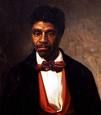



The pro-slavery powers pull their final rabbit out of their black hat, and it's dressed in a black robe, with a white lining? Talk about bad timing? On Mar. 6, 1857 (two days after Pres. Buchanan's inauguration) the U.S. Supreme Court led by Roman Catholic chief justice (1836-64) Roger Brooke Taney (1777-1864) (pr. TAH-nee) rules 7-2 in Dred Scott v. Sandford (their worst decision?) (dissent by John McLean and Benjamin R. Curtis) that blacks "had for more than a century been regarded as... so far inferior, that they had no rights which the white man was bound to respect", and therefore are not human beings but only one-fourth human, and property of their white masters, and cannot become citizens, even if taken by their masters into free states (incl. any of them new free or popular sovereignty states that them !*?!* nigger-loving abolitionists are trying to railroad in?); the defunct Missouri Compromise is nullified ex post facto, and popular sovereignty is ruled defunct, since Congress does not have the power to ban slavery in the territories; the decision "seemed a mortal blow to the newly created Republican Party" (Encyclopedia Britannica), putting it in a war with the court; speaking of blow, after the decision, Dred Scott and his family are sold to Peter Blow, the son of Scott's first owner (Joe Blow?), who gives them their freedom papers on May 26; all but one of the justices who join Marylander Taney are Southerners; - Roger B. Taney's portrait looks like one of those orangutan judges in the movie "Planet of the Apes", and Dred Scott's portrait looks like Levar Burton in "Roots"?
On Aug. 24, 1857 the Ohio Life Insurance and Trust Co. fails; after a decade of prosperity fueled by Calif. gold, the reduction in demand for U.S. grain caused by the end of the Crimean War combined with overspeculation in U.S. railroads, and the Dem. Tariff of 1857 of Mar. 3 (which sets rates at their lowest level since 1816), the Panic of 1857 hits the U.S. and Europe; the depression that follows (ends 1859) intensifies sectional differences as the South prospers with cotton while blocking tariff protection and free public lands wanted by the North; the South also gets an idea that King Cotton is Dick Almighty and that their slave labor system is superior to the up-and-down Northern free labor system. On Dec. 21 Kansas delegates vote in the Lecompton Convention (Constitution) whether to accept a new "constitution with slavery" or a "constitution with no slavery", providing that either way the 200 slaves already in the state "in no measure be interfered with"; 6,226 vote for slavery, 569 for no slavery; pro-slavery Gov. Robert J. Walker counters with an alternate election in the legislature to be held in Jan.
On Jan. 4, 1858 Gov. Robert J. Walker has the Kansas Legislature vote the Lecomption Constitution up or down: 10,226 vote against it, 138 for it with slavery, 24 for it without slavery; Pres. Buchanan breaks with Walker and supports it, then Sen. Douglas breaks with Buchanan, dividing the Dem. Party; in Mar. the U.S. Senate accepts it, but the House balks, adding an amendment requiring a carefully supervised popular vote in Kansas first; on Aug. 2 Kansas voters reject Lecompton by 11,300 to 1,788, and Kansas becomes a free state. On May 11 "North Star State", "Gopher State", "Land of 10,000 Lakes" Minnesota is admitted as the 32nd U.S. state (free) (motto: "L'Etoile du Nord", "The North Star"), becoming the 2nd (last) state that has land on both sides of the Mississippi River (after La.); there are now 17 free and 15 slave states.


On June 16, 1858 Abraham Lincoln, Repub. nominee for U.S. Senate from Ill. gives his House Divided Speech on the slavery issue in Springfield, Ill., uttering the immortal soundbyte: "A house divided against itself cannot stand" - you're working on my nerves asking me all these questions? On Aug. 21, 1858 the seven Lincoln-Douglas Debates in Ill. between beardless Abraham Lincoln (1809-65) and Stephen Arnold Douglas (1813-61) begin in Ottawa, followed by Freeport on Aug. 27, Jonesboro on Sept. 15, Charleston on Sept. 18, Galesburg on Oct. 7, Quincy on Oct. 13, and Alton on Oct. 15. On Aug. 27, 1858 the Second Lincoln-Douglas Debate is held in Freeport, Ill.; Douglas disrupts the Dem. Party by his pro stand on the Dred Scott decision, which becomes known as the Freeport Doctrine, uttering the soundbyte that the signers of the Declaration of Independence "had no reference to negroes at all when they declared all men to be created equal"; Lincoln admits that there is "a physical difference between the white and black races" that would "forever forbid the two races living together on terms of social and political equality"; slavery, however, is monkey doo and should be contained so that "the public mind shall rest in the belief that it is in the course of ultimate extinction", and tries to prove that the Constitution doesn't protect slavery; as to popular sovereignty, "No man can logically say he don't care whether a wrong is voted up or down"; Douglas wins the debates, but the publicity plus a book with the text edited by him makes Lincoln a household name. On Sept. 2, 1858 a Lincoln-Douglas debate is held in Clinton, Ill., in which Stephen Douglas accuses Abraham Lincoln of being in favor of Negro equality, and he replies that "He's not in favor of it to the extent Douglas would have them believe, but that he did believe that the colored man had as much right to eat the bread earned by the sweat of his own face as Douglas himself, or any other living man, and that was the thing that really caused the general debate between Douglas and Lincoln in the state of Illinois" (Vespasian Warner); Lincoln allegedly utters the immortal soundbyte: "You can fool all the people some of the time and some of the people all the time, but you cannot fool all the people all the time"; there is no documentation until a Prohibition Party convention on Sept. 9, 1885?; the saying becomes one of the most popular advertising slogans in the U.S., esp. around his birthday Feb. 12, incl. Gimbels, Macy's, Old Crow Rye, R.M. Rose Distillery, Knickerbocker Beer, Harwood's Canadian Whiskey, Calvert Extra Whiskey, Steinway Pianos, Mazola Corn Oil, Puritan Malt Extract, Hydrox Ice Cream, Borden Eagle Brand Condensed Milk, Postum coffee substitute, Nucoa bread spead, Pillsbury's Best Flour et al. On Nov. 8, 1858 the 1858 U.S. nat. election sees the Buchanan admin. lose control of the U.S. House, giving the Repubs. control for the 1st time (116 vs. 83) as the Dems. become divided over the slavery issue and the Am. Party collapses (5); Lincoln loses the Ill. U.S. Senate election in the legislature to Douglas by 54-1 despite receiving more total votes to elect the state reps involved; meanwhile 19 former Whigs form the Opposition Party in the U.S. House, which ends up allying with the Repubs. against the Dems. - there must be something we can do?


On Feb. 14, 1859 (Valentine's Day) "Beaver State" Oregon (Ore.) is admitted as the 33rd U.S. state (free), bringing the total to 18 free and 15 slave states until the start of the U.S. Civil War in 1861. On Feb. 17 Northern and Southern leaders socialize together for the last time before the start of the U.S. Civil War at the Napier Ball in the Willard Hotel in Washington, D.C. to say goodbye to British ambassador Francis, Lord Napier. On Mar. 7 the U.S. Supreme (Taney) Court rules unanimously in Ableman v. Booth that state courts cannot interfere with federal laws or issue rulings on federal law contradicting decisions of the federal courts, and reaffirms the constitutionality of the U.S. Fugitive Slave Act, ruling that U.S. marshals may not be interfered with by state officials when doing their duty; the Wisc. legislature responds with states' rights resolutions harking back to the Va. and Ky. Resolutions of Jefferson and Madison of 1798 - states' rights aren't only for Southerners? On Sept. 13 the Terry-Broderick Duel in San Francisco, Calif. ("the last notable American duel") sees Ky.-born pro-slavery Dem. Calif. Judge David Smith Terry (1823-89) shoot anti-slavery Calif. Dem. Sen. David Colbreth Broderick (b. 1820), who dies on Sept. 16, helping to swing popular opinion towards the Union, and causing Calif. gold to go to their side during the Civil War.

On Apr. 4, 1859 Mount Vernon, Ohio-born blackface performer Daniel Decatur "Dan" Emmett (1815-1904), and Bryant's Minstrels debut (I Wish I Was in) Dixie (Land) at Mechanics' Hall in New York City; Dixie was a kind-hearted N.Y. slaveholder in the late 1700s?; it becomes a giant hit in the South, adopted as their anthem despite Emmett being a Yankee, claiming the title comes from the French word "Dix" (ten) inscribed on the back of $10 bills issued before the war by the Citizens' Bank of La.; later Confederate Gen. Albert Pike changes the lyrics to: "Southrons, hear your country call you/ Up, lest worse than death befall you/ To arms, to arms, to arms, in Dixie(land)"/ "Advance the flag of Dixie", after which T.M. Cooley counters with a pro-Union set of lyrics, and Emmett to write the Union Army's fife and drum manual; Pres. Lincoln comments after the U.S. Civil War ends in 1865: "I have always thought that 'Dixie' was one of the best tunes I ever heard. I had heard our adversaries had attempted to appropriate it. I insisted yesterday that we had fairly captured it"; Dixie goes on to become a synonym for the Am. South; "I wish I was in de land ob cotton,/ Old times dar am not forgotten;/ Look away, look away, look away, Dixie land!"


Happy Halloween, Crackers? A Bible fanatic waves a magic wand at what he would like to change, and poof! becomes the spark himself? On Oct. 16, 1859 (Sun.) (night) abolitionist Moses wannabe (not Madonna?) John Brown (b. 1800) leads 22 young (all under the age of 30, three under the age of 21) (five colored) on a raid of the federal arsenal at Harpers Ferry, (West) Va. at the confluence of the Shenandoah and Potomac Rivers, in a crazy plot to capture arms and give them to imaginary slaves that will flock to them and begin the big insurrection; they first take the rifle factory, then capture Col. Washington (George Washington's great-grand-nephew), along with a sword given to the latter by Frederick II the Great, freeing and arming Washington's docile slaves; next they take the Maryland Bridge, guarded by Patrick Higgins, who fires an alarm shot; they then screw up and kill baggagemaster and free negro Shepherd Heyward when he refuses to halt (it was too dark to tell his color); then they take the arsenal itself, but soon the Jefferson Guard (the Charlestown militia) cut off their retreat and kill many of them; Brown sends emissaries to offer a truce, but they are captured and killed and mutilated; the next morning Col. Robert E. Lee and J.E.B. Stuart lead U.S. Marines to surround the arsenal, where only five raiders remain alive in the brick engine house; after Stuart parleys with Brown, who refuses unconditional surrender, he leaves and waves his hat, and a 15-min. assault results in two Marines dead and Brown captured; he is tried on Oct. 31 on three counts, conspiracy with negroes, treason against the Commonwealth of Va. (third person in the U.S. charged with treason after Benedict Arnold and Thomas Dorr) and murder, then hanged in Charlestown on Dec. 2 despite an Oct. 30 essay by Henry David Thoreau titled A Plea for Captain John Brown, his last prophetic words predicting the U.S. Civil War less than two years later written from his cell being "I John Brown am now quite certain that the crimes of this guilty land will never be purged away but with Blood. I had as now think vainly flattered myself that without very much bloodshed it might be done"; his son Owen and six others escape, but those captured with him suffer his fate; the Am. South overracts, alarmed at the specter of armed black insurrections aided by Northern whites under every tree; new U.S. rep. (R-Ohio) (1859-69) James Mitchell Ashley (1824-96) accompanies John Brown's widow to the execution; white-haired 65-y.-o. Va. planter and War of 1812 vet Edmund Ruffin (1794-1865) is parading with the teenage cadets at the Va. Military Inst. when Brown is hanged, later firing the first shot on Ft. Sumter; volunteer John Wilkes Booth is also present at the hanging in the uniform of a Va. regiment; Emerson calls his Messianic hanging "as glorious as the cross", knowing that now God is behind a bloody end to the horrible crime of racial slavery; the Doughfaces (Northerners with Southern sympathies) begin to split, torn between the desire to support popular sovereignty to protect against federal power and the desire to call on the federal govt. to protect slavery in the territories until it prepares a constitution and applies for statehood.


The Book That Shook the World? Big year for Bible skeptics, secularists, atheistic scientists, anybody against the ancien regime, as Jehovah, the Source of Life Breathed Into Mud is challenged by Evolution, Mud Coming to Life by Itself After It Bubbles Long Enough? The biggest V for the Devil since Eden? The new 95 Theses, but Darwin is smart enough not to publish it on Halloween? On Nov. 24, 1859 (Thur.) English naturalist Charles Robert Darwin (1809-82) pub. On the Origin of Species By Means of Natural Selection, Or, The Preservation of Favoured Races in the Struggle for Life; the 1st ed. sells out in 1 day; the 1872 6th ed. shortens the title to "The Origin of Species"; the decider, which causes evolutionary "survival of the fittest" theory to triumph among the intelligentsia; English Anglican minister and Cambridge U. prof. of modern history Charles Kingsley (1819-75), who received an advance copy on Nov. 18 writes that he had "long since, from watching the crossing of domesticated animals and plants, learnt to disbelieve the dogma of the permanence of the species", which Darwin adds to the next ed. of his book in a modified form: "He had gradually learned to see that it is just as noble a conception of the Deity to believe that He created a few original forms capable of self-development into other and needful forms, as to believe that He required a fresh act of creation to supply the voids caused by the action of His laws"; Darwin pub. it after spending eight years dissecting barnacles in his basement, then inexplicably switches to the Galapagos finch?; catches on first in Germany among atheists?; Louis Agassiz of the U.S. opposes Darwin, preferring a theory of "Epochs of Creation", based on the absence of missing links between layers of well-formed fossil ecosystems; the phrase "I'll be a monkey's uncle" is coined by Darwin skeptics; "There is a grandeur in this view of life that, whilst this planet has gone cycling on according to the fixed law of gravity, from so simple a beginning endless forms most beautiful and most wonderful have been, and are being, evolved"; what was that about "my theory would absolutely break down" if anything is found that can't be explained by "numerous, successive, slight modifications"?; in practice Darwinism becomes a religion which denies that there is intelligent design in Nature, and therefore tries to deconstruct any evidence of it they find as they go along, yet clings to the notion of common descent, almost as if there was some original, er, accident, and ends up turning into a narrow naturalistic dogma by the end of the 20th cent., taking over U.S. and other Western educational systems with a chilling priesthood? In 1860 after failing to fit it into his Theory of Evolution, Darwin writes the immortal soundbyte: "The sight of a feather in a peacock's tail makes me sick." On Feb. 1, 1871 he writes a Letter to Sir Joseph Dalton Hooker, with the soundbyte: "It is often said that all the conditions for the first production of a living organism are now present, which could ever have been present. But if (and oh! what a big if!) we could conceive in some warm little pond, with all sorts of ammonia and phosphoric salts, light, heat, electricity, &c., present, that a protein compound was chemically formed ready to undergo still more complex changes, at the present day such matter would be instantly absorbed, which would not have been the case before living creatures were found." In 1871 he pub. The Descent of Man; "The Simidae then branched off into two great stems, the New World and the Old World monkeys; and from the latter at a remote period, Man, the wonder and glory of the universe, proceeded"; "We civilized men... do our utmost to check the process of elimination; we build asylums for the imbecile, the maimed, and the sick; we institute poor laws; and our medical men exert their utmost skill to save the life of everyone to the last moment... Thus the weak members of civilized societies propagate their kind. No one who has attended to the breeding of domestic animals will doubt that this must be highly injurious to the race of man. It is surprising how soon a want of care, or care wrongly directed, leads to the degeneration of a domestic race; but excepting in the case of man himself, hardly anyone is so ignorant as to allow his worst animals to breed"; "This is the book that contains the foundation in natural history for our view" (Marx to Engels); this book is later used by Eugenicists to justify euthanasia of misfits.
























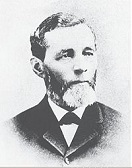



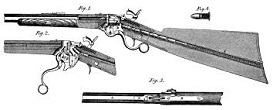
1860 Pop.: Russia: 76M, Italy: 25M, Britain: 23M; Ireland: 5.7M; New York City: 805K; before-the-wind Atlanta, Ga.: 9,554. The Eighth (8th) (1860) U.S. Census reports the total pop. as 31,443,321 in a land area of 2,969,640 sq. mi. (10.6 per sq. mi.); blacks: 4,441,790; free blacks: 488K; the 23 Northern states have a combined pop. of 21M vs. 9M for the Confederate states (5M white, 3.5M slaves); 30.77% of white Confed. households own slaves (316,362 out of 1,027,976); blacks are over 50% of the pop. of S.C. and Miss., and over 40% of the pop. of Ala., Fla., Ga., La. and Va. (excluding W. Va.); the slave pop. was 500K at the end of the Am. Rev. in 1781; the over-65 pop. is 2.7% of the total (849K); one of every eight people in the U.S. is foreign-born; there are 1.6M Irish, 1.3M Germans (one-third Catholic), 588K British (mostly English), 72.6K Scandinavians, and 35.5K Chinese immigrants in the U.S.; pop. of Washington, D.C.: 75,080, incl. 60,763 in the city and 8.7K in the village of Georgetown, 14,316 black incl. 3,185 free and 11,131 slave. As of this year no U.S. Republican owns any slaves. Coal production: Britain 3.7M tons; France: 3M tons; U.S.: 2.8M tons; Germany: 200K tons. Farmers make up 58% of the U.S. work force; the North has 85% of the manufacturing plants, 90% of the capital investment, and 92.5% of the industrial output, and the Civil War causes more factories to sprout, so that by 1875 the U.S. is an industrial giant; immigrants make up over half the labor force in New England mills; the South produces 60% of homemade manufactures. Between this year and 1920 mechanization of agriculture causes 1B acres of land to come under cultivation worldwide, and 1B more by 1980; too bad the Am. South doesn't take advantage to divest itself of slavery gracefully?; Chicago ships 30M bushels of wheat to drought-stricken Europe this year, and 50M next year, despite the outbreak of the U.S. Civil War, with former U.S. atty. gen. Edwin McMasters Stanton (1814-69) issuing the soundbyte: "Without McCormick's invention, I feel the North could not win and that the Union would be dismembered"; the $150 McCormick reaper is sold for $30 down, with the balance to be paid in 6 mo. if the harvest is good and over a longer term if the harvest is bad. By this year the Roman Catholic Church is the largest single denomination in the U.S., thanks mainly to Irish immigration. On Feb. 2 Jefferson Davis presents the Southern platform of unlimited states' rights and enslavers' rights to the U.S. Senate, demanding that all six resolutions be passed for the Southern states to remain in the Dem. Party and the Union. On Feb. 27 beardless Abraham Lincoln gives a speech at the Cooper Union (Inst.) in New York City, followed by a speech on Mar. 6 in New Haven, Conn., establishing him as a viable candidate for the Repub. pres. nomination; in New York he leans on Pres. George Washington for support of his views on the spread of slavery into the Western territories. On Apr. 23 the 1860 Dem. Nat. Convention opens in Charleston, S.C., then splits on May 23 into Northern and Southern sections after the Northern delegates refuse to agree to a pro-slavery platform, causing the delegates of eight Southern states, led by William Lowndes Yancey (1814-63) of Ala. to walk out; on June 18 the Northern (rump) section holds its convention in Baltimore, Md., and splits again, the Northerners on June 23 nominating Ill. Sen. Stephen Arnold Douglas (1813-61) for pres. and Ga. gov. (1853-7) Herschel Vespasian Johnson (1812-80) for vice-pres.; the 1860 Dem. Party Platform of June 18 defers to the U.S. Supreme Court for guidance on the slavery issue; New York City banking millionaire ("King of Fifth Avenue") August Belmont Sr. (1813-90) (a French-born Prussian Jew who immigrated to New York City in 1837 as the first U.S. rep. of the Rothschild banking house in Frankfurt) supports Douglas and becomes chmn. of the Dem. Nat. Committee, going on to help the Union finance the war with England and France; on June 23 the pro-slavery Southern section of the Dem. Nat. Convention nominates Ky.-born vice-pres. John Cabell Breckinridge (1821-75) (whose portrait bears a striking resemblance to Hollywood actor Kyle MacLachlan (1959-)?) for pres., and N.C.-born Joseph "Joe" Lane (1801-81) for vice-pres.; on May 9 the Constitutional Union Party, made up of former Whigs trying to ignore the slavery issue and concentrate on preserving the Union nominates Nashville-born Tenn. Sen. (former House Speaker) John Bell (1796-1869) for pres. and Boston-born Edward Everett (1794-1865) for vice-pres. Another Faustian bargain, or God's hand? On May 18 (19 mo. after John Brown's Harper Ferry raid) despite candidates like William H. Seward, Salmon P. Chase, and Edward Bates being better known, prepared, and financed, perceived moderate (lesser of evils?) Abraham Lincoln of Ill., after announcing that "no such good luck" was in store for him this time (with the power to carry Ill. and Ind.) outmaneuvers them to win the pres. nomination at the 1860 Repub. Nat. Convention in Chicago, Ill. on the 3rd ballot after the favorite Sen. William H. Seward of N.Y. is perceived as too radical on slavery for Northern tastes and too friendly towards immigrants to please the Know-Nothings now in the party; the 1860 Repub. Platform incl. no extension of slavery, protective tariffs, internal improvements, and free land for Western settlers really pisses the Southerners off, but the Repubs. have written them off anyway; Lincoln's campaign slogan is "Vote yourself a farm"; Hannibal Hamlin is nominated for vice-pres. On Aug. 11 the first successful silver mill in the U.S. begins operation near Virginia City, Nevada. On Aug. 13 Danilo II (b. 1826) dies, and his nephew Nicholas I (1841-1921) becomes prince-bishop of Montenegro (until 1910), going on to promulgate the country's first 1860 Montenegran Constitution, then become the country's first and only king from 1910-18. On Sept. 18 the bloody Battle of Castelfidardo in the Marche is a V for the 60K-man Piedmontese army under gen. Manfredo Fanti (1806-65) over the 10K-man papal army (formed after a papal call, backed by Jesuit propaganda, and containing volunteers from 22 countries incl. France, Belgium, Austria, Switzerland, Spain, Canada) under gen. Christophe (Cristofano) Leon Louis Juchault de Lamorciere (1806-65) (who is captured), reducing the papal states to Lazio; Piedmontese gen. Enrico Cialdini (1811-92) utters the soundbyte " You would think this was a list of invites for a ball given by Louis XIV"; the Franco-Belgian battalion becomes the nucleus of the papal Zouaves. On Sept. 22 Texas gov. Sam Houston (1793-1863) gives a speech in Austin, appealing to Texas to not secede from the Union, with the soundbyte: "What is there that is free that we have not got? Are our rights invaded and no government ready to protect us? No! Are our institutions wrested from us and other foreign to our taste forced upon us? No! Is the right of free speech, a free press, or free suffrage taken from us? Has our property been taken from us and the government failed to interpose? No, none of these! The rights of the States and the rights of individuals are still maintained... Are we to sell reality for a phantom?" On Sept. 30 Capt. Elias D. Pierce and a party of prospectors pan less than five cents worth of gold on Nez Perce land, setting off the first Idaho Gold Rush; the town of Pierce is founded in the winter - he thought that Nez Perce meant himself? On Oct. 1-2 Francis II and his 124K-man army are ovolturnoed at the Battle of Volturno by the combined forces of Giuseppe Garibaldi and Sardinian king Victor Emmanuel II, and flee to the fortress city of Gaeta on Nov. 4, causing the Italian army under gen. Enrico Cialdini to begin the Siege of Gaeta on Nov. 5 (ends Feb. 13); meanwhile in Oct. Garibaldi declares himself dictator of the Two Sicilies, then gives the whole of S Italy incl. Naples and Sicily to Victor Emmanuel II in Nov., finally uniting N and S Italy, after the latter kicks the butt of the Papal States and goes S to meet him in Naples, avoiding French-guarded Rome; Bologna votes overwhelmingly in favor of annexation to Italy; the new king of Naples goes on to greatly improve its port; Italian journalist Ernesto Teodoro Moneta (1833-1918) fights with Garibaldi in the Expedition of the Thousand, then turns pacifist and wins the 1907 Nobel Peace Prize; Am. Southerners eagerly read about Garbialdi's exploits and adopt him as their hero - especially as his portrait bears a striking resemblance to Gen. Stonewall Jackson, which is where those Clint Eastwood Spaghetti Westerns later come from? On Oct. 3 10K Wide Awakes march for the Repub. Party in New York City in a 3-mi. column; by Sept. there are 400K Wide Awakes nationwide, all ready to lynch, er, burn, er, join the Union Army and kick rebel butt under their man Lincoln. A last ditch attempt to save the Union depends on a 47-y.-o. failing lush? In Oct. after Lincoln refuses to campaign in the South (which doesn't even have his name on the ballots), and receiving news in Cedar Rapids, Iowa of Repub. state victories in Penn. and Ind., Stephen Douglas declares "Mr. Lincoln is the next President. We must try to save the Union. I will go South", and begins to campaign extensively in Tenn., Ga. and Ala., commenting, "I do not believe that every Breckinridge man is a disunionist, but I do believe that every disunionist is a Breckinridge man"; even though he is repudiated by the South, he becomes the first pres. candidate to stump the entire country. The die is cast for war Between white and white in America? On Nov. 6 the fateful 1860 U.S. Pres. Election sees beardless Abraham "Honest Abe" Lincoln (1809-65) of the Repub. Party elected pres. of the high-tension U.S., with 1,864,735 votes (40%) (180 electoral votes, a majority), incl. a majority of the votes in the North (only 26,388 votes in the South), compared to 2,821,157 for the combined opposition; Northern Dem. Stephen Douglas gets 1,375,157 votes (29%) (a lousy 12 electoral votes, 9 from Mo. and 9 from N.J.), Southern Dem. John C. Breckinridge gets 847,953 votes (18%) (72 electoral votes, incl. every state in the Deep South plus N.C., Del., Md.); Constitutional Union Party (Whig) John Bell brings up the rear with 589,581 votes (13%), but comes in 3rd in electoral balloting with 39 electoral votes, from Tenn., Va., Ky.); the first (only) time that a third party elects a U.S. pres.; the American people actually end up voting overwhelmingly for pro-Union (all except Breckinridge) and anti-slavery-expansion (Lincoln) candidates, but the stampede for secession is already on (something about not letting the door hit your ass on the way out?); Lincoln gets just 179 votes (35%) in Los Angeles, Calif., and during the war there is talk of pro-Confederacy Southern Calif. splitting off to form its own state, causing Camp Drum (San Pedro) in San Pedro (closed Nov. 7, 1871) to be built next year by the U.S. govt., which stations troops in Catalina Island to prevent Confederate privateers from seizing it; rumors that he's a secret Roman Catholic circulate, based on his past defense of a priest in a slander lawsuit and denunciation of the Know-Nothing Party; Lincoln starts growing a beard after the election after 11-y.-o. Grace Greenwood Bedell (1848-1936) writes him a letter suggesting it, making him the first U.S. pres. to wear one (Grant, Hayes, Garfield, Harrison), and the first photo showing him bearded is taken on Nov. 25 in Chicago by Samuel G. Alschuler - the Emperor Hadrian of presidents? A lame attempt at a last minute compromise proves a critical failure? On Nov. 14 Alexander Stephens addresses the Georgia Legislature on secession; Congress meets, and on Dec. 18 the 11th-hour Crittenden Compromise is offered by Ky. Dem. Sen. (since 1855) (former U.S. atty. gen. in 1841 and 1850-3) John Jordan Crittenden (1786-1863), a member of the Senate Committee of Thirteen appointed to review compromise plans; it proposes a line at 36 deg. 30 min., S of which slavery will be permanently protected in all present and future territories, and offers compensation to the owners of fugitive slaves, causing pres.-elect Lincoln in Springfield, Ill. to advise Repub. senators: "Entertain no proposition for a compromise in regard to the extension of slavery"; Repub. opposition led by tall club-footed Radical House Ways and Means chmn. (1861-8) Thaddeus Stevens (1792-1868) of Penn., known for wearing an ugly wig over his bald head while hooking up with his widowed light-skinned quadroon mistress Lydia Hamilton Smith (1813-84) (who apes Mary Todd Lincoln in dress and appearance) kills it in the House in Jan. and the Senate in Mar. This would be a good time for one hell of a speech? On Dec. 3 lame duck Pres. James Buchanan gives his Fourth Annual Message to Congress, arguing that secession is illegal, but that he lacks authority to coerce a state; however, the pres. can enforce the laws upon individual citizens, since the U.S. officially doesn't recognize secessions; by the end of Dec. two of his three Southern cabinet members depart, and he frantically waffles to the end hoping for a rabbit to come out of a hole, and finally coming to believe he'd be the last U.S. pres. - if he only weren't such a wuss, everybody's thinking? On Dec. 6 the S.C. legislature sets a special election to choose delegates to a convention for Dec. 20. Oh what I wouldn't give to have these two weeks back? On Dec. 20 S.C. unanimously votes an Ordinance of Secession, dissolving "the union between the State of South Carolina and the other States united with her under the compact entitled 'The Constitution of the United States of America'", and seceding from the Union (#1); before Lincoln's inauguration six more Southern slave states secede, with eight more of the 15 slave states on the fence. On Dec. 26 Maj. Robert Anderson (1805-71) (a pro-slavery Unionist from Ky.) moves his 80-man garrison from Ft. Moultrie to the more defensible but uncompleted Ft. Sumter in seceded Charleston, S.C. harbor, saying to the South, in effect, "up yours"; this is one of only four U.S. military posts in seceded states, and the most important; S.C. politely requests the Union to transfer the fort, but Pres. Buchanan refuses. Due to the efforts of Susan B. Anthony, married women in New York State are given guardianship of their children and control of their own earnings. Blacks helping whites kill reds and browns, doo-dah, doo-dah? Beginning in this decade immigrant parties of whites who run into Indians in the Am. West are routinely killed, mutilated, raped, and butchered; in 1866 the Buffalo Soldiers (black troopers of the 9th and 10th cavalry regiments and the 24th and 25th infantry regiments) are formed to fight in the Final (Solution?) Indian Wars (1864-90); the name Buffalo is a mark of respect from the Indians; during the U.S. Civil War blacks offering themselves for military service in the E are turned into cooks, carpenters, and laborers at first, but by war's end almost 200K serve under the U.S. flag; in 1864-90 45K+ Indians are killed by the palefaces in "the final solution to the Indian problem" (Gen. William Tecumseh Sherman); Adolf Hitler later becomes a fan of Wild West Old Shatterhand novels by German writer Karl Friedrich May (1842-1912), using the genocide number done on the Indians as his model for Jews? Scottish-born detective Allan Pinkerton (1819-84) makes his rep with the recovery of a large sum for the Adams Express Co. By this year in the U.S. there are only about 300 public high schools and 10K public libraries (not all of them free) housing 8M vols. By now there are 817 steamboats operating on W U.S. rivers. In this decade steel rails are substituted for iron rails in railways. The Census for Va. and N.C. lists 348 tobacco factories, virtually all producing chewing tobacco; only six produce smoking tobacco from leftover scraps; the first manufactured cigarettes appear, incl. the Bull Durham brand. The acting gov. of Colo. Territory duels with a judge over the slavery question in Denver at the Platte-Cherry Creek river junction near a gallows on the N shore, and the judge is killed; meanwhile the town newspaper (Rocky Mt. News) moves to a bldg. on stilts in the middle of Cherry Creek to avoid showing favoritism to the rival town of Auraria on the other side; too bad, a flood in 1864 wipes it and most of the towns out, but they rebuild, and the paper moves in 1866 to one of the finest brick bldgs. in town, called the "News Block", then goes on to editorialize until Denver becomes the 4th city on Earth to install electric street lights. Ohio-born William Tecumseh Sherman becomes the first supt. of the new military college in La., and resigns next year after La. is on the verge of secession in order to join the Union side. Repub. Party co-founder George William Curtis (1824-92) delivers the address "Doctrine of Liberty" to the Phi Beta Kappa Society at Harvard U. on behalf of Pres. Lincoln, laying out the intellectual foundations of Am. education that are adopted by U.S. public schools for the next cent.; next year he becomes political ed. of Harper's Weekly, launching the column "The Easy Chair". The New York World begins pub. (until 1931). Philly-born Anna Elizabeth Dickinson (1842-1932) begins giving abolitionist speeches, continuing throughout the Civil War and earning an unheard-of $20K a year in some years. Inventions: On Oct. 16 the .44 cal lever-action Henry Repeating Rifle is patented in the U.S. by Benjamin Tyler Henry (1821-98), making the breech-loading rifles look lame, but is slow to be adopted because it is thought to waste expensive ammo, and the first ones are used by the U.S. Army in mid-1862; Oliver Winchester steals the design for the Model 1866 repeating rifle, with an added loading gate on the side and a wooden forearm; too bad, the Sioux and Cheyenne get their hands on some, and use them against Custer at the June 1876 Battle of Little Bighorn. Charles D. Dickinson creates a 400 rounds/sec. steam-powered machine gun and puts it on display in Baltimore, Md.; too bad Md. states rights activist Ross Winans laches onto it, causing worries that he might sell it to the rebels, causing police to seize it and return it to Dickinson, who tries to do it himself, causing the Union army to seize it and use it for several defensive positions in the North; it never sees combat. Christopher Spencer invents the .56-56 magazine-fed lever-operated Spencer Repeating Rifle, which the U.S. military is slow to adopt despite Pres. Lincoln requesting a personal demo on the White House lawn soon after the Battle of Gettysurg, and ordering Gen. James Wolfe Ripley (1794-1870) to adopt it for production, who stalls, causing him to be replaced as head of the ordnance dept. on Sept. 15, 1863; meanwhile some units purchase the rifles independently, and it proves popular; the fact that his nephew Roswell Sabine Ripley (1823-87) is a brig. gen in the Confed. army has nothing to do with it?







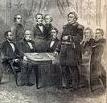
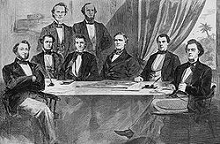


















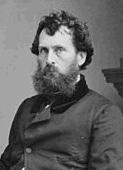
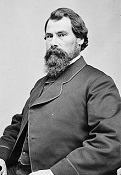
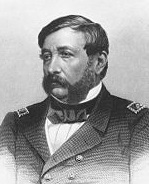


























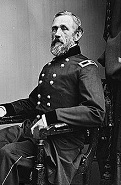


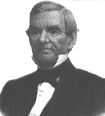







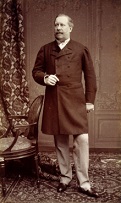























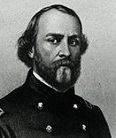





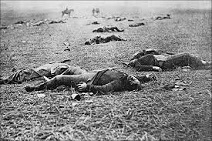
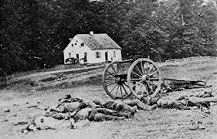
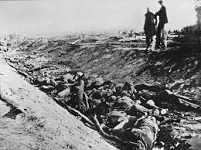


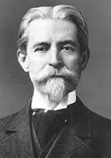
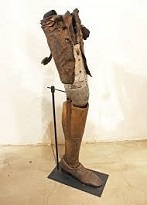

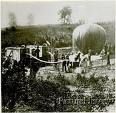
1861 The slave biz in the Am. South is worth $3.5B, the biggest financial asset in the U.S., greater than factories, railroads, etc.; the U.S. Civil War causes women to enter the nursing prof.; so many POWs are taken in the Civil War that they resort to a parole system. The U.S. Civil War causes the pop. of Washington, D.C. to zoom from 60K to 120K, incl. thousands of freed slaves, causing Congress to launch a major building program after the war. On Jan. 1 after defeating conservatives in military engagements last year, Benito Juarez enters Mexico City, then on June 15 is elected by Congress as pres. of the Mexican Repub. for a 6-year term, becoming the first (only?) full-blooded Indio pres.; in July after seeing how the conservatives have emptied the nat. treasury, he announces a 2-year moratorium on all debt payments, adding to the ethnic Spanish-dominated Congress' distrust of him; on Oct. 13 the Convention of London is signed by Britain, France and Spain to force the new Mexican govt. to fulfill the previous regime's obligations, and in Dec. all three land troops in Vera Cruz, ignoring the U.S. Monroe Doctrine because they know it can't be enforced during the U.S. Civil War, and Juarez caves in, reaching a settlement with the British and Spanish, causing them to withdraw, while the French remain, continuing after Juarez with designs of a new Am. empire? Let's start some quick fire? On Jan. 2 Peace Dem. Thomas Francis Bayard (1828-98) of Wilmington, Del. gives a speech with the soundbyte: "With this secession, or revolution, or rebellion or whatever name it may be called, the State of Delaware has naught to do. To our constitutional duties toward each and every member of the Union we have been faithful in all times"; on Dec. 3 Delaware votes not to secede from the U.S. On Jan. 3 as Pres. Buchanan plays ostrich in a vain attempt to avert war, Ga. seizes Ft. Pulaski. On Jan. 4 slave state Ala. seizes the Mount Vernon Federal Arsenal, followed by Ft. Morgan and Ft. Gaines on Jan. 5. On Jan. 5 200 U.S. Army reinforcements led by Lt. (later gen.) Charles Robert Woods (1827-85) leave Governors Island in New York City aboard steamer SS Star of the West, escorted by USS Brooklyn, and arrive in Charleston Harbor on Jan. 8. On Jan. 6 Fla. seizes Apalachicola Arsenal, followed by Ft. Marion in St. Augustine on Jan. 7; an attempt to seize Ft. Barrancas near Pensacola is thwarted on Jan. 8. On Jan. 9 (Wed.) (dawn) the SS Star of the West is fired on as it approaches within 1.75 mi. of Ft. Sumter by S.C. Citadel cadet George E. Haynsworth, becoming the first shot of the U.S. Civil War, after which the artillery bombardment causes them to turn around and head back to New York City, arriving on Jan. 12; the news is purposely delayed in an attempt to avert war fever, and Pres. Buchanan takes no further action to save the fort - I'm pretending mine's a meatball cheeseburger? On Jan. 9 news of the firing on Ft. Sumter cause prices on the New York Stock Board and Exchange to begin dropping, sparking a business downturn which bankrupts scores of New York City firms, throwing thousands out of work and giving employers an excuse to cut wages from an avg. of $1.25 to 85 cents a day. On Jan. 9 slave state Miss. secedes (#2), causing U.S. Sen. Jefferson Davis to resign and return to Miss., receiving a commission as Confed. maj. gen. on Jan. 13, with the soundbytes "I worked night and day for 12 years to prevent the war, but I could not. The North was mad and blind, would not let us govern ourselves, and so the war came", "[Our situation] illustrates the American idea that governments rest on the consent of the governed, and that it is the right of the people to alter or abolish them whenever they become destructive of the ends for which they were established", "All we ask is to be let alone", and "If the Confederacy fails, there should be written on its tombstone: Died of a Theory". On Jan. 10 slave state Fla. secedes (#3). On Jan. 10 slave state La. seizes the federal arsenal at Baton Rouge, along with Ft. Jackson and Ft. St. Philip - oh, I don't have a gun? On Jan. 11 slave state Ala. secedes (#4); Ala. state sen. William Lowndes Yancey writes the Ala. ordinance of secession, and before the war starts Jefferson Davis sends him to Paris and London in an unsuccessful attempt to obtain diplomatic recognition for the Confederacy; Ala. state convention delegate John Tyler Morgan (1824-1907) goes on to become a Confed. Brig. Gen. in 1863; Ala. troops begin to be called Yellowhammers after some of them wear bits of yellow cloth on their upper bodies; Tenn. troops are called Butternuts for their tan uniforms. On Jan. 11 La. seizes the U.S. Marine Hospital in New Orleans, followed by Ft. Pike on Jan. 14. On Jan. 18 slave state Ga. secedes (#5) by a close vote - Georgia belle Scarlett O'Hara loses her beloved Ashley Wilkes to the war, with older but wiser Rhett Butler waiting in the wing chair? On Jan. 18 Pony Express co-founder William Hepburn Russell testifies before a House select committee investigating last year's misappropriation of Indian Trust Fund money and protests his innocence, but is indicted on Jan. 30 along with former U.S. war secy. John B. Floyd and Godard Bailey; the indictment is dismissed in Mar.; Floyd, who opposed secession goes on to raise a brigade of Va. volunteers after the war begins. On Jan. 21 Jefferson Davis of Miss. (married to the daughter of ex-pres. Zachary Taylor) chivalrously resigns from the U.S. Senate along with four other Southerners, but N.C.-born sen. Andrew Johnson (D-Tenn.) remains, opposing secession and winning kudos from Lincoln, causing his political star to rise. On Jan. 23 Robert E. Lee writes a Letter to His Son Custis, with the soundbyte "If the Union is dissolved, and the Government disrupted, I shall return to my native State and share the miseries of my people; and save in defense will draw my sword on none." On Jan. 26 slave state La. secedes (#6) (another close vote). On Jan. 28 the Tennessee Resolutions in favor of the Crittenden Compromise are offered in Congress. On Jan. 29 "Sunflower State", "Jayhawk State" Kansas (Kan.) is admitted as the 34th U.S. (free) state; the geographic center of the continental U.S. is 5 mi. W of Lebanon, Kan.; the first capital is Topeka; on Feb. 9 Charles Lawrence Robinson (1818-94) becomes gov. #1 of Kansas (until Jan. 12, 1863), becoming the first gov. of a U.S. state to be impeached - just as the big fight's about to start? On Jan. 31 a secession convention meets in Austin, Tex., and selects members for the Provisional Confed. Congress. In Jan. 2nd term Tammany Hall Dem. New York City mayor (1860-2) Fernando Wood (1812-81) leads the pro-Confed. Copperheads, asking the city council to declare New York City a free city to allow it to continue its cotton trade with the Confeds., and when they deride him he splits with Tammany Hall to form his own Mozart Hall political machine. The last white pipe dream in America? On Feb. 4 the Provisional Congress of the Confederate States of America (Congress of Montgomery) of the seven seceded states (S.C., Miss., Fla., Ala., Ga., La., Tex.) meets in Montgomery, Ala. (until Feb. 17, 1862), and on Feb. 7 the provisional Constitution of the Confederate States of America is adopted, with Montgomery as the first capital; on Feb. 9 Transylvania U. and West Point grad., U.S.-Mexican War hero, secy. of war (under Pierce) and planter (D-Miss.) Jefferson Finis Davis (1808-89) is elected by six states as provisional pres. of the CSA, with Alexander Hamilton "Little Elick" Stephens (1812-83) of Ga. as vice-pres.; Davis receives the good news while working in his rose garden (ouch, thorns?); (Thomas) Howell Cobb (1815-68) is Confed. Congress speaker, serving as de facto pres. for two weeks until Davis can take office; former U.S. pres. Franklin Pierce writes Davis a letter of support, causing Northerners to label him a traitor; on Mar. 4 the first Confederate flag, the Stars and Bars is adopted; on Mar. 11 the Confederate States of Am. Constitution is adopted (all y'all need to add is nothin'?); on Feb. 25 West Indies-born Sephardic Jewish atty. (U.S. Sen. from La. since 1852) Judah Philip Benjamin (1811-84) resigns to become atty. gen., followed by secy. of war in Sept. (until Mar. 1862) (a Jewish mole to insure that the Confederacy self-destructs, or no big deal since the ancient Jews had slaves?); the first issue of $1M in treasury notes is followed by another $20M in May, and another $100M in Aug; by the end of the war they run the printing presses to churn out over $1B in funny money, causing flour to sell for $425 a barrel. On Feb. 4 U.S. gen.-in-chief Winfield Scott relieves Lt. Col. Robert E. Lee as cmdr. of federal forces in Tex. and stations him in Washington, D.C. to take command of the forces guarding the capital. On Feb. 4-6 the Peace Conference of 1861 called by the Va. legislature meets in the Willard Hotel in Washington, D.C., presided over by former U.S. pres. John Tyler and attended by 21 states. On Feb. 8 Arkansas seizes the federal arsenal at Little Rock, followed on Feb. 12 by the federal ordnance stores at Napoleon. On Feb. 11 the U.S. House of Reps. unanimously passes a resolution guaranteeing non-interference with slavery in any state. On Feb. 11 during a heavy rainstorm amid an umbrella-toting crowd of well-wishers, beard-growing pres.-elect Abraham Lincoln and his wife Mary Todd Lincoln ("Her Satanic Majesty") (whose family is on the Confed. side in the war, and who doesn't want Abe to know how much she splurged in New York City on clothes, or that she accepted lavish gifts of clothes and jewelry, and later freaks at the 1864 election because her hubby's defeat would cause the bills to become due?) departs from Springfield, Ill. on a 12-day Train Trip to Washington, D.C., with the soundbyte that he has "a task greater than Washington", leaving family dog Fido (Tad's pet) behind, keeping silent to reporters on the train, then stopping in Philly on Feb. 22 to give a Speech in Independence Hall, with the soundbyte: "It was that which gave promise, that in due time the weight should be lifted from the shoulders of all men, and all men have an equal chance. If this country cannot be saved without giving up this principle, I would rather be assassinated on this spot than to surrender"; his son Robert Todd Lincoln (future pres. of the Pullman Railroad) spends him time with the train engineers and misplaces the speech, causing fuming Lincoln to have to find it; on Feb. 23 (6 a.m.) after an assassination plot in Baltimore is claimed by detective Allan Pinkerton, he switches trains and arrives in Washington, D.C. secretly on a sleeper car disguised as a capped-cloaked invalid, and is greeted only by Maine-born U.S. Rep. (R-Ill.) (1853-69) Elihu Benjamin Washburne (1816-87), one of the seven Washburne brothers who founded the Repub. Party, after which he slips into Willard Hotel through the ladies' entrance, where he holds meetings in the lobby and conducts business from his room; after the newspapers find about his manner of entry they lampoon him as a coward, making him ashamed of it, and reinforcing his cabinet's low view of his abilities; this set him up to be careless about security and bring on his own assassination? On Feb. 18 Jefferson Finis Davis (1808-89) is sworn-in as the first and only pres. of the brand-spanking new chivalrous white woman-worshiping Confederate States of America (CSA) in Montgomery, Ala. (ends May 5, 1865); boyish sickly 96-lb. Ga.-born Dem. orator ("the Strongest Man in the South") Alexander Hamilton "Little Elick" Stephens (1812-83) becomes its first and last vice-pres.; they are both elected for 6-year terms; "Dixie" is played at the inauguration, pissing-off black New Yorker composer Daniel Decatur "Dan" Emmett (1815-1904). On Feb. 27 the U.S. Congress authorizes the first stamped newspaper wrappers for mailing. On Feb. 28 the South-free U.S. Congress, itchy to get its hands on gold and other mineral resources creates the Colorado Territory (until Aug. 1, 1876), followed on Mar. 2 by the Dakota Territory (until Nov. 2, 1889), and the Nevada Territory (until Oct. 31, 1864); Colorado was originally to be called Idaho, a word suggested in 1860 by lobbyist George M. Willing, who claims it was an Indian word meaning "gem of the mountains", but is discovered to be a hoax just in time (the original Hugo Weaving as Agent Smith?); Carson City, named by founder Abraham Curry after aging Kit Carson beats out the more populous Virginia City to remain the capital of silver-rich Nevada; meanwhile engineer Philip Deidesheimer (1832-1916) comes up with a better idea to stop silver mine cave-ins in Nev., the Square-Set Method of timbering, based on the honeycomb, beginning in the Ophir mine - the Cartwright boys are wowed? On Mar. 2 the Crittendon Compromise is narrowly rejected by the U.S. Senate on Mar. 2 after the radicals rattle their sabers; early on Mar. 4 (inauguration day) the Corwin Amendment (which is actively supported by Lincoln, who instructs N.Y. Sen. William Seward to push it through the Senate), guaranteeing slavery where it already exists passes the Senate 24-12, having already passed the House on Mar. 2; Lincoln endorses it in his first inaugural address, and sends letters to each state gov. transmitting the amendment for ratification, noting that Pres. Buchanan also endorses it; it is never ratified by the states because of the disruption caused by the war, but if it had been it would have been the Thirteenth Amendment instead of the anti-slavery one of 1865 - you mean the CSA coulda won without firing a shot? On Mar. 2 taking advantage of the exodus of Southerners, the U.S. Congress passes the first of three Morrill Acts as a replacement of the Tariff of 1857 to boost tariff rates to an avg. of 47%; duties on tea, coffee, and sugar are subsequently increased as a war measure; the U.S. keeps trade protection until the 1913 Underwood Tariff. On Mar. 2 taking advantage of the exodus of Southerners, the U.S. Congress passes the first of three Morrill Acts as a replacement of the Tariff of 1857 to boost tariff rates to an avg. of 47%; duties on tea, coffee, and sugar are subsequently increased as a war measure; the U.S. keeps trade protection until the 1913 Underwood Tariff. The Russian tsar beats Abe Lincoln in emancipating his slaves by one day plus plus? On Mar. 3 after years of haggling with his nobles, Tsar Alexander II's Act of Emancipation completes the emancipation of 20M Russian serfs begun in 1858, effective Mar. 5, with the soundbyte "I should rather liberate them from the top than wait until they liberate themselves from the bottom"; too bad, he institutes lame reforms, allotting land to village communes (mirs), and making them make 49 years of "redemption" payments, resulting in each former serf only getting half of the land he used to cultivate, and forever unable to raise enough food to afford the payments; one-third have no horses, and another third have only one horse; most still use wooden plows, harvest crops with sickles or scythes, and thresh with hand flails. Good morning, it's time to taste a brand-new day, or, Stick with the home team? On Mar. 4, 1861 (Mon.) after detective Allan Pinkerton smuggles him into the Willard Hotel for his safety on Feb. 23, where he holds meetings in the lobby and conducts business from his room, 6'4" (tallest pres.) Ky.-born (from Ill.), AKA "Honest Abe", "the Rail-Splitter", "the Flatboatman", "the Sage of Springfield", "the Uncommon Friend of the Common Man", "the Great Emancipator", "the Abolition Emperor", "the Liberator", "King Linkum the First" (for his habit of locking political opponents up), "the Illinois Ape", "the Original Gorilla", "the Orangutan in the White House" (from his uncouth looks and behavior), "the Slave Hound from Illinois" (given him by William Lloyd Garrison, who calls him soft on slavery), "Father Abraham", "Uncle Abe", "the Ancient One" (for his ancient wisdom), "the Sectional President", "the Tycoon" (for his fast buildup of the Civil War admin.) Abraham Lincoln (1809-65) becomes the 16th U.S. pres (until 1865) in the 21st U.S. Pres. Inauguration in Washington, D.C. (featuring uniformed sharpshooters on every rooftop, incl. the unfinished U.S. Capitol Dome), becoming the first pres. born outside the original 13 colonies, and the first to own a cat (Hayes, McKinley, Wilson, JFK) (favorite song "Jimmy Crack Corn"?); Hannibal Hamlin (1809-91) becomes the 15th U.S. vice-pres.; this year and next the U.S. has six living presidents (Van Buren, Tyler, Fillmore, Pierce, Buchanan, Lincoln, plus rebel pres. Davis) (only Lincoln is of the new Repub. Party); at the inauguration a guest steals silver and furnishings; Very Odd First Lady Mary Todd Lincoln (1818-82) likes to be called "Mrs. President Lincoln", and buys 300 pairs of gloves in a 4-mo. period; Lincoln's First Inaugural Speech contains many suggestions by William H. Seward, promising to hold onto Union possessions in the South, and characterized by a belief that the Confederacy will dissolve somehow on its own when the Southerners come to their senses, because the U.S. can become the greatest nation on Earth if it stays together; "This country, with its institutions, belongs to the people who inhabit it. Whenever they shall grow weary of the existing government they can exercise their constitutional right of amending it, or their revolutionary right to dismember it or overthrow it... I hold that... the Union of these states is perpetual... In your hands, my dissatisfied fellow countrymen, and not in mine, is the momentous issue of Civil War... We are not enemies, but friends. We must not be enemies. Though passion may have strained it must not break our bonds of affection. The mystic chords of memory stretching from every battlefield and patriot grave... will yet swell the chorus of the Union, when again touched, as surely they will be, by the better angels of our nature"; as Lincoln speaks, a Confederate flag is hoisted in Charleston, S.C. by a cheering crowd; at first Washington, D.C. is almost defenseless, with an armed guard of civilians guarding the White House, while Lincoln mumbles "Why don't they come?"; Buchanan retires to his Penn. home despondent over seven states already gone from the Union; Lincoln's cabinet: William Henry Seward Sr. (1801-72) (beardless) (state) (until Mar. 4, 1869), Ohio Sen. Salmon Portland Chase (1808-73) (beardless) (treasury) (until June 30, 1864), Simon Cameron (1799-1889) (beardless) (war) (until Jan. 14, 1862), Gideon Welles (1802-78) (bearded) (Navy) (until Mar. 4, 1869), Caleb Blood Smith (1808-64) (beardless) (interior) (until Dec. 31, 1862), St. Louis, Mo. judge Edward Bates (1793-1869) (bearded) (atty. gen.) (until Nov. 24, 1864), Montgomery Blair (1813-83) (beardless) (postmaster gen.) (until Sept. 24, 1864); big men Seward and Chase find it hard to accept Lincoln as pres., Seward saying "I, who by every right ought to have been chosen President, what am I now? Nothing but Abe Lincoln's little clerk!"; as soon as 11 Southern Senators are expelled from Congress, the Repubs. fulfill their campaign promises by passing a new higher tariff for the protection of Northern industry, followed next year by a homesteading act to please Westerners; secy. of war Simon Cameron immediately begins advocating the arming of fugitive slaves, but Lincoln nixes it; in Mar. Frederick Douglass pub. a Critique of Lincoln's Inaugural Address, complaining about Lincoln's decision to not interfere with the institution of slavery in the South, comparing the way he snuck into Washington D.C. with fugitive slaves, and calling Lincoln's acknowledgment of the South's "right of property" in slaves "weakness... and conciliation towards the tyrants and traitors"; Mary Todd Lincoln lavishly redecorates the White House, overspending her $20K Congressional appropriation by $10K, then engaging in budget fraud to keep her hubby from knowing about it, after which the Congress buries the difference in next year's appropriations bill. On Mar. 4 slave state Tex. secedes (#7) after 104 of 122 counties vote for it,; on Mar. 16 Gov. Sam Houston refuses to swear allegiance to the CSA and is deposed as he allegedly sits in the basement of the state capitol silently whittling on a stick while the convention above loudly calls him to renounce the Union. On Mar. 4 the U.S. Army has 13,024 officers and men. On Mar. 4 the U.S. Govt. Printing Office is founded in Washington, D.C. via a Congressional resolution of June 23, 1860, starting out with 350 employees and growing to 8.5K in 1972 before decreasing to 1.9K in 2019; on Dec. 17, 2014 the name changes to U.S. Govt. Pub. Office. On Mar. 4 Pres. John Quincy Adams' son Charles Francis Adams Sr. (1807-86) (U.S. Mass. Rep. since Mar. 4, 1859) becomes U.S. ambassador to the U.K. (until May 13, 1868), writing the soundbyte in a letter to secy. of state William H. Seward: "That Great Britain did, in the most terrible moment of our domestic trial in struggling with a monstrous social evil she had earnestly professed to abhor, coldly and at once assume our inability to master it, and then become the only foreign nation steadily contributing in every indirect way possible to verify its judgment, will probably be the verdict made against her by posterity, on calm comparison of the evidence"; N.Y.-born John Bigelow (1817-1911) becomes U.S. consul in Paris, rising to U.S. ambassador to France in 1865, working with Adams to block France and Britain from intervening in the U.S. Civil War on the Confed. side. On Mar. 5 (first day in office) Pres. Lincoln receives a letter from Ft. Sumter telling how the troops are starving. On Mar. 6 the Confed. Congress requires all volunteers for the mounted service to furnish their own horses, and promises them 40 cents a day for upkeep - come to the good feet store? On Mar. 16 Arizona Territory secedes; meanwhile gold is discovered in the N sector near modern-day Prescott, where mountain men Capt. Joseph R. Walker (1798-1876) and Paulino (Pauline) Weaver (1797-1867) blaze the trail and have mining districts named for them; former Calif. miner King Samuel Woolsey (1832-79) founds the Agua Caliente Ranch in S Ariz. 80 mi. from Yuma, gains fame when he stops an Apache attack with a shotgun and kills the leader, then hangs him on a mesquite tree, as reported by Irish-born John Ross Browne (1817-75) in Harper's Monthly, decides to join the Confed. Army, gets sick, and turns to selling supplies to the Union Army, getting rich; in 1863 he founds Agua Fria Ranch (14 mi. E of Prescott), and builds the first ranch house in N Ariz. to protect it against Haitian attacks (ends 1865). On Mar. 21 CSA vice-pres. Alexander Stephens delivers his Cornerstone Speech in Savannah, Ga., saying that the U.S. was created on the false idea that all men are created equal, whereas the CSA "is founded upon exactly the opposite idea: its foundations are laid, its cornerstone rests, upon the great truth that the negro is not equal to the white man; that slavery, subordination to the superior race, is his natural and moral condition. This, our new government, is the first in the history of the world based on this great physical, philosophical, and moral truth" - they lost the minds and hearts of smart people right there? This noise is unacceptable, or, Ay, Oy, let's go? The War Across Five Aprils starts when something small gets blown out of proportion in a high-strung environment? The first 100 days of the U.S. Civil War are a mixture of cocksureness and uncertainty? On Apr. 6 after rejecting Gen. Winfield Scott's recommendation to give up pesky undermanned (less than 100 men) Ft. Sumter because it would take 20K troops and a whole fleet to reinforce it, and would start a bloody war that would destroy the U.S. after driving four more states out of the Union, and rejecting secy. of state Seward's plan to evacuate it while he leaks news of it to the press along with assertions to the Confeds. that he will soon be in charge of foreign policy, and all but two cabinet members recommending surrender on Mar. 16, Pres. Lincoln informs S.C. Gov. Francis Wilkinson Pickens (1805-69) that a naval expedition is being to sent to reprovision the hungry garrison, with Lincoln uttering the soundbye that if the rebels fire on ships carrying food to hungry men, they will take all the blame for the war, forcing the Confeds. to fire the first shot and become the aggressors to have their bloody war, leaving the Union the moral high ground; on Apr. 11 after being sanctioned by Gov. Pickens, the Confederates under La. Creole Gen. Pierre Gustave Toutant Beauregard (1818-93) (former supt. of West Point, who had been Robert Anderson's student there) demand surrender, and then fire at 4:30 a.m. on Apr. 12 (Fri.) (not Friday the 13th?) from Ft. Johnson on James Island, followed by crossfire from Sullivan's Island (long-time final destination for African slaves surviving the Middle Passage) and Morris Island; white-haired Va. planter and pro-slavery fire-eating agitator Edmund Ruffin (1794-1865) dresses in a Palmetto Guard uniform and is given the honor of firing the first shell; artillery Capt. (West Point grad.) Abner Doubleday (1819-93) (alleged inventor of baseball) fires the first Union shot, and is later promoted to gen. (batter up?); on Apr. 13 after 30 hours, with his ammo exhausted, Maj. Robert Anderson agrees to surrender, lowering its flag on Apr. 14 (Sun.); 3K+ shells hit Ft. Sumter, and there are no fatalities until two Union soldiers are killed in an explosion during a final 100-gun salute to the colors; the first Union soldier killed is Pvt. Theodore Winthrop (b. 1828), whose ms. for a novel is pub. and becomes a bestseller; the 2nd is Union pvt. Daniel Hough; on May 15 big hero Anderson is promoted to brig. gen., participating in the largest public gathering in North Am. to date, a patriotic rally in New York City, after which he goes on a recruiting tour then becomes cmdr. of border state Ky. until retirement on Oct. 6, being replaced by William Tecumseh Sherman; after the Confeds take Ft. Sumter they pad it with bales of cotton; the U.S. (Am.) Civil War begins (ends May 9, 1865), which the Confeds. prefer to call the War Between the States, the War of Northern Aggression, or something even more unbiased; it ends up causing 10.5K battles in 33 U.S. states, of which 384 are considered major; at the start, Southerners owe Northerners $300M; Southerners who sympathize with the Union cause become known as "Scalawags" (useless farm animals); in Apr. the 10-y.-o. New York Times begins pub. Sunday eds. to capitalize on interest in the Civil War; Lincoln can see rebel flags flying over Alexandria, Va. across the Potomac from Washington, D.C.; British public opinion on the war is divided, with the aristocracy pro-South, and the working class pro-North despite the loss of Southern cotton throwing thousands of cotton factory workers out of work - regular or quilted brand? On Apr. 12 Jefferson Davis objects to a proposed bill to appropriate funds for education of blacks in Washington, D.C., with the soundbytes: "This government was not founded by negroes nor for negroes, but by white men for white men"; "When Cain, for the commission of the first great crime, was driven from the face of Adam, no longer the fit associate of those [Whites] who were created to exercise dominion over the earth, he found in the land of Nod those [Blacks] to whom his crime had degraded him to an equality"; "[Racial inquality] is the will of God [as] marked in decree and prophecy" [and as] confirmed by history." "The inequality of the white and black races was stamped from the beginning" of the Am. republic. On Apr. 14-15 Lincoln, having only a 13K-man regular army strung across the continent vs. at least that many Confed. volunteers calls for 75K Union volunteers for 90-day service under a 1795 act of Congress stating that militia can be called by the pres. "to repossess the forts, places and property which have been seized from the Union", but that the term of service cannot extend beyond 30 days after the next meeting of Congress; Lincoln declares that the insurrection is "too powerful to be suppressed by the ordinary course of judicial proceedings"; this call looks like coercion to four Southern border states (Va., Ark., N.C., Tenn.), who quickly secede, bringing the total to 11, with four slave states (Del., Ky., Md., Miss.) (all but Del. having strong Southern sympathies) remaining in the ungluing Union; ex-pres. John Tyler is a delegate at the Va. secession convention; N.C. ends up supplying the most troops of any Confed. state; the Union promotes a number of fossilized captains and colonels to Peter Principle gens., and in the first weeks several Union soldiers desert for the other side. On Apr. 17 slave state Va. secretly secedes (#8), causing rumors of an impending attack on Washington, D.C., causing the 50-man Kansas Frontier Guards, organized by U.S. Kan. Sen. James H. "Jim" Lane to be stationed in the East Room of the White House on the eve. of Apr. 18, only to be dismissed on Apr. 19 as fresh Union troops arrive, assigned to guard various positions in the city until Pres. Lincoln officially disbands them in a ceremony on Apr. 25. On Apr. 17 Pres. Lincoln asks Repub. Party co-founder Francis Preston Blair Sr. (1791-1876) (who initially backed Edward Bates at the 1860 Repub. Pres. Convention then backed him) to offer Col. Robert E. Lee command of the Union Army, causing Lee to visit Blair on Apr. 18 in Lafayette Square across from the White House, declining with the soundbyte: "Mr. Blair, I look upon secession as anarchy. If I owned the four millions of slaves at the South, I would sacrifice them all to the Union, but how can I draw my sword upon Virginia, my native State?"; in 1862 Blair frees his slaves, but all but one refuse to go. On Apr. 19 the Confederates occupy Harper's Ferry, Va., while John Brown's body turns over in its grave? All Hail Caesar? The original Executive Orders, by Roger Taney? On Apr. 19 the Baltimore Riot in Md. kills both federal troops and civilians, becoming the scene of the first casualties of the war, causing Pres. Lincoln on Apr. 27 to order Gen. Winfield Scott to suspend the writ of habeas corpus in Md. in violation of the U.S. Constitution, Art. 1 Sec. 9. On Apr. 25 the 7th N.Y. "Silk Stocking" Regiment AKA the Blue-Bloods (known for signing-up New York City social elite) becomes the first Union unit to reach Washington, D.C. to defend it. On Apr. 27 West Virginia (W. Va.) (AKA Kanawha) secedes from Va. after delegates of 40 western counties meeting in Wheeling, provisional capital of the pro-Union Restored Govt. of Va. (founded 1861) decide to bug out of the Confederacy, becoming the only U.S. state formed as a political consequence of the U.S. Civil War; Wheeling becomes the capital until 1865, followed by Charleston. On Apr. 29 the Md. House of Delegates votes against secession, even though it is a slave-holding state - the South lost the war right there? First Blood, Eye of the Tiger, or, Welcome to Low's, May I Help You? The Devil needs a spark to set off the tinderbox, and he finds a Hell's worth of them? On Apr. 29 the Fire Zouaves (11th Regiment, N.Y. Volunteers), composed of 1K firefighters with no military training leave New York City for Annapolis aboard the steamship Baltic; Elmer Ephraim Ellsworth (1837-61) (family friend of the Lincolns) resigned as a 2nd Lt. in the U.S. Army after the Apr. 12 firing on Ft. Sumer to return and organize them, and is elected col., then raises $60K to arm them with Sharp's rifles and 16-in. bayonets, and outfit them in chic Zouave gray unforms with red shirts and fezzes; too bad, on May 24 Ellsworth spots a Confederate flag flying from a 3-story hotel in Alexandria, Va., dashes in with seven others to pull it down, and is shot dead by secessionist hotel proprietor James W. Jackson, becoming the first Union official KIA in the U.S. Civil War; Union Sgt. Francis E. Brownell (1840-94) then shoots and kills Jackson with his Model 1855 Percussion Rifle, earning the nickname "Ellsworth's Avenger", and Pres. Lincoln later his promotion papers; Big Hero Ellsworth's body lies in state in the East Room of the White House on May 25, is taken to New York City by special train on May 26 and viewed by 10K at City Hall, then taken to the state capitol in Albany and displayed before being taken to Mechanicsville for burial; the name Ellsworth becomes popular for naming Union streets and towns, and in 1877 he is awarded a Medal of Honor for first blood of the war; pressure is put on Lincoln to avenge Ellsworth's death by taking Richmond, leading to First Bull Run in July. In Apr. at the time of Ft. Sumter the U.S. Navy has only 28 steam-powered ships, and steam ship expert Benjamin Franklin Isherwood (1822-1915) is appointed engineer in chief, going on to oversee construction of a fleet of 600 you know whats by 1864; meanwhile all but three of the officers at the Washington Navy Yard (cannon expert John Dahlgren and two others) resign at the outbreak of hostilities due to Confederate sympathies, along with the first supt. of the U.S. Naval Observatory (since 1842) Matthew Fontaine Maury (1806-73), who goes on to supervise costal defenses for the Confeds. and perfect an electric torpedo (contact mine) that messes up Union shipping throughout the war; on May 9 New York City shipbuilder John Englis & Sons launch the Unadilla, becoming the first gunboat built for the U.S. Navy after the firing on Ft. Sumter. In Apr. a newspaper in Petersburg, Va. contains an article calling for "three cheers for the patriotic free Negroes of Lynchburg, saying that 70 had volunteered to defend Va. from the Yankees; 1.6K free blacks organize into 16 cos. to fight in Va. On May 6 slave state Ark. secedes (#9). On May 6 slave state Tenn. secedes (#10). On May 8 Richmond, Va. is named capital of the Confederate States of Am. On May 10 after new (since Jan. 3) Ky.-born Dem. Mo. gov. #15 Claiborne Fox Jackson (1806-62) (a Southern sympathizer pro-slavery Dem. who rejected Lincoln's Apr. 15 request for soldiers to fight the rebels, calling it "illegal, unconstitutional, revolutionary in its object, inhuman and diabolical") calls out the Mo. State Guard to engage in "training exercises" in St. Louis, planning on seizing the well-stocked federal armory (60K muskets plus balls and powder), Union Capt. Nathaniel Lyon (1818-61), in command of Co. D, 2nd U.S. Infantry, a busy beaver who dressed up as a woman to spy on them and learned their plans, organized his own fifth column of Wide Awakes (anti-slavery German immigrants) to beat him to it, then seized the arsenal on Apr. 26 and armed them, shipping the rest of the weapons to Ill., surprises and arrests the State Guard and marches them through St. Louis, causing the St. Louis Massacre (Camp Jackson Affair) on May 10 as Lyons' troops fire on an angry crowd, killing 28 and injuring 90; on May 11 pissed-off Mo. gov. Jackson organizes a new Mo. State Guard to resist a Union invasion of Mo., causing Union Army Dept. of the West cmdr. Gen. William Selby Harney (1800-89) on May 21 to fold and sign the Price-Harney Truce, acknowledging Mo.'s policy of armed neutrality; too bad, after Radical Repub. Capt. Nathaniel Lyon tips off Lincoln, on May 30 he replaces whimp Harney with man's man Lyon, promoting him to brig. gen. - a good Western man loves his steak and potatoes? On May 13 British Queen Victoria issues a "proclamation of neutrality" which recognizes rebel states as having belligerent rights. On May 20 Ky. proclaims its neutrality. On May 20 slave state N.C. secedes (#11). On May 24 after Robert E. Lee is offered command of the Army of Va. following a meeting in the yard of Christ Church, his town of Alexandria, Va. is occupied by Union forces and used as a supply depot; slaves use it to escape to the North; it becomes the longest-occupied city of the Civil War; on Apr.' 28 John Gross Barnard (1815-82) becomes chief engineer of the Dept. of Washington, overseeing fortifications on the Arlington hills, becoming chief engineer of the Army of the Potomoc on Aug. 20 (until Aug. 16, 1862) and receiving a promotion to brig. gen. from Pres. Lincoln on Sept. 23. On May 25 U.S. Army troops arrest secessionists John Merryman (1824-81) (later Md. state treasurer) et al. for suspected disloyalty for obeying orders from the gov. of Md. to prevent Penn. troops from reaching Baltimore to prevent the riots by burning railroad bridges and tearing down telegraph poles; after they are imprisoned in Ft. McHenry without charges, Merryman's attys. petition the federal circuit court at Baltimore for a writ of habeas corpus, and Southern-leaning Chief Justice Roger B. Taney travels to Baltimore and issues the writ on May 26, then, after the military refuses, issues a ruling on May 28 that only Congress has the right to suspend the writ of habeas corpus; pissed-off Lincoln then tells him to piss off, and pro-Repub. newspapers denounce Taney, while legal scholars are divided, not being eloquent enough to come up with the later soundbyte "the Constitution is not a suicide pact"?; on July 4 Lincoln addresses a special session of Congress defending his decision, asking: "Are all laws, but one, to go unexecuted, and the government itself go to pieces lest that one be violated?"; Taney fears his own arrest, but stands his guns, and Merryman is released after seven weeks confinement and indicted for treason, and his case never comes to trial because the feds know that no Md. jury will convict him; meanwhile Powermad Lincoln takes over Md., getting the mayor of Baltimore, chief of police, police commissioner, 31 members of the legislature, several congressmen, judges, and newspaper reporters held at Ft. McHenry without charges. On May 29 after being appointed by Pres. Lincoln, Wilmington, Del.-born Quaker William Gilpin (1813-94) arrives in Denver, Colo. to cheering crowds, dealing with Confed. sympathizers, a possible Confed. invasion, and difficulties with the Arapaho and Cheyenne after U.S. Army troops withdraw to fight the war, forming the troops withdraw to fight the war, forming the 1st Regiment Colo. Volunteers; too bad, he pays for it by issuing $375K in drafts on the U.S. Treasury without authorization, causing a recall movement to form in the summer, but the regiment later gains fame and the treasury eventually honors the drafts, but too late to prevent Gilpin being removed next Apr. in favor of John Evans. On May 29-June 1 the Battle of Aquia Creek sees Union gunboats exchange fire with Confed. shore batteries at the confluence of the Potomac River and Aquia Creek in Stafford County, Va., resulting in a push; on July 7 (Sun.) the Confeds. lay their first naval mines to protect their shore batteries, which are abandoned on Mar. 9, 1862 during the Union's Peninsula Campaign. In May after three slaves escape from the plantation of Charles Mallory to Ft. Monroe in E Va., and Mallory demands that they be returned as his property, Union Gen. Benjamin Franklin Butler (1818-93) (former Mass. state legislator) declares fugitive slaves turning up in his Army camp to be "contraband of war", and puts them to work on fortifications. In May the British foreign minister receives the first Confed. emissaries informally in London, who then go to France, getting French king Napoleon III to promise to recognize the Confederacy if the British do it first; they return to London, only to be snubbed by the foreign minister. In May the CSS Sumter, the first Confed. warship for breaking the blockade is commissioned, followed next year by the CSS Florida and the CSS Alabama; altogether 18 ships are built by the British for Confed. use despite British law, and the Florida takes 38 Union prizes, while the Alabama takes 64; meanwhile the British Royal Navy obtains permission to search U.S.-flag vessels suspected of carrying slaves after the U.S. Congress flip-flops on the infringement of U.S. sovereignty. In May the Confed. govt. closes the U.S. mints in New Orleans, La., Charlotte, N.C., and Dahlonega, Ga.; the New Orleans Mint reopens in 1879 and closes in 1909. On June 1 the U.S. Post Office Dept. discontinues operations in the Confederacy, and the CSA Post-office Dept. takes over, headed by Sevier County, Tenn.-born John Henninger Reagan (1818-1905) (U.S. rep. from Texas from Mar. 4, 1857 to Mar. 3, 1861) (the only member of Davis' cabinet from W of the Mississippi River), who sends his agent to Washington, D.C. to ask the head of each bureau to come work for him, which nearly all do, after which he cuts costs and makes it the first (only) post office dept. in U.S. history to pay its own way; after making a run from Richmond with Davis on Apr. 2, 1865, being appointed secy. of the treasury by Davis on Apr. 27, and captured with him near Irwinville, Ga. on May 10, spending 22 weeks in solitary in Ft. Warren in Boston, Mass., he writes an open letter to fellow Texans on Aug. 11 urging them to cooperate with the Yankees to avoid unduly harsh military rule, pissing them off but later becoming known as "the Old Roman" (Texan Cincinnatus), going on to becomes a U.S. Dem. sen. from Tex om Mar. 4, 1887 to June 10, 1891; too bad, on Aug. 21, 2017 his statue at the U. of Tex. at Austin is taken down amidst the wave of Confed. monument removals. On June 3 Stephen A. Douglas (b. 1813), "the Little Giant" dies of typhoid fever in Chicago, leaving leaderless those Northern Dems. supporting a war for the "Union as it was"; meanwhile War Dems. Sen. Andrew Johnson and secy. of war Edwin M. Stanton fully support Lincoln, while a Peace Wing of the Repub. Party seeks an end to the fighting, even at the risk of Union; the Copperheads in Ohio, Ind. and Ill. flirt with outright disloyalty, causing Lincoln to begin arresting "disloyal" more persons, claiming the power to suspend the writ of habeus corpus. On June 3 Stephen A. Douglas (b. 1813), "the Little Giant" dies of typhoid fever in Chicago, leaving leaderless those Northern Dems. supporting a war for the "Union as it was"; meanwhile War Dems. Sen. Andrew Johnson and secy. of war Edwin M. Stanton fully support Lincoln, while a Peace Wing of the Repub. Party seeks an end to the fighting, even at the risk of Union; the Copperheads in Ohio, Ind,. and Ill. flirt with outright disloyalty, causing Lincoln to begin arresting more "disloyal" persons, claiming the power to suspend the writ of habeus corpus. On June 3 the Battle of Philippi (Philippi Races) in Barbour County, Va. (later W. Va.) (Union V) becomes the first land action of the war, followed by the Battle of Big Bethel, Va. (near Newport News) (Confed. V) on June 10, and the Battle of Rich Mountain, Va. on June 11 (Union V), which give the Union control of NW Va.; new Confed. Churchville, Va. cavalry recruit James Edward Hanger (1843-1919) is hit with the "first solid Union cannon shot of the war" in the leg in a stable in Philippi, requiring a leg amputation above the knee, becoming the first battlefield amputation of the U.S. Civil War, at the hands of Union surgeons; after returning home, he builds a prosthesis from barrel staves, rubber, and wood, with hinges at the knee and foot, becoming known as the Hanger Limb, which receives U.S. Patent #155 on Mar. 23, 1863 (first patent for an artificial limb), after which he founds Hanger Inc., which grows to 640 offices in 45 states and Washington, D.C. by modern times, doing $600M/year (35% of the prosthetic and orthotic services market). On June 9 after Druse tribesmen massacre Christian Mennonites, Napoleon III sends French troops to Lebanon, and the country is separated from Syrian admin. and reunited under an Ottoman gov. with the approval of European powers; Christians begin to dominate Lebanon. Women get the dirty jobs in the war? On June 9 the U.S. Sanitary Commission is created by secy. of war Simon Cameron as an outgrowth of the Ladies Central Relief, founded Apr. 25 by Dr. Elizabeth Blackwell (1821-1910) (first female M.D. in the U.S., 1849); the first dir. is New York Central Park designer Frederick Law Olmsted; meanwhile former schoolteacher Clarissa "Clara" Harlowe Barton (1821-1912), quits her job at the U.S. Patent Office to distribute food and supplies sent by families in Mass. to troops stationed in Washington, D.C., and after seeing that wounded soldiers from the First Battle of Bull Run brought to the Potomac docks are dying for want of prompt medical attention, she gains permission to pass through the battle lines and nurse them, battling the traditional ho image and going on to become known as "the Angel of the Battlefield", raising thousands of dollars to buy food and medicine for Union troops, and creating facilities for recovering their lost baggage; meanwhile Dorothea Dix (1802-87) (don't be a dix teaser?) is appointed Union Army supt. of 3K women war nurses, incl. novelist Louisa May Alcott; black women, incl. Harriet Tubman (Araminta Ross) (1822-1913) and Susie King Taylor (1848-1912) serve as war nurses in the Sea Islands; on the Confed. side "Capt." Sally Louisa Tompkins (1833-1916) of Richmond, Va. (only commissioned woman in the Confed. Army) gains fame for saving 1,260 out of 1,333 wounded men in a private hospital with only six other nurses; not that all woman want to smell rank body fluids; over 400 women disguise themselves as men to fight in the war, and dozens work as spies, while thousands travel with the army cooking, writing letters, and hooking; by the end of the war many Southern women get over their lifetime coddling and become self-reliant after being forced to manage their plantations without men, and go on to face life as widows, spinsters, and orphans (and lesbians?), who prefer to work outside the home - like Scarlett O'Hara? On June 11 new Army of the West cmdr. Brig. Gen. Nathaniel Lyon does Lincoln right by threatening Mo. gov. Claiborne Fox Jackson with war, uttering the soundbyte: "I would see you, and you, and you, and you, and every man, woman and child in the state dead and buried", walking out of a meeting with him and having him forcibly escorted out of St. Louis, beginning a campaign to capture the Mo. state govt., capturing Jefferson City on June 13 after the state govt. flees to Booneville; on June 17 Lyon leads a Union force of 2K to defeat a larger force of Mo. Confed. volunteers under Maj. Gen. Sterling "Old Pap" Price (1809-67) and Col. John Sappington Marmaduke (1833-87) at the Battle of Booneville on the Missouri River 25 mi. W of Columbia (at which the green ill-equipped Confeds. begin running after 20 mi., causing the Yankees to call the battle the "Booneville Races"), denying the many Southern sympathizers in the Missouri River Valley any hope of linking up with the Confederacy, and taking the state out; after Jackson and Price retreat to SW Mo., disgusted Marmaduke resigns from the Mo. militia and heads for Richmond, Va., where he joins the real Confed. army, working his way up to Maj. Gen. On June 24 goldilocks George Armstrong Custer (1840-76) graduates at the bottom of his West Point class, and is commissioned a 2nd Lt. in the 2nd (later the 5th) Cavalry; in 1863 at 23 he becomes the youngest U.S. gen. to date - forget that book work, just give me a horse and I'll lead them to victory with my cahones? On June 27 after installing artillery on May 1 on Mathias Point in King George County, Va. to blockade the Potomac River, causing a flotilla led by Union steamer Thomas Freeborn to bombard it, Confed. troops mortally wound its cmdr. James Harmon Ward (b. 1806), who becomes the first Union naval officer KIA in the U.S. Civil War. In the summer William David Porter (1808-64), son of commodore David Porter (who was court-martialed in 1826 then became CIC of the Mexican Navy) is put in charge of establishing the Western Flotilla to seize and control the Mississippi River for the Union, and he names his ship Essex in honor of his daddy's War of 1812 ship. By July 1 there are 30K green recruits in and about Washington, D.C. under the command of 75-y.-o. Mexican War veteran Gen. "Fuss and Feathers" Winfield Scott. On July 4 a new U.S. flag with 34 stars (design #16), which now incl. Kansas is adopted by Congress - talk about optimism? On July 4 Mary Todd Lincoln shows off the new redecorated White House by throwing a lavish party, which is a hit, gaining her praise from some newspapers and damnation from others. On July 5 the Battle of Carthage (Dry Fork) in Carthage, Mo. is a Confed. V. On July 5 (night) British legation first secy. Laurence Oliphant (1829-88) (Lord Elgin's private secy. on his expedition to China and Japan) is attacked by Japanese ronin in Edo, and is severely wounded after one swings a heavy 2-handed sword at him and a beam interferes with it. On July 14 Smithfield, R.I.-born Union Army Col. Sullivan A. Ballou (b. 1829) writes a Lettter to Sarah Ballou about his reasons for laying down his life for the Union, becoming famous; "I know how strongly American Civilization now leans upon the triumph of the Government, and how great a debt we owe to those who went before us through the blood and suffering of the Revolution. And I am willing—perfectly willing—to lay down all my joys in this life, to help maintain this Government, and to pay that debt"; he dies on July 29 from wounds sustained in the First Battle of Bull Run. On July 18 an army led by former (1845-9) New Granada pres. (conservative turned liberal) Gen. Tomas Cipriano de Mosquera y Arboleda (1798-1878) (nicknamed "Moscachochas" for a metal face prosthesis he wears from 1824 war wounds) captures Bogota, and Mosquera proclaims himself as pres. of New Granada (Grenadine Confed.) (until Feb. 4, 1863), going on to expropriate church lands. Let's take care of our summer air? The Big First 100 over, the last chance to bail out of a holocaust is missed when the gray toreadors wave a red flag in front of the blue bulls, who are all green? On July 20 (Sat.) the Congress of the Confederate States of Am. (CSA) begins holding sessions in Richmond, Va.; meanwhile Pres. Lincoln orders green Gen. Irvin McDowell (1818-85) (never commanded before) to lead his 39K troops (30K new recruits) from Washington, D.C. into Va. to seize the Manassas railroad junction 30 mi. to the SW; when McDowell tells Lincoln that his troops are too green, Honest Abe replies, "You are green, it is true, but they are green, also; you are all green alike"; the Union troops march on foot, arriving hot and exhausted, many suffering heat stroke, while the rebel troops become the first to be transported by trains to a battle site, arriving well rested; meanwhile many wives of the green Union troops ride out in their carriages with picnic lunches to watch the fun; on July 21 (Sun.) the First Battle of Bull Run (First Bull Run) (Battle of First Manassas) on the Manassas Plains near Bull Run Stream in Prince William County, Va. is a rousing V for 32K Confeds. under Col. Pierre Beauregard (promoted to gen. after the battle), with the able assistance of Brig. Gen. Joseph Eggleston "Joe" Johnston (1807-91), who is superior in rank to Beauregard but defers due to lack of familiarity with the terrain; it begins with 30 lb. Union cannon fire near Manassas railway junction across the Potomac River, after which the rebels fall back under an initial assault by superior Union forces, until former VMI math. prof. Brig. Gen. Thomas Jonathan "Old Jack" Jackson (1824-63) holds them, gaining the nickname Stonewall from Charleston, S.C.-born Gen. Bernard Elliott Bee Jr. (1824-61), who utters the soundbyte "There is Jackson, standing like a stone wall" before being mortally wounded and dying the next day, becomine one of the first gens. KIA in the war; meanwhile Confederate reinforcements arrive by rail, and Va.-born Confederate cavalry Capt. James Ewell Brown "Jeb" Stuart (1831-64), who resigned his commission in the U.S. Army at war's outbreak distinguishes himself, getting a promotion to gen. in Sept. with command of the Army of Northern Virginia's cavalry; the battle ends in a rout of Union forces, with panicked spectators fleeing the scene and blocking the roads and bridges leading back to Washington; the rebels lose 387 dead, 1,582 wounded, 13 missing vs. 460 KIA, 1,124 wounded, and 1,312 MIA for the Union; panicked secy. of state Seward sends a message to Lincoln: "General McDowell's army in full retreat through Centerville. The day is lost. Save Washington and the remnants of this army... The routed troops will not reform"; unbeknownst to the rebels, they could have have easily taken Washington upon the heels of the fleeing Yankees, but decided against a march to Washington due to supply problems; the similarity in colors of the Confed. Stars and Bars to the Union Stars and Stripes causes such confusion that Beauregard suggests a new battle flag consisting of a red field with a blue cross of St. Andrew separated from the field by a white fillet and 13 white stars; after the battle Lincoln realizes that the war will take more than 90 days, and makes Washington, D.C. the most heavily-fortified city on Earth; William Tecumseh Sherman is promoted to brig. gen., while the Confeds. promote five gens. to 3-star gen., incl. Robert E. Lee (top), Albert Sidney Johnston, Sidney Cooper, Joseph Egleston Johnston, and Pierre Beauregard (bottom), pissing-off Joseph Johnston, who actually has the most experience and pre-war rank, causing bad blood with Jefferson Davis, who puts him in command of the Dept. of Northern Va. with orders to run a phony war, while Washington, D.C.-based Gen. George B. McClellan positions his troops in Manassas Junction then withdraws whenever they advance; retired (since 1854) wholesale grocer Wilmer McLean (1814-82), who lives in his Yorkshire estate along Bull Run sees Confed. Gen. Pierre Beauregard set up his HQ there, and during the battle a Union shell comes in through the chimney into the kitchen fireplace, exploding in a kettle of stew, and after the rebels take three days to leave, he gets fed up and moves 120 mi. to the peaceful village of Appomattox Court House to get away from the war; Edmund Ruffin, the Forrest Gump of the Johnny Rebs leaves his Beechwood Plantation on the James River and rejoins the Palmetto Guards for the battle, firing the shell that destroys the bridge on Cub Run that is being used by the panicked Yankees to flee; the "Fighting Irish" 69th Regiment of Irish-Am. troops, originally formed in 1851, then augmented in May when the war began by Dem. Col. (later brig. gen.) Thomas Francis Meagher (1823-67) ("Meagher of the Sword") and Col. Michael "Mick" Corcoran (1827-63) from the New York 69th Militia (which refused to march on parade for the Prince of Wales last year to protest the Irish Famine, getting itself put under court martial till then) fights for the Union under a green-and-gold harp flag, is later annhilated at Gettysburg, reforms and fights at Fredericksburg, Chancellorsville, and Antietam, then goes on to fight in WWI. On July 22 (Mon.) news of the First Bull Run disaster causes New York stock prices to plummet, causing U.S. treasury secy. (1861-4) Salmon Portland Chase (1808-73) to rush to Wall Street to pump up support and get them over their unwillingness to antagonize Southern customers, as banks continue to pay drafts against funds deposited by them; Chase proposes issuing $50M in U.S. treasury notes paying 7.3% interest with the option of converting them into 20-year bonds, but James Gallatin (1796-1876) of the Nat. Bank of New York (son of U.S. treasury secy. Albert Gallatin) and John Austin Stevens (1827-1910) of the Bank of Commerce oppose him, and only after much nut twisting does Chase obtain the money from a consortium of New York City, Boston, and Philadelphia banks organized by super-rich merchant-banker Moses Taylor (1806-82) of the City Bank of New York, who is known as a hard money Dem. but supports the Lincoln admin. and becomes chmn. of the committee that makes the first federal loan. On July 22 James M. Sanderson of the U.S. Sanitary Commission (AKA the Sanitary) proposes to the U.S. War Dept. that each 100-mo. co. of soldiers be appointed a Cook Major at a salary of $50/mo. to insure that the men have good food; too bad, they turn him down, but appoint him Capt. in the Office of the Commisssary Gen. of Subsistence, after which he authors the first cookbook distributed to the U.S. military, titled "Camp Fires and Camp Cooking; or Culinary Hints for the Soldier: Including Receipt for Making Bread in the 'Portable Field Oven' Furnished by the Subsistence Department." As July simmers to its end, the war is past the point of no return and there is no way out of the bottle except for the two scorpions to fight it out? On July 25 after the bulls run crying back to Washington, worried Congress with few dissenting votes passes the Crittenden (Crittenden-Johnson) Resolution, sponsored by John J. Crittenden of Ky. and Andrew Johnson of Tenn., stating that the purpose of the warry war war war is not to subjugate the Southern states or "interfere with the rights" of Southerners by making slavery an issue, but to restore the Union while accepting slavery where it exists - if only them Southerners had believed it and sued for peace, we'd finally know if Yankees are liars or honest? On July 26 after the disaster of First Bull Run causes a search for an able military leader, wide-shouldered, broad-chested (but way shorter than Lincoln) former army Capt. and Illinois Central Railroad pres. Maj. Gen. George Brinton "Little Mac" McClellan (1826-85) (a well-educated multilingual aristocratic veteran of the U.S.-Mexican War, who graduated 2nd in his 1846 West Point Class and studied military tactics in Europe, is widely regarded as a military genius, and who thinks of Lincoln as an uncouth backwoods politician) arrives in Washington, D.C. to replace Gen. McDowell as cmdr. of the Union Army of the Potomac, going on to send MPs to round up stragglers in the all-new volunteer army, work to instill discipline, and hire detective Allan Pinkerton to head his counterespionage dept.; French Bourbon blueblood Louis Philippe Albert D'Orleans, Comte De Paris (1838-94) (grandson of Louis-Philippe I, and pretender to the French throne) is one of McClellan's aides; on Nov. 1 after Gen. Winfield Scott retires he is promoted to gen.-in-chief of the entire U.S. army (not CIC, that's the pres.); McClellan becomes popular with his troops and a great guy on the parade field, but is too afraid of spilling their blood for meanies Lincoln and Stanton, the latter saying that if McClellan "had a million men he would swear the enemy has two millions, and then he would sit down in the mud and yell for three"; meanwhile McClellan's intel service, headed by fellow genius Pinkerton overestimates enemy forces, causing him to stall for 9 mo. after First Bull Run until Lincoln (who knew nothing about military strategy but has been cramming with books from the Library of Congress) puts a candle under his ass by issuing Gen. Order No. 1, ordering him to begin forward movement by Washington's birthday (Feb. 22); calling Lincoln a "well-meaning baboon, the original gorilla" (to which Lincoln responds that he would gladly hold his horse if he scores military Vs), McClellan ignores Lincoln's suggestion to move the army overland directly toward Richmond, instead planning to go to Ft. Monroe on Chesapeake Bay (75 mi. from Richmond), advance up the peninsula between the York and James Rivers, enter Richmond by way of the side door through Yorktown and Williamsburg, and win the war and become the next U.S. pres. In July New York City photographer Mathew B. Brady (1822-96) begins to photograph Civil War battles with a traveling wagon studio and a number of assts., traveling with the Union armies and eventually taking over 7K pictures, his results shocking the Northern public - but not enough? In July after Mo. Gov. Clairborne Jackson refuses to send troops to aid the Union cause, Union Gen. Nathaniel Lyon captures Jefferson County and forces Jackson and the Mo. state govt. to flee, then convenes a puppet constitutional convention, electing former Mo. Supreme Court justice (1846-55) Hamilton Rowan Gamble (1798-1864) ("Lincoln's Resolute Unionist") (who dissented to the Dred Scott decision on the basis that the court shouldn't legislate, although he is a slave owner) as gov. of a provisional govt. on Aug. 1, causing him to be regarded as a Union puppet. In July the federals impose a naval blockade on the South, which had already imposed a voluntary embargo on shipments of cotton in a vain attempt to make the Euros recognize them, creating the Lancashire Cotton Famine in Lancashire County, England starting in Oct., which until this year got 85% of its raw material from them, and by Dec. 1862 puts 485,434 workers on relief at a cost of $50M; despite some cotton reaching them in 1863, normal shipment levels do not resume until after the end of the U.S. Civil War; the embargo backfires on the South two ways, causing cotton workers to prefer hardship to living on the proceeds of slavery and hardening them against the Confederacy, and by driving the price of raw cotton up from 7 to 31 pence a pound by 1864, stimulating new growers in Egypt, India (Bombay), Brazil, and Australia; their support of the Union despite all keeps the British govt. from ending the blockade. In July after First Bull Run, N.H.-born aeronaut Thaddeus Sobieski Constantine Lowe (1832-1913) (after whom Lowe Observatory is later named) (who just returned from a balloon tour of the South that began with a 9-hour 900-mi. flight from Cincinnati, Ohio to Unionville, S.C. one week after the fall of Ft. Sumter, which got him arrested until he talked his way out of it) is appointed head of the U.S. Army Balloon Corps (until 1863) and his corps goes on to make 3K balloon recon flights; too bad, when Gen. Joe Hooker takes over the Army of the Potomac, he scraps them; meanwhile the Confeds. set up their own balloon corps, which suffers from the same problem of inability to cope with winds, and they also scrap theirs in 1863. In early Aug. Chiricahua Apache chief Cochise (1815-74) ("firewood") appears at a U.S. Army post in Ariz. Territory to deny charges that he kidnapped a white child, is taken prisoner, escapes, then takes hostages to be exchanged for other Chiricahua held by the palefaces, but after the exchange doesn't take place, the hostages are killed on both sides, and Cochise joins his father-in-law Mangas Coloradas of the Mimbreno Apache and tries to drive all gringo butts out of their Arizona. On Aug. 5 the U.S. Army abolishes flogging - threat of an IRS audit works better? On Aug. 10 10K-12K Confederate troops and Mo. militia under Gen. Sterling Price and Gen. Benjamin "Ben" McCulloch (1811-62) defeat 5.5K-6K Union troops under Gen. Nathaniel Lyon (b. 1818) and German-immigrant Gen. Franz Sigel (1824-1902) at the Battle of Wilson (Wilson's) Creek (Oak Hills) 10 mi. SW of Springfield, Mo.; after heavy losses on both sides Lyon is killed and Sigel retreats toward Springfield, giving the rebels control of SW Mo.; Lyon becomes the first Union gen. killed in the U.S. Civil War; in their hurry, the retreating Yankees forget to collect his body, so the Confeds. bury it on a Union soldier's farm outside Springfield until his relatives come to claim it and take it to Ashford, Conn., where 15K attend his funeral. On Aug. 12 P.T. Barnum exhibits a hippopotamus in his Am. Museum in New York City. On Aug. 16 Pres. Lincoln prohibits Union states from trading with Confed. states. On Aug. 22 Horace Greeley (1811-72), who helped get Lincoln nominated at the Repub. convention and is opposed to both slavery and abolition, writes him a letter expressing his fears of a rebel V: "I have no faith in wholesale bloodshed to no definite end"; "It is our duty to fight so long as we may with a rational hope of success - no longer"; "If the rebels cannot be beaten - if our recent disaster is fatal - do not fear to sacrifice yourself to your country... If it is best for the country and for mankind that we make peace with the rebels at once and on their own terms, do not shrink even from that"; a year later he flip-flops, advocating vigorous prosecution of the Civil War and criticizing Lincoln for not freeing the slaves - his brain went west? On Aug. 23 detective Allan Pinkerton arrests Washington, D.C., widow Rose O'Neal Greenhow (1817-64) on her doorstep as she tries to swallow a coded message, already suspecting her of having passed three messages to the rebels with info. on Union troop strength and deployment at First Bull Run; she and one of her daughters are placed under house arrest, but they are caught slipping more notes to rebel agents, and are confined in the Old Capitol Prison, where Greenhow waves a Confederate flag from her window. On Aug. 26 the Battle of (Kessler's) Cross Lanes in Nicholas County, Va. is a Confed. V. On Aug. 27 Martin Doyle becomes the last person executed in in Britain for attempted murder as he is hanged in Chester. On Aug. 30 Union Gen. John Charles Fremont (1813-90) ("Pathfinder of the West"), cmdr. of the Dept. of the West establishes martial law in Mo., and issues Fremont's Emancipation Proclamation, freeing all the slaves of anybody found helping the rebel cause, causing border states (Mo., Del., Md., Ky., Va.) to get jumpy, and Mo. gov. Hamilton Rowan Gamble to petition Pres. Lincoln, who orders him to conform to the U.S. Confiscation Act of 1861, which frees only slaves used by rebel military services; after refusing to comply, Lincoln relieves him on Nov. 2, replaces him with Gen. David Hunter (1802-86), and cancels Fremont's emancipation order, fearing it could "alarm our Southern Union friends, and turn them against us"; Fremont's wife Jessie Benton Fremont (1824-1902) writes Lincoln asking for his reinstatement and is refused, and after he loses his Calif. mining fortune in railroad speculation she ends up supporting him with her writings - Free Mont, what don't you understand? In Aug. the North ceases attacks, causing the U.S. Civil War to be called a "phony war" until the end of the year, and the South mistakenly hopes that the North will give up, failing to press the attack and go for a quick V when they have the chance? In Aug. Rhode Island militia regiment cmdr. (veteran of First Bull Run) Ambrose Burnside is promoted to brig. gen., with command of the Coast (N.C. Expeditionary Div.) of the Army of the Potomac. In Aug. Penn. Railroad vice-pres. Col. Thomas Alexander Scott (1823-81), who supplied railroad cars and locomotives to open communications between Washington, D.C. and Annapolis, Md. at the outbreak of the war is appointed U.S. asst. war secy. for railways, and in the fall he visits Union-held St. Louis, Mo., discovering that control of the Tennessee River is more important to a Union V than control of the Mississippi River, then returns in Nov. with a plan for Gen. Winfield Scott to implement a "Tennessee Strategy", which proves decisive in the war. In the fall the U.S. recession of 1857 ends as the war pumps up railroads, foundries, textile factories et al., while U.S. govt. expenditures zoom from $172K to $1M a day; meanwhile prices rise faster than wages; guilt-written-all-over-his-face William B. Astor raises rents in New York City by 30%. In early Sept. the Confeds. under Maj. Gen. Leonidas Polk (1806-64) (AKA "the Fighting Bishop" because he is an Episcopal bishop from La. who pulled the La. Convention out of the Episcopal Church of the U.S.) invade neutral Ky., causing the state legislature to call on the Union for aid, and on Sept. 6 forces under Gen. Ulysses S. Grant bloodlessly capture Paducah, Ky., giving the Union control of the mouth of the Tennessee River. The original B.A. Barrackus and the A-Team? In late Aug. Union forces under Gen. Benjamin Franklin Butler capture Confederate forts on the N.C. coast; Butler is then put in charge of the teacher's pet Army of the Potomac (AOTP), with the missions of defending Washington, D.C. and seizing the Confed. capital of Richmond; tales of his bad attitude (cruelty and looting) cause him to be bitterly hated by the South, Mrs. Chestnut calling him a "hideous cross-eyed beast"; the proximity of the AOTP to the U.S. capital causes it to become a political football, making it the most politicized military force in U.S. history?; by the end of the war it loses more battles than it wins and suffers more casualties than it inflicts, but is still Lincoln's Main Man, and wins more battles and seizes more land than the other Union armies, and ends up crushing the rebel's Main Man Lee and capturing Richmond, ending the war; 36 different officers hold corps commands, and just three command for more than a year, Gen. Gouverneur Kemble Warren (1830-82) ("Hero of Little Round Top"), Maj. Gen. John Sedgwick (1813-64), and Gen. Horatio Gouverneur Wright (1820-99). In Aug. Ulysses S. (U.S.) Grant, who received a speeding ticket on his horse and volunteered his services at the beginning of the war and was appointed Col. of an Ill. regiment is appointed Brig. Gen. and ordered to lead an expedition on the Missisippi River; the people of Cairo, Ill. give him a horse named Egypt; later he is given a horse named Cincinnati (1860-78); during the Vicksburg Campaign he acquires one named Jeff Davis. On Sept. 2 the Battle of (Big) Dry Wood Creek (Mules) in Vernon County, Mo. is a V for the Mo. State Troopers led by Gen. Sterling "Old Pap" Price (1809-67) over the Union, booting them out of SW Mo. On Sept. 12-15 the Battle of Cheat Mountain Summit is Gen. "Evacuation" Lee's first offensive of the war, resulting in a Union V and the permanent loss of West Va. after Lee overestimates the enemy's strength and is forced to retreat. On Oct. 1 Swedish-born ship designer John Ericsson (1803-89) lays the keel of the USS Monitor, the first Union ironclad lizard, er, ship; meanwhile Union Mississippi River ships are fitted with 2.5-in. iron plate. On Oct. 7 the Cherokee tribe of Okla. Territory under chief (1828-66) John Ross (Coowescoowe) (Kooweskoowe) (Guwisguwi) ("the Heron") (1790-1866) aligns with the Confederacy and repudiates all treaties made with the U.S. govt. On Oct. 9 the Battle of Santa Rosa Island near Pensacola, Fla. results after 1.2K Confed. forces under Brig. Gen. Richard "Fighting Dick" Heron Anderson (1821-79) attempt to capture Ft. Pickens with a surprise attack, capturing a 6th Regiment of N.Y. Volunteers at their camp outside, then daring the Damn Yankees to come out and fight, which they do, winning and causing them to retreat to the mainland. The war goes from green to dirty in three months? On Oct. 21 the dirty-sounding Battle of Ball's Bluff results in a rout of the Union Forces under Col. Edward D. Baker (b. 1811) (close friend of Lincoln) as they try to capture Leesburg, Va., becoming the second major battle of the U.S. Civil War; Baker is killed, and the D leads to the formation of the Radical-dominated Congressional Joint Committee on the Conduct of the War on Dec. 20, with Benjamin Franklin Wade (1800-78) of Ohio as chmn., who use it to push for the confiscation of plantations and emancipation of slaves as well as more vigorous prosecution of the war. On Oct. 24 the first transcontinental (New York to Telegraph Hill in San Francisco) Western Union Telegraph Line is completed, beating the pesky Injuns and Confederate sympathizers who tried to stop it; Shoshone chief Sho-kup calls it "wire rope express", adding "Before the white men came to my country, my people were happy and had plenty of game and roots. Now they are no longer happy, and the game has almost disappeared"; on Nov. 20 the Pony Express (begun 1860) ends service after carrying 3K pieces of mail using 183 (121?) riders and 500 ponies, and only losing one pouch - the 2-ton rhino is safely back in captivity? On Oct. 24 the £357K British HMS Warrior, the world's first ocean-going 4.5-in. iron-hulled armored warship is launched outside London to counter the French ironclad launched last year. On Oct. 28 slave state Missouri secedes (#12); the group that adopts an ordinance of succession in Neosho is unofficial, and the official state govt. in Jefferson City remains in the Union; by the end of the year Union troops occupy most of the state, causing the rebel Mo. state govt. under Claiborne Fox Jackson to flee to Little Rock, Ark., where Jackson dies next Dec. 6 of stomach cancer. On Oct. 31 Gen. Winfield Scott resigns as gen.-in-chief of the U.S. Army, citing failing health, and on Nov. 1 Lincoln appoints Gen. George B. McClellan to succeed him; he spends the winter training his 200K-man Army of the Potomac while relying on the U.S. Navy to enforce the embargo of Southern ports ordered in Apr. On Nov. 6 Jefferson Davis wins confirmation as pres. of the CSA in an election held after seizure of federal funds and property in the South; Davis's wife Varina Howell Davis (1826-1906) writes a Letter to Mother in Miss., with the soundbyte that "the North has a great advantage in manufacturing power", and telling how "depressed" her ex-secy. of war hubby is about their prospects. On Nov. 7 the Battle of Belmont, Mo. starts as a V for Grant's troops on the Mississippi River when they overrun a Confederate camp, but turns into a push when reinforcements arrive and they are forced to retreat. On Nov. 7 Union forces under Capt. Samuel Francis Dupont (1803-65) capture the two forts of Port Royal, S.C. with minimal loss of life, giving Dupont's South Atlantic Blockading Squadron a main base of operations, becoming the first major Union V of the war and resulting in Dupont's promotion to rear Adm. On Nov. 8 the Trent Affair begins after Confed. envoys to England (former U.S. senators) James Murray Mason (1798-81) and John Slidell (1793-1871) are taken from British royal mail packet steamer SS Trent in the Bahama Channel by Antarctic explorer Capt. Charles Wilkes (1798-1877) of the war screw frigate (or vice-versa?) USS San Jacinto, then imprisoned in Ft. Warren in Boston, Mass.; the incident, which violates the freedom of the seas causes a reaction of opinion in both countries, leading to British preparations for war, and on Nov. 9 8K British troops are sent to Canada for possible support of the South while Britain issues an ultimatum, which Prince Albert on his deathbed causes them to soften in tone, allowing the U.S. to back down, disavow Wilkes' actions, release the envoys next Jan. and let it drop, although relations remain, er, colored throughout the war; the envoys continue on to the Continent, but fail to gain support for the Confederacy, so it was all a waste?; meanwhile Maj. Caleb Huse (1831-1905) and James Dunwoody Bulloch (1823-1901) (chief Confed. agent in Britain) (uncle of Theodore Roosevelt) are dispatched to England to buy arms for the Confederacy, and Huse runs the Union blockade twice. On Nov. 9 the newspaper Stars and Stripes is founded by the 11th, 18th, and 29th Ill. Regiments in Bloomfield, Mo. On Nov. 11 Portuguese king (since 1853) Pedro V (b. 1837) dies of cholera, and although in 1858 he married comely babe Stephanie of Hohenzollern-Sigmaringen (1837-59), she died a year later of diphtheria, so he dies childless, and is succeeded by his oceanographer brother Luis (Luiz) I "O Popular" (1838-89), who becomes Portuguese king #33 (until 1889), and rules for almost 30 years, collecting ocean specimens throughout the world and building the Aquario Vasco da Gama in Lisbon (opens 1898), becoming one of the first major aquariums. On Nov. 20 slave state Kentucky secedes (#13); the group that adopts the ordinance of secession is unofficial, and the official state govt. remains in the Union. On Nov. 21 Confederate pres. Jefferson Davis appoints Judah P. Benjamin as war secy. - a Jew heads the slavery society war machine against the Stars and Stripes? On Nov. 25 a tenement collapses in the Old Town of Edinburgh, burying 50, of which only 15 survive. In Nov. after defeats in Ky., gen. William Tecumseh Sherman is relieved of his command in disgrace amid media claims that he is insane, after which his scrappy devout Roman Catholic wife Ellen Ewing Sherman (1824-88) and his brother-in-law Col. (later Maj. gen.) Hugh Boyle Ewing (1826-1905) (children of U.S. treasury and interior secy. Thomas Ewing Sr.) personally pinch hit for him in Washington, D.C., claiming a conspiracy by adjutant gen. Lorenzo Thomas (1804-75), which ends in Thomas being banished to a meaningless post in the Trans-Mississippi Theater and Sherman being praised by Pres. Lincoln for his "talent and conduct" and getting reinstated. On Dec. 2 the U.S. Morrill Land-Grant College Act, introduced in 1857 by Vt. Repub. rep. Justin Smith Morrill (1810-98) is passed, authorizing public land grants for state colleges to teach agriculture and mechanical arts. We're so sorry, Uncle Albert, or, John Brown's Body, or You see a high maintenance woman don't want no maintenance man? On Dec. 14 British Prince Albert (b. 1819) dies of typhoid fever in Windsor Castle, and takes his place alongside Sir Walter Raleigh in a can; in the following week 70K copies of his carte de visite photographic portraits are sold; Queen Victoria totally freaks, and takes to wearing black mourning for the rest of her life, balooning up to a 66-in. bust and 50-in. waist while leaving public appearances to her son Albert Edward, prince of Wales, although she refuses to abdicate and allegedly stays on top of state affairs, retreating to Balmoral Palace in Scotland, Windsor Castle, and Osborne House on the Isle of Wight; speaking of staying on top, she begins to be accompanied by kilt-wearing haggis-chomping whiskey-swilling Scotsman John Brown (1826-83) (gillie or royal attendant at Balmoral) so much that she begins to be called Mrs. Brown, causing radical MPs to call for the abolition of the monarchy - and he Mr. Brown Nose? On Dec. 17 the Battle of Rowlett's Station (Woodsonville) (Green River) in Hart County, Ky. sees the 500-man 32nd Ind. Volunteer Infantry led by Prussian-born former Marxist Johann August Ernst von Willich (1810-78) (expelled from Marx's Communist League in London in 1849 for wanting an immediate Communist rev.) hold off 1.3K Confeds. from Tex. and Ark. with the "hollow square", losing 10 killed and 22 wounded vs. 33 Confeds. killed incl. Col. Terry of the new (first battle) Terry's Tex. Rangers (8th Tex. Cavalry Regiment) (formed Aug. 1861), and 50 wounded; Terry's Tex. Rangers are supported by the 6th Ark. Infantry; after losing Col. Terry, they go through four leaders, ending with Brig. Gen. Thomas Harrison (1823-91); after the war a monument to Terry's Tex. Rangers is erected at the Tex. State Capitol. On Dec. 26 after raising the 1st Choctaw and Chickawaw Mounted Rifles and chasing the pro-Union Creeks, winning the Battle of Round Mountain near modern-day Keystone (Yale?), Okla. on Nov. 19, and the Battle of Chusto-Talasah (Bird Creek) (Caving Banks) (High Shoal) on Dec. 9 in modern-day Tulsa County, Okla., the Battle of Chustenahlah in Indian Territory in modern-day Osage County, Okla. is a V for 1.7K Confeds. under Col. Douglas Hancock Cooper (1815-79) over 1,380 pro-Union Native Ams. under Muscogee Creek Chief Opothleyahola (1798-1863), who flee N to Fort Row, Kan. in bitter cold and snow in the Trail of Blood on Ice, after which the fort has inadequate shelter and supplies, compounded by disease and harsh weather. On Dec. 30 New York banks suspend payments in gold as reserves fall to $29M from $60M in Jan.; all U.S. banks immediately follow suit, and do not redeem paper money for specie until 1879; meanwhile Conn.-born John Pierpont Morgan Sr. (1837-1913) founds J.P. Morgan and Co. in New York City, going on to become the #1 financier in the U.S. The Treaty of Ft. Wise (later Ft. Lyons) resettles the Indian tribes in SE Colo. near Sand Creek, 100 mi. SE of Denver near the Colo.-Kan. border. Union Col. Albert Sidney Johnston (1803-62), cmdr. of the Dept. of the Pacific resigns from the Union Army at the outbreak of the war to join the Confed. Army; he and other secessionists are denied passage from San Francisco, so they walk to Texas, and he gets promoted to gen., becoming the top Confed. Gen. until Robert E. Lee. Va.-born U.S. Navy cmdr. Matthew Fontaine Maury (1806-73), founder of oceanography resigns to become a Confederate diplomatic rep. to England. The U.S. introduces its first passport system. James Buchanan Eads (1820-87) of Ind., who was traveling with his family in a steamboat near St. Louis as a teen when it exploded, nearly drowning him, then went into business salvaging sunken hulls, receives a Union govt. contract to build a fleet of seven light steam-driven ironclad gunboats to guard western rivers, and finishes the first in 45 and all seven in a record 100 days. At the war's start the Union only has enough saltpeter to supply the military with gunpowder for 6 mo., causing E.I. du Pont de Nemours to be appointed its agent to purchase supplies from Britain, and he sends Lammot du Pont (1831-84) to corner the market there, but PM Lord Palmerston finds out and tries to stop it from being shipped until he threatens to dump it on the market; Dupont goes on to produce 2K tons of gunpowder during the war, selling it for $1M, supplying 40% of the Union's needs, establishing independent mills in Calif. for the needs of miners; meanwhile 300 tons of Dupont gunpowder in Southern warehouses is seized by the Confeds., and despite Dupont refusing to sell them any, their trade with Mexico and the West Indies is banned to prevent cargoes from falling into rebel hands; the du Ponts support the Union in grand style, with U.S. Navy Adm. Samuel Francis du Pont, grandson of du Pont dynasty founder Pierre Samuel du Pont de Nemours given command of the Union fleet blockading the South Atlantic, Henry du Pont (1812-89), older brother of E.I. du Pont appointed Maj. Gen. in the Union Army, working to keep Del. from being taken over by Confed. sympathizers, and Henry Algernon du Pont (1839-), son of Henry du Pont graduating at the top of his West Point class. Repub. Party organizer Oliver Hazard Perry Morton (1823-77) succeeds Henry S. Lane as gov. of Ind. for the duration of the war (until 1867), becoming a strong Union supporter, rounding up 10K soldiers within three days of the Apr. 12, 1861 start of the U.S. Civil War. The New York Herald beefs up its staff by 63 correspondents for the Civil War, at an expense of $525K for 4 years. 2.6 acre Union Square in San Francisco becomes the site of pro-Union demonstrations, giving it its name. Black leader Frederick Douglass issues a soundbyte: "The American people and the Government of Washington may refuse to recognize it for a time, but the inexorable logic of events will force it upon them in the end; that the war now being waged in this land is a war for and against slavery" - beats salary and celery? Daily weather forecasts begin in Britain. The U. of Va. (founded in 1819 by Thomas Jefferson) drains 90% of it student body to join the Confed. army, producing 1,481 officers, four maj.-gens., 21 brig. gens., and 67 cols., incl. "Gray Ghost" John S. Mosby, cmdr. of the 43rd Battalion Va. Cavalry. Who cares about human cannon fodder when war is so good for biz? Gail Borden sells consensed milk to the Union Army for field rations; meanwhile one son John fights for the Union, while the other son Lee fights for the Confeds. The New York State Military Board puts out a request for proposal on 12K blue Army uniforms on Apr. 23, which is won by the Brooks Brothers (Daniel, Edward, Elisha and John) at $19.50 per, but after they are caught supplying shoddy material, causing a scandal in the newspapers, they agree to replace the uniforms with new ones made out of quality cloth without charge, making them an exception to the rule that the U.S. govt. accepts shoddy goods without question. Indianapolis, Ind. grocer (former tinsmith) Gilbert C. Van Camp (1814-1900) founds the first successful commercial cold storage warehouse in the U.S., going on to sell canned fruits and vegetables to the U.S. Army from his store on Missouri St., founding Van Camp Packing Co. in 1882 and selling catsup in 1888 before his son Frank invents Van Camp's Pork and Beans with Tomato Sauce in 1894, which becomes the world #1 best-selling brand of canned pork and beans by 1909 (until 1996); in 1995 it is acquired by ConAgra. Cooper, Hewitt & Co., founded in New York City in 1845 by Edward Cooper (1824-1905) (son of industrialist Peter Cooper) and his brother-in-law Abram Stevens Hewitt (1822-1903) begin producing gun-barrel iron, gun carriages, and mortar beds for the U.S. Army. Texas rancher Oliver Loving (1812-67) is detained by Union authorities in Denver, Colo. until Kit Carson and Luxien Maxwell intervene, and he returns to the South, where the Confed. govt. commissions him to drive cattle to Miss. for Confed. troops, hooking up with Charles Goodnight (1836-1929) to pioneer the Goodnight-Loving Trail from W Tex. and N.M. to Colo., one of the first cattle drives; after the war the defunct rebel govt. stiffs him for $100K-$200K. of rapeseed and nut oils for lamps, alcoholic spirits, vinegar, carbonated mineral water, lemonade, gas lighting, Frankfurt am Main, Germany-born Henri (Heinrich) Nestle (Nestlé) (Ger. "small bird's nest") (1814-90) begins his rise by investing in a chemical firm operated by Christopher Guillaume Keppel in Vesey, Switzerland which owns a cheap method for bulk production of ice, making it possible to freeze meat, although it takes until the 1880s to figure out how to ship frozen meat by rail. Riflemaker Eliphalet Remington Jr. (b. 1793), 1816 creator of the Remington rifle dies on Aug. 12 just as his factory in Herkimer County, N.Y. in the Mohawk Valley gears up to increase production of firearms, and his son Philo Remington (1816-89) takes over, helping to update the Union's Am. Rev. War era inventory of inaccurate smooth-bore rifles with rifled Springfield muskets, which have an increased range of 500 vs. 100 yards; the South likewise modernizes, and the new rifles change the nature of war, with the gens. on both sides changing their tactics to defensive, setting both sides up for silly-sad "stone wall" massacres when desperate gens. want a V?; the rifles are still single-shot muzzle-loaders, and repeating rifles don't take over until 1870; actually, soldiers prefer to wait until the enemy is close before firing, and they fire high in a parabolic arch, hence both sides could have risked cavalry charges and got away with it as the bullets sailed over their heads? Philadelphia butcher Peter Arrell Brown Widener (1834-1915) obtains a govt. contract to supply mutton to Union troops, and ends up with a $50K profit that he builds into a chain of meat stores and street railways. Southern agents of the Hartford Fire Insurance Co. (founded 1810) are cut off from their home office by the war, with one agent hiding his policies in a keg for the duration. The Volcanic Arms Co. of Springfield, Mass., makers of Smith & Wesson firearms bosts its workforce from 25 to 600; meanwhile the U.S. War Dept. lobbies for the new Henry repeating rifles, but are vetoed because they waste ammo, and they are only used by the Union Army in the closing months of the war. Detroit Free Press pub. Wilbur F. Storey sends correspondents to Washington, D.C. and the battlefields at the outbreak of hostilities in Apr., buys the 7-y.o. Daily Chicago Times from reaper man Cyrus H. McCormick on June 8, renames it the Chicago Daily Times on June 20, and declares in an editorial "It is a newspaper's duty to print the news and raise hell", sticking to the paper's pro-war Dem. Party bias; in 1948 it merges with the Chicago Sun to become the Chicago Sun-Times. The British Navy adopts the rank of sub-lt. to replace the rank of mate, causing the U.S. Navy next July 16 to adopt the rank of ensign to denote the rank of passed midshipman, along with the rank of Lt. cmdr. to replace "lieutenant commanding". After the Civil War starts, riverboat pilot Mark Twain returns home to Hannibal, Mo., enlists as a Confed. soldier, deserts, and heads West to the Nevada gold rush. William Schrafft of Boston, Mass. first mentions Jelly Beans, urging people to send them to U.S. Civil War soldiers; on July 5, 1905 the Chicago Daily News pub. the first advertisement for bulk jelly beans (9 cents/lb.); in the 1930s they become linked to Easter celebrations in the U.S.; in Jan. 1980 new U.S. pres. Ronald Reagan places a standing order for 720 1-lb. bags of Jelly Belly brand jelly beans (306,070 beans) each month, costing $2,880, later uttering the soundbyte: "You can tell a lot about a fellow's character by his way of eating jelly beans."











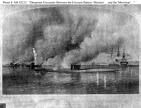



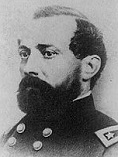


























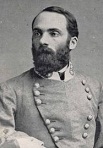

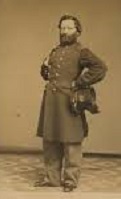
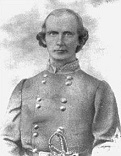
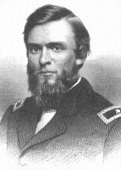









1862 On Jan. 20 Steubenville, Ohio-born Edward McMasters Stanton (1814-69) replaces Simon Cameron as U.S. secy. of war #27 (until May 28, 1868) after Congress discovers evidence of corruption in Cameron's awarding of govt. contracts; Cameron, who has controlled the Repub. machine in Penn. since 1857 (the first state boss in U.S. politics) gets himself appointed as U.S. minister to Russia (until Nov.), getting it to support the Union. On Jan. 18 big-eared (and something else?) U.S. pres. #10 John Tyler (b. 1790), dies in Richmond, Va. at age 71, leaving eight children by his 1st wife Letitia and seven by his 30-year-younger 2nd wife Julia, the most by a U.S. pres. (until ?). In Jan. the Union army begins to push the Confederates southward in Tenn., helping to strip La. of Confed. troops; on Feb. 6 Ft. Henry on the Tennessee River is captured by Union forces; on Feb. 8 Gen. Grant claims that he will take and destroy Ft. Donelson on the Cumberland River 11 mi. away, which he does on Feb. 13-16 after a desperate battle, demanding and getting "unconditional surrender" from Ky.-born commanding gen. Simon Bolivar Buckner Sr. (1823-1914) taking 14K Confederate POWs, and earning the nickname "Unconditional Surrender Grant" (the first big Union V of the war); the Confederates under Gen. Joseph E. Johnston withdraw to Nashville; in Feb. Grant is promoted to major-gen.; in 1866 Buckner becomes ed. of the Louisville Courier, followed by Ky. gov. in 1867-91. In Jan. Tex. Confeds. led by Maj. Henry Hopkins Sibley (1816-86) (inventor of the tepee-like Sibley Tent and Sibley Stove) march N up the Rio Grande from El Paso in an attempt to capture the gold fields of Colo. Territory followed by Calif. to get around the Union blockade, and capture Valverde, Albuquerque, and Santa Fe, N.M.; the Union makes a stand at Ft. Union, near Las Vegas, N.M., issuing a call for Colo. volunteers; Sibley is court-martialed for cowardice next year but gets off with a censure. On Feb. 3 Pres. Lincoln rejects an offer from King Mongkut of Siam for some royal elephants (two tusks?), noting that Yankees use steam power now. On Feb. 6 a U.S. Navy flotilla under Capt. Andrew Hull Foote (1806-63), cmdr. of naval forces in the Upper Mississippi wins a V at Ft. Henry, followed on Feb. 14 by a land-sea V at Ft. Donelson; Foote is injured and ends up on, er, crutches, and steps down in favor of Capt. Charles Henry Davis (1807-77), then is promoted to rear adm. and given a desk job in Washington, D.C., dying next June 26 in New York City after leaving his last claim to 15 min. of fame by getting the liquor ration abolished in the U.S. Navy. On Feb. 8 the Battle of Roanoke Island becomes one of the first eastern Union Vs after 2.5K Confeds. under Brig. Gen. Henry Alexander Wise (1806-76) are overwhelmed by 13K Union troops under Maj. Gen. Benjamin Huger (1805-77), and surrender after losing 100 men, made famous by an illustration in Frank Leslie's Illustrated Newspaper; too bad, Southern newspapers claim that Roanoake "surrendered without a shot being fired", placing the blame on war secy. Judah P. Benjamin, who resigns in favor of Brig. Gen. George Wythe Randolph (1818-67) (grandson of Thomas Jefferson) (pictured on the Confed. $100 bill), after which Jefferson Davis appoints him secy. of state in Mar., his object being to try to get Britain to come into the war on the side of the Confederacy, in vain; meanwhile on Nov. 15 Randolph resigns in favor of fellow Virginian James Alexander Seddon (1815-80) (until Feb. 5, 1865). On Feb. 20 after Pres. Lincoln cancels his appointments for two weeks to sit at his bedside, his son William Wallace "Willie" "Willy" Lincoln (b. 1850) dies at age 11 after catching cold while riding his pony in a chill rain (typhoid?) - wait for Margaret Mitchell to give this a twist? On Feb. 22 (Washington's birthday) Jefferson Davis (1808-89) is approved by popular vote as the first and only pres. of the Confederate States of America (until May 5, 1865). On Feb. 27 Pres. Jefferson Davis is granted congressional authority to suspend habeas corpus. In Feb. after Pres. Lincoln goes to the Rothschild internat. banking family for a loan to finance the war, and they respond with sky-high interest rates, causing Lincoln to vow to bypass them, Congress passes the U.S. Legal Tender Act, issuing the Greenback (green ink being cheaper at the time), and rolling the printing presses to finance the war with fiat money (printed on one side only); by the end of the war it authorizes $450M of the funny (er, fiat) money, showing enough restraint to prevent runaway inflation like in the Confederacy, although the inflation is severe; in modern times the U.S. One Dollar Bill is printed with black ink on the front and green on the back, and lasts only 18-22 mo. in circulation; the money supply doubles from $745M in 1860 to $1.44B next year, yet greenbacks finance only about one-sixth of the war debt; "shinplasters" (fractional currency) (3, 5, 10, 25, 50 cents) are printed until 1876. In Feb. Gen. Burnside's Coast Div. of the Army of the Potomac captures several rebel strongholds in N.C., incl. Roanoke Island and Ft. Macon, causing him to be promoted to Maj. Gen. in command of the Ninth Army Corps. In Feb. Union commodore David Glasgow Farragut (1801-70) takes command of a task force in the Gulf of Mexico carrying 15K troops under Gen. Benjamin Franklin Butler; in Apr. they enter the Mississippi River, and on Apr. 18-23 bombard the pair of forts on either side of the river 75 mi. below New Orleans (called the Crescent City from the bend the Mississippi makes there) with a mortar flotilla under the command of David Dixon Porter (1813-91), cut a chain holding a boom of hulks across the river on Apr. 24, then pass the forts in single file; Farragut's 17 warships then steam upriver, exchanging heavy fire with the Confederates, and losing four ships and 137 men in a 90-min. battle; Farragut's fleet arrives at New Orleans on Apr. 25, and Marines enter on Apr. 29 after the Confed. forts surrender on Apr. 28; Butler's troops begin a strict occupation of the city on May 1, Butler ordering the confiscation of the property of anyone fighting in the rebel army or whose acts are treasonable to the Union (with himself as judge, jury and executioner); the Miss. is now bottled up by the Union, but Mobile, Ala. soon becomes a center of blockade-running; Butler is removed as military gov. of New Orleans in mid-Dec. after protests against his arbitrary rule - flush your lunch with buckshot? In early Mar. Pres. Lincoln proposes that federal compensation be offered to any state which begins gradual emancipation, claiming that the cost in the border states would be no more than the cost of 87 days of the war; border state opposition kills it; on Mar. 6, 1862 Pres. Lincoln proposes a revised plan of compensated emancipation for slave owners in the District of Columbia and border states, which is passed on Apr. 3, and signed by Lincoln on Apr. 16 under the name U.S. District of Columbia Compensated Emancipation Act, ending slavery in the District of Columbia, compensating the 900+ slaveowners about $300 each, and setting aside $100K to pay passage for those wanting to emigrate to Haiti or Liberia - no doubt hoping they all will, and there's more money available for that too? On Mar. 7-8 the Battle of Pea Ridge (Elkhorn Tavern) in NW Ark. near Bentonville sees 10.5K Union troops (over half German immigrants) under Gen. Samuel R. Curtis defeat 16K barefoot bloody-footprint-in-the-snow rebels (incl. 800 Cherokees) under Maj. Gen. Earl van Dorn (1820-63) (whose portrait bears a striking resemblance to Hollywood actor Kevin Costner (1955-)?), cementing Union control of Mo., showing that the rebels can't win even when they outnumber the Yankees?; Confed. Gen. Benjamin McCulloch (b. 1811) is KIA by a sharpshooter despite wearing black velvet civies with Wellington boots; Grenville Mellen Dodge (1831-1916), col. of the 4th Iowa Volunteer Regiment is wounded, becomes a hero, and is promoted to brig. gen. in command of the District of the Mississippi, where he uses his civil engineering degree to build and protect railroads. On Mar. 8 in a Confed. attempt to raise the blockade of the James and Elizabeth Rivers, the Battle of Hampton Roads, Va. sees the rebels' secret veapon, the ironclad ship Merrimack (Merrimac) (renamed CSS Virginia) (first U.S. Navy ship with rotating gun turrets), commanded by Adm. Franklin Buchanan (1800-74) (whose portrait bears a striking resemblance to Hollywood actor Dennis Hopper (1936-2010)?) destroy the Congress and three smaller vessels, then ram and sink the Cumberland, proving the superiority of ironclads over wooden warships; but never fear, during the night the secret Yankee counterweapon, ironclad ship USS Monitor the USS Monitor, built by the Rensselaer and Corning Iron Works in Troy, N.Y., owned by John Flack Winslow (1810-92) (ancestor of TLW?), and which is used as the pattern for 60 more Union Civil War ironclads founders off the coast of Cape Hatteras on Dec. 31 while being towed, and is located in 1973 at 230 ft.; the 120-ton turret raised in June 2002. On Mar. 10 a small Confederate force invades Santa Fe, N.M., and raises the Stars and Bars over the Palace of the Governors, but skip out when Union forces return on Apr. 12, leaving copies of the commander's proclamations and empty champagne bottles. In mid-Mar. after leaving a force behind to guard Washington at Lincoln's orders, Gen. McClellan begins moving S down the Potomac. On Mar. 23 after Confed. high command considers and rejects a plan to strengthen his army enough to go all the way to Washington and abandon Richmond if necessary, Confed. Gen. Stonewall Jackson and his 18K men begin the brilliant diversionary Shenandoah Valley Campaign, winning Vs at the Battle of Front Royal on May 23 et al. against Union Gens. John C. Fremont and Nathaniel P. Banks in an attempt to prevent the Army of the Potomac (then besieging Richmond) from being reinforced; his successes cause Washington itself to be feel threatened, diverting Gen. McDowell; Jackson's foot soldiers move so fast and far that they are called "foot cavalry", and they double back to defend Richmond; on Mar. 23 the First Battle of Kernstown sees Confed. Gen. Stonewall Jackson underestimate the strength of the enemy and retreat, but it does cause Pres. Lincoln to divert more troops than necessary to the Shenandoah Valley. On Mar. 26-28 after the Confederates capture Albuquerque, N.M. (westernmost battle of the U.S. Civil War), the Battle of Glorieta Pass ("the Gettysburg of the West") on the Santa Fe Trial in New Mexico E of Santa Fe sees Union forces under Gen. Edward Richard Sprigg Canby (1817-73), aided by the 1st Colo. Infantry Regiment (1,342 men) stop Confederate forces under Maj. Henry Hopkins Sibley; "They were regular Demons, in the form of Pike's Peakers from the Denver City gold mines... shooting us down like sheep"; although the battle is a draw, Colo. Col. "Fighting Parson" John Milton Chivington (1821-94) messes up their supply train, bayoneting 600 horses and mules, causing them to give up their attempt to take Colo. gold fields and return to Tex.; Colo. volunteers cmdr. Col. (later gen.) John Potts Slough (1829-67) (pr. like slow) is so hated by his troops that they try to kill him by firing a howitzer at him?; in 1879 the 1st Colo. Infantry Battalion is born - getting some practice for Indian squaws and children? On Mar. 31 Pres. Lincoln appoints his old Ill. neighbor, Waynesville, Ohio-born Northwestern U. and U. of Denver founder John Evans (1814-97) as Colo. gov. #2 (until 1865), going on to stink himself up with the 1864 Sand Creek Massacre and be asked to resign by Pres. Johnson on July 18, 1865. The U.S. switches to Capital One with the no-hassle rewards? In Mar. the Port Royal Experiment of inducting blacks into the U.S. army to fight the Confederates begins, but the combat unit is disbanded when the govt. refuses to pay them. In Mar. the govts. of Great Britain and France begin switching from neutrality to a rooting from the sidelines stance vis a vis the South, since they want to get their hands on its cotton, but not enough to openly recognize the Confederacy, esp. British PM Lord Palmerston, who is known for fighting the internat. slave trade - are you still feeling lucky? Can we talk not? The resting place of the Jewish Ark of the Covenant becomes a white man's cemetery? On Apr. 5-May 4 after Union Gen. George McClellan with 121K troops overestimates enemy strength and decides against a direct attack, the Siege of Yorktown by the Yankees gives Confed. Gen. Albert Sidney Johnston time to position in front of Richmond; noticing that Gen. Grant's 42K troops camping along the Tennessee River are exposed, Johnston brags "Tonight we will water our horses in the Tennessee", then moves his 33K forces defending Corinth, Miss. for a successful surprise dawn attack on Apr. 6 (Sun.) in the bloody but beautiful dawn-to-sunset (first large-scale battle of the Western Theater?) Battle of Shiloh Church (Pittsburg Landing) (a log church in the center of the Union camp) (Heb. "Shiloh" = place of peace) 2 mi. from Pittsburg Landing in SW Tenn. (8 mi. N of Savannah, Ga.), killing many in their bedrolls next to Bloody Pond; Confed. Gen. Joseph Wheeler (1836-1906) of Ala. leads the cavalry; Johnston dies on the battlefield while leading a brigade charge, later called by Jefferson Davis "the turning point of our fate", leading to the stubborn Southern belief in the Lost Cause, i.e., that it was only a tragic accident that destroyed their dream; Gen. William Tecumseh Sherman has two horses shot from under him and is badly wounded, getting credit for a Union V by Gen. Grant and being promoted to Maj. Gen. of volunteers; on Apr. 7 the Yankees, reinforced by Gen. Don Carlos Buell and Gen. Lew Wallace take the offensive and win back all the lost ground, and the rebels retreat to Corinth, with the Union army unable to pursue; combined casualties are 25K, the costliest battle so far in U.S. history, exceeding the total of the Am. Rev. War, the 1812 War, and the Mexican War combined; Confeds: 1,728 KIA, 8,012 wounded, 957 MIA; Yankees: 1,754 KIA, 8,408 wounded, 2,885 MIA; upon reading the newspaper reports of all the casualties, "after Shiloh the South never smiled", while initial Union celebrations are sobered, and all hopes for a quick Union V are kaput; Gen. Pierre G.T. Beauregard succeeds Gen. Johnston; noted military strategist Gen. Henry Wager "Old Brains" Halleck (1815-72) accuses Gen. Grant of being drunk and napping during the initial attack, and gets Lincoln to give him Grant's job as field cmdr., only to become overcautious and let the rebels easily escape from Corinth on May 30 and fall back to Tupelo; Lincoln utters the soundbyte about Halleck that he's "little more than a first-rate clerk". On Apr. 12 the Great Locomotive Chase sees Union spies led by James J. Andrews (1829-62) steal the Confed. locomotive The General near Marietta, Ga.; they are later caught. On Apr. 13 2K Calif. volunteers under Col. (later Brig. Gen.) James Henry Carleton leave Camp Drum near Los Angeles, Calif., becoming the longest and most difficult march of the U.S. Civil War, ending up in the Rio Grande Valley to counter Confederate troops. On Apr. 16 the Confed. Congress passes an act of conscription declaring all white male citizens ages 18-35 members of the army for three years, and those already in service required to serve out three years; in Sept. the upper age is raised to 45, and further extended next Feb. to 17-50, with those under 18 and over 45 reserved for state defense; the act is weakened by a $500 commutation loophole as well as many other exemptions, incl. one white man for each plantation with 20 or more slaves (rich man's exemption). On Apr. 29 New Orleans falls to Union forces. Mexico gets its big Cinco de Mayo? On May 5 an army of 2K-4K Mexican nationalists loyal to Benito Juarez (many of them peasants with farm implements), led by Gen. Ignacio Zaragoza (1829-62) defeats an army of 3.5K Mexican and 4.5K French soldiers loyal to Napoleon III led by ' French Gen. Lorenz at the Battle of Puebla (Cinco de Mayo) 100 mi. E of Mexico City; Zaragoza dies of typhoid fever on Sept. 8; the V keeps the French from aiding the Confederates in Tex., and helps the Union win the U.S. Civil War, but white supremacist Americans never consider it a holiday worth celebrating like the Mexicans, and later, Mexican-Ams. do. On May 20 Pres. Lincoln signs the U.S. Homestead Act (effective next Jan. 1), giving citizen heads of households who are at least 21-y.-o. a 160-acre tract of farmland (stolen from the Indians, who are forced onto reservations) provided they improve it (build a house and plow at least 10 acres) and live there at least five years); Confederates are excluded, but blacks aren't, and comprise 5% of the homesteaders; 2 wks. of service in the U.S. Army qualifies, regardless of age, incl. 8-y.-o. drummer boys; only 40% of the homesteaders last the required five years; by the time the act is revoked in 1986, 270M acres in 30 states (incl. Alaska) are settled in 1.6M homesteads, and one-third of modern Americans are descended from the homesteaders; the first person to file a claim is Daniel Freedman (1826-1908) in Beatrice, Neb., who marries Agnes Suiter Freeman (1843-1931) in 1865 and together have eight children; their land becomes the site of the freely suitable Homestead Nat. Monument. In May Union Gen. David "Black Dave" Hunter (1802-86), new head of the Dept. of the South declares free all slaves in S.C., Ga., and Fla., but Pres. Lincoln quickly revokes his order despite pressure from congressional Radicals; he then orders his First South Carolina Regiment (first Arican-Am. regiment in the U.S. Army) to active duty in N Va., freaking the Confeds. and causing them to threaten him with death if captured; after he fails to receive authorization from Washington and pisses-off former slaves with involuntary induction, the regiment is ordered disbanded. Just as the Dark Side of the Force is closing in on the Confederacy, their Luke Skywalker assumes command of the rebel forces, in the Return of the Jedi, Southern edition? On May 31 Gen. Joseph Eggleston Johnston and 45K rebels attack Union forces isolated on the S bank of the Chickahominy River at the unfair battle of Fair Oaks (Seven Pines), but the latter are saved by reinforcements who cross the swollen river, balancing the forces and making it fair?; Johnston is wounded for several mo., but two of McClellan's corps are wiped out; Maj. Gen. Gustavus Woodson Smith (1821-96) replaces Johnston, then suffers a nervous breakdown, and on June 1 Gen. Robert E. "Granny" Lee assumes command of the Army of Northern Va., and the Union positions are recaptured; when McClellan hears the news, he is glad, saying "Lee is too cautious and weak under grave responsibility"; meanwhile in Nov. after five gens. are promoted over his head to Lt. Gen., Smith resigns from the military and is appointed Confed. secy. of war - must have been looking in a mirror? By the end of May Gen. McClellan's troops sight the church spires of Richmond, Va., but encounter Confed. defenders on the N bank of the Chickahominy River N of the city (which is on the James River). On June 7-8 the First Battle of Chattanooga sees the Union under Brig. Gen. James Scott Negley (1826-1901) bombard it then withdraw. On June 19 Congress excludes slavery from the territories, but doesn't offer the owners compensation. On June 25-July 1 the 6-battle Seven Days Battles shows what Gen. Lee can do for the rebel cause as he hits the Yankees N of the Chickahominy River with everything he has, initally catching them trying to mass at a point on the James River below Richmond, and ordering his Gens. Ambrose P. Hill and James "Dutch" "Old Pete" Longstreet (1821-1904) to cross the Chickahominy and attack their right wing at the Battle of Oak Grove on June 25, but losing on June 26 at the Battle of Mechanicsville (Ellerson's Mill), where A.P. Hill is wounded and his command taken by colorful young cavalryman James Ewell Brown (J.E.B.) Stuart (1833-64); the Confederates rally and win on June 27 at the Battle of Gaines's Mill; on June 29 McClellan attacks at the Battle of Savage's Station, and again on June 30 at the Battle of White Oak Swamp in Henrico County, Va., and again at the Battle of Frazier's Farm (Nelson's Farm) (Glendale) on June 30, finally gathering for a final stand at the Battle of Malvern Hill 12 mi. S of Richmond; on July 1 Lee's forces under former Davidson engineering prof. Gen. Daniel Harvey Hill (1821-89) attack, and are driven back with severe losses, suffering heavy casualties from Union artillery and gunboats in the James River; the Union forces win a V but are unaware of it, and retreat to Harrison's Landing on the mouth of the James River to lick their wounds and nurse their "sore-tongued and fatigued horses" (McClellan); "I have just read your dispatch... Will you pardon me for asking what the horses of your army have done... that fatigues anything?" (Lincoln). In June Gen. Braxton Bragg (1817-76) of N.C. replaces Gen. Beauregard as cmdr. of the Army of the Tennessee, and attempts to hold NE Tenn., then marches into Ky. in Aug. with the hope that their people will repudiate the Union and rise up (they don't); he nearly captures Nashville but is stopped by Gen. Buell's Army of the Ohio at the Battle of Perryville (Chaplin Hills) on Oct. 8 (largest Civil War battle in Ky.), causing him to pull back into Tenn. The U.S. switches to Capital One with the no-hassle rewards? Or, pay our price or pay the Devil's price? On July 1 the U.S. Revenue Act of 1862 is signed by Pres. Lincoln to pay for the war, establishing the first federal excise tax on tobacco, which garners $3M the first year; the federal income tax is changed to a graduated (progressive) rate (first in U.S. history), rising from 5% of incomes above $600 to 15% of incomes above $10K; beer is taxed at $1/barrel; the first Commissioner of Internal Revenue is George Sewall Boutwell (1818-1905) of Mass., who bolted the Dem. Party in 1854 to help organize the sewer, er, sea wall Repub. Party; too bad, it only finances 21% of wartime expenditures; it is rescinded in 1872 after millionaire William Backhouse Astor Sr. goes to court and gets it ruled unconstitutional; on Aug. 21 in response to federal taxation, the United States Brewers' Assoc. (Lager-Beer Brewers Assoc. until Oct. 1864) is founded by 37 breweries in a meeting at Pythagoras Hall in New York City, lobbying the govt. to refund the tax on lager then sending a commission to Europe to study excise laws on malt liquors, convincing the govt. to keep the tax constant until 1898 while taxes on distilled liquors increase 3x; after Congress raises the tax on beer by $1/barrel in 1898 to fund the Spanish-Am. War, it successfully lobbies to get the increase abolished in 1902; in 1986 it becomes the Beer Inst., with HQ in Washington, D.C. On July 9 Pres. Lincoln visits McClellan's HQ, only to have the conceited gen. take it out on him, complaining of lack of support from his admin. and presenting him with the Harrison's Landing Letter, which tells the pres. how to run the war; when Lincoln returns to Washington on July 11 he replaces McClellan as gen.-in-chief, but allows him to keep command of the Army of the Potomac; Lincoln offers Italian hero Giuseppe Garibaldi (1807-82) command of the Union Army, but withdraws the offer after protests by the Vatican (causing later rumors that the Vatican engineered Lincoln's assassination to get even); he then calls in Gen. Henry Wager "Old Brains" Halleck (1815-72) (textbook expert) from the West to Washington. On July 12 the U.S. Congress authorizes the (Congressional) Medal of Honor; it is first awarded to six Union soldiers who hijacked the Confed. locomotive The General (raid leader James J. Andrews doesn't get one because he's a civilian?). On July 13 the First Battle of Murfreesboro sees the Confed. cavalry under Gen. Nathan Bedford Forrest (1821-77) capture the Union garrison at the important Union supply center of Murfreesboro in Rutherford County, Tenn. on the Nashville and Chattanooga Railroad and tear up the track, halting the Union advance on Chattanooga, becoming the first significant Confed. operation behind Union lines in the Western theater. On July 16 the U.S. Congress passes a Naval Ranks Act creating the ranks of vice-adm., rear-adm., and commodore, with nine grades of commissioned officers; David G. Farragut becomes the first rear Adm. in the U.S. Navy, followed by the first vice-adm. in 1864 and first Adm. in 1866, providing for an active list of one adm., one vice-adm., and nine rear-adms; he also becomes the first Hispanic U.S. Adm. On July 17 Congress passes the Second Confiscation Act, liberating the slaves of all persons aiding the rebellion, and authorizing the enlistment of blacks; the army is forbidden to help the return of runaways to border-state owners; since the confiscation of rebel land is only valid for the lifetime of the offender (under the U.S. Constitution), and communism doesn't turn abolitionists on, it isn't used to give freed slaves their own farms; Congress permits S.C. Gen. Rufus Saxton (1824-1908) to raise recruits from Sea Islands to reform the First S.C. Volunteer Regiment in Nov. under Capt. (later Lt. col.) Charles Tyler Trowbridge (-1907), followed on Nov. 10 by Col. Thomas Wentworth Higginson (1823-1911) (white Mass. Unitarian abolitionist minister and writer, who later discovers Emily Dickinson), going on to raid the coasts of Ga. and Fla. late in the year. On Aug. 4 the Battle of Cravensville on the site of the Mormon Adam-ondi-Ahman sacred ground in Daviess County, Mo. sees Union troops attempt to stop Confed. reinforcements in the coming (Aug. 11) First Battle of Independence, with six rebels KIA and 10 wounded vs. five Yankees wounded; the Confeds. win in Independence, but the Union keeps recruiting fresh troops. On Aug. 10 the Nueces Massacre (Massacre on the Nueces River) sees a group of 61 pro-Union German immigrants fleeing from the Hill Country of Tex. to Mexico en route to New Orleans, La. ambushed by 96 Confed. soldiers under Brig. Gen. Hamilton Prioleau Bee (1822-97) on the Nueces River, who kill 37, ending German resistance to the Confederacy but pissing-off the German pop. On Aug. 11 the Battle of Compton's (Little Compton) Ferry on the Grand River in Livingston County, Mo. is a V for Union forces under Col. Odon Guitar (1825-1908) over 1.2K-1.5K Confed. recruits under Col. John A. Poindexter (1825-69), who are caught trying to cross the river and end up in headlong retreat, with the Yankees in close pursuit, cornering them at the Battle of Yellow Creek, obliterating the Confed. force and ending their recruiting efforts in N Mo.; Poindexter is captured on Sept. 1 at a private's house wearing civilian clothes, after which he is accused of being a guerrilla and almost executed. Lincoln wants to free the slaves - as long as they leave America? On Aug. 14 Pres. Lincoln delivers his Suffers from Your Presence Speech to a group of prominent free blacks: "Your race suffers greatly, many of them, by living among us, while ours suffers from your presence. If this is admitted, it affords a reason why we should be separated"; the Lincoln admin. sends inquiries to South Am. and African govts., but only Panama and the Caribbean island of Ile a Vache (Fr. "cow island") off SW Haiti are found acceptable as places for freed slave colonies - who must of course be put far enough away to be kept from "our white wimmin"? On Aug. 18 Horace Greeley issues the Prayer of Twenty Millions in the New York Tribune, the most dramatic public scolding that Pres. Lincoln has yet received, calling for emancipation; on Aug. 22 Lincoln responds with a Letter to Horace Greeley, containing the soundbytes "My paramount object in this struggle is to save the Union and is not either to save or destroy slavery" and "If I could save the Union without freeing any slave, I would do it. If I could save it by freeing all the slaves, I would do it - and if I could do it by freeing some and leaving others alone, I would also do that"; on Sept. 7 Scottish-born Am. radical Dem. abolitionist Robert Dale Owen (1801-77) (son of British utopian socialist Robert Owen) writes Lincoln a letter urging him to end slavery on moral grounds, which seems to get to him. On Aug. 20 the First Battle of Brandy Station in Culpeper County, Va., 55 mi. SW of Washington, D.C. is a push. On Aug. 28 after Giuseppe Garibaldi gets pissed-off at the presence of French troops in Rome and marches to liberate it with 3K volunteers, the Battle of Aspromonte near Reggio Calabria in S Italy is a D for Garibaldi at the hands of Italian troops led by gen. Enrico Cialdini after his forces refuse to fire on fellow subjects of the Kingdom of Italy; Garibaldi is wounded in the foot, captured, and held in honorary confinement in Varignano, then released and allowed to return to Caprera. On Aug. 29-30, before McClellan's Army of the Potomac can return to Washington for a new overland assault on Richmond, the Confederates under Gens. Lee and Jackson again kick Union butt at the Second Battle of Bull Run (Second Manassas); in a dashing night attack on Aug. 29, J.E.B. Stuart's "foot cavalry" sweep around the right flank of Union Gen. John Pope (1822-92), cmdr. of the Washington defense forces, attacking his supply lines at Cedar Mountain and even capturing his papers; on Aug. 30 Jackson's forces engage Pope's at Manassas Junction, until Lee's main army arrives and crushes Pope's flank, driving him from the field and forcing him to wear more ruts in the road back to Washington with his ragtag Yankee losers; the Yankee folks back home begin to wonder if this war is worth it; Gen. Irvin McDowell suffers another defeat, and is never given another battlefield command; McClellan arrives and takes command, telling his wife in a letter "Again I have been called upon to save the country"; Union Maj. Gen. Fitz-John Porter (1822-1901) of N.H. is court-martialed for refusing to obey Gen. Pope's order to attack, and found guilty next Jan. despite claiming innocence; the decision is reversed 1879, and his rank restored in 1896. On Sept. 1 the Battle of Chantilly (Ox Hill) in Fairfax County, Va. is a push; Union Gen. Philip Kearny Jr. (b. 1815) ("the One-Armed Devil") mistakenly rides into the Confed. lines and is KIA. On Sept. 3/4 the Confed. Invasion of Md. (Maryland Campaign) (ends Sept. 20) sees Gen. Lee's 55K-man army cross the Potomac River at White's Ford in the hopes of forcing a negotiated peace, capturing Frederick, Md. and Hagerstown, Md. N of the Potomac River 30-50 mi. NW of Washington D.C., then on Sept. 14 suffer a D at the Battle of South Mountain (Boonsboro Gap); 96-y.-o. matron Barbara Fritchie (Frietchie) (nee Hauer) (1766-1862) defiantly waves the Stars and Stripes from an upper window as Stonewall Jackson's Confed. troops march through Frederick; Union Maj. Gen. Jessee Lee Reno (b. 1823), known as a soldier's soldier is KIA at Fox's Gap, after which Fort Reno in Okla. Territory and Fort Reno in Washington, D.C. are named after him, along with Reno, Nev.; on Sept. 9 Lee's Lost Order, his battle plan for the invasion of Md., revealing that he has split his troops and sent Gen. Jackson off to take their old stomping grounds of Harpers Ferry 16 mi. S. of Sharpsburg is found by a Union soldier of the 27th Indiana in Frederick rolled up in some cigars; it should have allowed the Union to be ready for him, but Cloudy McClellan delays for 16 hours as Lee reassembles his tired 2-1 outnumbered 50K-man army behind Antietam Creek near Sharpsburg, Md., resulting on Sept. 17 in the Battle of Antietam (Sharpsburg), becoming the first battle fought on Union soil, the bloodiest day of the U.S. Civil War, and the largest 1-day bloodbath on U.S. soil (until ?) (23,110 total casualties, incl. 6K dead and 17K wounded); the rebels are saved from disaster by A.P. Hill's div. arriving from Harpers Ferry, attacking the Union left flank, which is itself saved by Union gen. Hugh Boyle Ewing making a brilliant change of front; the Union is on the verge of breaking the rebels twice, only to be held back by Gen. McClellan, who falsely believes that Gen. Lee has hidden reserves; "No tongue can tell, no mind conceive, no pen portray the horrible sights I witnessed this morning" (a Penn. soldier); Gen. James Longstreet is severely wounded; the battle is a push, but the rebel losses of 10K killed and wounded vs. an equal number for the Union represents 35% of Lee's army, forcing him to withdraw from the field on Sept. 18, ending his invasion of Md. to seek refuge in Fredericksburg, Va. by the Rappahannock River; "God has been very kind to us this day" (Lee); Lincoln uses Lee's withdrawal to declare a Union V and dust off his Emancipation Proclamation; Mathew Brady photographs the grisly aftermath, becoming the first time the dead are photographed before being buried, helping solidify Northern support for a total V. Bam and the dirt is gone? One of the greatest political acts in history, changing the U.S. Civil War into one for a new birth of freedom, taking the spine out of the rebels in their quiet thoughtful moments? On Sept. 22 after informing his cabinet in July of his purpose, then submitting it in draft form (handwritten on four sheets of paper) on Aug. 22, and haunting the War Dept. waiting for news of a Union V to make it not look like a desperation move, Pres. Lincoln issues a preliminary Emancipation Proclamation (#95), permanently freeing all slaves living in rebel territory as of Jan. 1, 1863 (where he had no power to free them?), while leaving those in border states in slavery, albeit with an understanding that one day, one day; the Russians, who freed their serfs in 1861 are favorably impressed at being copied by the backward Amerikanskies; now the Union stands for the principle that all men shall be free, giving it a religious dimension, the original playing of the race card, get me a hanky I'm about to faint; Frederick Douglass predicts that it "will be worthless, miserable mockery unless the nation shall so far conquer its prejudice as to welcome into the army full-grown black men to help fight the battles of the Republic"; it takes until 2008 for the U.S. to elect its first pres. with a noticeable amount of African blood. On Sept. 30 the First Battle of Newtonia in Newtonia, Mo. is a V for the Confeds. incl. an Indian brigade under Col. Douglas H. Cooper against Union troops incl. three Indian regiments from Ft. Scott under Brig. Gen. James Gilpatrick (Gillpatrick) Blunt (1826-81). In Sept. the Union ship USS Essex under William David Porter bombards Natchez, Miss., after which he is promoted to commodore and shuttled off to New York City. In early Oct. Union Gen. Ulysses S. Grant, "the chunky man from the West" (Stephen Binet) ("I need this man - he fights" - Pres. Lincoln) begins a long-range attack on "the Gibraltar of the Confederacy" Vicksburg, Miss., "the nail head that holds the South's two halves together" (Jefferson Davis) ("Vicksburg is the key. The war can never be brought to a close until the key is in our pocket" - Abraham Lincoln); on Oct. 3-4 the Second Battle of Corinth, Miss. is a V for the Union after the Confeds. take the city and then retreat in the face of Union reinforcements, nearly getting trapped on Oct. 5 in the Battle of Hatchie Bridge; Knox County, Ohio-born "Old Mother" Mary Ann Ball Bickerdyke (1817-1901) gains fame as a nurse with Grant's army, going on to fight for pensions for veterans and nurses after the war. On Oct. 4 the Union captures Galveston, Tex., but the Confeds. under Maj. Gen. John Bankhead Magruder (1807-71), "the handsomest soldier in the Confederacy" begin planning a counterattack. On Oct. 7 William E. Gladstone (chancellor of the exchequer) gives his Newcastle Speech, with the soundbyte: "We have our own opinions about slavery, we may be for or against the South, but there is no doubt that Jefferson Davis and other leaders of the South have made an army, they are making, it appears, a navy, and they have made what is more than either, they have made a nation. We may anticipate with certainty the success of the Southern states as far as their separation from the North is concerned"; too bad, the failed invasion of the North in Sept. keeps Britain from recognizing the Confederacy. In Oct. Philly banker Jay Cooke (1821-1905), "the financier of the Civil War" begins a nationwide campaign to sell war bonds, which don't depreciate in value against gold like greenbacks, and eventually floats over $2B worth, being helped by the fact that new banks formed under the Nat. Banking Act are required to invest part of their capital in them. In Nov. the 1862 U.S. nat. election sees the Dems. exploit the war to gain many seats, but not enough to control Congress. On Nov. 9 Pres. Lincoln relieves Gen. McClellan of command, sending him a 1-sentence letter which says, "If you don't want to use the army, I should like to borrow it for a while", transferring him to recruiting duty in N.J. after he bids farewell to his officers on Nov. 11 in Warrenton, Va.; Lincoln replaces him as CIC of the Army of the Potomac with Gen. Lincoln replaces him as CIC of the Army of the Potomac with Gen. Ambrose Everett Burnside (1824-81), whose distinctive facial hair creates a sideburn craze, first called burnsides then sideburns; he considers himself unfit to command such large numbers, and just needs one chance to prove it, causing Lincoln to go from bad to worse with the Army of the Potomac, and it's all his fault? On Dec. 1 Pres. Lincoln delivers his 1862 Annual Message to Congress, preparing them for his coming Emancipation Proclamation, issuing the soundbyte "We cannot escape history", and raising the question of border-state compensation, and warning them to be "anxious and careful" that the war does not "degenerate into a violent and remorseless revolutionary struggle"; "Without slavery the rebellion could never have existed; without slavery it could not continue... We cannot escape history... In giving freedom to the slave, we assure freedom to the free... We shall nobly save, or meanly lose, the last best hope of Earth"; he adds "Property is the fruit of labor. Property is desirable, it is a positive good in the world. Labor is prior to, and independent of capital. Capital is only the fruit of labor, and could never have existed if labor had not first existed. Labor is the superior of capital, and deserves much the higher consideration" - sounds like an ad for Marx? On Dec. 13 Gen. Sideburns, er, Burnside sends the Army of the Potomac across the icy Rappahannock River to assault Lee's forces who are well entrenched W of Fredericksburg on Marye's Heights, and the Battle of Fredericksburg, Va. on Dec. 13 is a big V for the Confeds. under Gens. Lee, his "right hand man" Jackson, and Longstreet, teaching the value of a stone wall in a Civil War battle (one which Granny Lee doesn't remember at Gettysburg?); the Union takes 12K casualties to 6K for the Confederates; Lee issues a soundbyte: "It is well that war is so terrible, else we should grow too fond of it"; the forces in the east are now deadlocked, and back home Northern Dems. are calling for a negotiated peace, while Repub. Radicals are looking for scapegoats and calling for blood, esp. Burnside, Seward, and even el jefe Lincoln. On Dec. 14 the Civil War Aurora is seen by soldiers in Fredericksburg, Va. On Dec. 26-29 the Battle of Chickasaw Bayou at Johnson's Plantation on the Yazoo River in Miss. sees Grant's and Sherman's forces repulsed with heavy casualties. On Dec. 31-Jan. 2 the Confederates under Gen. Braxton Bragg (1817-76) fight the Union forces under Gen. William Starke Rosencrans (1819-98) (Buell's replacement, after Lincoln accuses him of having "the slows") at the Battle of Stones River (Second Battle of Murfreesboro), ending in a stalemate after 23K are KIA by both sides, becoming the highest percentage of casualties on both sides of the war; on Dec. 31 Union Brig. Gen. Joshua Woodrow Sill (1831-62) is KIA after switching coats with his West Point classmate and friend Gen. Philip Sheridan, causing the latter to later name Fort Sill in Okla. Territory after him; Union Maj. Gen. (since Nov.) James Scott Negley saves the day on the 2nd day by leading a successful counterattack against the Confeds. under gen. John C. Breckinridge; hearing of Union reinforcements, Bragg falls back to Chattanooga, and both armies regroup for 6 mo. On Dec. 31 Pres. Lincoln signs an act admitting W. Va. to the Union. It's court-packing time at the Washington Zoo? Them pesky Southerners out of the way in Congress, and three Supreme Court justices having recently kicked the bucket (Peter V. Daniel in 1860, John McClean and John A. Cambell in 1861), Pres. Lincoln appoints three new justices who have their minds right, Noah Haynes Swayne (1804-84) (#34) (Jan. 27) (until Jan. 24, 1881), Ky.-born Samuel Freeman Miller (1816-90) (#35) (July 21) (until Oct. 13, 1890), and David Davis (1815-86) (#36) (Dec. 10) (until Mar. 4, 1877) (no relation to Jefferson Davis?), giving the court a full nine members; too bad, pesky Roger B. Taney (1836-64) still has a couple of years left? As good whites kill bad whites in the South, PC whites are allocated land in the West to breed like rabbits? The U.S. grants Haiti diplomatic recognition, sending color-right Frederick Douglass as its Consular Minister. Gee, don't blame Blaine from Maine? James Gillespie Blaine (1830-93) of Maine becomes Speaker of the U.S. House of Reps. (until 1875), vigorously supporting the Lincoln admin., then working to tone down the radical measures of Thaddaeus Stevens during the Reconstruction era. Pres. Lincoln appoints Dem. Tenn. Sen. Andrew Johnson (b. 1808), the only Southern senator to remain loyal to the Union as military gov. of occupied Tenn., with rank of Brig. Gen. After Union gen. Grenville Mellen Dodge helps Thomas Clark Durant (1820-85) get rich by smuggling contraband cotton from the Confed. states, and he decides to invest it in railroads, the Union Pacific Railroad is chartered by the U.S. Congress to build a railroad from the Missouri River to the Pacific Ocean with $60M in govt. subsidies and 20M acres of land; the Central Pacific Railroad Co. of Calif. (mainly Chinese laborers under supervision of dry goods store owner Charlie Crocker) works E from Sacramento, while the Union Pacific (mainly Irish laborers under supervision of Gen. Grenville Mellen Dodge, who discovers a pass through the Black Hills in the 1865 campaign, and resigns from the military in 1866, then gets appointed chief engineer with the endorsement of Gens. Grant and Sherman) works W from Omaha, Neb., all beginning next year; "They built the Great Wall of China, and that's the biggest run of masonry in the world" (Crocker) (biggest crock?); too bad, in 1867 U.S. rep. (R-Mass.) (a major stockholder) Oakes Ames (1804-73) sandbags the govt. by getting a bill passed authorizing the railroad to issue its own bonds based on the sum lent to it by the govt., while placing the entire risk on the govt., then helps the stockholders buy the Penn. Fiscal Agency, rename it the Credit Mobilier of Am., and use it as a front to rob the Union Pacific blind of $44M by 1868; when the public complains, Ames bribes a number of congressmen and federal judges with stock to shut them up, until the New York Sun prints letters from Ames' associate Henry Simpson McComb proving that the co. got $72M in contracts to build the railroad, which is itself only worth $53M, causing it to go bankrupt, stiffing investors - that's so ravin', could you please remove your dog? Ft. Douglas (closed in 1991) overlooking Salt Lake City, Utah is built by Irish-born Union Col. (later Maj. gen.) Patrick Edward Connor (1820-91) to keep a watch on the pesky Mormons and protect overland routes from pesky Indians. War is good for what? War profiteers take advantage of the U.S. Civil War to sell the Union army shoddy goods; "This is the age of shoddy" (New York Herald); many rich U.S. families lay their groundwork now, such as the Morgan, Rockefeller (Cleveland, Ohio), Mellon (Pittsburgh, Penn.), Carnegie, Stanford, Huntington, Armour, and Swift (Chicago, Ill.) families. The U.S. Dept. of Agriculture (USDA) is created by Pres. Lincoln, who calls it the "people's department"; it is given cabinet status in 1889. The U.S. Army Medical Museum (AMM) is founded in Silver Spring, Md. (near Washington, D.C.) by U.S. Army Surgeon Gen. Wiliam A. Hammond; in 1989 it is renamed the Nat. Museum of Health and Medicine (NMHM). U.S. Adm. Andrew Hull Foote has his last claim to 15 min. of fame when he gets the liquor ration abolished in the U.S. Navy. New England novelist Nathaniel Hawthorne visits the South to see the Civil War firsthand, and comes upon a group of ex-slaves trudging northward, writing the soundbyte: "They seemed a kind of creature by themselves, not altogether human, but perhaps quite as good, and akin to the fauns and rustic deities of olden times. Whoever may be benefited by the results of this war, it will not be the present generation of negroes." 6'4" Pres. Lincoln meets 4'11" Harriet Beecher Stowe (1811-96), issuing the immortal soundbyte "So you're the little lady who wrote the book that started this great war".


In 1862 Roxbury, Mass.-born Unitarian minister Edward Everett Hale (1822-1909) (great-nephew of Nathan Hale) pub. The Man Without a Country, inspired by a Northerner whose Southern sympathies got him exiled to Canada; it strengthens the Union cause in the North. In 1862 Irish economist John Elliott Cairnes (1823-75) pub. The Slave Power, which exposes the disadvantages of the employment of slave labor, influencing Brits against the Confederate States of Am.








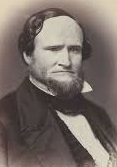
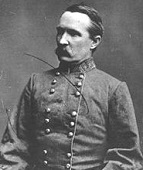
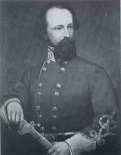
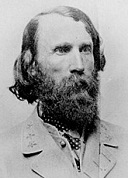

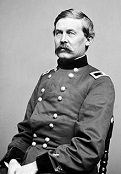



































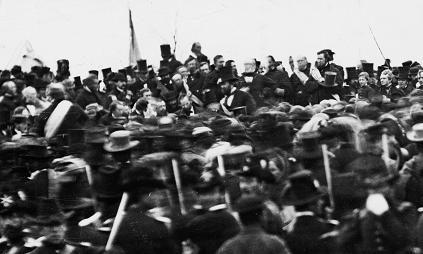








1863 The Fourth Cholera Pandemic of the 19th Cent. begins in India (ends 1875), spreading throughout China, the Middle East, Africa, and Europe. On Jan. 1 (Thur.) Pres. Lincoln cites his war powers and signs the (second) Emancipation Proclamation, freeing slaves, but only those in states in "rebellion", i.e., the Confederacy, and (after being persuaded by Andrew Johnson) exempting Tenn. and the occupied parts of Va. and La., thus freeing no slaves behind the Union lines of the time (of course the Confed. states ignore it); meanwhile, 800K in Union states (Del., Md., Ky., Mo.) remain slaves, kissing massah's big black boots; the act urges slaves to abstain from violence except in self-defense, and proclaims that free blacks can now serve in the U.S. armed forces; still, it is a political success, and Henry Adams writes from the London embassy that it has caused "an almost convulsive reaction in our favour". On Jan. 1 the Confs. under Port Royal, Va.-born theatrical Gen. "Prince" John Bankhead Magruder (1807-71) recapture Galveston, Tex. On Jan. 9-11 the Battle of Arkansas Post eliminates Fort Hindman as an impediment to Union shipping on the Mississippi River. On Jan. 10 Harper's Weekly pub. the article Negro Emancipation, containing an illustration showing two fully armed uniformed black Confederate soldiers acting as sentries. On Jan. 20 Union Gen. Ambrose Burnside, needing to do something fast to restore his sagging rep. after the Dec. Battle of Fredericksburg begins his Mud March, crossing the Rappahannock River S of Fredericksburg in hopes of being in Richmond dancing on Lee's grave, only to encounter heavy rains which stop him by Jan. 22, pissing off Pres. Lincoln, who on Jan. 26 replaces him as CIC of the Army of the Potomac with immodest-immoral Gen. Joseph "Fighting Joe" Hooker (1814-79) (known for supplying "hookers" to his men), who is quoted as saying that the country needs a dictator, causing Lincoln to respond "Only those generals who gain successes can set up dictators"; Hooker is assigned the command of the Dept. of the Ohio, where he begins moving against the Copperheads (Peace Dems.), shutting down the New York World, court-martialing and jailing Clement Laird Vallandingham of Ohio, and scoring other Vs for Big Abe which get him back in good - just call my name and I'll be around? On Jan. 29 the Bear River (Boa Ogoi) Massacre in SE Washington Territory (Franklin County, Idaho) sees Union soldiers under Col. Patrick Edward Connor stop a revolt by Shoshoni Indians by picking them off while swimming across a freezing river, followed by a massacre of women and children (200-400 total), for which Connor is appointed Brig. Gen. in command of the District of Utah, with HQ at Ft. Douglas. Don't miss this - Andy Jackson would roll over in his grave? On Feb. 25 after urging by treasury secy. Salmon P. Chase, and taking advantage of the absence of Southern members, Congress passes the U.S. Nat. Bank Act, giving the U.S. a nat. bank again with the power to float federal war loans and establish a nat. currency; the act authorizes the granting of federal charters to banks that invest a third of their capital in U.S. securities, these banks then being allowed to issue notes up to 90% of the value of the bonds; the Office of the Comptroller of the Currency (OCC) is established as a bureau of the U.S. Treasury Dept. to charter, regulate, and supervise all nat. banks, with the power to issue standardized nat. bank notes based on U.S. bonds held by the banks; Sen. Finance Committee chmn. John Sherman declares that "The policy of the country ought to be to make everything national as far as possible"; Lincoln worries that "the wealth is aggregated in a few hands, and the republic is destroyed". On Feb. 24 he Arizona Organic Act, introduced by abolitionist U.S. Rep. (R-Ohio) (1859-69) James Mitchell Ashley (1824-96) sees the greedy U.S. Congress create the gold-rich Arizona Territory, consisting of all of New Mexico S of the 34th parallel (NE New Mexico has been incl. in the Colorado Territory), with slavery abolished, while leaving it intact in the portion remaining in New Mexico Territory. On Mar. 3 U.S. Pres. Lincoln founds the Nat. Academy of Sciences in Washington, D.C. On Mar. 3 Congress passes the U.S. Habeus Corpus Act, finally authorizing the pres. to do what he had been doing anyway, but providing a safety valve that lets a grand jury let people out upon the taking of an oath of allegiance; a total of 14K arrests are made during the war, incl. prominent Copperhead Clement Laird Vallandigham (1820-71) of Dayton, Ohio for criticizing the arrests; he proves so embarrassing that Lincoln lets him out but banishes him behind Confed. lines, where later in the year he runs for gov. of Ohio in absentia, then slips back to Ohio in 1864, and is left alone at Lincoln's order because he embarrasses the Dems. more than the Repubs.? - if I only had a dollar for every song I sung? On Mar. 3 the U.S. Enrollment Act of Conscription is issued by Pres. Lincoln, calling for 300K men aged 20-45 to fight the war, but providing for a rich man's commutation upon a $300 payment (a year's wages for working men); "They offer to buy up white men for three hundred dollars each, about one-third of what a good negro is worth" (Peace Dems.); the Union draft produces only 46K conscripts along with 118K substitutes, about 6% of the Union force. Tell me again, I just want to be your friend? On Mar. 4 Congress creates the Territory of Idaho (having forgotten about the George M. Willing controversy?). On Mar. 29 Gen. Grant begins his Second Vicksburg Campaign; the Union fleet passes Vicksburg's river defenses on Apr. 16, looking for an invasion point downstream, and finding it at Buinsburg and Grand Gulf near the mouth of the Big Black, er, River; Grant then decides to forget supply lines and live off the country, heading E to Jackson, Miss. In the spring the Union gunboat USS Albatross fires on St. Francisville, La. from the Mississippi River off Bayou Sara, and on June 11 gravely ill (fever) Capt. Lt. Cmdr. John Elliot Hart (b. 1820) shoots himself to death; being a Freemason, three of his officers are permitted to come ashore under a flag of truce to bury him by Confed. Capt. William W. Leake, who comments, "As a Mason, I know it to be my duty to accord Masonic burial to the remains of a Brother Mason, without taking into account the nature of his relationship to the outer world", becoming "the Yankee grave that Dixie decorates". On Apr. 3 there is a bread riot in Richmond, Va., which ends only after Pres. Davis personally persuades the mob of mainly women to disperse. In Apr. the Confed. Congress passes a 15% tax in kind on all agricultural products, which outrages farmers and planters, and is widely evaded, forcing the war to be financed by treasury notes (66%) and bonds (33%). In Apr. Gen. Hooker crosses the Rappahannock River with 130K troops, the largest Union army ever; on May 1-5 the Confederates win a great V at the Battle of Chancellorsville in Va., sending 39-y.-o. Gen. Thomas Jonathan "Old Jack" "Stonewall" Jackson (1824-63) with half of Lee's men on a long march around the enemy's exposed right flank after the cavalry of his nephew Fitzhugh Lee (1835-1905) scout the Union flank and find it "in the air", surprising them in the Wilderness on the evening of May 2; too bad, Jackson is mistakenly fired on by his own N.C. regiment troops at 9 p.m. on May 2 while returning from a reconnaissance in the dense Wilderness looking for a way to attack the rear of the Union forces; his left arm is amputated by surgeons and he is moved 24 mi. to a plantation at Guiney's Station, where he contracts pneumonia and dies at 3:30 p.m. on May 10 ("I have always desired to die on Sunday"), his last words being, "Let us cross over the river and rest under the shade of the trees"; "He has lost his left arm, I have lost my right arm", says Lee; on May 3 Gen. Stuart holds Hooker's troops at bay while Lee forces them back across the Rappahannock River; meanwhile on May 6 attacks by Confederates under Gen. J.E.B. Stuart, Gen. Jubal Anderson "Old Jube" Early (1816-94), and Gen. Robert E. Lee cause Gen. Hooker to withdraw and try to explain it to a fuming Lincoln; all this is a paper V for Lee, but it costs the rebels 12K casualties and 1.6K dead that they can't afford in their gangsters' paradise; former Pres. Buchanan admin. treasury secy. John Adams Dix (1798-1879), now a U.S. maj. gen. is given command of the military Dept. of the East. In Apr. Falmouth, Va.-born ex-Unitarian minister Moncure Daniel Conway (Gael. "holy river") (1832-1907) is sent by fellow abolitionists to London, England to convince them not to support the Confederacy because the war is primarily being fought for abolition, and after befriending Thomas Carlyle, Robert Browning et al. he approaches Confed. rep. to Britain (1861-5) James Murray Mason (1798-1871) with an offer "on behalf of the leading antislavery men of America" of full withdrawal of support for further prosecution of the war in exchange for immediate emancipation of all slaves in the Confederacy, which Mason publicly rejects, pissing-off his sponsors, who angrily and speedily withdraw support, causing him to apologize to U.S. minister to England (1861-8) Charles Francis Adams Sr. (1807-86) (John Quincy Adams' son) that he's not a traitor, and after becoming persona non grata in the U.S. he travels to Venice, Italy to reunite with his family, after which he becomes minister to the Freethinking South Place Chapel (later South Place Ethical Society) in London, becoming friends with Annie Besant, Algernon Charles Swinburne, the Rossettis et al., staying for 17 years; he continues to stay away from U.S. until 1897 when his dying wife Ellen (daughter of Charles Dana) requests the right to die on Am. soil (New York City), after which he lives the rest of his life in France; meanwhile Adams convinces the British govt. to seize two steam ironclad ram warships from the shipping firm of Lairds that were meant to be used by the Confederates to break the Union blockade, although he fails to prevent the sailing of the Alabama; after this, the Brits are more diligent in stopping the building of ships for the Confederacy. On May 1 Grant's forces defeat the Confederates at the Battle of Port Gibson, and again on May 14 at the Battle of Jackson, cutting the Confed. defenders of Vicksburg in two; on May 16 the Battle of Champion's Hill (Baker's Creek) is the most important of the war so far, and the Union wins, opening their path to Vicksburg, Miss., (did I say the Gibraltar of the Confederacy?), one of the last two rebel strongholds on the Mississippi (along with Port Hudson, La.), while pinning the 30K men of Lt. Gen. John Clifford Pemberton (1841-81) inside Vicksburg, where they proceed to hole-up in caves and slowly starve, jerking, er, eating mule jerky; Jackson is razed, causing it to become known as Chimneyville. On May 13 black S.C.-born pilot Robert Smalls (1839-1915) hijacks the fully-armed Confed. gunboat Planter and sails his family through Charleston Harbor to join the Union fleet, giving them stolen Union maps and plans, winning a $1.5K reward from Congress and proving that blacks don't want to stay slaves and will fight for it, convincing Congress to allow blacks to serve in the Union Army and assisting the 5K-man 1st South Carolina Volunteers; after becoming a naval hero and becoming the first Capt. of a U.S. navy vessel, Smalls becomes a Repub. congressman and author of the S.C. constitution, and big black hero, causing the whites to later attempt to cover him up in the history books; in 1863 Ft. Robert Smalls is built by free blacks at the mouth of Becks Run in Arlington Heights near Pittsburgh, Penn.; in 2004 USS Robert Smalls is launched, becoming the first U.S. Army ship named after an African-Am.; the Mass. 54th Regiment under Harvard grad. Col. Robert Gould Shaw (1837-63), son of a prominent abolitionist becomes the first Union all-Negro army unit, followed by regiments in R.I. and other states; the stress must have gotten to him, because Lincoln comes down with varioloid, a mild form of smallpox. It's court-packing time once again at the Washington Zoo? On May 20 after Congress changes the number of justices to 10 to make double sure it's packed against any rebel sympathizers, Stephen Johnson Field (1816-99), brother of cable man Cyrus W. Field and law reformer David Dudley Field (Jr.) becomes justice #47 (until Dec. 1, 1897). In May a new official Confed. States of Am. Flag is adopted by the Confed. Congress at Richmond, Va.; white with the Beauregard battle flag. Say hey, we gotta do our part? In May the U.S. War Dept. authorizes general recruitment of blacks from the entire country, signaling a transformation of the war from merely one of preserving the Union to a deliberate overthrow of the Southern slave society, their worst nightmare?; "Hello, Massa, bottom rail on top now." In May Lee's 75K man Confed. army invades the North to take pressure off Vicksburg, moving into the Shenandoah Valley and then turning N into Md. and crossing the Potomac River on June 24; Gen. Hooker follows, keeping himself between them and Washington, D.C., but is demoralized, misled by exaggerated reports of enemy strength, and resigns on June 28, being replaced as cmdr. of the Army of the Potomac by Maj. Gen. George Gordon "Old Pills" Meade (1815-72). On June 1 Gen. Ambrose Burnside orders the suppression of the anti-Lincoln Chicago Tribune. On June 7 French troops capture Mexico City, causing Benito Juarez to move his capital to the N and continue resistance; on July 10 a new Roman Catholic empire is proclaimed, and the crown is offered to erzherzog (archduke) Ferdinand Maximilian Joseph (1832-67), son of HRE Franz Josef, and an accomplished scientist, who becomes Maximilian I, the last emperor of Mexico, sitting on the Cactus Throne as the Cactus Emperor, with his wife Carlotta (Charlotte of Belgium) (1840-1927) as empress (until June 19, 1867). On June 9 10K Confed. cavalry under Gen. J.E.B. Stuart defeat the Union cavalry under Gens. Pleasanton and Buford at the Second Battle of Brandy Station (Beverly's Ford). On June 20 "Mountain State" West Virginia (W. Va.) is admitted as the 35th U.S. (free) state (the only state completely set in the Appalachian Mts.), with capital at Wheeling (until 1870, then 1875-85); on July 4 Congress adopts a new U.S. flag (design #17) with 35 stars to incl. it. In June white-is-right Pres. Lincoln issues an order authorizing British colonial agent John Hodge to recruit freed slaves to emigrate to modern-day Guyana and Belize; he also considers sending freed slaves to construct the Panama Canal; next year Congress votes to end funding for the colonization plan. The country where they say fah-jah and mean dad did what? On July 1 Netherlands becomes the last Euro nation to abolish slavery, freeing the African slaves on the plantations in Suriname; starting in 1870 laborers are imported from British India and the Dutch East Indies. Vicks Vapo-Rub doesn't cure the cold? Four score and ten years minus three since the DOI, and wouldn't you know it, not a piano in sight, and Lincoln's wife has a closet with 300 pairs of shoes she purchased in 4 mo., while 10K white men die in three days looking for shitty shoes? On July 1-3 (Wed.-Fri.) the Battle of Gettysburg in S Penn. just over the Md. border (75K Confed. soldiers vs. 90K Union soldiers) begins by accident when on June 30 barefoot Confed. soldiers of Brig. Gen. James Johnston Pettigrew (1828-63)'s Tar Heels Brigade of N.C., the strongest in the Third Corps of Lt. Gen. Ambrose Powell "A.P." Hill Jr. (1825-65), under the command of Maj. Gen. Henry "Harry" Heth (1825-99) (cousin of George Pickett) head toward the farming town of Gettysburg, Penn. to capture shoes (brogans) and encounter Union cavalry under Brig. Gen. John Buford Jr. (1826-63) on McPherson Ridge, who make a stand, causing them to retreat, only to be ordered by Gens. Heth and A.P. Hill to return and go for the shoes the next morning (July 1), meeting the Iron (Black Hats) (King's Wisconsin) Brigade, who fall back by the end of the day after they "cut to pieces" Pettigrew's Tar Heels (40% casualties) and wound Heth, causing the main force of 75K Confeds. to converge on that point W of town, ending Gen. Robert E. Lee's original plan of reaching Harrisburg before circling to Washington, D.C., but not dampening his hopes of ending the war fast by a decisive V over the Union army; too bad, Lee's cavalry under Gen. James Ewell Brown "Jeb" Stuart (1833-64) is 12 mi. to the S capturing enemy supplies, hampering Lee badly; Lee implements Morse Code using wig-wag flags to signal troops; Gen. Meade having already selected Double Pipe Creek (between Baltimore and Taneytown Roads, 12 mi. to the S) for his stand, his troops end up coming in from the SE, while Lee's come in from the NW; at 5 a.m. on July 1 Confed. troops advance on the Chambersburg Pike and take position at Herr's Ridge, while Union troops post themselves on a ridge marked by Stone Ave., gaining the higher ground even though pushed out of the town into Meade's Fishhook S of Gettysburg, which incl. the famous white-on-white killing grounds Seminary Ridge (home of a Lutheran seminary), Cemetery Ridge, Cemetery Hill, Culp's Hill 0.75 mi. S of Gettysburg (barb of Meade's Fishhook on the extreme R of the Union line guarding Baltimore Pike, the main Union supply line), the Wheatfield, the Peach Orchard, Devil's Den (becoming infamous for staged photos of dead Union soldiers taken 5 mo. later), Big Round Top, and Little Round Top; Union Brig. Gen. Robert Ogden Tyler (1831-74), cmdr. of the artillery reserve of the Army of the Potomac helps the Union win by attrition; troops from slavery-state Md. are split between both sides; Md. Maj. James Wallace is the only Union officer who owns slaves; on July 1 (10:00 a.m.) the tough 420-man Wisc. Westerners (Iron Brigade) of Lt. Col. Rufus Dawes (1839-) (great-grandson of William Dawes, who rode with Paul Revere, and father of future U.S. vice-pres. Charles Gates Dawes) skirmish with 800 Confed. recon troops 1 mi. W of Gettysburg, who flee until they encounter a 600-ft. railroad cut and make a stand, pouring withering fire on the Westerners, which doesn't stop them, losing 1 man/yd. (plus 10 men trying to defend the Stars and Stripes) until they capture the rebel flag after 20 min., with 600 Confed. casualties vs. 200 Union casualties (50%), then deploying on Culp's Hill to the N and erecting earthen breastworks reinforced by rocks and fallen logs; at 5:00 p.m. Confed. troops under Lt. Gen. ("Old Bald Head") Richard Stoddert "Dick" Ewell (1817-72) (Stonewall Jackson's replacement, who lost his left leg at 2nd Bull Run to the Iron Brigade) take Gettysburg from the Union 11th Corps, who suffer 9K casualties, causing residents (esp. blacks) to flee or hide in the bank vault; at the end of the 1st day's fighting between 28K Confeds. and 20K Yankees, Gen. James Longstreet tells Gen. Lee that his troops should be placed at Meade's left, forcing him to take the offensive, since his army would then be the only thing blocking a direct route to Washington, D.C. (where they could hang Lincoln and win the war), but Lee replies "No, the enemy is there and I am going to attack him", and formulates the fatal plan to go through the center. On July 2 (Thur.) First Lady Mary Todd Lincoln overturns in her carriage while returning to Washington, D.C. from the soldiers' home, and hits her head on a rock, being bedridden for three weeks and suffering from headaches permanently; the seat had been loosened in an attempt to kill her hubby? On July 2 21K Confed. troops assault Meade's Fishhook, intending to score a knockout punch, but because of lack of cavalry take too long to get into position, giving the Union time to gather reinforcements; too bad, wealthy politically-connected Union gen. Daniel Edgar "Dan" Sickles (1819-1914) (who got acquitted for killing his wife with the first plea of temporary insanity in U.S. history, and used his wealth and power to gather his own regiment) disobeys orders to dig his III Corps into defensive positions at the S end of Cemetery Ridge (N of Little Round Top) and marches them out almost 1 mi., leaving them exposed to an assault which could cut the Union lines in half; Gen. Lee makes the boo-boo of assembling his men under Confed. Gen. James Longstreet and Gen. Lafayette McLaws (1821-97) too slow, losing the element of surprise, attacking at 4:30 p.m.; at 6:00 p.m. after being held back for 90 min., Miss. Confed. Gen. William Barksdale (1821-63) Sickles loses his leg to a cannonball ("bad news for Sickles but good news for the Union" - a Union soldier), after which he grins and puffs a big cigar as he is carried away on a stretcher, heading straight back to Washington, D.C. (bringing news of a Union V and running his own spin control), after which Bartsdale's troops break through Sickle's line at 7:00 p.m., and approach Cemetery Ridge, where they are blasted by 20+ Union cannon, and Bartsdale is wounded in the left leg, refusing to leave the field and leading the attack, which doesn't keep the Union from stopping them by 7:30 p.m. after Meade sends 8K fresh reinforcements from Culp's Hill, who surprise them by shooting through the bushes; 50% of Bartsdale's brigade become casualties, and Bartsdale is KIA; only 1.4K Union soldiers under Maj. Rufus Dawes remain on Culp's Hill; "The best three hours fighting ever done by any troops on any battlefield" (Gen. Longstreet), with 16K casualties on both sides; at 8:00 p.m. 4.5K Confeds. make a surprise charge on Culp's Hill, which is filled with large rocks, getting bloodied by fierce fire and hitting their own men because of the darkness until they give up, missing their big chance to capture Baltimore Pike 500 yds. away and cut the main Union communications and supply line, forcing a Union retreat. On July 2 Gen. Lee, seeing the Union left ending in a gap well short of the commanding ground of Little Round Top orders assaults to flank the Union army, but Maine college prof. Lt. Col. Joshua Lawrence (nee Lawrence Joshua) Chamberlain (1828-1914) of the 20th Maine steps up and becomes a Union hero, weathering a fierce uphill attack led by Ala. Confed. Gen. William Calvin Oates (1835-1910) (future U.S. rep. and Ala. gov.), until they all run out of ammo, then charging down on them with bayonets and forcing the dumb rebels to surrender "without enough ammo left to kill a rabbit" (Shelby Foote); Col. Patrick Henry O'Rorke (b. 1836), top West Point graduate of 1861 leads two regiments to support the 20th Maine, and is KIA; Union Brig. Gen. Stephen Hinsdale Weed of N.Y. is KIA defending Little Round Top; Lt. Ranald Slidell Mackenzie (1840-89), top West Point graduate of 1862 (son of disgraced naval cmdr. Alexander Slidell Mackenzie, and nephew of Confed. diplomat John Slidell of Trent Affair infamy, all of which slows down his career, called by Gen. Grant the most promising in the Union army, and makes him grow bitter when dumbos like George Custer, bottom of the 1861 class becomes a brig.-gen.) leads a div. which saves the Union left, getting a promotion to brevet Col. with command of the 2nd Conn. Heavy Artillery, going on to earn the name "Perpetual Punisher" from his harsh discipline. On July 2 by nightfall (9:00 p.m.) the troops of Gen. Dick Ewell are arrayed to the N of the town, the troops of Gens. Lee, Hill, Pickett, and Longstreet to the NW along Seminary Ridge and to the extreme W, where there is 1 mi. of open ground to Gen. Meade's position at Cemetery Ridge; Gen. Meade is shaken by the near Confed. V. On July 2 Confed. Gen. John Hunt "Thunderbolt" Morgan (1825-64) begins Morgan's Great Raid of 2.4K howlin' rebel cavalry from Tenn. over the Ohio River into Ky., Ind., and Ohio in an attempt to distract Union gen. William Rosencrans, who is heading for Chattanooga, Tenn., becoming the farthest N penetration for the Confeds.; too bad, he is captured on July 26 in Salineville, Ohio, and only 400 of his men make it back to the South; on Nov. 26 Morgan and his men tunnel out of the new Ohio State Penn., becoming a propaganda V for the South, although he is never trusted again by the Confed. high command, and ends up getting a new force of loser cavalry who fall to pillaging, getting him investigated for criminal banditry before being KIA next Sept. 4. The White Wheat Field of Shock and Awe? The supreme moment in white history, the bloodiest battle in U.S. history, when the inexorable tide of racial amalgamation could have been reversed and America and then the whole world made whiter than Cheer, Clorox, Tide, and Reddi-Wip, the moment every white supremacist wishes they could have back, or, Couldn't they have dispersed and crawled, walked their artillery along with them, gone at night, anything but the way they did it, which made them into cannon target practice and gave the war away? On July 3 (Fri.) the Confeds. attack Culp's Hill again, causing the Union to send reinforcements to save it, changing the odds from 1-3 to 3-1 and holding it, leaving Gen. Lee only one option; at 1 p.m. in order to give them a "foot on fire" (Napoleon), 160 Confed. cannon on Seminary Ridge along a 2-mi. line begin a 2-hour bombardment (largest artillery barrage in the Western Hemisphere until ?, which can be heard in Harrisburg, Penn. 40 mi. away) of the position of Union Gen. Winfield Scott Hancock (1824-86) behind a low stone wall on Cemetery Ridge in the Union center (manned by the Union 2nd Corps, composed of troops from 11 states incl. fresh reserve troops) (he should have destroyed the stone wall or called it off?); at 3 p.m. after the Union purposely silences their 100+ cannon to fool Lee into thinking that it's safe to send in his 12K troops, Maj. Gen. George Edward Pickett (1825-75), a "tall arrow of a man, with his auburn hair flying as he galloped his horse" (bottom of his West Point class, who studied law in his youth in Quincy, Ill., and knew Lincoln in Springfield) leads Longstreet's 14K fresh Virginians with three brig. gens. (incl. Lewis Armistead of N.C.) into the disastrous Pickett's Charge (the turning-point defeat for the South), shouting "Up and to your posts, and don't forget that you come from Old Virginia", marching the flower of the Confederacy in broad daylight across a 1.7K-yd. cornfield in close ranks while the Union guns easily kill one or more with every shot of their cannons, which are well supplied with exploding shells and shrapnel shells; within 20 min. 7K+ are KIA, while the Confeds. are still out of musket range; some cannon balls are aimed to bounce in front of the Confed. lines and mow them down like bowling balls; "You could mark the path that they took by the dead that they left behind,/ Spilled from that deadly march as a cart spills meal on a road" (Stephen Vincent Benet); the blue Va. flag keeps moving, and by the time Pickett's men reach the ridge, torn apart with canister fire (tin cans packed with 28 iron balls, which dismember them as well as kill them, demoralizing the living), they are down to 5K, finally overrunning three Union cannons and almost cutting the Union lines in two; Union Col. Alonzo Hersford Cushing (b. 1841) fires his last cannon while holding his guts in his hand, then falls, and Confed. Gen. Lewis Addison "Lo" Armistead (b. 1817) (cmdr. of Unit K) waves his hat on his sword and yells "Give 'em the steel", leaps the stone wall at the main objective called The (Bloody) Angle, turns the cannon around, then leads a charge of the remaining several hundred men, getting shot 3x while trying to plant the Stars and Bars, while his men are overwhelmed by a Union counterattack, becoming the farthest penetration of the rebels, the "High Water Mark of the Confederacy" before they break and begin retreating; on Sept. 15, 2014 Cushing is finally awarded a Medal of Honor; after he makes the secret Mason sign, fellow Mason, Union Capt. Henry Harrison Bingham (1841-1912) renders aid to Armistead and receives his personal effects incl. a personal Bible he requests to be sent to his pre-war buddy Gen. Winfield Scott Hancock, who is wounded; as the few straggling survivors return from the gray-strewn battlefield, the Yanks quit firing and begin cheering and taunting them with cries of "Fredericksburg!", Lee mutters "All this has been my fault", then orders Pickett to regroup his 4.5K-man div. (of which 75% were lost) to repulse a possible counterattack, to which Pickett utters the immortal soundbyte "General Lee, I have no division now" (later, "That old man had my division slaughtered", becoming bitter about it for life); Gen. Meade refrains from counterattacking to avoid turning a V into a D; the 3-day battle between 90K Union and 75K Confed. troops results in 10K KIA and 41K wounded, and 5K Confed. POWs taken, becoming the bloodiest battle of the U.S. Civil War, insuring an ultimate Union V; dead Union soldier Amos Humiston (b. 1830) (KIA on July 1) is found in Gettysburg by a girl clutching a photo of his three children, becoming the celebrated Unknown Soldier until he is identified 4 mo. later. On July 4 (Sat.) it rains, and Lee's army, down to two-thirds of its original size is allowed to pick up the pieces and retreat S to Va. by Gen. Meade, crossing into Va. in a 6-mi.-long train on July 13; Pres. Lincoln fumes at this lost chance to finish the war, but retains Meade. On July 4 the Confed. Army of the Trans-Mississippi in Ark. under Lt. Gen. Theophilus H. Holmes (1804-80) attacks Helena, Ark. to relieve pressure on Vicksburg, Miss., and withdraws after 173 Confeds. are KIA and 687 are wounded; meanwhile on July 4 Vicksburg surrenders just as beaten Gen. Lee is dragging his tail out of Gettysburg, splitting the Confederacy in two and placing the crucial waterways of the Mississippi under Union control; on Aug. 26 Lincoln writes a Public Letter to James C. Conkling, containing the soundbyte about the Mississippi River: "The Father of Waters goes unvexed to the sea"; Vicksburg vet William Tecumseh Sherman is made brig. gen. of the regular U.S. Army; Sherman's brother-in-law Charles Ewing (1835-93) (one of the three Ewing brothers, who all make gen. during the war) plants the Confed. flag on the parapet of the Confed. fort, and is severely wounded, receiving a promotion from Capt. to maj., and later brig. gen.; Vicksburg vet Walter Quintin Gresham (1832-95), Col. of the 53rd Ind. Infantry is made brig. gen. in command of the Union forces at Natchez, Miss., which later brags that its only Confed. casualty is an elderly man who has a heart attack after a Union gunboat fires a blank to salute Union troops at Ft. Rosalie; Union Maj. Gen. John Alexander Logan (1826-86) becomes military cmdr. of occupied Vicksburg; Confed. Lt. Gen. John Clifford Pemberton is exchanged and returns to duty, voluntary accepting a demotion to Lt. col.; Union Brig. Gen. John McClernand (1812-1900) from S Ill. (home of a lot of pro-South Dems.) publicly blames high Union casualties on Grant's failure to send reinforcements, causing him to be reappointed to the Red River Campaign, after which he contracts malaria and resigns - Lee had hoped by his raid of the North to take the pressure off what? On July 8 Port Hudson, the last remaining Confed. stronghold on the Mississippi River (sieged since May 21) surrenders; too bad, Union Brig. Gen. Neal S. Dow (1804-97) (prohibition mayor of Portland, Maine in the 1850s) is captured, and spends 8 mo. as a POW. On July 11 a draft lottery is announced in New York City, followed on July 12 by the first roll of draftees published alongside the roll of the dead at Gettysburg, sparking the poor and working class (half of the 1M pop.) (mostly Irish immigrants), incensed at wealthy Repub. Protestants trying to send them to die for black slaves who will end up stealing their jobs, to take it out on them all fiercely in the New York City Draft Riots on July 13-16, becoming the worst riots in U.S. history (until ?), four days of looting, arson, lynching and murder killing 105 (official) (more like 500?) and injuring 2K+, and forcing thousands of blacks to flee the collapsing city; on July 16 tired Union troops from Gettysburg end the and restore order; $2M in property is destroyed; a cent. of repression of blacks and harsh treatment of labor protests follows - the pig cannot come in but the animal we'll take? On July 13 Pres. Lincoln writes a letter to Gen. Grant, congratulating him for capturing Vicksburg, Miss., with the soundbyte: "I now wish to make the personal acknowledgment that you were right, and I was wrong." On July 18 the all-black 54th Mass. Volunteers (Colored Infantry) under Col. Robert Gould Shaw (b. 1837) charge the massive earthworks of Ft. Wagner outside Charleston, S.C., losing almost half the regiment, incl. Shaw, whose body is stripped by the Confederates and thrown into a ditch filled with his slain men; Sgt. William Harvey Carney (1840-1908) becomes the first African-Am. to receive the Medal of Honor 36 years later for retrieving the colors from the regiment's slain flag-bearer and carrying them safely to the rear despite being shot in the head, chest, arm and leg (the first of 23 blacks to win the MOH); "Through the cannon smoke of the dark night the manhood of the colored race shines before many eyes that would not see" (Atlantic Monthly); Union Adm. Samuel Francis Dupont (1803-65) leads a Union naval attack on the city, which is repulsed with great losses, and when he is ordered to attack again he balks on grounds of insufficient forces, causing him to be relieved of command and retired from active duty; since white is right, in 1882 the U.S. Congress commemorates his name, and Du Pont Circle in Washington, D.C. is named after him, with a statue of him erected there. In July after N.M. district military gov. Gen. James H. Carlton tells 18 Navajo chiefs that they must surrender by July 20 and move to Ft. Sumner in SE N.M., the U.S. Army, led by Kit Carson begins a campaign against the Navajos using the first written U.S. Army scorched earth policy, starving them into submission by next Jan. in order to relocate them to a Rez on junk land on the Pecos River. In July after the fall of Vicksburg, Union gen. Hugh Boyle Ewing destroys the Fleetwood Plantation of Confed. pres. Jefferson Davis, and discovers his personal correspondence, which exposes ex-U.S. pres. Franklin Pierce as a double-talker, exposing him as writing in 1860 about "the madness of northern abolitionism", and stating that he would "never justify, sustain, or in any way or to any extend uphold this cruel, heartless, aimless unnecessary war", adding "the true purpose of the war was to wipe out the states and destroy property"; the letters are released to coincide with the release of Nathaniel Hawthorne's book Our Old Home, which is dedicated to his idol Pierce. We're baaack? On Aug. 17 Union batteries and ships bombard Ft. Sumter in Charleston, S.C. harbor. On Aug. 21 the Second Battle of Chattanooga sees a Union artillery bombardment do enough damage to force the rebels under gen. Braxton Bragg to quit bragging and evacuate the city. On Aug. 21 former Ohio school teacher turned gambler and horse thief William Clarke Quantrill (1837-65) and his 300-400 pro-Confed. Quantrill's Raiders (which incl. brothers Jesse and Frank James) stage the Lawrence Massacre (Quantrill's Raid), terrorizing and burning Lawrence, Douglas County, Kan. and killing over 150 Union sympathizer men, women and children, incl. three members of the Lawrence City Band, which held its first public performance the day before; on Oct. 6 Quantrill's Raiders defeat a small Union cavalry unit at Baxter Springs, Kan. and put 17 captured noncombatants to death. Meanwhile, in gay San Francisco, horny men still want poontang? On Aug. 24 Adah Isaacs Menken (1835-68) becomes the sensation of San Francisco as Mazeppa, hetman of the Cossacks, scandalously dressed in flesh-colored tights and strapped to a horse riding across stage like Lady Godiva in "Mazeppa, or the Wild Horse of Tartary", based on the 1819 Lord Byron (1788-1824), poem, which becomes the #1 drama in the Am. West until the end of the cent. In Aug. 12K Union troops under Delhi, N.Y.-born Maj. Gen. Frederick Steele (1819-68) invade Ark., and are stopped E of Little Rock by 8K Confeds. under Prince Edward County, Va.-born Maj. Gen. Sterling Price (1809-67); on Sept. 10 the Battle of Bayou Forche (Little Rock) sees the Union army outflank the Confeds. and take Little Rock, causing the Confed. army to retreat to the SW corner of the conquered state. On Sept. 2-3 after flanking the well-defended Cumberland Gap, Union troops under Maj. Gen. Ambrose Burnside take Knoxville, Tenn., and are welcomed by the pop., causing Burnside to ignore requests to reinforce Gen. Rosencrans for the Battle of Chickamauga while attempting to clear the gaps and roads from E Tenn. to Va.. and secure the Abingdon saltworks; on Nov. 17-Dec. 4 the Confeds under Gen. James Longstreet unsuccessfully siege Union-held Knoxville under Burnside, ending with a bloody failed attempt to storm Ft. Sanders. In early Sept. Confed. Gen. Braxton Bragg is maneuvered out of Tullahoma by Union Gen. Rosencrans, and criticized for constantly retreating, temporarily losing Chattanooga, Tenn. on Sept. 6, then stunning the Union with a decisive V on Sept. 18-22 at the Battle of Chickamauga in NW Ga. On Sept. 8 the Four Leviathans, a Russian fleet under Adm. S. Lesowsky arrives in San Francisco, Calif.; on Sept. 11 the Russian battleship Oslabia under Adm. A.A. Popoff arrives in New York City, all with orders from Tsar Alexander II to "be ready to fight any power and to take their orders from Lincoln"; the tsar secretly told France that if their troops in Mexico aided the Confederacy, he would declare war on France, causing them to back off?; the pesky Rothschild family was behind the French plot in Mexico in order to keep the U.S. split and weak and dependent on banks, while Lincoln was busy trying to win the war and end the dependency, causing them to order his assassination? On Sept. 13 the Third Battle of Brandy Station is another push, as is the Fourth Battle of Brandy Station on Oct. 11. On Sept. 14 Pres. Lincoln mistakenly signs a letter "A. Linclon", then crosses it out and re-signs it below, becoming a collector's item. On Sept. 22 the Battle of Blountsville, Tenn. is a V for Union troops under Col. (later gen.) John Watson Foster (1836-1917) over rebel troops under Col. James Earl "Jimmy" Carter? On Sept. 22-Nov. 3 Confed. cavalry Col. Joseph Orville "Jo" Shelby (1830-97) leads his Iron Brigade of Mo. volunteers on the 1.5K-mi. Shelby's Great Raid through Mo., capturing or destroying $2M worth of federal property and supplies and causing 1K Union casualties, becoming known as "the Raider of the Rebellion", getting him a promotion to brig. gen. on Dec. 15; William Quantrill's cavalry is attached to his command before they go completely renegade. In Sept. Russian ships sent in support of the Union, begin arriving in New York City - the origin of the black Russian? On Oct. 3 Pres. Lincoln declares the last Thur. of each Nov. to be a nat. day of fasting, humiliation, prayer, and Thanksgiving after being persuaded by "Godey's Lady's Book" editor Sarah Josepha Hall, author of "Mary Had a Little Lamb" - the turkey becomes a kind of 2nd national bird, slaughtered by the zillions each year on cue for its white meat, with a little dark meat always included, and the big drumsticks for the really brave? On Oct. 10 the Battle of Blue Springs is a V for Union cavalry led by Brig. Gen. Samuel Powhatan Carter (1819-91) over rebel cavalry led by Brig. Gen. John Stuart "Cerro Gordo" Williams (1818-98), who had attempted to disrupt Union communications and logistics, allowing Union gen. Ambrose Burnside to launch an offensive into E Tenn., causing Confed. Gen. Braxton Bragg to send the corps of Lt. Gen. James Longstreet to Knoxville to siege them and prevent reinforcement of Chattanooga, becoming known as the Knoxville Campaign; too bad, Longstreet only has 10K infantry and 5K cavalry vs. 12K infantry and 8.5K cavalry for Burnside, and also knows that Union reinforcements under gens. Grant and Sherman outnumber the 40K Confeds. around Chattanooga, causing him to utter the soundbyte "We just expose both to failure and really take no chance to ourselves of great results" - why doesn't he just say you're full of it? On Oct. 23 relieved Union Gen. Rosencrans is replaced by Gen. Grant, who is given the entire command of all Union armies east and west. On Nov. 6 the Battle of Droop Mountain in Pocahontas County, W. Va. is a V for 5K Union forces under gen. William Woods Averell (1832-1900) (who later invents asphalt pavement and gets rich) over 1.2K Confed. forces led by 6'4" gen. John Echols (1823-96), causing Confed. resistance in W. Va. to collapse. On Nov. 6 as Confed. Gen. James Longstreet's men are waiting for rail transport from Chattanooga to Knoxville, some Union troops skirmish with them, and many are taken POW, incl. soldiers from the 7th Ohio Cavalry and 2nd East Tenn.; too bad, the engines taking them to Sweetwater, Tenn. (halfway to Knoxville) are underpowered and underfueled, causing the men to have to walk up hills and scrounge fences for fuel, taking eight days to travel 60 mi., then finding no supplies waiting when they arrive on Nov. 12; after gen. Grant suggests sending him relief troops, Burnside instead decides to lead 5K men SW to meet Longstreet in the field to make it harder for him to return to Chattanooga, and on Nov. 14 Longstreet hears about it and builds a bridge across the Tennessee River W of Loudon to meet him; meanwhile a few Confed. cavalry reach Knoxville on Nov. 15 but are repulsed and rejoin Longshot, er, Longstreet. On Nov. 16 after Union troops under gen. Ambrose Burnside beat the rebel troops of Gen. James Longstreet by 15 min. by a forced march in the rain, the Battle of Campbell's Station near Farragut, Knox County, Tenn. (at the point where the N-S Concord Rd. meets the E-W Kingston Rd. from Knoxville) is a Union V, preventing the rebels from blocking Burnside's approach to Knoxville, after which Longstreet follows Burnside back to Knoxville and sieges it on Nov. 19 after a successful Union delaying action starting on Nov. 17 gives them time to complete the defenses; too bad, Longstreet delays an attack planned for Nov. 20 to wait for 3.5K reinforcements under Yankee-born brig. gen. Bushrod Rust Johnson (1817-80), and although the Yankees are low on supplies, local Yankee sympathizers float them food and supplies along the Holston River. On Nov. 18 Pres. Lincoln arrives by train at Gettysburg, where the graves are still soggy, and on Nov. 19 after waiting for the featured 2-hour speech of famed Mass. orator Edward Everett (1794-1865), he delivers the immortal no-pain-no-gain 3-min. 271-word 10-sentence Gettysburg Address ("few prepared remarks") (not written on the back of an envelope, but on writing paper) to a crowd of 5K; "Four score and seven years ago our fathers brought forth on this continent a new nation, conceived in liberty, and dedicated to the proposition that all men are created equal. Now we are engaged in a great civil war, testing whether that nation, or any nation so conceived and so dedicated, can long endure. We are met on a great battlefield of that war. We have come to dedicate a portion of that field, as a final resting place for those who here gave their lives that that nation might live. It is altogether fitting and proper that we should do this. But, in a larger sense, we can not dedicate, we can not consecrate, we can not hallow this ground. The brave men, living and dead, who struggled here, have consecrated it, far above our poor power to add or detract. The world will little note, nor long remember what we say here, but it can never forget what they did here. It is for us the living, rather, to be dedicated here to the unfinished work which they who fought here have thus far so nobly advanced. It is rather for us to be here dedicated to the great task remaining before us, that from these honored dead we take increased devotion to that cause for which they gave the last full measure of devotion, that we here highly resolve that these dead shall not have died in vain, that this nation, under God, shall have a new birth of freedom, and that government of the people, by the people, for the people, shall not perish from the Earth"; he tries to use the U.S. Constitution and the blood shed here to implement the values of the Declaration of Independence, which is why he dates the founding of the U.S. to 1776; the Civil War now becomes a ritual of purification to achieve "a more perfect Union"? On Nov. 20 Kamehameha IV (b. 1834) dies, and Prince Lot Kapuaiwa (another grandson of Kamehameha I the Great) succeeds to the Hawaiian throne as Kamehameha V (1830-72), going on to host Mark Twain in 1866 and Queen Victoria's 2nd son Alfred Ernest Albert in 1869, get the Hawaiian Hotel built in 1871, and get Kaiser Wilhelm I of Germany to send Henri Berger to organize the Royal Hawaiian Band; meanwhile he gets a new constitution passed in 1864 and refuses to sign a bill in 1865 permitting liquor sales, saying "I will never sign the death warrant of my people"; too bad, he never marries and never names a successor. On Nov. 22 Confed. soldier Sam Davis (b. 1842) is caught with Union battle plans near Minor Hill, Tenn., and when he refuses to divulge their source he is hanged on Nov. 27 after uttering the immortal soundbyte "I would rather die a thousand deaths than betray a friend", causing him to become the Nathan Hale wannabe "Boy Hero of the Confederacy". On Nov. 23-25 after Union troops under gen. Hugh Boyle Ewing stage a diversionary raid and destroy the Empire State Iron Works in Dade County, Ga., ending the last Southern attempt to increase their industrial capacity, the Yankees break the rebels' back at the Third Battle of Chattanooga and force their retreat into Ga., knowing that the Glorious White Cause of the South is all-but lost? On Nov. 25 the Battle of Missionary Ridge is a D for the rebels under gen. Braxton Bragg, who are pushed decisively away from Chattanooga with heavy losses, allowing gen. Grant to send gen. Sherman to relieve Knoxville right before Longstreet finally risks an all-out assault on Nov. 29 in the Battle of Knoxville, Tenn., which becomes a big Union V after the barefoot howlin' rebels get bogged down in a ditch in front of the walls, sustaining 800 casualties (129 KIA, 458 wounded and 226 taken POW) out of 4K, vs. only 20 Union casualties, after which gen. Longstreet receives news of Braxton Bragg's D on Missionary Ridge and withdraws to support him on the night of Dec. 4, the original idea of sending him to siege worthless Knoxville and leave all-important Chattanooga to Grant coming home to roost, causing Tenn. to be lost to the rebels, after which the rebels lick their wounds over the winter in NE Tenn. On Dec. 2 checkmated Confed. Gen. what-me-Bragg is replaced by Lt. Gen. William Joseph Hardee (1815-73), whose 1855 textbook on rifle tactics is required reading for both sides, and who scored what they thought was a V at Second Murfreesboro in Dec. 1862, allowing him to successfully challenge his leadership now that everybody knows he's a loser - just wait and I'll show what a hardluck loser I am too? On Dec. 8 Pres. Lincoln issues a Proclamation of Amnesty and Reconstruction, under which any rebel state can form a Union govt. when a number equal to 15% of those who had voted in 1860 take an oath of allegiance to the U.S. Constitution and the Union, and receive a pres. pardon. On Dec. 14 abolitionist U.S. rep. (R-Ohio) (1859-69) James Mitchell Ashley (1824-96) introduces a U.S. Constitutional amendment to abolish slavery, becoming the first since J.Q. Adams in 1839; a similar proposal is soon made by U.S. Rep. (R-Iowa) (1861-8) James Falconer "Jefferson Jim" Wilson (1928-95). In Dec. Union troops occupy abandoned Ft. Myers A U.S. tax on whiskey is set at 20 cents a gal.; it rises to $2 in 1865; the U.S. Congress requires cigar boxes to be designed so that excise tax stamps can be pasted on them, which leads to the practice of "cigar box art". The New York Stock and Exchange Board (founded 1817) changes its name to the New York Stock Exchange (NYSE), AKA the Big Board. Maj. Gen. (youngest ever) James A. Garfield (b. 1831) resigns to serve in the U.S. House of Reps. from Ohio, where he becomes the leading House Repub. (until 1880). Former U.S. treasury secy. (1845-9) Robert J. Walker becomes a financial agent for the U.S. (until 1864), going on to secure a $250K loan from Germany and assure the Euros of U.S. financial stability. Harriet Beecher Stowe meets ex-slave anti-slavery crusader Sojourner Truth, and calls her the "Libyan Sibyl".







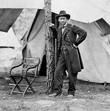































1864 The U.S. Civil War proves to be the Amputation War, with 75% of all field surgery operations being amputations, taking an avg. of 12 min., with a 77% chance of surviving an arm amputation by the sawbones. In Jan. the Bloody Tanks Massacre near Pinal Creek in Ariz. Territory results when rancher King S. Woolsey, pres. of the legislative council pulls a pistol from his coat during a peace parley and murders Pinal Apache chief Paramuca, then has his men murder the other 25-200 gunless Apaches, depending on the source; one white man, Cyrus Lennan is killed when an Indian plays dead then lances him before being gunned down; the blood pools in rock basins, causing the name "bloody tanks", although the whites call it the "Pinole Treaty Battle", and paint themselves as heroes, causing Wooley to be lionized as "Arizona's greatest Indian fighter"; meanwhile the Indians' story (first pub. in 1936) is that the whites had killed off their food supply of deer and stolen their cornfields, causing them to starve, and they had stolen a few cattle and ponies to feed themselves, and only wanted the palefaces to promise not to take any more from them, and when the chief told the paleface that he only wanted peace, Woolsey replied, "We're going to give you peace, a new kind of peace" and fires away, telling his men to "pick out your Indian". In Jan. Kit Carson's forces round up 8K starving Navajos and send them on the first of several Long Walks of the Navajo from Ft. Defiance to new Ft. Sumner at Bosque Redondo (Sp. "Round Forest", N.M., committing atrocities along the way, with 200 dying during the 18-day 450-mi. (720km) trek; by 1865 8K-9K settle on a 40 sq. mi. area in concentration camps where they are forced to live in holes in the ground under armed guards with inadequate rations, where 3.5K die. In Jan. Andersonville Prison (originally named Camp Sumter) is built by the Confeds. in Sumter County, SW Ga. (40 mi. from Butler), opening in Feb. and going on to house 45K Union POWs over the next 14 mo. (until Apr. 1865), of which 12K die from Southern hospitality from exposure, disease, or starvation, not to mention those killed by sharpshooters for crossing the Dead Line around the camp. On Feb. 8 U.S. Sen. (R-Mass.) (1851-74) Charles Sumner (1811-74) (known for his big beating in 1856) introduces another version, with a guarantee of equality, causing a combined amendment to be submitted by the Senate Judiciary Committee to the Senate on Feb. 10; on Apr. 8 the Senate passes it by a 38-6 vote, but on June 15 the House rejects it by 93-65 (for-against). It's a new day in Hell's Kitchen, but Chef Hunley still has some questions about last evening's dinner service? On Feb. 12 after Confed gen. James Longstreet charges his own div. cmdr. and West Point buddy Lafayette McLaws with incompetence, he is put on court-martial, found guilty on May 5, and sentenced to 60 days, after which the sentence is overturned but he is sent to defend Savannah, Ga., becoming bitter and claiming Longstreet used him as a scapegoat for botching his Knoxville Campaign last fall. On Feb. 17 the Confed. ironclad submarine H.L. Hunley (AKA the Fish Boat and the Porpose) named after Horace Lawson Hunley (1823-63) sinks the Union screw sloop-of-war USS Housatonic (one of a group of Union warships blockading Charleston Harbor, S.C.) with an explosive device attached to a pole (beoming the first ship sunk by a sub), then goes to the bottom itself as the hand-cranked propeller shaft fails to work; made in Mobile, Ala. from an iron boiler, er, built to plans, with no periscope, and a candle as the only internal illumination, it had sunk on two previous trial runs, killing five crew the first time (Aug. 29, 1863) and eight the second (Oct. 15, 1863), incl. Hunley; it is found near Sullivans Island in 18 ft. of water by divers in May 1995, raised in Aug. 2000, and the crew officially buried in Charleston in 2004; after the Union fails to take Charleston, its worst naval defeat of the war, former big man rear Adm. Samuel Francis Dupont asks to be relieved of his command, ending his 45-year Navy career on a bummer. On Feb. 24 Confed Gen. Braxton Bragg is summoned to Richmond and made military adviser to pres. Jefferson Davis - I don't like to brag, but? On Mar. 3 Gen. Grant, Gen. George Meade, and Gen. Philip Henry Sheridan (1831-88) (a volatile little Irishman on a big black horse?) cross the Rapidan River. On Mar. 10 after his great work in ridding Tenn. of rebels, Ulysses S. Grant is promoted to lt. gen. (first since George Washington), and put in charge of the Union Armies, replacing Gen. Halleck, going on to suspend the exchange of POWs in Mar. to cut off their source of reinforcements, while thinking nothing of trading his troops 2-for-1 in combat to defeat the Confederacy, soon losing 30K of his 100K troops, more men than Gen. Lee commands, causing First Lady Mary Todd Lincoln to call him a butcher; John Wilkes Booth later plots to kidnap Pres. Lincoln to hold him hostage and force the POW policy to be reversed, then decides on assassination after hearing him support voting rights for black people on Apr. 11, 1865? On Mar. 10-May 22 the Red River Campaign (Expedition) sees 30K Union troops under Maj. Gen. Nathaniel Prentice (Prentiss) Banks (1816-94) (U.S. House Speaker in 1856-7) invade La. along the Red River, facing 6K-15K Confed. troops under Maj. Gen. Richard Scott "Dick" Taylor (1826-79) (son of pres. Zachary Taylor) and Maj. Gen. Sterling, ending in dismal failure starting on Apr. 8 at the Battle of Mansfield (Sabine Crossroads) (Pleasant Grove) in De Soto Parish, La. (first major battle of the campaign), with 2.9K Union vs. 1.5K Confed. casualties; meanwhile on Mar. 23-May 2 the Camden Expedition in S-C Ark. by Union forces under Maj. Gen. Frederick Steele, a plan to march to Shreveport, La. and link up with the amphibious force of Maj. Gen. Nathaniel P. Banks and Rear Adm. David D. Porter for a raid up the Red River Valley into Tex. is a failure after Shelby's Raiders harass them along the way, allowing the Confeds. under Maj. Gen. Sterling Price and Gen. Edmund Kirby Smith to win a series of battles, finally forcing them back to Little Rock, Ark. after Shelby captures their supply trains at Mark's Mill; too bad, Confed. Gen. Edmund Kirby Smith (1824-93) fails to pursue the retreating Yankees, and sends half of his force N to Ark. to meet the army of Gen. Frederick Steele, which had come S from Little Rock, where it was supposed to link up with Banks' army in Shreveport, La., but is now left exposed; on Apr. 30 the Battle of Jenkins' Ferry on the Saline River SW of Little Rock in modern-day Grant County, Ark., sees the 12K overconfident rebels force the Yankees to dig in their heels and kick their butts, allowing Banks' forces to return to Little Rock and keep control of Ark., making Smith and Taylor into bitter enemies; Gen. Sterling Price then decides to bypass Ark. and invade Mo. in hopes that the many Southern sympathizers will rise up. On Apr. 4 the U.S. Congress passes a resolution against the establishment of a monarchy in Mexico, which doesn't stop Cactus Emperor Maximilian I, who accepts the crown of Mexico on Apr. 10, and signs the Miramar Convention. On Apr. 8 the Repub.-controlled U.S. Senate passes the 13th Amendment to the U.S. Constitution by 38-6, and sends it to the divided House, which defeats it on June 15 by 93-65 for-against. Hey, we AEIOU's have been missing out on the New World grab up till now, don't we ever get a turn? On Apr. 10 Archduke Ferdinand Maximilian Joseph of Austria arrives in Mexico City and is crowned emperor Maximilian I (1832-67) of Mexico (until June 19, 1867), encouraging Confederates to migrate to Mexico along with their slaves, while his rival Benito Juarez watches the Yankees' backs and prevents the French from aiding the Confederates in Tex. Is there a little black dirt on your lily-white pillow? On Apr. 12 the Battle of Ft. Pillow near Memphis is a V for the KKK, er, Confederates under Maj. Gen. Nathan Bedford Forrest, who capture the Union-held fort from its defenders, Southern Unionists and freed blacks; accusations of a massacre of black Union soldiers (incl. some whites and the fort cmr.), causing the river to run red stir Union resentment, but Lincoln decides against retaliation. On May 5-7 the Battle of the Wilderness in Spotsylvania County, Va., the first direct confronation between Gens. Robert E. Lee and Ulysses S. Grant sees 65K Confed. troops behind an earthworks cross the Rapidan River on May 3-4, and Grant lead his army of 120K around his E flank over the river, camping in the forested Spotsylvania Wilderness; Lee responds by dividing his army in two, with Gen. Richard "Dick" Stoddert Ewell and Gen. A.P. Hill flanking Grant's troops, and the 1st Corps under Lt. Gen. James Longstreet attacking from the S on May 5; too bad, the Union troops almost overwhelm Hill, who is saved only by nightfall, causing Longstreet to be ordered to break off his attack and relieve Hill, which he does on the morning of May 6 after another Union attack pushes Hill into Widow Tapp's Field and almost captures Gen. Lee; Longstreet then resumes his attack on the S flank, only to become wounded, ending the Confed. attack, except for an attack by Confed. Brig. Gen. John Brown Gordon (1832-1904) at the N flank just before dark; meanwhile in the midst of the fighting, a Yank and a rebel duke it out in Saunders Field, after agreeing that the loser will submit to capture, causing both armies to stop fighting to watch the fistfight; the rebel wins. The horseback war brings back shades of Attila the Hun? On May 9-25 Union Gen. Philip Sheridan leads 10K cavalry armed with repeating carbines on a raid in the Richmond vicinity, destroying railroad tracks and rolling stock, incl. 3 wks. of Confed. rations; on May 11 Confed. cavalry Gen. James E.B. (J.E.B.) Stuart (b. 1833) is mortally wounded at the Battle of Yellow Tavern, 6 mi. N of Richmond (his first wound of the war?), and dies on May 12 (he once said "All I ask of fate is that I may be killed leading a cavalry charge"); he is replaced by wealthy S.C. planter Gen. Wade Hampton III (1818-1902), becoming the only non-Virginian to head the cavalry corps of Lee's army. On May 12 Union troops capture a whole div. of Lee's army at the Bloody Angle in the Battle of Spotsylvania Courthouse (May 8-20), then withdraw after the longest sustained combat of the war (20 hours), but winning the war of attrition against the South (18K Union vs. 12K Confed. casualties); on May 21 Gen. Grant discontinues the fight, gets replacements and marches on toward Richmond around Lee's right with 108K men, relentlessly closing in on the weakening rebel army (60K); on May 26 Grant gets overbold, and on May 31 after encountering Confed. positions along the line of Totopotomoy Creek sends Gen. Sheridan's cavalry ahead to capture Cold Harbor (2 mi. from Gaines's Mill and 10 mi. NE of Richmond, near the site of the 1862 Seven Days' Battle), beginning the bloody Battle of Cold Harbor on May 31-June 12; on June 1 Union troops under Gen. Horatio Gouverneur Wright and Gen. William Farrar "Baldy" Smith (1824-1903) capture much of the Confed. front line while taking 2K casualties, but Lee's forces hold, and on June 2 (morning) counterattack, taking many POWs; on June 3 (4 a.m.) the Yankees begin an advance, and walk into a bloody pre-dawn massacre (5K casualties in 20 min., and 7K by 1:30 p.m.), after which both sides retrench and it becomes a push; on June 12 the Union forces withdraw S across the James River, ending their drive through the Va. Wilderness, with 13K total Union vs. 2.6K Confed. casualties; Grant later admits that the attack is the worst mistake of his career (the only thing he ever admits doing wrong), although at the time he tries to cover it up in an effort to assure Lincoln's renomination; it becomes Lee's last major field V, though he can't afford the casualties. In the west Grant goes on a holiday cruise? On May 13-15 after Gen. Grant gives Gen. William Tecumseh Sherman (1820-91) command of the military div. of the Mississippi (100K men) with the task of destroying the Confed. Army of Tennessee (45K men) under Gen. Joseph E. Johnston and moving against Atlanta, Ga., and Johnston adopts a fight-and-retreat policy, he begins retreating S from Resaca on May 13-15, Adairsville on May 17, New Hope Church on May 25-26, Kennesaw Mountain on June 27, and Marietta, Ga. on June 9-July 3, maneuvering tactically to avoid heavy engagements, then getting trapped into them by Sherman; on June 26 Sherman writes "We have destroyed the land and our animals have eaten up the wheat and corn fields"; on July 17 Pres. Davis replaces Johnston with Gen. John Bell "Sam" "Old Wooden Head" Hood (1831-79), hoping he will prove more aggressive; he later proves too aggressive? On May 15 the Battle of New Market sees the Confeds. under Gen. John C. Breckinridge assisted by VMI cadets force Union Gen. Franz Sigel out of the Shenandoah Valley. On May 29 after Lincoln's wing splits to form the Nat. Union Party, leaving only Radical Repubs., the 1864 Repub. Nat. Convention in Cleveland, Ohio nominates U.S. Gen. John Charles Fremont (1813-90) for pres., and U.S. Gen. John Cochrane (1813-98) for vice-pres. In May Gen. Ambrose Burnside is given command of the Ninth Corps of the Army of the Potomac again, participating in the Richmond campaign (until 1864). On June 15 after the Battle of the Wilderness necessitates finding a burial site for the dead, and measles victim William Henry Christman (1843-64) becomes the first military burial there on May 13, U.S. Secy. of War Edwin M. Stanton signs an order establishing a military burial ground on the confiscated Arlington House estate of Robert E. Lee, his wife Mary Anna Lee (great-granddaughter of Martha Washington), and the Custis family, which becomes Arlington Nat. Cemetery (established May 13); the land was part of the estate of John Parke Custis, son of First Lady Martha Washington; the mansion was built by his son George Washington Parke Custis; the first nat. Memorial Day ceremony is conducted there by Pres. Hoover on May 30, 1929; burials are desegregated on July 26, 1948. On June 9 the Siege of Petersburg, Va. 20 mi. S of Richmond S of the Appomattox River begins (ends Mar. 25, 1865,) with the Confeds. setting up strong defenses; on June 9 the First Battle of Petersburg in Va. is a D for 4.5K Union troops under Maj. Gen. Benjamin Butler against 2.5K Confed. defenders, becoming known as the "battle of old men and young boys". On June 12 Grant's forces, attempting to score a quick knockout of Richmond by capturing Petersburg to the S first, cross the James River with 115K troops (first use of the Gatling gun) after feinting a move towards Richmond that fools Lee, but Confed. Gen. Pierre Toutant Beauregard blocks his arrival long enough for Lee to arrive, and on June 14-17 the Army of the Potomac crosses the James River from the N and moves towards Petersburg to support it. On June 17-18 Confed. forces under Gen. Jubal Anderson Early (1816-94) defeat Union forces under Maj. Gen. David "Black Dave" Hunter (1802-86) at the Battle of Lynchburg in the Shenandoah Valley of Va.; Early then crosses the Potomac on July 5, invades Md. and Penn., and advances to the outskirts of Washington, D.C. on July 11 after the July 9 Battle of the Monacacy River (Junction) under Union Maj. Gen. Lewis "Lew" Wallace (1827-1905) (of Ben-Hur fame) slows him down (saving Washington?); after the Battle of Ft. Stevens in NW Washington, D.C. on July 11-12 sees 10K rebels under Gen. Jubal Early lose to 9.6K federal troops under Gen. Alexander M. McCook and Gen. Horatio G. Wright, with 500 rebel vs. 373 Union casualties, the invasion is aborted and Early turns back on July 12 (eve.), crossing the Potomac River at White's Ferry in Leesburg, Va. on July 13, bringing their booty with them, with Early uttering the soundbyte: "We didn't take Washington but we scared Abe Lincoln like Hell"; on July 12 Lincoln witnesses the attacks from Ft. Stevens through field glasses while dodging bullets, becoming the first U.S. pres. to see action while in office since Madison in the Battle of Bladensburg on Aug. 24, 1814. On June 15-18 the Second Battle of Petersburg sees the Union initially gain ground then get chicken and retreat after Confed. Gen. Beauregard uses a bunch of tricks and "Quaker Guns" (logs) to fool the Yankees into puffing up his army size in their minds. On June 21-23 the Battle of Jerusalem Plank Road (First Battle of Weldon Railroad) sees the Union try to cut supply lines S of Petersburg until they are driven off by Confed. troops under Brig. Gen. William Mahone (1826-95). On June 25 the Battle of Staunton River Bridge sees the Union destroy 60 mi. of railroad tracks before Lee's cavalry finally stops them from destroying the key railroad bridge; on June 28 the Battle of Sappony Church sees the fleeing federals engaged as they head N, causing them to abandon many fleeing slaves they were taking with them; on June 29 the First Battle of Ream's Station sees the same fleeing federals run against more Confeds. and end up burning their wagons and abandoning their artillery before fighting through to Union lines on July 2. On June 19 after a 90-min. battle the war sloop USS Kearsarge, commanded by Capt. (since July 1862) John Ancrum Winslow (1811-73) sinks the CSS Alabama (after it takes a record 69 prizes), captained by Raphael Semmes (1809-77) off Cherbourg, France, ending the career of the South's most famous commerce raider; big man Winslow receives a Congressional vote of thanks and a promotion to commodore, followed by rear Adm. in 1870 with command of the Pacific squadron until 1872 - all I want to do is be in the light? In June Lee's alma mater Va. Military Inst. (VMI) is burned. On July 2 Congress passes the U.S. Wade-Davis Bill, AKA the Ironclad Oath, sponsored by Radical Repubs. Ohio Sen. (1851-69) Benjamin Franklin "Buff" Wade (1800-78) and Md. Rep. Henry Winter Davis (1817-65), upping the ante on Lincoln's 10 percent Reconstruction Proclamation by requiring a majority of white male citizens to swear their allegiance, abolish slavery, repudiate Confed. debts, and other more stringent requirements wanted by the Radical Repubs., incl. male suffrage and military govs.; Lincoln kills it with a pocket veto, causing the sponsors to respond with the Wade-Davis Manfesto, accusing him of seeking relection by the executive establishment of new state govts. On July 18 photographer John Mayall opens up a new studio on King's Road Arches in Brighton, England, five days after the Grand Hotel opens its doors. Atlanta burns, don't stop, can't stop? On July 20 after battles in the Marietta area, Sherman's troops advance toward Atlanta, defeating an attack by Confed. Gen. John Bell Hood at the Battle of Peachtree Creek, then another on July 22 in the Battle of Atlanta, where Union Maj. Gen. Grenville Mellen Dodge, cmdr. of the XVI Corps sees his chance and rides to the front to lead the div. of Gen. Thomas William "Fighting Tom" Sweeny (1820-92) into battle, pissing-off Sweeny, who gets into a fistfight with him, after which Sweeny is court-martialed and Dodge dodges all charges; on July 28 the Battle of Ezra Church results when Hood tries to keep them from cutting his communications S of the city, throwing his 18K starving Confeds against 13K fat federals, and getting repulsed with 2,836 casualties vs. 632 for the Yankees; Grenville Dodge is hit by a Confed. sharpshooter in the head while peeping through an eyehole in the Union breastworks, but recovers; this big D leads on Sept. 2 to the Fall of Atlanta and Burning of Atlanta; Pres. Lincoln, heretofore despairing of reelection, now sees a rosy political dawn; Sherman gives an order sparing all bldgs. with Masonic symbols, saving the Grant Mansion; on Sept. 12 Gen. Sherman sends a Letter to the Shocked Mayor of Atlanta, telling him "War is cruelty, and you cannot refine it"; Walter Quintin Gresham is wounded in the Atlanta campaign, laming him for life, and next year is awarded the honorary rank of maj.-gen. and retires. On July 24 the Confeds. under Gen. Jubal A. Early win a V against Union Gen. George H. Crook at the Second Battle of Kernstown in Frederick County, Va., then on July 30 Early's cavalry burns Chambersburg, Penn. to get even for the burning of the Va. Military Inst., but only after they are given a Southernly chance to pay ransom. On July 27-29 the First Battle of Deep Bottom (Darbytown) (Strawberry Plains) (New Market Road) (Gravel Hill) in Henrico County, Va. sees the Union army under Gen. Winfield Scott Hancock and Philip H. Sheridan cross the James River from the S to threaten Richmond in order to divert Confeds. forces defending Petersburg, then withdraw after a Confed. counterattack. On July 30 the Battle of the Crater sees coal miners from the 48th Penn. infantry under Lt. Col. (later brig. gen.) Henry Clay Pleasants (1833-80), who dug a 511-ft.-long tunnel under the Confed. lines at Petersburg at Elliott's Salient detonate explosives, creating a 135-ft. diam. crater, killing 280-350 Confed. soldiers, then get chicken about sending rehearsed black troops at the Confeds., sending unrehearsed white troops instead, who jump into the crater instead of moving around the rim, ending up getting slaughtered, with 5.3K casualties, causing Gen. Grant to call it "the saddest affair I have witnessed in the war"; the news spooks the Yankee pop., giving the Dems. their chance to call for a negotiated peace, and giving them steam for the upcoming pres. elections on Nov. 8. By July Lee's starving Army of Northern Virginia is bottled up in Petersburg while Grant reinforces and prepares for the final conflict; Gen. Longstreet has recovered from his 1864 Wilderness wounds enough to direct Petersburg's defense; meanwhile Confed. Gen. Jubal A. Early returns to the Shenandoah Valley in Aug., and Gen. David Hunter is replaced as cmdr. of cavalry forces in the Union Army of the Potomac by dashing Gen. William Tecumseh Sheridan. In July the U.S. passes the 1864 U.S. Immigration Act, encouraging white immigration to the Union, causing the huddled masses of Europe to begin pouring into the docks of New York City, only to be signed up for the Union army - but a Sumo wrestler and a dwarf? By the end of July Grant cuts off Lee's supplies from the lower South and begin staging for the final assault on Richmond, putting fun-guy Gen. Benjamin Franklin Butler in command of the Army of the James in Va. On Aug. 5 Union commodore David G. Farragut, with a fleet of 14 wooden warships and four ironclads fights his way past Confed. forts, entering Mobile Bay; after losing one ironclad, the USS Tecumseh (commanded by Capt. Craven) to torpedoes (mines) in the channel, Farragut has himself lashed to his flagship's mainmast, uttering the immortal soundbyte "Damn the torpedoes - full speed ahead!"; although he captures the forts, he doesn't capture the city of Mobile 30 mi. away, and it remains in rebel hands until Apr. 1865, although it ceases to be a center of blockade-running; Sir Henry Newbolt (1862-1938) later immortalizes this event in his poem Craven. On Aug. 14-20 the Second Battle of Deep Bottom sees the Yankees under Winfield Scott Hancock cross the James River again at Deep Bottom in a move on Richmond, then gain some Vs at Fussell's Mill, until the Confeds. drive them back over the river. On Aug. 18-21 the Battle of Globe Tavern (Second Battle of Weldon Railroad) sees the Union under Gen. Gouverneur Kemble Warren cut Petersburg's primary rail connection with Wilmington, N.C., forcing the Confeds. to use wagons for 30 mi. up Boydton Plank Road instead. On Aug. 22 Confed. Gen. Robert E. Lee receives a report that his soldiers are about out of food supplies, after which on Sept. 14-17 the Beefsteak Raid sees 3K Confed. cavalry under Maj. Gen. Wade Hampton ride 100 mi. in N Va. to gather cattle intended for Union troops laying siege to Richmond behind Union lines at Coggin's Point on the James River 5 mi. from Grant's HQ, surprising the 120 guards and stealing 2,468 cattle along with 11 wagons and 304 POWs, with 10 Confeds. KIA, 47 wounded and 4 MIA; Lincoln calls it "the slickest piece of cattle-stealing" he ever heard of; until the end of the war the Confeds. have so much extra beef that they trade it with the Union sentries for luxuries. On Aug. 22 far, far away from the U.S. Civil War carnage, after lobbying by Swiss activist Henri Dunant, 13 Euro states agree to the First Geneva Convention for the Amelioration of the Condition of the Wounded and Sick in Armed Forces in the Field, establishing humane regulations regarding the treatment of sick and wounded POWs; all of the sick and those who minister to them are required to display the Swiss Army knife Geneva cross (red on a white background), and battlefield medical facilites are officially neutral; the first of Four Geneva Conventions by 1949; the Internat. Committee of the Red Cross is established, with the Swedish Red Cross in Stockholm, and the Norwegian Red Cross in Kristiania (Oslo) both founded next year. On Aug. 25 the Second Battle of Ream's Station sees Union troops tearing up railroad tracks get ambushed by the Confeds., losing nine guns, 12 flags, and many POWs. On Aug. 29-31 the 1864 Dem. Nat. Convention in Chicago, Ill. sees the Dems. call for an armistice to be followed by a nat. convention to restore the Union; they nominate Gen. George B. McClellan, who distances himself from his party's peace platform by declaring that Union must precede peace talks; Abraham Lincoln is renominated, with old-fashioned Jacksonian War Dem. Andrew Johnson of Tenn. nominated for vice-pres. by the Nat. Union Party, a wartime coalition of Repubs. and War Dems. (changed back to Repub. Party in 1868); Johnson is picked to lure Northern Dem. votes away from Gen. McClellan; 22 disgruntled opponents of Lincoln vote for Ulysses S. Grant, who is not a candidate. In early Sept. the Confeds. under Gen. Sterling Price invade Mo. with 12K-15K men, aided by Quantrill's Raiders; on Sept. 26-27 they attack Pilot Knob in Iron County, Mo. outside St. Louis, and are held off by a garrison of 1K Yankees, after which Price tries unsuccessfully to take Jefferson City to the W, then is repulsed at the Kan. border, and finally gives up and heads back S on Oct. 23 with his remaining 5K men, losing William Quantrill and William T. "Bloody Bill" Anderson (1839-64), who dies on Oct. 26 in Ray Count, Mo., his body found with a silken cord with 53 knots, plus human scalps on his bridle; Price covers up his failure to Jeff Davis (who never treated him right since he didn't graduate from West Point?) with a glowing report of how he had brilliantly feinted toward St. Louis then maneuvered W to keep the Yankees S of the Missouri River, then marched 1,434 mi., engaging in 43 battles and taking 3K POWs, yada yada yada. On Sept. 26-27 the after crossing from Ark. to Mo. with the goal of capturing St. Louis, and tries to capture Ft. Davidson near the terminus of the St. Louis, Iron Mountain and Southern Railway, the 12K-man Confed. army under Gen. Sterling Price (3K of whom have no weapons) are defeated by the 1.5K-man garrison under Brig. Gen. Thomas Ewing Jr. (1829-96) (brother-in-law of William Tecumseh Sherman) at the Battle of Pilot Knob (Ft. Davidson), taking 1.5K casualties vs. 184 for the Union then evacuating and blowing up the fort before retreating, after which Price retreats to Kansas City, Mo., where he is boxed in by two Union armies. On Sept. 29-30 the Battle of Chaffin's Farm (New Market Heights) sees another Union attack on Richmond repulsed after the Yankees capture several forts, forcing the Confeds. to erect a new line of defensive works, weakening their lines at Petersburg. On Sept. 30-Oct. 2 the Battle of Peebles' Farm (Poplar Springs Church) in Dinwiddie County near Petersburg, Va. sees Union troops capture Ft. MacRae and extend their left flank as they close in on Petersburg. On Oct. 1-3 after Union raiders attempt to destroy the saltworks in Smyth County, Va., the First Battle of Saltville in Va. is a Confed. V under Brig. Gen. Stephen G. Burbridge over Union troops under Gen. Alfred E. Jackson, but they stink it up by committing atrocities against captured black Union troops; on Dec. 20-21 the Second Battle of Saltville is a Union V under Gen. George Stoneman, and they destroy the saltworks, dealing a major blow to the Confederacy's ability to preserve meat. On Oct. 5 the Battle of Allatoona (Pass) in Barstow County, Ga. sees a 3,276-man Confed. div. under Maj. Gen. Samuel G. French fail to dislodge a 2,025-man Union garrison under Brig. Gen. John M. Corse from a fortified position protecting the railroad, with 897 Confed. vs. 706 Union casualties. On Oct. 7 the Battle of Darbytown and New Market Roads sees the Confeds. attack the Union far right flank before Richmond and rout the Yankee cavalry, but get repulsed by the main Union defensive line, and return to Richmond licking their wounds. On Oct. 9-27 the Quebec Conference, attended by 16 delegates discusses the Canadian Confederation, with the U.S. model muddied by the ongoing Civil War, but finally resulting in the Seventy-Two Resolutions, which are sent to the provinces for approval. On Oct. 12 chief justice (since Mar. 15, 1836) Roger B. Taney (b. 1777) finally kicks the lily-white paint bucket on the same that that his home state Md. abolishes slavery, and on Dec. 6 Cornish, N.H.-born U.S. treasury secy. #25 (1861-4) Salmon Portland Chase (1808-73) becomes the 6th chief justice and 38th justice of the 10-member U.S. Supreme Court (until May 7, 1873); no more changes till the war is safely won in 1870. On Oct. 13 the Battle of Darbytown Road sees the Union test the new Confed. defensive line in front of Richmond and get repulsed with heavy casualties. On Oct. 19 the Confeds. under Gen. Jubal A. Early rout two-thirds of the Union army at the Battle of Cedar Creek; too bad, the Johnny Rebs are so hungry that they fall to looting the Union camp, allowing Gen. Sheridan to ride on horseback 20 mi. to rally his troops and score a V, then go on to burn the Shenandoah Valley, destroying the food supply of the Army of Northern Va.; Col. Ranald S. Mackenzie, hated by his troops and haunted by his family skeletons scores big points with Sheridan for taking 500 POWs despite a mangled hand, and taking another bullet in the lung which disables him for months, and is promoted to maj.-gen. next Mar. On Oct. 21-22 the Second Battle of Independence in Mo. is a V for the Confed. Army of Mo. under Gen. Sterling Price over the Union cavalry of Gen. Alfred Pleasonton, who drives Gen. Blunt's army W on day 1, and Pleasanton's cavalry driving Price's army W on day 2. On Oct. 23 22K Union forces led by Gen. Samuel Ryan Curtis (1805-66) defeat the 8.5K-man Confed. army of Gen. Sterling Price at the Battle of Westport ("the Gettysburg of Missouri") near Kansas City, Mo., becoming the largest U.S. Civil War battle fought W of the Mississippi River (29K total troops), followed on Oct. 25 by the Battle of Mine Creek, where 2.8K Union troops defeat 8K Confeds., after which what's left of the rebel army retreats to Tex., and later flees to Mexico after the war, setting up a colony in Carlota, Veracruz, which goes bust, after which Price returns to Mo. and dies of cholera; the site of the Battle of Westport later becomes Jacob L. Loose Park - he thought it was okay not to boil water back in the States? On Oct. 27-28 the Battle of Fair Oaks and Darbytown Road sees the Union try to take Petersburg again, only to be repulsed by a Confed. counterattack and lose 600 POWs. On Oct. 27-28 the Battle of Boydton Plank Road sees 30K Union troops withdraw from the Petersburg lines and march W to take the Boydton Plank Road until a Confed. counterattack recaptures it, after which Union gen. Winfield Scott Hancock resigns, claiming old war wounds from Gettysburg. On Oct. 28 the Second Battle of Newtonia in Newton County, Mo. sees Union troops incl. the 16th Kansas Cavalry and 2nd Colo. Cavalry nder Gen. James G. Blunt encounter defeat retreating Confed. troops under Maj. Gen. Sterling Price incl. the Iron Brigade under cavalry Gen. Joseph O. "Jo" Shelby, who retreat into Indian Territory. On Oct. 30 after gold is discovered in Last Chance Gulch, Mont. in Oct., 4K-ft. alt. Helena, Mont. is founded, and the Territory of Montana (created on May 26) is organized; by 1868 $16M in gold is dug up, and the town pop. reaches 7.5K. On Oct. 31 after telegraphing a copy of their 16,543-word constitution to Pres. Lincoln for review, "Sagebrush State", "Silver State", "Battle Born State" Nevada (Nev.) (Sp. "snowy") is admitted as the 36th U.S. state, even though it doesn't contain enough people to constitutionally authorize statehood, all because of the Comstock Lode on Mt. Davidson in the Sierra Nevada Mts. near 6.5K-ft. Virginia City, and its gold and silver, which is needed to keep the Union solvent, its three electoral votes will ensure Lincoln's reelection; meanwhile N.M. is denied statehood by the Repub.-dominated Congress because it's a Dem. stronghold, Utah because of polygamy, and Repub. stronghold Colo. because of the Sand Creek Massacre - Indian gold is used to finance the killing of whites by whites and that's okay? In Oct. the Confed. raider CSS Shenandoah, under Capt. James Iredell Waddell (1824-86) escapes British port, and in one year of operation sails 58K mi. and takes 30+ Yankee merchant vessels, almost putting New England whaling out of business, and is still burning Yankee whalers in the Bering Sea in July 1865 when a passing British ship brings word of the war's end, making half of its captures into acts of piracy, causing an epic voyage to avoid the whole Union navy and reach a safe neutral port before being captured; after the war the U.S. whaling industry begins reviving until the advent of petroleum products for candles and fuels makes it decline again, shrinking to a few shore-based operations along the Pacific Coast by 1925. On Nov. 1 Md. adopts a new 1864 Md. Constitution officially ending slavery; it takes until Mar. 26, 2007 for the state to officially apologize for its role in the slave trade, days after Va. does it. On Nov. 2 the New York 19th Century 9/11 sees New York City mayor (1864-6) Charles Godfrey Gunther (1822-85) (a Dem.) receives a telegram from U.S. secy. of state William H. Seward warning him of a Confed. plot to burn the city down on election day (Nov. 8), causing Union troops under gen. Benjamin Franklin Butler to occupy the city; on Nov. 25 (Evacuation Day), pissed-off Confed. agents led by Col. Robert Martin, (former subordinate of John Hunt Morgan) stage the New York Attack, setting fire to several crowded hotels to get even for the devastation of the Shenandoah Valley, after which on Nov. 26 police round up 200 suspects, and the Hotel Keepers' Assoc. offers a $20K reward, which doesn't stop the eight rebels from slipping back into Canada; Robert C. Kennedy is later caught trying to rescue some Confed. gens., and hung on Mar. 25, 1865 at Ft. Layfette in New York Harbor, becoming the last Confed. soldier executed by the Union; the whole episode terrorizes New York City, becoming their first 9/11, plus a deja vu for the assassination of JFK and RFK, compounded by the fact that on Nov. 25 brothers Edwin, Junius Jr., and John Wilkes Booth first perform together in the Winter Garden in Shakespeare's "Julius Caesar". On Nov. 8 after initially expecting to lose, then seeing his fortunes turn around with the capture of Mobile and Atlanta, the 1864 U.S. Pres. Election (first wartime election since 1812) (most important pres. election in U.S. history until ?) is a landslide for Abraham Lincoln of the Nat. Union Party, who ran with the slogan "Don't change horses in the middle of a stream", receiving 55% of the popular vote (2,218,388) and 212 electoral votes to George B. McClellan's 45% of the popular vote and 21 electoral votes (1,812,807) (McClellan carries only N.J., plus border states Del. and Ky.); Lincoln makes good use of the new army field vote; only 25 states participate in the election; he now had a mandate to finish the war, and begins strongarming Congress to get a two-thirds majority in the House to pass the 13th Amendment, offering political patronage jobs to lame duck Dem. members, but failing to change a single vote? Lights, action, take two? On Nov. 14-15 Union Gen. William T. Sherman, saying "Let us destroy Atlanta and make it a desolation" burns it again, firing the warehouses and railroad facilities after he orders the city evacuated, and the fire spreads and consumes about a third of the city; on Nov. 16 he begins the 250-mi. Sherman's March to the Sea with 60K troops, POWs, stolen livestock and a trail of newly-freed slaves in a 20-mi.-wide locust-like destruction, in an effort to "make Georgia howl" and demoralize the Confederacy to prevent it from converting into a guerrilla war; on Dec. 13 Ft. McAllister in Ga. is captured; on Dec. 21 the city of Savannah, Ga. falls, and on Dec. 24 is spared by Sherman as a "Christmas gift" in a dispatch to Lincoln; he then pushes into S.C., the "hell-hole of secession", burning more than a dozen towns in whole or part. On Nov. 21 Pres. Lincoln writes a letter of condolence to Mass. mother Lydia Bixby, whom the adjutant-gen. of Mass. reports has lost five sons "gloriously on the field of battle"; "I pray that our heavenly Father may assuage the anguish of your bereavement, and leave you only the cherished memory of the loved and lost, and the solemn pride that must be yours to have laid so costly a sacrifice upon the altar of freedom"; in actual fact, only sons Sgt. Charles Bixby (1863 at Fredericksburg) and Pvt. Oliver Bixby (1864, near Petersburg, Va.) are killed in battle; Corp. Henry Bixby is captured at Gettysburg, and later swapped in a POW exchange; Pvt. George Bixby deserts to the Confederates; Pvt. Edward Bixby deserts and flees to Cuba; Mrs. Bixby is an active pacifist who discouraged all her sons from enlisting. On Nov. 25 after 335 Calif. and New Mexico volunteers and 70 scouts under Col. Kit Carson attack the 150 tepees of the Kiowas under chief Little Mountain and Iron Shirt, other Kiowas under paleface-hating chief Satanta (Set-tainte) ("White Bear") (1820-78), Stumbling Bear, and Lean Bear, allied with the Comanches, Apache, and Arapaho counterattack at the First Battle of Adobe Walls in the Tex. Panhandle near the Canadian River (near the ruins of William W. Bent's 1845 trading post), and the palefaces get surrounded, using two small mountain howitzers with 12-lb. shells on the swarms of Indians, then retreating toward the village of Little Mountain while being chased by shell-dodging braves; after a bitter tepee-to-tepee fight Kiowa Chief Iron Shirt is killed, the Indians flee, and the tepees are torched by the palefaces; total losses: Indian: 60 killed and wounded; palefaces: two killed and 10 wounded; Indian allies of palefaces: one killed and five wounded; too bad that the palefaces' horses are too tired to chase the fleeing Indians? On Nov. 30 after Confed. Gen. John Bell Hood leads his dispirited 40K-man Army of Tennessee from Ala. into Tenn. to try to smash the "nothing but victory" Army of the Tennessee of Gen. George H. Thomas before reinforcing Gen. Robert E. Lee in Va., they attack entrenched federals of the Army of the Ohio under gen. John McAllister Schofield (1831-1906) at the Battle of Franklin, Tenn. (pop. 2.5K) (5 mi. S of Nashville), and dislodge them in five hours, but at the cost of 9K casualties on both sides (dooming the South?); Thomas' 50K-man army then attacks Hood's 25K-man army on Dec. 15-16 at the Battle of Nashville 4 mi. S of Nashville, dissolving the rebels, causing thousands to surrender and the rest (less than half) to flee S to Tupelo, Miss. (birthplace of Elvis Presley and Lawrence Welk star Guy Hovis?); Carrie Winder McGavock (1829-1905) starts the first Confederate cemetery on private land at her Carnton Plantation, with 1,481 graves of Confed. soldiers KIA at Franklin. On Dec. 8 Pope Pius IX issues his infamous Syllabus of Errors (Syllabus Errorum), which condemns separation of church and state, freedom of the press and religion, Rationalism, modernism, liberalism, Socialism, etc., all lumped together on the red ink list; on Dec. 8 he also issues the encyclical Quanta Cura (Condemning Current Errors), condemning freedom of religion and speech, and separation of church and state, especially the "insane" idea that "Liberty of conscience and worship is each man's personal right, which ought to be legally proclaimed and asserted in every rightly constituted society; and that a right resides in the citizens to an absolute liberty, which should be restrained by no authority whether ecclesiastical or civil, whereby they may be able openly and publicly to manifest and declare any of their ideas whatever, either by word of mouth, by the press, or in any other way"; meanwhile Italy renounces its claim on Rome, and the capital of Italy is moved from Turin to Florence (until 1870); after several Vs of his Repub. forces in uniting Italy from control by the papal states, Giuseppe Garibaldi is given a triumphal reception in England, with the crowds chanting "We'll get a rope and hang the pope so up with Garibaldi!" On Dec. 15-16 the Battle of Nashville in Tenn. sees 30K Union troops under Maj. Gen. George H. Thomas decisively defeat and destroy a 30K-man Confed. army under Lt. Gen. John Bell Hood, with 9K Union cavalry armed with the Spencer Repeating Rifle, ending large-scale fighting in the Western Theater. On Dec. 25 the Jefferson Davis family spends Christmas in the cozy slave-filled Confed. White House, and Varina Davis later pub. Christmas in the Confederate White House in the New York World on Dec. 13, 1896, which becomes a hit. In Dec. with Pres. Lincoln's consent, Repub. Party founder Francis Preston Blair Sr. (1791-1876) (owner of Blair House in Washington, D.C.) travels to Richmond, Va. to conduct private peace negotiations with Jefferson Davis, leading to a peace conference next Feb. 3. In Dec. Gen. Grant removes Gen. Benjamin Franklin Butler from command of the Army of the James for failure to take Ft. Fisher in N.C.; after the war Butler becomes Repub. rep. from Mass. from 1867-75 and 1877-79, then gov. of Mass. from 1882-4; David Dixon Porter goes on to bombard and silence pesky Ft. Fisher, and is made vice-adm. in 1866. Montgomery Blair resigns as U.S. postmaster gen. after introducing major improvements in the postal system incl. the use of money orders, free urban delivery, and the sorting of mail in transit on special postal railroad cars. The motto "In God We Trust" first appears on U.S. coins. The first federal excise tax for cigarettes is imposed by Congress to help pay for the war - one good to come out of the Grimean (Crimean) War? The Knights of the Golden Circle (founded 1854), which changed its name in 1863 to the Order of Am. Knights, changes it again to Sons of Liberty, with a membership of several hundred thousand in the upper South and Ohio Valley, with the goal of helping Emperor Maximilian I of Mexico annex a "golden circle" of territories in Mexico, Central Am., the Confed. States of Am., and Caribbean as slave states, working to hinder enlistments in the Union Army and encourage desertions, causing most of its leaders to be arrested for conspiracy, and three to be sentenced to death but later released; the govt. crackdown causes the society to collapse. Jefferson Davis' son Joe is killed after falling from a high porch onto a brick pavement. The love of money is the root of all green? Hetty Green (1834-1916) inherits $7.5M from her Quaker whaling fleet owner father, and goes on to invest in U.S. Civil War War bonds, followed by railroad bonds, and become the richest woman in the world, getting more nutty every year, living like a pauper in a single black dress and undergarments, never washing her hands, and becoming known as "the Witch of Wall Street".

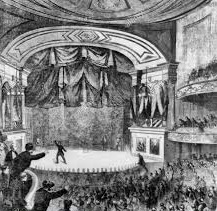
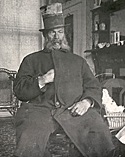








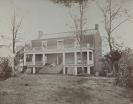
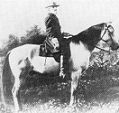
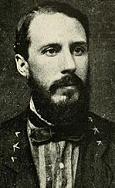




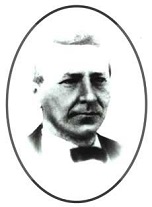
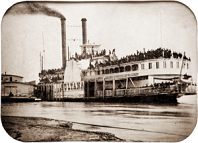
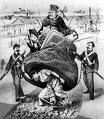








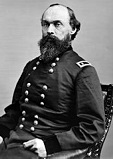




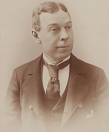









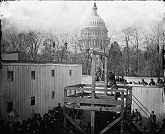

















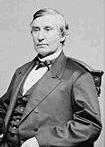




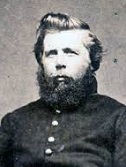



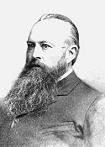

1865 Between 1865-90 the rates on freight trains drop and services grow from 10B to 72B ton-mi. Chivalry is as chivalry does? Early in the year Confed. Pres. Jefferson Davis sends a message to England and France offering to abolish slavery in exchange for official recognition; the war ends before either country responds. On Jan. 13 Confed. Gen. John Bell Hood resigns his command in Tupelo, Miss. (future birthplace of Elvis Presley and Lawrence Welk singer Guy Hovis). On Jan. 13-15 Union forces under Brig Gen. Alfred Howe Terry (1827-90) capture Confed. stronghold Ft. Fisher in Wilmington, N.C. with an amphibious assault. On Jan. 16 Union Gen. Sherman issues Field Order 15 in Savannah, Ga., setting apart for blacks the islands S of Charleston, S.C., abandoned rice fields along rivers for 30 mi. from the sea, "and the country bordering the St. Johns River, Florida", with no whites allowed on Georgia's offshore islands; N.J.-born freedman and abolitionist Tunis Campbell (1812-91) is appointed military gov. of five Georgia sea islands, and establishes a govt. on St. Catherine's Island, where he distributes land to other blacks, organizes a bicameral legislature and a supreme court, makes himself pres., provides schools, and establishes a militia to keep out whites. On Jan. 20 Pres. Lincoln invites U.S. Rep. Oakes Ames into his office and keeps him after midnight, telling him, "If the subsidies provided [for the Union Pacific Railroad] are not enough to build the road, ask double and you shall have it; the road must be built"; by the end of the year it reaches Kansas City, Mo.; meanwhile on Jan. 7 Irish-born Central Pacific construction boss James Harvey Strobridge (1827-1921) places an ad in the Sacramento Union announcing jobs for 5K laborers at $3 a day, but after few apply because they can make more in the Nevada silver mines, he contracts with the Chinese Six Cos., an immigration agency named for six areas of S China to provide 9K laborers from Calif. and Guangzhou (Canton) province in China to go with the 1K white suckers that bit; 500+ Chinese end up dying trying to blast through 7K-ft. Donner Pass. The Confederacy is done for, stick it with a fork? On Jan. 31 after abolitionist Ohio Repub. Rep. (1859-9) James Mitchell Ashley (1824-96) (House floor mgr.) (known for traveling with John Brown's widow to see his execution, writing a bill to abolish slavery in the District of Columbia, and introducing the first bill for a constitutional amendment to abolish slavery on Dec. 14, 1863) moves for a reconsideration on Jan. 6, causing a month-long House debate with crowded galleries, giving Ashley time to swing some lame duck Dems., and Pres. Lincoln sends a last minute trick message to the House claiming that he has "no knowledge" of Southern peace reps. in Washington, D.C. even though he sent Repub. leader Francis Preston Blair Sr. (1791-1876) to Richmond, Va. to persuade Jefferson Davis to send commissioners incl. vice-pres. Alexander Stephens to discuss peace terms, and had them held up at Gen. Grant's HQ in Va. on Jan. 29 to help the amendment pass, and Radical Repub. leader Thaddeus Stevens (1792-1868) on Jan. 13 cops-out and claims it's only to create "equality before the law" rather than racial equality, weathering sarcastic questions from Copperhead Dem. N.Y. rep. (1863-5) (Tammany Hall sachem) Fernando Wood (1812-81) and Ohio rep. (1857-85) (pro-slavery leader) "Gentleman" George Hunt Pendleton (1825-89), the Thirteenth (13th) Amendment to the U.S. Constitution, abolishing slavery and involuntary servitude except as punishment for a crime, originally introduced by U.S. Sen. (R-Ill.). (1855-73) Lyman Trumbull (1813-96) (chmn. of the Senate Judiciary Committee) is approved by the 38th Congress by 119-56-8 to a great cheer incl. blacks in the gallery, and sent to the states for ratification on Feb. 1, and after Ga. becomes state #27 of 36 to ratify it on Dec. 6, on Dec. 18 it is officially adopted by U.S. secy. of state William Seward; Stevens later utters the soundbyte: "The greatest measure of the nineteenth century was passed by corruption, aided and abetted by the purest man in America"; Lincoln could have waited until Mar. to call a special session of the Congress, with enough votes to pass it assured, but claims that prompt bipartisan approval would show nat. unity; he really thinks it can't be passed if the war ends first?; in 1864 the Cooperheads pub. the pamphlet Abraham Africanus I: His Secret Life, Revealed under the Mesmeric Influence, claiming that Lincoln signed a contract with the Devil to become pres. for life and "subvert the liberties of the American people and debach their civic aspirations", which doesn't keep the amendment from passing; Fla. ratifies it on Dec. 28, N.J. in 1866, Tex. in 1870, Del. in 1901, and Ky. in 1976; Mo. and Tenn. abolish slavery by state action in Jan.; too bad, the Southern states soon exploit the loophole that slavery is permissible as punishment for crimes, soon getting freed slaves sentenced to "time at hard labor" sans prisons, creating the Convict Lease Labor Racket, which lasts until WWII although in 1928 Ala. becomes the last state to do it officially; it takes until Feb. 7, 2013 for Miss. to finally ratify it after it's ratified in 1995 but the notification isn't sent to Congress until the Oct. 8, 2012 Steven Spielberg film Lincoln alerts U. of Miss. profs. Ranjan Batra and Ken Sullivan to kick the Miss. secy. of state in the pants. On Jan. 31 Gen. Robert E. Lee is named gen.-in-chief of all the armies of the confounded Confederacy. In Jan. an oil well is discovered in Pithole Creek, Penn., and by July four wells in the new town of Pithole pump 2K barrels a day, 30% of all the oil produced in Penn., causing the town pop. to grow to 12K, with 50 hotels, and driving oil prices down from $12 last year to $2.40 a gal.; meanwhile the first oil pipeline (6-mi.-long) is laid in Penn. In Jan. the gold value of the Union greenback is down to 46 cents, and Confed. paper money is down to $17 per $1000; when the war ends, Confed. money becomes worthless, and the greenback doesn't regain full value until the end of 1878. On Feb. 3 the Hampton Roads Conference aboard the River Queen near Ft. Monroe in Hampton, Va., the first of the war between the Union and Confederacy is a bust after Pres. Lincoln and William Seward demand reunion and Confed. vice-pres. Alexander Stephens wants to stay independent, the emancipation issue dealing it a double-whammy; a harebrained scheme by Francis Preston Blair to get them to kiss and make up in order to attack Emperor Maximilian in Mexico is dropped - why, I can't keep my mammie? On Feb. 4 a broad transverse stripe of red is added to the official white Confed. flag so that the Yankees won't mistake it for a truce flag - cute little cheerleaders are too dear? On Feb. 5-7 the Battle of Hatcher's Run sees a Union attempt to intercept Confed. supply trains repulsed. On Feb. 6 John Cabell Breckinridge becomes the 5th and last Confed. war secy. (until May 10), going on to work for an honorable surrender, bucking Jefferson Davis, who wanted to fight forever. On Feb. 17 Columbia, S.C. falls, burnt to the groundy ground ground by Gen. William "Pizza Hut Pan Pizza" Tecumseh Sherman, followed by Charleston, S.C. on Feb. 18, which falls to the Union fleet; fleeing Confed. soldiers go S and join Gen. Joseph Eggleston Johnston's army. On Feb. 20 the Battle of Ft. Myers in SW Fla. sees Confed. Fla. troops siege the fort, killing one black Union soldier and injuring three before retreating after dark; the Union troops abandon the fort in Mar.; next Feb. 21 Manuel A. Gonzalez and his 5-y.-o. son Manuel S. Gonzales from Key West become the first permanent settlers of the city of Fort Myers, Fla., which becomes a major winter resort after the building of the Royal Palm Hotel in 1898, attracting Thomas Edison, Henry Ford et al. On Feb. 22 Tenn. adopts a new 1865 Tenn. Constitution abolishing slavery. On Feb. 23 Lee reinstates Gen. Joseph Eggleston Johnston as cmdr. of the Army of the Tennessee, and Gen. Braxton Bragg is assigned to serve under him. On Feb. 27 after recruiting thousands of blacks for the military in R.I., Conn., and Cleveland, and visiting Lincoln on Feb. 8, impressing him with his intelligence, causing him to reconsider an appeal made to him in 1863 by Frederick Douglass (1818-95), former African nationalist (now that the Civil War is on, I'll give it another chance?) Martin Robinson Delany (1812-85) is commissioned as a maj. in the 52nd U.S. Colored Troops, becoming the first black line field officer in the U.S. Army; in Feb. the first occupation troops to arrive in Charleston, S.C., the "holy of holies" of the Confederacy are guess, black units, incl. the Third and Fourth S.C. Regiments, partially manned by former slaves of that very city where the secession convention had been held in 1861 and the Dem. Party had been disrupted by a Southern walkout in 1860. On Mar. 2 John Davison Rockefeller (1839-1937) of Cleveland, Ohio (who actually made his money selling booze to Union troops during the Civil War, then laundered it, and is known for the soundbyte "I would rather earn 1% of 100 peoples' efforts than 100% of my own efforts"?) dissolves his produce business relationship with Maurice B. Clark (1827-1901), and goes into biz with his brother William Avery Rockefeller Jr. (1841-1922), tycoon Henry Morrison Flagler (1830-1913), and chemist Samuel Andrews (1836-1904), pumping up his 2-y.-o. oil refinery to 500 barrels per day, becoming the first large oil refinery in Cleveland, which has 50 refineries by next year (#2 to Pittsburgh), producing massive pollution while making J.D. wealthy. On Mar. 3 Congress sets up within the U.S. War Dept. the Bureau of Refugees, Freedmen, and Abandoned Lands (Freedman's Bureau) to provide 400K freed slaves with "provisions, clothing and fuel", with Gen. Oliver Otis Howard (1830-1909) as dir.; Pres. Johnson cancels Sherman's Field Order 15, and sends troops to restore the land given to blacks to their former white owners; the bureau takes over abandoned and confiscated land, and Howard gets Gen. Sherman to promise that every freedman will get "forty acres and a mule", offering it for rental in 40-acre tracts to "loyal refugees and freedmen", who can buy the land at a fair price within three years; too bad, the amount of land available is too limited for everybody to get theirs, being limited to a 30-mi.-wide coastal strip from Charleston S to St. John's River in Fla., and Howard receives orders to evict blacks from all other plots except on the Sea Islands; on July 23 black Maj. Martin Robinson Delany is appointed asst. commissioner and gives lectures to white officers, pissing them off with his uppityness, getting him removed on Aug. 7, while white Maj. Gen. Robert Kingston Scott (1826-1900) (new gov. of S.C.) replaces gen. Rufus Saxton as head of the Freedman's Bureau, becoming known for corruption - all I got is this t-shirt? On Mar. 3 the Colorado River Indian Reservation is established by an act of Congress; going on to reach 264,250 acres, incl. 225,914 in Yuma County, Ariz., and 38,366 in San Bernardino and Riverside Counties in Calif. The greatest speech in U.S. history? On Mar. 4, 1865 U.S. pres. #16 (since Mar. 4, 1861) Abraham Lincoln of the Union Party is inaugurated at the U.S. Patent Office (now a military hospital) in Washington, D.C. for a 2nd term in the 22nd U.S. Pres. Inauguration; first U.S. pres. to be elected for a 2nd term and not finish it (McKinley, Nixon); four cos. of African-Am. troops from the lodges of the African-Am. Masons and African-Am. Odd Fellows march in the procession to the U.S. Capitol, becoming the first time that African-Ams. march in the inauguration parade; Raleigh, N.C.-born Andrew Johnson (1808-75) becomes the 16th U.S. vice-pres. (he never went to school and was taught to read to the other tailors by his boss while sewing, and to write and do math by his wife Eliza, and is drunk as a skunk during his inauguration); Hannibal Hamlin becomes a collector in the port of Boston, Mass.; on Mar. 4 Lincoln's Second Inaugural Address, delivered to a biracial audience (the blacks considering him as their savior) is only 701 words, lasts 7 min., and is Biblical in tone, complete with a dramatic moment when the clouds part and bathe him in brilliant sunlight (stolen by the 1981 British film "Chariots of Fire"?), beginning with the soundbyte: "Fondly do we hope, fervently do we pray that this mighty scourge of war may speedily pass away", remarking on how both sides pray to the same God and read the same Bible, and how one people can force another people to sweat to give them free bread, considering the war as God's retribution on all whites for the sin of slavery (which started in Jamestown in 1619, 246 years earlier), and concluding: "With malice toward none, with charity for all, with firmness in the right, as God gives us to see the right, let us strive on to finish the work we are in, to bind up the nation's wounds... to do all that shall achieve a just and lasting peace, among ourselves, and with all nations"; John Wilkes Booth attends Lincoln's inauguration and inaugural ball, where Frederick Douglass is barred by guards until Lincoln orders him to pass, then calls him his friend and asks for his valued opinion on the speech, which Douglass calls a sacred effort. On Mar. 8-10 the all-cavalry Battle of Monroe's Crossroads in Hoke County, N.C. sees the Confederates under Gen. Wade Hampton take the Union by surprise, catching womanizing Gen. Hugh Judson "Kil-Cavalry" Kilpatrick (1836-81) ("a hell of a damn fool" - Gen. Sherman) by surprise in his nightshirt dallying with a loose woman, causing "Kilpatrick's Shirt-Tail Skedaddle", becoming the last cavalry campaign of the war; 5 wks. later during surrender negotiations for the Confederacy's last army in the East, Hampton and Kilpatrick trade epithets and almost get into a fistfight? On Mar. 11 500 bounty jumpers are arrested by U.S. Army provost marshals, the majority having deserted 3x-30x in order to keep the enlistment bounty, which is larger than the $30 offered for their apprehension, creating a lucrative racket when the captors begin letting them go in return for a cut. On Mar. 13 the Confederate Congress narrowly passes a Confed. Emancipation Act, sponsored by secy. of state Judah P. Benjamin and backed by Gen. Robert E. Lee, promising emancipation to any slave who joins the Confed. military, despite the logical contradictions, becoming too little, too late? On Mar. 17 actor John Wilkes Booth, "the handsomest man in America" (wears a ring on his right pinkie) allegedly talks Mary Surratt's son John Harrison Surratt Jr. (1844-1916) out of merely kidnapping Pres. Lincoln in favor of assassinating him; on Mar. 18 he gives his last performance as Duke Pescara in The Apostate. On Mar. 18 the Confederate Congress adjourns for the last time. On Mar. 19 (Sun.) after telling him that the siege of Petersburg is wearing his army down, Gen. Lee attends church services for the last time with Jefferson Davis in Richmond, Va., then rides back 20 mi. S to Petersburg to make his last stand to save the key railroad hub. On Mar. 19-21 the Confeds. under Gen. Joseph Eggleston Johnston mount a desperation attack on Sherman's left wing at the Battle of Bentonville, N.C. ()near Four Oaks) in an attempt to stop him from getting through the Carolinas, becoming Sherman's last major battle and the last major Confed. offensive; the Confeds. get licked, and end up retreating from Greenville, S.C., allowing Sherman and Grant to join up at Petersburg; Confed. lines have thinned out to only about 1K soldiers per mi. On Mar. 22 Wilson's Raid (ends Apr.) by 13.5K Union calvary under Brig. Gen. James Harrison Wilson (1837-1925), all armed with new 7-shot Spencer repeating rifles begins, systematically destroying Southern manufacturing facilities in Ala. and Ga., while the shrinking ragtag 2.5K-man rebel cavalry of Confed. Lt. Gen. Nathan Bedford Forrest tries unsuccessfully to stop them; on Mar. 28 the Oxmoor and Irondale iron furnaces at Elyton near Birmingham, Ala. are destroyed, followed on Mar. 31 by the Roupes Valley Ironworks in Tannehill, followed by the military training facilities at the U. of Ala. in Tuscaloosa; on Mar. 31 the HQ of Forrest is overrun and his secret military documents captured, and he makes a stand on Apr. 1 at the Ebenezer Church in Plantersville, then regroups to make a last stand at the key town of Selma, Ala. On Mar. 25 (dawn) the Battle of Ft. Steadman (Hare's Hill) sees last-chance Gen. Lee attempt to break out of WWI-like Petersburg and attempt to capture a Union supply depot at City Point, suffering 2.9K casualties plus 1.9K captured in the Union counterattack, almost 15% of his army. On Mar. 28 Pres. Lincoln meets with his main military cmdrs. on the sidewheeler ferry River Queen, telling them that he hopes they can avoid a bloody Armageddon and avoid a Confed. guerrilla war, telling them that when the war ends there must be no "bloody work" incl. executions and reprisals. In Mar. Pres. Lincoln sends a Statement to Congress, saying: "I have two great enemies, the Southern Army in front of me and the financial institutions in the rear. Of the two, the one in my rear is my greatest foe"; this later causes conspiracy theorists to blame the Rothschild internat. banking family for his assassination. Apr. 1865: The month that saved the U.S.? On Apr. 1 (dawn) Union Gen. Sheridan, supported by Gen. Gouverneur Kemble Warren launches the Battle of Five Forks Crossroads on the Confed. right flank on the White Oak Road 15 mi. SE of Dinwiddie Courthouse, SW of Petersburg, Va., becoming the last major battle of the war, with the Union defeating the desperate Confeds. under Maj. Gen. George Edward Pickett, taking 5K POWs and causing the rest to flee, giving the Yankees possession of the key White Oak Road and South Side Railroad, exposing Richmond 20 mi. to the N; Gen. Lee's nephew cavalry gen. Fitzhugh Lee (1835-1905) leads an attack that forces Sheridan to retreat from Five Forks. On Apr. 2 the Battle of Selma in Ala. is a V for the Union against the ragtag cavalry of Confed. Gen. Nathan Bedford Forrest, who flees to Marion, Ala. On Apr. 2 (Sun.) after the Union army begins an 18-hour all-out attack on Petersburg, Jefferson Davis receives a telegram from Gen. Lee while sitting in his usual pew #63 in St. Paul's Episcopal Church in Richmond telling him toevacuate immediately; Gen. Lee abandons starving Richmond and Petersburg in a desperate flight towards Lynchburg, Va. and its rails, which can carry him to link up with Gen. Johnston in N.C.; after sending Lee a telegram asking if he can hold out longer, which Lee tears up, Pres. Jefferson Davis gathers his archives and treasures, tidies his desk so the Yankees won't accuse him of being a slob, and takes a train ahead of the advancing federals along with most of his cabinet; at night Confed. soldiers obey orders to destroy all military supplies, breaking open whiskey barrels and creating a drunken mob; after a fire set to destroy tobacco warehouses is caught by the wind, the Confed. arsenal at Richmond burns down, with 100K shells going off, burning the city down and destroying 900 bldgs. On Apr. 3 Petersburg surrenders, and Richmond is occupied after local Yankee sympathizer Elizabeth "Crazy Bet" Lew (1818-1900) (who pretends to be nuts to divert suspicion) passes them info. through five relay stations she set up, then raises the first Union flag in Richmond; Gen. A.P. Hill (b. 1825) is killed at Petersburg; Jefferson Davis and his cabinet flee S to Danville, Va. on the S border, proclaiming it the new Confed. capital, then flee on Apr. 10 to Greensboro, N.C. after hearing of Lee's surrender at Richmond after issuing his last pres. proclamation and holding his last cabinet meeting, leaving several hundred Union POWs in six tobacco warehouses, where up to 5K had been held during the war, and 1,314 died in 1864 during a smallpox epidemic; meanwhile Pres. Lincoln visits Richmond in a rowboat, and sits in Jefferson Davis' chair; after Davis & co. are captured the Confederate Treasury, incl. 4kg of Mexican silver dollars disappears, and isn't found until ?. On Apr. 4 Gen. Lee, freed from the millstone of Petersburg and hoping to work new miracles to save the war, having ordered 350K emergency rations stored in Richmond shipped by rail arrives at Amelia Courthouse, Va., but finds that a screwup has shipped guns and ammo but no food; at night he sends out foraging wagons begging farmers for food, and at dawn they return empty; by Apr. 9 the starving army of 30K-35K death-marches down to 25K. On Apr. 5 (night) Gen. Grant orders Gen. Sheridan not just to harass but to get ahead of Gen. Lee's army, and on Apr. 6 he catches them at the Battle of Sailor's Creek (Sayler's Creek) (Little Sailor's Creek) (Harper's Farm) (Marshall's Cross Roads) (Hillsman Farm) (Double Bridges) (Lockett's Farm) near Farmville, Va. (last major battle between Lee and Grant), where the hand-to-hand combat is so savage that Gen. Lee grabs a battle flag and leads the charge; when the wind catches the flag and wraps it around him, his troops shout "Who will fight for Master Robert - we will we will!" On Apr. 6 the last Grand Review of the Confed. Army is held in Selma, N.C., later the home of Vicks VapoRub. On Apr. 7 after five days of starvation Lee's army finds food in Farmville, Va., and fires the High Bridge over the rain-swollen Appomattox River, but the Yankees put the fires out and save it, causing Lee's troops to have to skedaddle from the town without finishing their meals. On Apr. 8 Gen. Lee receives two Union communiques suggesting surrender, but shrugs them off, hoping to escape to the Blue Ridge Mts., where he believes he can hold out for 20 years; at night he sees Union campfires to the S, E, and W. The Yankees make a McLean sweep of Lee's Army of Northern Virginia, which is too chivalrous and gentlemanly to Vietnamize America? On Apr. 9 (Palm Sun.) (dawn) with the bulk of Gen. Sherman's forces moving N towards Va. since Feb., while Gen. Philip H. Sheridan's cavalry traps him, Gen. Lee stages a last-ditch attempt to break-out to the S, which fails after Union superiority is too great, and he is caged by an iron circle; Gen. Lee then holds a morning conference with his cmdrs., where artillery Brig. Gen. Edward Porter Alexander (1835-1910) (the officer in charge of the massive artillery bombardment preceding Pickett's Charge) suggests a guerrilla war, but Lee rejects it with the soundbyte: "It is our duty to live"; at 1:30 p.m. disobeying orders from Jefferson Davis to not surrender, Confed. Gen. Robert Edward Lee (1807-70), dressed in his best dress uniform complete with jewelled ceremonial sword (a proverbial Easter Bunny who's lost a shoe?) (thinking he will become a POW) picks the time and place then unconditionally surrenders to mud-splattered Union Gen. Ulysses S. "Unconditional Surrender" Grant (1822-85) (who arrives half an hour after Lee, sans sword) in the parlor of the 2-story brick home of retired (since 1854) wholesale grocer Wilmer McLean (1814-82) in nearby Appomattox Courthouse Village, Va., on Clover Hill near Lynchburg, Va. (his goal, where he could have gained food and supplies and joined Gen. Johnston's army by rail), four years to the day after Confed. pres. Jefferson Finis Davis (1808-89) (prophetic middle name?) and his cabinet decided to attack Ft. Sumter; "After four years of arduous service marked by unsurpassed courage and fortitude, the Army of North Virginia has been compelled to yield to overwhelming numbers and resources" (Lee); at Pres. Lincoln's orders, Grant grants the Army of Northern Va. a complete amnesty on the condition of signing a parole promising never to take up arms against the Union again; Lee has 26,765 men left at the surrender; there are 175K Confed. troops still at arms; at Lee's request (to save face), Grant permits the remaining rebel officers to keep their sidearms, and the soldiers to keep their private horses and mules for the "spring planting", and orders food and fodder to be supplied to them; Gen. Grant orders all Union celebrations to halt; Grant's adjutant is Seneca Iroquois Indian Col. Ely Samuel Parker (nee Hasanoanda) (1828-95) (writer of the final draft of the Confed. surrender terms), whom Lee at first mistakes for a negro, saying "I'm glad to see one real American here", to which Parker replies "We're all Americans, sir"; Parker is later promoted to brig. gen. retroactive to the surrender, and becomes head of the Federal Commission on Indian Affairs in 1869-71; Lee's iron-grey (black mane and tail) 16-hand "Confed. grey" horse (purchased for $200 for $200) Traveller (1857-71) carries him that day; Grant's horse is named Cincinnatus; Pres. Lincoln asks that Dixie be played when he receives news of Lee's surrender on Apr. 9; the war began in Wilmer McClean's house along Bull Run near Manassas Junction, and it ends in his new living room (making it a McClean sweep?); pro-Confed. British Roman Catholic politician Lord John Emerich Edward Dalberg-Acton, 1st Baron Acton (1834-1902) (known for the soundbyte "Power tends to corrupt, and absolute power corrupts absolutely", whose notes to PM William Gladstone helped sway many in the British govt. to the Confed. cause) writes Lee: "I mourn for the stake which was lost at Richmond more deeply than I rejoice over that which was saved at Waterloo", adding that he "deemed that you were fighting battles for our liberty, our proress, and our civilization"; the U.S. Civil War (begun 1861) ends, with total casualties of 620K-700K killed (6X the number per capita killed in WWII) out a total of 2.5M-2.75M Union and 750K-1.25M Confed. soldiers (overwhelmingly white, except for 38K black army troops and 2.8K black sailors), leaving the Southern economy and landscape pretty much kaput, and 3.5M black U.S. slaves (worth $4B) to be set free with nowhere to go; battle deaths are 111K Union and 94K Confed., with disease killing 250K Union and 164K Confed. troops, for a total of 360K Union and 258K Confed. deaths; 112 every thousand Union and 150 every thousand Confed. troops in battle were wounded; on Apr. 20 Mathew Brady takes his famous Photo of Robert E. Lee after he heads straight back to Richmond, in his back porch, wearing his Confed. uniform for the last time; Lincoln's son Robert Todd Lincoln (1843-1926), who graduated from Harvard in July 1864 and used his daddy to get him a job on Gen. Grant's staff as a capt. early this year is present at Appomattox, and later sits at his dying daddy's bedside, and is later nearby at two more U.S. pres. assassinations (Garfield, McKinley); Confed. Gen. Jubal A. Early, after being relieved of command in early Mar. after a defeat in Penn. by Union Gen. Custer, flees to Texas, Mexico, Cuba, then Toronto, Canada until 1869, when he returns to Lynchburg, Va. to practice law; Civil War monuments are later erected, from Gettysburg, Penn. (northernmost) to Vicksburg, Miss. (southernmost). On Apr. 10 (a.m.) Gen. Lee issues Order No. 9, telling his troops to surrender, and assuaging bitterness against the damned Yankees; in the morning Lee meets with Grant again, telling him that he will devote his energies to bringing rebels back into the Union. On Apr. 10 Jefferson Davis receives news of Lee's surrender at his new Confed. capital of Danville, Va., telling his cabinet that they will continue their fight, then going into the next room and crying like a baby; at midnight after Union troops attack, he and five cabinet members flee again by rail through N.C. The look of love? The U.S. Civil War ends, John Brown's body sleeps well now, but the play does goes on - um? On Apr. 11 a few days before he is shot, Lincoln tells his close friend and bodyguard Ward Hill Lamon (1828-93) (his White House protocol chief) of a dream about seeing his own wake? On Apr. 11 (evening) Pres. Lincoln delivers Lincoln's Last Public Address from the White House balcony, in which he offers reconciliation to the Confed. states, attempting to pull off a Prodigal Son solution, saying "Finding themselves safely at home, it would be utterly immaterial whether they had been abroad"; he also supports voting rights for black people, pissing off John Wilkes Booth at the thought of nigger citizenship, and making him change his original plan of kidnapping Lincoln to assassinating the n-word lover? On Apr. 12 Gen. Lee's 28K troops formally surrender; the Union troops shoulder their arms to show respect. On Apr. 13 Mobile, Ala. and Montgomery, Ala. (first capital of the Confederacy) surrender. On Apr. 13 Raleigh, N.C. is occupied by Union forces. On Apr. 14 Ft. Sumter hosts a massive celebration on the 4th anniv. of its fall, with speakers incl. William Lloyd Garrison and Henry Ward Beecher; big hero Brig Gen. Robert Anderson (1861 cmdr.) comes out of retirement; a few hundred black soldiers are brought out by the Planter, and at noon Anderson rehoists the 33-star Stars and Stripes to the sound of salutes by all the forts in the harbor. Drinkin' with Lincoln for the last time, or, It's a nice day for a White Wedding? On Apr. 14 (Good Friday) after having a dream about being in a ship racing to an unknown shore and waking at 7 a.m., U.S. pres. #16 (since Mar. 4, 1861) Abraham Lincoln (b. 1809) spends the afternoon discussing postwar policy with his cabinet, saying that he wants "no persecution, no bloody work" or radical restructuring of Southern socioeconomic life, and signs a law establishing the U.S. Bureau of Secret Service as a branch of the Treasury Dept.; at 3:00 p.m. he takes a walk with his wife, talking about travel plans incl. the Rocky Mts., Calif., and Jerusalem before returning to Springfield, Ill. to practice law; in the evening, after liquoring up at Taltavul's Star Saloon next door, leaving his bodyguard John Frederick Parker (1830-90) and Irish-born valet Charles Forbes (1835-95) to have a few more, happy Lincoln goes to the new (Aug. 1863) Ford's Theater (between E and F Sts. on 10th St., across E Street from the modern-day FBI HQ) at about 8:15 p.m. to attend a performance of Tom Taylor's 1858 Our American Cousin, starring English-born co-producer Laura Keene (Mary Frances Moss) (1826-73); vice-pres. Andrew Johnson was offered tickets but declined; at 10:14 p.m. during Act 3 (waiting for the play's biggest laugh line), while sitting in an above-stage booth with his wife Mary Todd Lincoln and Maj. Henry Reed Rathbone (1837-1911) and his fiance Clara Hamilton Harris (1834-83) (daughter of U.S. Sen. Ira Harris of N.Y., a friend of Lincoln) (who accepted the invitation after the Grants declined at 11 a.m.), Shakespeare-lover Lincoln is shot in the back of the head by the left ear with a .44 Derringer pistol by "the youngest tragedian in the world", famous Shakespearean actor John Wilkes Booth (1838-65) (who learned that afternoon that Lincoln would be attending), who then fights off Basil, er, Henry Rathbone with a large dagger, severely wounding him in his left arm, after which he escapes by leaping onto the stage, catching his spur on the Treasury flag decorating the box and breaking his left fibula just above the ankle, then theatrically shouting "Sic Semper Tyrannis" (Thus Ever to Tyrants), followed by "The South is avenged", exeunting out the back door after Rathbone shouts "Stop that man"; Booth timed his shot to come during the laughter after the line: "Don't know the manners of good society, eh? Well, I guess I know enough to turn you inside out, old gal, you sockdologizing old man trap" by Philly-born Asa Trenchard actor William Henry "Harry" Hawk (1837-1916) (who was onstage alone); his older brother Edwin Thomas Booth (1833-93) had just saved Lincoln's son Robert Todd Lincoln at a train platform in Jersey City, N.J. a few weeks earlier, which saves his Shakespearean acting career and allows him to rise to the top later after he disowns John Wilkes Booth; Laura Keene IDs Booth and holds the dying Lincoln's head in her lap until he is taken to a house across the street; Lincoln's last words are "She won't think anything about it", in reply to his wife, who asked him "What will Miss Harris think of my hanging onto you so?"; Lincoln was mouthing some words about loving Jesus as he was shot, and planned on joining a Christian church on Easter Sunday?; after wailing too loud, Mary Todd Lincoln is barred from Lincoln's room by secy. of war Edwin Stanton and never sees him again alive; his wallet is found to contain a Confederate $5 bill; Booth rides his horse over a bridge (the only one not closed?), talks his way past guards, then rides out of Washington (still decorated in honor of the war victory) before word of the shooting gets around, disappearing into the woods of Md., then leading the feds for 12 days on the greatest manhunt so far in U.S. history; at the same time Booth's accomplice Lewis Thornton Powell (AKA Paine or Payne) (1844-65) targets U.S. secy. of state William H. Seward, who is recovering from a fractured arm and jaw sustained nine days earlier when he was accidentally thrown from his carriage, talking his way past his servant William Bell by claiming to be delivering medicine, then attacking him in his bedroom and trying to shoot him, only to have the pistol misfire, then stabbing him repeatedly but not fatally in the neck before his frail daughter Fanny (d. 1866) squawks, bringing Seward's sons and house staff, who stop him after he stabs four others, incl. son Frederick William Seward (1830-1915) (asst. secy. of state, who is serving as acting secy.), whom he hits on the head with his pistol (either that, or Freddy was the first to confront him before he got to his daddy); vice-pres. Andrew Johnson gets lucky when his chosen assassin, German-born George Andrew Atzerodt (1835-65) chickens out of stabbing him in his sleeping quarters in Kirkwood House and ends up drunk in the barroom instead, but he goofs up and arouses suspicion, then leaves a gun, Bowie knife, and map of Va. in his hotel room, along with a bank book owned by John Wilkes Booth, and is arrested in bed on Apr. 20 in Germantown, Md.; meanwhile Lincoln is carried across 10th St. to the William Petersen Boarding House by three doctors and some soldiers, and placed naked diagonally on a bed on the 1st floor (since he was so tall), and dies the next morning (Apr. 15) at 7:22 a.m. after 23-y.-o. Army asst. surgeon Charles Augustus Leale (1841-1932) (first doctor to reach Lincoln after the shooting, who goes on to hold his hand to the end) assesses the wound as mortal, and U.S. Army surgeon gen. Joseph K. Barnes (1817-83) sticks things in his brain looking for the bullet, probably inducing his death (the Derringer ball stopped behind his left eye, and his frontal lobes weren't affected by the bullet?); Barnes continues his brilliant career by presiding over the death of U.S. Pres. James Garfield in 1881; Lincoln becomes the 2nd straight victim of the Zero-Year Presidential Curse (after W.H. Harrison); during the night war secy. Edwin M. Stanton unofficially runs the federal govt. from the rear parlor of the boarding house, and after the bad news utters the soundbyte "Now he belongs to the ages" (or was that angels?) (or was he referring to Charles Darwin (1809-82), and said apes?); between 1860 and his death approx. 450 songs and instrumental pieces were written about him, followed by 75 more funeral marches and 25 memorial pieces after death; Uncle Sam soon gains a beard in tribute to Abe; his death was the result of a conspiracy of world bankers or the Vatican?; he was actually suffering from the genetic syndrome called MEN 2B, had cancer, and would only have lived another year anyway?; the first U.S. Mourning Stamp is issued for him, a 15-cent black commemorative. Let's go outback tonight? On Apr. 14/15 (early a.m.) after traveling with young outdoorsman David Edgar Herold (1842-65) and retrieving stored weapons and supplies in Surrattsville, Md., John Wilkes Booth makes it to the home of Confed. sympathizer, gentleman farmer, ex-slave owner, and physician Samuel Alexander Mudd (1833-83) of Oak Hill Plantation in S Md. 30 mi. SE of Washington, D.C., who sets his leg, then hustles him out to a chain of clandestine Southerners, incl. Thomas A. Jones, who helps him and Herold cross the Potomac into Va. after helping them hide in a pine forest ("Booth's lost week"); Booth met with Mudd in nearby Bryantown, Md. in Nov./Dec. 1864 to plan his escape route? In 1876 Black abolitionist leader Frederick Douglass utters the soundbyte that Abraham Lincoln "was pre-eminently the white man's president, entirely devoted to the welfare of white men".
Let's go outback tonight? On Apr. 14/15, 1865 (early a.m.) after traveling with young outdoorsman David Edgar Herold (1842-65) and retrieving stored weapons and supplies in Surrattsville, Md., John Wilkes Booth makes it to the home of Confed. sympathizer, gentleman farmer, ex-slave owner, and physician Samuel Alexander Mudd (1833-83) of Oak Hill Plantation in S Md. 30 mi. SE of Washington, D.C., who sets his leg, then hustles him out to a chain of clandestine Southerners, incl. Thomas A. Jones, who helps him and Herold cross the Potomac into Va. after helping them hide in a pine forest ("Booth's lost week"); Booth met with Mudd in nearby Bryantown, Md. in Nov./Dec. 1864 to plan his escape route? On Apr. 15 Reuters News Service scoops the news of Lincoln's assassination in Europe a week ahead of the competition after their U.S. agent James McClean hires a tug, overtakes the mailboat bound for Britain, and throws a canister containing his dispatch onto it. The best U.S. pres. in history is followed by the worst? On Apr. 15 (Sat. before Easter) poor white redneck Raleigh, N.C.-born vice-pres. #16 (former mayor of Greenville, Tenn., who was illiterate until age 21, and started out in 1834 by helping pass a new Tenn. constitution denying free blacks the right to vote, then became gov. of Tenn. in 1853, signing a law requiring blacks freed from slavery to be deported straight to Africa, but doesn't own slaves any more, and supported John C. Breckinridge in the 1860 election, and only met with Lincoln twice) (a drunken buffoon who had been widely written off until now, and was selected by Lincoln to reconcile the South with the North, although he is a Dem. not a Repub., and a total white supremacist who thinks of blacks as savages that should go back to the plantation and stay out of politics), Andrew Johnson (1808-75) of the Union Party (2nd and last pres. of this party) (the last Jacksonian pres. of the common people, white people that is, with a record 29 pres. vetoes vs. Jackson's record 12; Johnson's vetoes are overturned a record 15x) AKA "the Tennessee Tailor", "Sir Veto", "King Andy", "Andy the Sot", "Old Andy", "the Father of the Homestead Act" becomes the 17th U.S. pres. (until Mar. 4, 1869) in the 23rd U.S. Pres. Inauguration in the Kirkwood House in Washington, D.C. (the 2nd Andrew after #7 Jackson) (3rd U.S. pres. not to have a vice-pres. after Tyler and Fillmore); his inauguration is interrupted by a talking parrot?; his drunken impromptu inauguration speech starts by begging Lincoln's cabinet to remain with him, and finishes with such a venomous attack on the Confederacy that "it would have been better had he been struck dumb" (eyewitness); First Lady is Eliza McCardle Johnson (1810-76); during his first 6 weeks in office he makes speeches filled with vengeful statements against the Southern planter aristocracy and showing disdain for blacks; during his first 8 mos. in office, while Congress is in recess, Johnson oversees Reconstruction of eight Confed. states (Tenn., Ark., and La. had already been reconstructed by Lincoln), hoping for an egalitarian white South of yeoman farmers, but sees that tabled as traditional Southern leaders are returned to office by Southern voters, who petition for and get wholesale pardons; Repub. Party founder Francis Preston Blair Sr. gets pissed-off at Repub. Reconstruction measures and flops back to his, er, Jackson's Dem. Party, as does Montgomery Blair. On Apr. 16 (Sun.) (Black Easter) (night) Columbus, Ga. is captured from 3K rebels under Maj. Gen. (Thomas) Howell Cobb (1815-68) in an attack by 300 Union cavalry troops under (you guessed it?) Brig. Gen. Edward Francis Winslow (1837-1914), who becomes a hero, taking 1.2K POWs and large quantities of munitions and burning the "cottonclad" ramming ship CSS Jackson, becoming the last battle of the U.S. Civil War (begun 1861); Savannah, Ga.-born Confed. Col. Charles A.L. Lamar (b. 1824) is shot from his horse at the end of the 14th St. bridge in a last attempt to rally the rebels, becoming the last Confed. officer KIA in the war; Cobb was the provisional 1st pres. of the Confederacy for two weeks before Jefferson Davis, so it seems like poetic justice?; earlier in the day West Point, Ga. is also captured, allowing the Yankees to cross the Chattahoochee River into Ga. from the W; Confed. Brig. Gen. Robert Charles Tyler (b. 1833) is killed at West Point, becoming the last Confed. Gen. to be KIA. On Apr. 16 (night) Jefferson Davis and his family are denied lodgings in rural N.C. by the local pop., who blame the loss of the war on him, causing them to have to camp out. A rat is detected in the soup? On Apr. 17 Md.-born Washington, D.C. boarding house owner Mary Elizabeth Eugenia Jenkins Surratt (b. 1823) (541 H St. NW) is arrested on conspiracy charges in connection with Lincoln's assassination; her son John Surratt, a Confed. courier who met with Booth et al. but claims he distanced himself after learning of Booth's plan (although he never rats them out) flees to Canada. On Apr. 18 Confed. Gen. Joseph E. Johnston and Confed. war secy. John C. Breckinridge meet with Union Gen. William Tecumseh Sherman at the Bennett House near Durham Station, N.C.; Breckinridge drinks 10 oz. of whiskey; after they all agree that slavery is kaput, Breckinridge wows South-loving Sherman (who never had a problem with slavery, only secession) into understanding the plight of the South, with Sherman having already uttered the soundbyte that when the war is over "I will share with you my last cracker", writing a surrender proposal offering them an amnesty a la Appomattox Court House; too bad, when the terms are received in Washington, D.C., the Union hotheads start a firestorm of controversy, which the other side answers by saying that if they aren't accepted the war might begin again, which doesn't cause them to be accepted. On Apr. 18 Confed. pres. Jefferson Davis and his entire cabinet arrive in Charlotte, N.C. with a contingent of 1K diehard soldiers; after they are chased out by Union forces under Gen. George Armstrong Custer, the citizens talk him out of destroying Thomas Jefferson's U. of Va., and they leave after camping on the lawn for four days, damaging many of the pavilions. On Apr. 18-20 Pres. Lincoln's body lies in state in the East Room of the White House and then in the Capitol in Washington, D.C.; on Apr. 21 after a funeral procession down Pennsylvania Ave., it is placed aboard a funeral train that moves slowly through the country for 16 days, pausing for ceremonies at major towns from Baltimore to Chicago (N to New York and W to Springfield); on Apr. 30 it reaches Indianapolis, Ind., arriving at night in Chicago, where 125K file past his coffin for two days; on May 3 the train arrives at Springfield, Ill., and the body is interred at Oak Ridge Cemetery on May 4; in 1871 it is moved to a newly constructed tomb nearby; George M. Pullman offers the use of his new Pioneer railroad sleeping car for the final link of Lincoln's funeral train from Chicago to Springfield, gaining publicity which makes many railroad execs drop objections and begin making modifications in their bridges and station platforms; Mary Todd goes bonkers, resenting her son Robert's attempts to have her institutionalized. On Apr. 20 Robert E. Lee (no longer a gen. or even a citizen, but with more moral authority) writes a Letter to Jefferson Davis telling him to give up the thought of guerrilla war and step in line; diehard rebels scan every word in vain for a hint to keep rebelling. On Apr. 20 Wilson's Raiders capture Macon, Ga., ending Wilson's Raid (begun in Mar.) after capturing five fortified cities, 288 cannon and 6,820 POWs, and suffering 725 Union vs. 1.2K Confed. casualties; only military targets are destroyed, not the entire region like in Sherman's March to the Sea. On Apr. 20 the War Dept. offers a record $100K reward "for the murderer of President Abraham Lincoln and his accomplice" David Herold; Col. Everton Judson Conger (1834-1918) hunts and ultimately finds Booth, earning the dough - and spawns yet another Harrison Ford movie? On Apr. 24 Dr. Samuel Mudd is arrested for the crime of waiting 24 hours to report Booth's visit, and railroaded by a military commission to a life sentence for aiding and abetting a murderer, escaping the death sentence by 1 vote; his maltreatment by the authorities and public launches the phrase "his name is mud". On Apr. 25 after Gen. Johnston's army is defeated by the Yankees again and begins retreating, Jefferson Davis orders them to "fight on", authorizing guerrilla warfare; Johnson, calling it "the greatest of crimes", contacts Gen. Sherman for a surrender negotiation. On Apr. 26 (2 a.m.) after they are spotted rowing across the Potomac, Powers, er, John Wilkes Booth et al. are surrounded by federal troops in Garrett's Barn near Bowling Green (Port Royal), Va., who set it on fire, causing David Herold to surrender; Booth holds out but despite orders to take him alive he is shot through the spinal cord with a Colt revolver by overzealous cavalry Sgt. Thomas P. "Boston" Corbett (1832-94) (a born-again Christian who wears his hair long to look like Christ and castrated himself in 1858 with a pair of scissors, and claims God told him to do it, and later ends up in an insane asylum in Topeka, Kan.), and dies within hours, going out like a true ham, saying "Tell mother I die for my country... useless, useless" (meaning his hands?) - Richard III, or perhaps Hamlet? On Apr. 26 Confed. Gen. Joseph E. Johnston surrenders his army to Gen. Sherman at Durham Station, N.C., incl. all troops in the Carolinas, Ga., and Fla.; after a little baksheesh launders him, he becomes a U.S. Rep. from Va. in 1879-81. On Apr. 27 (2:00 a.m.) the 1.7K-ton Mississippi River sidewheel steamboat Sultana (launched Jan. 3, 1863), en route from St. Louis, Mo. to New Orleans, La. carrying Union POWs home has a triple boiler explosion a short distance out of Hopefield, Ark. (7 mi. N of Memphis, Tenn.), killing 1,547 of 2.3K aboard, mostly from Andersonville and Cahaba prison camps, from burning or drowning; it was designed to carry only 376, but previous steamers had left almost empty and bribery is suspected? - good month for bottom-feeders? On May 1 Jefferson Davis conducts a council of war in Abbeville, N.C., refusing to heed advice to quit; there are still tens of thousands of Confed. troops in uniform. On May 1 the first Memorial Day is held by former slaves in Charleston, S.C. to honor 257 Union soldiers buried in a mass grave in a Confed. prison camp, digging them up, giving them a proper burial, then celebrating with a parade of 10K led by 2.8K black children. On May 2 Pres. Johnson issues a pres. proclamation charging Jefferson Davis, Ala. Sen. (1861-3) Clement Claiborne Clay Jr. (1816-82) (whose portrait appears on the Confed. $1 bill), Jacob Thompson (1810-85) of N.C. (inspector gen. of the Confed. Army and confidential agent to Canada in 1864-5), and other Confederate reps. in Canada with having "incited, concerted, and procured" Lincoln's assassination; he never revokes it, but incl. them all in his pres. pardon of 1868. On May 5 Jefferson Davis meets with his 14-man Confed. cabinet for the last time in Washington, Ga., and the Confed. govt. is officially dissolved; Confed. secy. of war (since Feb. 6) John C. Breckinridge (who takes steps to have the Confed. archives captured intact by the Yankees for posterity) escapes to Cuba in a tiny boat (deja vu?), and ends up in England, where he remains until the amnesty proclamation of 1868; former Confed. secy. of state Judah P. Benjamin, fearing he will be accused of being behind the assassination and Dreyfused and having disguised himself as a Christian clergyman to escape Richmond, attends the last cabinet meeting, flees England via Fla. and the West Indies, becomes a member of the British bar, and works his way up to queen's counsel in 1872 before retiring at the top in 1881, having authored a standard law reference work on private property. On May 5 the first train holdup in the U.S. takes place in North Bend, Ohio (outside Cincinnati). On May 8 Confed. Gen. Richard "Dick" Taylor (1826-79) (son of Pres. Zachary Taylor) (known for his knowledge of military history), commanding all Confed. forces in Ala., Miss., and E La. surrenders his forces to Union gen. Edward Richard Sprigg Canby (1817-73) (a fellow Kentuckyian) at Citronelle, Ala., effectively ending the U.S. Civil War. On May 10 (dawn) after hearing that Atlanta was occuped by Yankees, causing his 2K-man cavalry to become mutinous, Confed. pres. Jefferson Davis is captured in drag 1.5 mi. N of Irwinville, Ga. by 136 Union cavalry under Col. Benjamin D. Pritchard (1835-1907) of the 4th Mich. Regiment (under gen. James H. Wilson), and imprisoned in Ft. Monroe outside Richmond on Chesapeake Bay for two years (until May, 1867), at first kept in leg irons in a damp casemate until news of his treatment causes outrage in the North, after which he is finally transferred to decent quarters; his capture dressed in women's clothing is lampooned by the Union newspapers; actually all his wife did is throw a shawl over his shoulders as he fled in his nightclothes? On May 10 U.S. Pres. Johnson declares that all armed resistance is "virtually at an end". On May 12 the military Trial of John Wilke Booth's Conspirators, under Maj. Gen. David Hunter (1802-86) (close friend and pallbearer of Lincoln) begins, and on June 29 Mary Elizabeth Eugenia Jenkins Surratt (b. 1823), Lewis Thornton Payne (Paine) (Powell) (b. 1844), George Andreas Atzerodt (b. 1835), David Edgar Herold (b. 1842), John Harrison Surratt (1844-1916), Dr. Samuel Alexander Mudd (1833-83), Michael O'Laughlen (O'Laughlin) Jr. (b. 1840), Edmund Spangler (1825-75) (stagehand at Ford's Theatre, who claims that all he did was obey Booth's request to hold his horse), and Samuel Bland Arnold (1834-1906) are found guilty of conspiracy to murder Pres. Lincoln; after her first choice U.S. Sen. (Md.) Reverdy Johnson (1796-1876) passes her to him, Mary Surratt is defended by inexperienced atty. Col. Frederick Argyle Aiken (1837-78) (future city ed. of the Washington Post), whose defense argument rails at the way she is being railroaded, after he gets judge Andrew Wylie to sign a writ of habeas corpus granting her a new civil trial, but Pres. Johnson suspends it, all of which makes the public begin to believe in her innocence; on July 7 the first four are hanged at the Old Capitol Prison in Washington, D.C., and Surratt becomes the first woman in U.S. history to be tried by a military tribunal, and the first witch, er, to be federally executed; John Surratt escapes to Canada, then England, then Rome, where he joins the Papal Zouaves, then is arrested by U.S. officials in Alexandria, Egypt on Nov. 23, 1866, and returns after the statute of limitations on all of the charges except murder expires, a hung jury (8 not guilty, 4 guilty) acquitting him of that in Md.; the rest of the conspirators are all later pardoned by Pres. Johnson, except O'Laughlin, who dies in prison of yellow fever; Dr. Samuel Mudd ("his name is mud") receives a life sentence for treason and conspiracy to assassinate Lincoln (4th person in U.S. history convicted of treason after Benedict Arnold, Thomas Dorr, and John Brown), and spends four years on the Dry Tortugas Island of Garden Key off Fla. ("the Devil's Island of the U.S.") ministering to yellow fever victims before being pardoned in Mar. 1869 by Pres. Andrew Johnson, broken in health; his conviction is not overturned until ?; Secret Service chief LaFayette Curry Baker (1826-68), who was in New York City when the assassination took place and had no direct responsibility for protecting the pres. becomes a scapegoat, accused of negligence, but goes on to lead the quick capture of Booth so brilliantly that he is promoted to brig. gen., then gets involved in a large and lucrative trade in pardons of former Confed. officers and men that extends into the White House, causing Congress to refuse to fund his operations, bragging tall-tale-telling Baker to resign, and the Secret Service to be disbanded; Union Brig. Gen. Thomas Maley Harris (1817-1906) serves on the assassination investigation committee, and in 1897 pub. Rome's Responsibility for the Assassination of Abraham Lincoln, claiming a Vatican plot - justice for the rich is still the American Way? On May 12-13 after the soldiers fail to hear of the war's end on Apr. 9, the Battle of Palmito Ranch (Hill) in S Texas on the Rio Grande River is the last land engagement of the U.S. Civil War; the Confeds. win. On May 21 the Singapore cholera pandemic of 1863 spreads to the Suez Canal, followed by Jeddah and Alexandria in June, and Istanbul by late June; in Sept. cholera strikes Marseilles then Paris, and 200 die a day as sulfur is burned to combat the "miasma" in the air, ignoring John Snow's 1853 observations in London, after which 4,349 die in 2 mo.; Louis Pasteur's infant daughter Camille dies in the epidemic while he carries out experiments on it - shame on him? On May 23-24 a Grand Review of the Federal Armies is held in Washington, D.C., marching up Pennsylvania Ave.; Gen. Armstrong Custer's horse loses control, causing him to ride by the reviewing stand twice (Custer's last stand?); Meade's and Grant's armies are disbanded within a week; Custer emerges from the war having been wounded only once and having lost 11 horses shot from under him. On May 25 Ft. Spanish ordnance depot explodes in Mobile, Ala., killing 300. On May 26 Confed. Gen. Edmund Kirby Smith (1824-93) and Lt. Gen. Simon Bolivar Buckner surrender at New Orleans, La. in the name of Confed. forces W of the Mississippi, and the rest of the Confeds. surrender at Shreveport, La., ending the U.S. Civil War (begun 1776?); in 1866 Smith becomes pres. of the Atlantic and Pacific Telegraph Co. (until 1868), then becomes chancellor of the U. of Nashville, Tenn. (1870-75); Buckner becomes gov. of Ky. from 1887-91, and Nat. Dem. candidate for vice-pres. in 1896. Wanna know why Ford pardoning Nixon seems like deja vu? On May 29 after issuing the soundbyte "There is no such thing as reconstruction; those states have not gone out of the Union, therefore reconstruction is unnecessary", Pres. Johnson announces plans for a Presidential Reconstruction of the Former Confederacy, along with an Amnesty Proclamation, requiring the South to repudiate its war debts, repeal all secession laws, and abolish slavery forever in order to walk, which is greeted with widespread censure for his leniency by Northerners and widespread relief by Southerners; Johnson also issues a proclamation permitting a native Unionist to become provisional gov. of each rebel state, with authority to call a convention elected by loyal voters to aid reintegration into the Union on its terms, incl. ratifying the 13th Amendment, but no requirement for negro suffrage; only S.C. and Miss. fail to repudiate their war debt, and only Miss. refuses to ratify the 13th Amendment; he issues blanket pardons to most rebels, adding to Lincoln's already ample exclusion list anybody with taxable property of $20K, but requires officers and plantation owners to write personal letters requesting clemency first, all of which pisses-off the radical Repubs., headed by Thaddeus Stevens, who call for a total restructuring of Southern society with enfranchisement of blacks; meanwhile hordes of kiss-me-once-kiss-me-twice planters rush to Washington to personally petition Johnson for their little ole pardons, and by fall he grants 13K-15K of them - kiss me daddy? On May 31 Confed. Gen. John Hood is captured at Natchez, Miss. In May a small Union force surprises William Quantrill and his raiders in Ky., and fatally wounds him. On June 2 Confed. forces W of the Mississippi River under Gen. Edmund Kirby Smith surrender at Galveston, Tex. On June 7 U.S. District Court judge John C. Underwood of Roanoke, Va. indicts Confed. Gen. Robert E. Lee for treason, but U.S. Gen. Ulysses Grant ignores it as contrary to the surrender terms at Appomattox Courthouse. On June 19 (Juneteenth) the last 250K Southern slaves in Tex. learn that they had been freed 2.5 years earlier by the 1863 Emancipation Proclamation from Maj. Gen. Gordon Granger (1822-76) when his 2K Union troops land by ship in Galveston, Tex.; the day becomes the Juneteenth holiday with U.S. blacks, which Pres. Biden makes a nat. holiday on June 17, 2021. On June 23 Confed. Brig. Gen. Stand Watie (Isaac S. Waite) (1806-71) (a Cherokee AKA Degataga = "stand firm") surrenders his Cherokee-Creek-Seminole cavalry at Ft. Towson near Doaksville in Okla. Indian Territory, becoming the last significant rebel army to give up. In June Pres. Johnson sends officials to Ft. Laramie to negotiate a treaty with Cheyenne and Sioux leaders for the construction of forts along the Powder River; too bad, news that a large military party has started for Montana Territory before any treaty has been signed enrages the Oglala Sioux, led by 43-y.-o. Red Cloud (Makhpiya Luta) (1822-1909), who attacks Army engineers working on the Bozeman Trail from Ft. Laramie through Indian lands, and holds them POW for over two weeks, causing Dept. of the Missouri cmdr. gen. Grenville Mellen Dodge to order the First Powder River (Connor) Expedition to punish them on June 20-Oct. 7, led by Brig. Gen. Patrick Edward Connor (1820-91), who uses Jim Bridger as a guide; on Aug. 29 the Battle of the Tongue River is a V for 400 U.S. soldiers over 500 the Arapahos led by Chief Black Bear, ending the Arapaho threat but only riling the Sioux up more. On July 4 Congress adopts a new U.S. flag (design #18) with 36 stars, which now incl. Nevada - optimism proves justified? On July 5 the U.S. Secret Service is founded in Washington, D.C., headed by Col. William Patrick Wood (1820-1903) (Mexican-Am. War vet and head of the Old Capitol Prison in Washington, D.C.) (until 1869) to protect the money supply, nearly one-third of which is counterfeit because each bank prints its own, each with a different design, making the police powerless until the U.S. govt. issues its own greenbacks, which soon backfires when all the counterfeiters work toward a common goal and produce good fakes; pres. protection is not added until 1901; SS agents are paid a whopping $3/day and told that "their service belongs to the govt. through 24 hours of each day"; Wood offers a $25/head bonus, and within a year 200 boodlers (counterfeiters) are arrested; in 1870-4 the HQ is moved to New York City. On Aug. 21 a military commission headed by Maj. Gen. Lew Wallace tries Swiss-born Capt. Henry Hartmann Wirz (b. 1823), POW camp cmdr. of Camp Sumter (Andersonville) Confed. Prison near Andersonville, Ga. for "murder, in violation of the laws and customs of war", after 12K Union POWs die there in 14 mo., up to 97 a day; after refusing a pardon in exchange for testimony against Jefferson Davis, he is found guilty, then hanged on Nov. 10 in the Old Capitol Prison in Washington, D.C. at the foot of Capitol Hill, becoming the only U.S. Civil War soldier executed for war crimes; the fall fails to break his neck, and he dies slowly while being taunted by the vengeful observers; the Nat. Prisoner of War Museum is founded at the site; 25,976 Confeds. die in Union POW camps vs. 30,218 Yankees in Confed. POW camps. In Aug. Confed. naval officer James Iredell Waddell (1824-86), who is preparing to attack San Francisco, Calif., learns that the war has ended and docks at Liverpool, surrending to British authorities on Nov. (last official surrender of the U.S. Civil War), remaining with his crew in England until an amnesty is granted. On Nov. 11 Civil War Union nurse-surgeon and POW Mary Edwards Walker (1832-1919) is awarded the Medal of Honor by Pres. Johnson; it is revoked in 1917 when Congress revises the standards to "actual combat with an enemy", but she refuses to give it back, and it is posth. restored in 1977 - cha-cha-cha? On Nov. 13 the U.S. Treasury issues its first gold certificates. On Dec. 1 Shaw U. (originally Raleigh Inst. until 1875) is founded in Raleigh, N.C. by Baptist minister Henry Martin Tupper (1831-93) of the Am. Baptist Home Mission Society, becoming the first historically black college established in the U.S. after the U.S. Civil War. On Dec. 11 the U.S. Congress creates the U.S. House Appropriations Committee and the U.S. House Committee on Banking and Commerce to reduce the workload of the Ways and Means Committee. On Dec. 18 the lucky Thirteenth (13th) Amendment to the U.S. Constitution is ratified, prohibiting slavery except as punishment for a crime after "due process of law"; the slaves in the two remaining Union slaveholding border states of Del. and Ky. are finally freed; William Lloyd Garrison declares the mission of the Am. Anti-Slavery Society accomplished, but Wendell Phillips and others continue on until 1870, with Phillips as the new pres., until the passing of the 14th-15th Amendments; the amendment was drafted by Abraham Lincoln and U.S. Sen. (R-Mich.) Jacob Merritt Howard (1805-71), who also helped draft the 14th Amendment; too bad, the white establishment in the South soon finds ways to turn due process of law for free blacks into a nigger machine by making petty crimes subject to long prison terms at hard labor under conditions even worse than their previous slave days, because they no longer have white owners who try to keep them healthy, but new prison guards who love to work them to death - free at last, yes, but where's the government handouts? If you swim a little faster you can get home by Xmas? On Dec. 24 the "social club" Ku Klux Klan (KKK) (Gr. "kuklos" = circle) is formed in Pulaski, Tenn. by disgruntled Johnny Rebs (incl. many Freemasons) remembering Calhoun's 1849 speech about what the Yankees would do to their white race if they won the war, and pissed-off at the Carpetbaggers, Yankee opportunists who flood into the South carrying all their belongings in a you know what to lord it over the former masters in cahoots with freed blacks and turncoat white "scalawags"; its motto is "Non silba sed anthar" (Not for one's self but for others); Confed. Gen. Nathan Bedford Forrest (1821-77) becomes the first Grand (Imperial) Wizard in 1867 and takes it down a dark path, their elaborate rituals and white sheets disguising their faces soon becoming the uniform of white supremacist terrorists to keep the blacks down, augmented by the superstitiousness of the blacks, who think that they're ghosts; a majority of Southern whites join by the end of the decade, working to return local and state govt. to white Dem. Party control; it is forced to officially disband in 1872, and then goes underground, becoming the Southerners' private thang, making it no fun to be a black living in the South - we're just ice cream men, in charge of what color cone can dip into what color ice cream without getting whacked off? In Dec. Congress meets, and to their consternation the same old faces show up from the South as before the war, incl. Confed. vice-pres. Alexander H. Stephens, four generals, eight colonels, and six cabinet members; Congress says ixnay to the Prodigal Son story in the Bible, excludes all members from Confed. states from their seats, and sets up a Joint Committee on Reconstruction with nine members from the House and six from the Senate, but soon Radicals Thaddeus Stevens of Penn. and Charles Sumner of Mass. are calling the shots. As the Civil War ends, the U.S. govt. stops issuing paper money; in 1873 it stops coining silver; the total amount of money in circulation this year is $30 per person; by 1889 it falls to $23. During the Civil War the U.S. Colored Troops enlist a total of 178K black Americans, about 15% of the Union army total; 29.5K serve in the U.S. Navy, about 35% of the total; Company E of the Fourth U.S. Colored Troops gains fame for defending Washington, D.C. After the U.S. Civil War ends, more than half of the blacks who used the Underground Railroad to escape to Canada return within five years; too bad, white legislators in Fla., Ga., La., Miss., S.C., and Tex. enact "black code", AKA Jim Crow laws to keep emancipated slaves from taking any work other than field jobs in an effort to restore slavery, going on to systematically build a legal structure turning them into virtual slaves again, forcing them into segregated areas, weeding out the independent and strong with trumped-up petty offenses that land them in long hard labor prison terms, and taking care of those who mess with "our white wimmin'" with the KKK; by the end of the year. over 2K blacks are murdered in the South; meanwhile the war kills rice cultivation in the Carolinas and Ga., causing the slack to be taken up along the Mississippi River in La., Ark. and Tex.; the Sacramento Valley of Calif. increases wheat production; ruined Southern planters are maddened by a good market for cotton but no capital or credit. Solider-explorer Capt. Benjamin Bonneville, who was promoted to Lt. Col. for gallantry in the Mexican War and was placed in command of the army post in St. Louis, Mo. during the Civil War is promoted to brig. gen. Abolition of slavery in the U.S. changes the diet of freed slaves to almost exclusively bacon, corn pone, corn bread spread with fat and molasses, and coffee sweetened with molasses, which is also the diet of many Western settlers, although some can afford canned fruits and veggies. About this time U.S. Gen. Ulysses S. Grant allegedly gifts a trick exploding cigar to Horace Norton, founder of Norton College, but he decides to keep it unsmoked as a souvenir; in 1932 his grandson Winstead Norton smokes it at a graduate reunion and it blows up in his face. After the Civil War, Easter becomes a popular holiday with Americans. Deaths: U.S. Repub. pres. #16 (1861-5) Abraham Lincoln (b. 1809) on Apr. 15 in Washington, D.C. (assassinated); leaves U.S. Patent #6469 for refloating stranded boats over shoals, which is later used in WWII (only patent held by a U.S. pres.); his "complete limning" would require "the eyes and brains and fingertouch of Plutarch and Aeschylus and Michael Angelo, assisted by Rabelais" (Walt Whitman); "The ballot is stronger than the bullet"; "No man is good enough to govern another man without that other's consent"; "As I would not be a slave, so I would not be a master. This expresses my idea of democracy"; "You can fool all of the people some of the time, and some of the people all of the time, but you cannot fool all of the people all of the time."

1866 In Jan. the Repub.-controlled 39th U.S. Congress (begun Mar. 4) reconvenes (until Mar. 4), and goes nonlinear at Pres. Johnson's brand of non-vengeful Reconstruction, believing him to have given away the fruits of victory, going on to repudiate his program and substitute their own, founded on the enfranchisement of the freed slaves; Johnson, who, although born poor had been a slaveowner opposes black suffrage, driving moderate and conservative Repubs. into the Radical camp; meanwhile in Jan. the 2nd U.S. Capitol Dome is completed after 11 years. On Feb. 2 a black delegation led by Frederick Douglass meets with Pres. Johnson to discuss black suffrage, but Johnson continues his opposition; on Apr. 9 Congress overrides Johnson's veto and passes the U.S. Civil Rights Act of 1866, conferring citizenship and equal rights on blacks, and imposing criminal penalties on violators; on July 9 S.C. becomes the 28th state to approve the Fourteenth (14th) (XIV) Amendment to the U.S. Constitution, guaranteeing due process and equal protection to all citizens, and granting United States citizenship to blacks; it was unconstitutionally passed?; the term "United States" starts being used as a singular instead of a plural noun. On Feb. 12 both houses of Congress gather for a memorial address in tribute to assassinated Pres. Abraham Lincoln, starting the tradition of celebrating his birthday. On Feb. 13 the Jesse James Gang, composed of unemployed Confed. soldiers stages the first daylight bank holdup in the U.S. at the Clay County Savings Assoc. in Liberty, Mo., taking $15K in gold coins. On Apr. 2 Pres. Johnson declares that the "insurrection" has ended in all states except Texas; on May 10 he proclaims the end of hostilities; on Aug. 20 he gives notice of the resumption of civil govt. in all states that had seceded. On Apr. 3 the U.S. Supreme (Chase) Court rules in Ex Parte Milligan that trying citizens in military tribunals is unconstitutional when civilian courts are operating. In May there is a bloody race riot in Memphis, Tenn., followed in July by another race riot in New Orleans, La.; blacks are massacred by mobs of whites aided by local police; "Who can doubt that the President is the author of these tragedies?", cries his opponent Charles Sumner. On June 16 the XIV (14th) Amendment to the U.S. Constitution is sent by the 39th Congress to the states for ratification (ratified 1868). On July 25 Ulysses S. Grant becomes the first U.S. officer to hold the rank of General of the Army (5 stars). On July 30 the New Orleans Riot of 1866 in La. sees blacks massacred by mobs of whites aided by local police after they parade outside the Mechanics Inst., where a reconvened La. Constitutional Convention is taking place, killing 44 blacks and injuring 106, along with three white Radical Repubs. and one white protester; "Who can doubt that the President is the author of these tragedies?", cries his opponent Charles Sumner. In July Switzerland outlaws export of weapons and war materials. On Oct. 1 the Naval Hospital in Washington, D.C. opens, becoming the first U.S. Veterans Hospital; the first patient admitted is "ordinary seaman, colored" Benjamin Drummond. In early Nov. after Pres. Johnson breaks with the Radical Repubs. in Congress and embarks on a "swing around the circle", a long railroad journey from Philadelphia to Pittsburgh via New York, Buffalo, Cleveland, Chicago, St. Louis, and Cincinnati, in which he makes a spectacle of himself by his vulgar stump speaking, causing conservative and moderate Repubs. to be driven into the Radical camp in herds, the 1866 U.S. elections see anti-Johnson Repubs. carry every Northern state legislature, every Northern gov. race, and return large majorities to both houses of Congress. On Nov. 27 Lincoln assassination figure John Surratt (b. 1844) is captured in Alexandria, Egypt after his cover in Rome is blown, and is tried for murder next June 10-Aug. 10, and the jury deadlocks 4-8 guilty-not, so he is freed in the summer of 1868, becoming a schoolteacher in Rockville, Md., where on Dec. 6, 1870 he gives a public lecture on his side of the assassination, claiming the Confed. govt. wasn't involved; a 2nd lecture scheduled for Dec. 30 is cancelled after a mob forms?; he goes on to live to the ripe old age of 72 (1916). The Ku Klux Klan (KKK) holds its first meeting in the Maxwell House in Memphis, Tenn. - coffee or bourbon? Gen. Ambrose Burnside becomes gov. of R.I. (until 1869). The Grand Army of the Repub. (GAR) is founded in Decatur, Ill. for Union Civil War vets by Dr. Benjamin Franklin Stephenson (1823-71); membership peaks at 409K in 1890, and the last member dies in 1955, with their many stately meeting halls disappearing - guys with guns? After the end of the Civil War, New Orleans, La. begins to systematically lose its Mississippi River traffic to railroads, causing the economy to slump for the rest of the cent.; meanwhile the city is known as the most unsanitary in the U.S.

1867 On Jan. 8, 1867 overriding Pres. Johnson's veto, Congress grants black citizens of the District of Columbia the right to vote; on Mar. 2 Congress, to impose its will in the face of Southern feet-dragging over ratification of the Fourteenth Amendment passes the U.S. First Reconstruction Act, calling for the enfranchisement of former slaves in the Confederacy; this year and next the Radical Repubs. use the new phenomenon of concentrated federal power to try to gain more equality for blacks in the South. On Mar. 2, 1867 Howard U. in Washington, D.C. is chartered by the U.S. Congress for freed slaves and their descendants, managed by the U.S. Dept. of Interior under the dir. of white Union Gen. Oliver Otis Howard (1830-1909), AKA "the Christian General", who was a math prof. at West Point in 1857-61, lost his right arm in the Peninsular Campaign, fought at First Bull Run, Chancellorsville, and Gettysburg, commanded Sherman's right wing in the March to the Sea, and became the first commissioner of the Freedman's Bureau (1865-74); on Sept. 25 Congress charters it; he becomes its first pres. in 1869 (until 1874). We will butcher valiantly in the gorgeous field of fire? In Mar. Union Civil War Gen. Ranald S. Mackenzie (demoted to Capt. after the war) uses his connections with Gen. Sheridan to become "blackjack" (white officer) Col. of the 41st Black Infantry, which campaigns along the Rio Grande against Indians and outlaws, and has the lowest desertion rate in the U.S. Army. On Dec. 3 Pres. Johnson delivers his 1867 State of the Union Message, attempting to explain why it's a mistake to give blacks the vote, with the soundbytes: "The morality is always false which excuses a wrong because it proposes to accomplish a desirable end. We are not permitted to do evil that good may come. But in this case the end itself is evil, as well as the means. The subjugation of the States to Negro domination would be worse than the military despotism under which they are now suffering", and "It is not proposed merely that they shall govern themselves, but that they shall rule the white race, make and administer State laws, elect Presidents and members of Congress, and shape to a greater or less extent the future destiny of the whole country. Would such a trust and power be safe in such hands?" As the U.S. Civil War gets put behind them, farmers move W and expand food production faster than the country's pop., causing farm prices to fall until 1897; the wholesale price index for farm products falls from 133 this year to 40 in 1896; corn drops from 66 to 28 cents a bushel; the price of wheat falls from $2.06 to $0.70 a bushel. The Lincoln Memorial is proposed (finished 1922). After visiting the freedmen in Port Royal, S.C. during the U.S. Civil War, Yankee abolitionists Charles Pickard Ware (1840-1921), William Francis Allen (1830-89), and Lucky McKim Garrison (1842-77) pub. Slave Songs of the United States, the first pub. collection of Negro spirituals, and first pub. collection of African-Am. music of any kind; it incl. Michael, Row the Boat Ashore.


1868 What's going on in your head, what's wrong? On Feb. 24 after firing hard-ass war secy. Edwin M. Stanton again and replacing him with his personal enemy Maj. Gen. Lorenzo Thomas (1804-75), U.S. Army adjutant gen. (1861-9) (the dude who got sideswiped by Gen. William Tecumseh Sherman in 1861), U.S. Pres. Andrew Johnson faces 11 articles of impeachment for violation of the Tenure of Office Act et al., becoming the first U.S. pres. to be impeached; on Mar. 8 his trial in the U.S. Senate begins, with the public so interested that tickets are scalped outside the Senate Chamber, and after a bitter trial where Thomas stinks himself up by boasting that he would oust Stanton from office by force if necessary, Johnson is acquitted on May 26 by one vote (35-19), that of Kansas Sen. Edmund Gibson Ross (1826-1907) (imagine what was going through his head?); from now on Radical Repub. influence in Congress begins to peter out, and thanks to a Southerner pres. the Southerners slide by and get out from under the Carpetbaggers; the name of the Union Party (established 1864) is changed back to the Repub. Party.
On June 1, 1868 the Navajo Wars end with the Treaty of Bosque Reondo, signed at Ft. Sumter by Gen. William Tecumseh Sherman, and the decimated Navajos given a Rez consisting of 3.5M acres insider their four sacred mountains (one-tenth of their former lands); on June 18 they set off on a Long Walk home, and after this experience unites them they systematically increase the size of their Rez to 16M acres.
In 1869 Am. actor Edwin Booth (1833-93), older brother of "Romeo" John Wilkes Booth (under whose shadow Jumping John lived all his life) builds his own theater in New York City, which opens with Shakespeare's "Romeo and Juliet", with him playing Romeo; too bad, the theater fails - no-brainer, he's no Romeo?
In 1869 the 90-ft. Hollywood Cemetery Pyramid in Richmond, Va. is built as a memorial to 18K Confed. enlisted men, becoming a tourist trap and the object of many ghost stories; in 1890 a chapel is built next to it.
The last of three amendments to the formerly white-men-only U.S. Constitution is complete? On Feb. 3, 1870 after Repubs. vote 141-0 and Dems. vote 0-39-7 in Congress, the Fifteenth (15th) (XV) Amendment to the U.S. Constitution is ratified by the states, extending suffrage to male African-Ams. (blacks) (Negroes) (jungle bunnies, porch monkeys, Ubangi night-fighters?); the Am. Anti-Slavery Society is finally disbanded; #13=set them free, #14=guarantees due process to keep them from slavery disguised as law enforcement, #15=gives them the vote if they can dodge the ropes on the way to the voting station and can pass literacy tests, pay poll taxes, and pass the grandfather clause (prove that their fathers had the right to vote)? - amendment number what guarantees justice to somebody in court other than the police?

In 1872 "Poet of the Confederacy" Henry Timrod (1828-67) posth. pub. Poems (ed. Paul Hamilton Hayne), incl. Ode Sung on the Occasion of Decorating the Graves of the Confederate Dead at Magnolia Cemetery, Charleston; "Sleep sweetly in your humble graves, --/ Sleep, martyrs of a fallen cause!/ Though yet no marble column craves the pilgrim here to pause"; Bob Dylan samples him for his 2006 album "Modern Times".
On Apr. 13, 1873 (Easter Sun.) the Battle of Colfax, La. (Colfax Massacre) (Colfax Riot) 100 mi. S of Shreveport, between an ersatz white La. militia and blacks trying to benefit from Reconstruction and protect their right, er, hope to vote ends in tragedy for the blacks as 150 are killed vs. only three whites; it is later called the last battle of the U.S. Civil War, ending carpetbagger rule in the South; for the previous three weeks the blacks had taken control of Colfax, getting their own candidate (a white man) elected as sheriff, and taking over the courthouse to protect him, causing whites to raise a militia and attack them with guns and cannons in the bloodiest act of carnage in Reconstruction, followed by the survivors being hanged or shot; meanwhile the U.S. govt. looks the other way, and in 1875 the convictions of eight ringleaders under the 1870 U.S. Enforcement Act are overturned by the U.S. Supreme Court decision in U.S. v. Cruikshank; a marble obelisk is erected in the cemetery for "the Heroes... Who Fell in the Colfax Riot Fighting for White Supremacy".
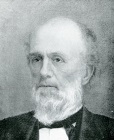
In 1874 Calais, Maine-born journalist (former Radical Repub.) James Shepherd Pike (1811-82) The Prostrate State: South Carolina Under Negro Government, which turns on Reconstruction, claiming to be an eye-witness, painting it as causing corruption, incompetence, bribery and other financial wrongdoing under the control of "a mass of black barbarism", calling for whites to be restored to political power, backing the Liberal Repub. U.S. pres. candidate Horace Greeley over Ulysses Grant, becoming a hit that helps hasten the end of Reconstruction and is used by historians until the 20th cent.; Pike supported the Union during the U.S. Civil War but didn't want black slaves freed but rather "the Gulf States... surrendered to the blacks" to ensure segregation and get them out of whites' hair.
In 1884 the U.S. Congress authorizes Enrolled Agents to prepare claims against the govt. for citizens whose property was confiscated during the U.S. Civil War; the EAs go on to become taxpayer reps. against the IRS in modern times.
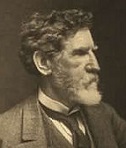
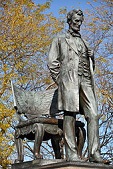
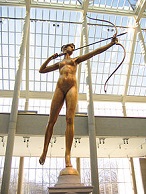
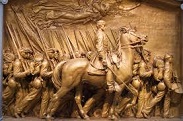

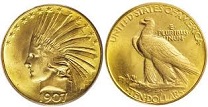
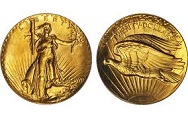
In 1887 Dublin, Ireland-born Am. sculptor Augustus Saint-Gaudens (1848-1907) sculpts a 12-ft. (3.7m) bronze statue of Abraham Lincoln: The Man (Standing Lincoln) for Lincoln Park in Chicago, Ill.; 10K attend the unveiling incl. Lincoln's grandson Abraham Lincoln II, with the New York Evening Post calling it "the most important achievement American sculpture has yet produced"; Stanford White designs a semicircular platform (exedra) for it. In 1892-3 he sculpts Diana (of the Tower), which ends up on top of the Madison Square Garden in 1893-1925, followed in 1932 by the Philadelphia Museum of Art. On May 31, 1897 he unveils the bronze relief Robert Gould Shaw Memorial (begun 1884) at 24 Beacon St. in Boston Common in Mass., depicting Union Col. Robert Gould Shaw (1837-63) leading the 54th Regiment Mass. Volunteer Infantry (first all-black regiment in New England) down Beacon St. on May 28, 1863 before being KIA in Morris Island, S.C. on July 18, 1863. In 1907 the U.S. Mint discontinues the Coronet design (begun 1838 for the eagle and 1949 for the double eagle) and begins issuing $10 Indian Head Eagle coins and $20 Standing Liberty Double Eagle coins (until 1933), all designed by Dublin, Ireland-born Am. sculptor Augustus Saint-Gaudens (1848-1907), who works from a studio in Cornish, N.H.; Pres. Roosevelt forbids the motto "In God We Trust", considering it in bad taste; Pres. Taft restores it in 1908.

In 1889 Pres. Lincoln's law partner William Henry Herndon (1818-91) and Jesse William Weik (1857-1930) pub. Lincoln: The True Story of a Great Life (3 vols.) (rev. ed. pub. in 1892), which pisses-off Lincoln worshippers with its exposure of his dirty laundry incl. his mother's illegitimacy, negative portrayal of Mary Todd Lincoln (Herndon's personal enemy), and his suicidal depression; Robert Todd Lincoln denounces it for claiming that Ann Rutledge was the only love of his daddy's life, and for the negative portrayal of his mother and her domestic life, causing meager royalties.
On July 18, 1896 the Daughters of the Confederacy is formed in Atlanta, Ga. with an initial membership of 100.
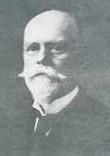
In 1897 Plainfield, N.J.-born Columbia U. historian-political scientist William Archibald Dunning (1857-1922) pub. his dissertation The Constitution of the United States in Civil War and Reconstruction, 1860-1867, followed by Essays on the Civil War and Reconstruction and Related Topics (1897) (2nd ed. 1904), which explains the legal basis for the destruction of slavery, which he opposes, becoming the first major academic studies of the Reconstruction era. In 1902 he begins pub. History of Political Theories, Ancient and Medieval (3 vols.) (1902-20), incl. "From Luther to Montesquieu" (1905), and "From Rousseau to Spencer" (1920). In 1907 he pub. Reconstruction, Political and Economic, 1865-1877, which disses Reconstruction and takes the side of white Southerners with "meticulous and thorough research", founding the Dunning School, which promotes the "Gone With the Wind" Tragic Legend that "condemned Reconstruction as a conspiracy by vindictive radical Republicans to subjugate southern whites at bayonet point, using federal troops to prop up corrupt state regimes led by an unholy trinity of carpetbaggers, scalawags, and freedmen" (Mark L. Bradley), dominating U.S. academia through the 1930s, after which Howard K. Beale, Eric Foner et al. search for cracks in their castle.
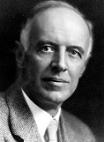
In 1902 La Grange, Ga.-born socioeconomic historian Ulrich Bonnell Phillips (1877-1934), the first major historian of the Am. South and Southern slavery pub. his dissertation Georgia and State Rights: A Study of the Political History of Georgia from the Revolution to the Civil War, with Particular Regard to Federal Relations (Justin Winsor Prize), followed by The Economic Cost of Slaveholding in the Cotton Belt (1905), The Origin and Growth of the Southern Black Belts (1906), A History of Transportation in the Eastern Cotton Belt to 1860 (1908), and Plantation and Frontier Documents, 1649–1863; Illustrative of Industrial History in the Colonial and Antebellum South: Collected from MSS. and Other Rare Sources (2 vols.) (1909), The Life of Robert Toombs (1913). In 1918 he pub. American Negro Slavery; a Survey of the Supply, Employment, and Control of Negro Labor, as Determined by the Plantation Regime, the first systematic analysis of Southern slavery, comparing it the West Indies, focusing on the large plantations and their masters and slaves, emphasizing the paternalistic treatment of slaves and how the masters helped civilize them (although they were not released after they graduated from the civilization school), and ignoring the variation in treatment from plantation to plantation incl. atrocities, portraying the relationship as characterized by "propriety, proportion, and cooperation", with blacks "by no means devoid of influence", concluding that the whole system was "shaped by mutual requirements, concessions, and understandings, producing reciprocal codes of conventional morality." He follows with Life and Labor in the Old South (1929), which details the history of large Southern plantations and showed how they reached their geographical limits about 1860, but although they produced great wealth they were an economic dead end, allowing the North to pass the South by in the Industrial Rev., and would probably have faded away like in Brazil without a civil war, which he considers a waste; too bad, the slave system gives whites social status and political power, which they wouldn't surrender, and slavery had a dual role as "an economic cancer but a vital mode of racial control". In 1928 he pub. The Central Theme of Southern History, which is the desire to keep the South "a white man's country", failing to mention that that was also the theme of the North? In 1939 he posth. pub. The Course of the South to Secession: An Interpretation (1939), followed by Seeing the New South: Race and Place in the Photographs of Ulrich Bonnell Phillips (ed. Patricia Bellis Bixel and John David Smith) (2013).

The final shrine to White is Right in America? On Feb. 12, 1922 (Lincoln's birthday) the $3M Lincoln Memorial in West Potomac Park in Washington, D.C. is dedicated, and poet Edwin Markham reads his poem Lincoln, the Man of the People, containing the soundbyte "Into the shape she breathed a flame to light/ That tender, tragic, ever-changing face./ Here was a man to hold against the world,/ A man to match the mountains and the sea"; chief justice William H. Taft dedicates it again on May 30; the bldg. is of marble, granite, and limestone (all white), and there are 36 Doric pillars representing the 36 states in the Union in 1865; the white marble statue of Lincoln is designed by Daniel Chester French, and behind it are the words "In this temple, as in the hearts of the people for whom he saved the Union, the memory of Abraham Lincoln is enshrined forever"; the S wall decorations depict the Emancipation of the Black Race, with subordinate groups representing Civilization and Progress; the N wall represents Reunion and Progress in the Arts and Sciences; other walls contain the Gettysburg Speech and Lincoln's Second Inaugural Address.

In 1926 Indianapolis, Ind.-born historian James Garfield Randall (1881-1953) pub. Constitutional Problems under Lincoln, which makes him a leading U.S. Civil War historian, and followed by The Civil War and Reconstruction (1937) (rev. 1961), which argues that the "needless war" "could have been avoided, supposing of course that something more of statesmanship, moderation, and understanding, and something less of professional patrioteering, slogan-making, face-saving, political clamoring, and propaganda, had existed on both sides"; too bad, "Reforming zeal, in those individual leaders in whom it became most vociferous and vocal,... often unrelieved by wisdom, toleration, tact, and the sense of human values... was a major cause of the conflict itself." He follows with Lincoln the President (4 vols.) (1945-55), aimed at scholars, and Lincoln the Liberal Statesman (1947).

In 1926 Edgefield, S.C.-born Longwood College historian Francis Butler Simkins (1897-1966) pub. The Tillman Movement in South Carolina, followed by The Ku Klux Klan During Reconstruction (1927). In 1931 after receiving his doctorate in 1929 from Columbia U., old home of William Archibald Dunning, he pub. South Carolina During Reconstruction (w/Robert Hilliard Woody) (1931) (Dunning Prize), the first revisionist work on Reconstruction, breaking with the Dunning School that paints Reconstruction as a raping of the South by the North; "We forgo the temptation of following in the footsteps of historians who have interpreted the period as only a glamorous but tragic melodrama of political intrigue"; "Does not hesitate to give a fair account of the Negroes and of some of their work" (W.E.B. Du Bois); "With refreshing freedom from prejudice and special pleading, the authors picture honest, unselfish carpetbaggers, respectable, well-meaning scalawags, and Negroes with intelligence and political ability." (Howard K. Beale) He follows with The Women of the Confederacy (w/James Welch Patton) (1936), the first balanced treatment, Ben Tillman's View of the Negro (1937), New Viewpoints of Southern Reconstruction (1939), which contains the soundbyte: "One of the accepted conventions of Reconstruction scholars is that the Carpetbaggers failed because their measures were excessively radical", arguing that they were not radical enough, incl. land confiscation and destruction of the white caste system; "A biased interpretation of Reconstruction caused one of the most important political developments in the recent history of the South, the disfranchisement of the black. The fraud and violence by which this objective was first obtained was justified in a single ground: the memory of the alleged horrors of Reconstruction." He follows with Pitchfork Ben Tillman: South Carolina (1944), The Everlasting South (1947), indicating that he's turned conservative, defending Segregation as a venerable tradition - better not mess up with Monday Night Football? He follows with The South Old and New: 1820-1947 (1948) (rev. in 1957 as "A History of the South", 4th ed. 1972), Tolerating the South's Past (1955), Virginia: History, Government, Geography (1957), and The Everlasting South (essays) (1963). By 1964 he is "almost the only practicing historian of the South who defends the major and historic Southern institution of segregation" (David Potter); "As a young man... [Simkins] seemed to be an emancipated critic of the old order. His study of Reconstruction in South Carolina... seemed to put him among the enlightened revisionists of that dark period. But more and more he came to stress the distinctive characteristics of 'the everlasting South' and to question the validity of much that passed for progress in the modern South" (obituary in Journal of Am. History, 1966); in 2015 after Harper Lee releases her novel "Go Set a Watchman", which reveals that Atticus Finch was a white supremacist who just happened to believe in legal justice for innocent blacks, David B. Parker calls him "The Historian Who Evolved the Same Way as Atticus Finch". After his death the Southern Historical Assoc. establishes the triennial Francis B. Simkins Award for the best first book about the South.
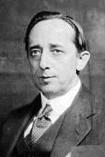
In 1929 Westfield, Ind.-born Dunning School historian and Dem. politician Claude Gernade Bowers (1878-1958) pub. the bestseller The Tragic Era: The Revolution After Lincoln, which claims that the Repub. Party corrupted the North to foist evil Reconstruction on the South; "If Hilaire Belloc is right in his opinion that 'readable history is melodrama', the true story of the twelve tragic years that followed the death of Lincoln should be entertaining. They were years of revolutionary turmoil, with the elemental passions predominant, and with broken bones and bloody noses among the fighting factionalists... The Constitution was treated as a doormat on which politicians and army officers wiped their feet after wading in the muck. Never has the Supreme Court been treated with such ineffable contempt, and never has that tribunal so often cringed before the clamor of the mob"; "That the Southern people literally were put to the torture is vaguely understood, but even historians have shrunk from the unhappy task of showing us the torture chambers"; attempts to restore the rep of U.S. Pres. Andrew Johnson, "who fought the bravest battle for constitutional liberty and for the preservation of our institutions ever waged by an Executive"; "The story of this Revolution is one of desperate enterprises, by daring and unscrupulous men, some of whom had genius of a high order. In these no Americans can take pride. The evil that they did lives after them. They changed the course of history, and whether for ultimate good or bad is still on the lap of the gods. The story carries lessons that are well worth pondering."
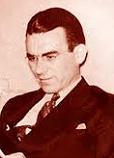
In 1929 after devoting his career to the study of the common soldier, Halls, Tenn.-born historian Bell Irvin Wiley (1906-80) pub. his first book Cotton and Slavery in the History of West Tennessee, followed by Southern Negroes, 1861-1865, which explodes myths about slaves incl. that they remained loyal to their masters after emancipation, and that they were as well treated as white soldiers in the Union Army. He follows with The Life of Johnny Reb: The Common Soldier of the Confederacy (1943), a big hit, exposing the "deep-seated [hatred that] had been accumulating from the time of [the soldiers'] earliest recollections" based on their perception of the North as a "godless and grasping society", while at the same time the white soldiers on both sides shared fraternal feelings: "Men would shoot and kill when the time came. Yet there was a familiarity and an understanding, at times something that verged almost on liking"; "The war of the sixties has been called the 'polite war', and in a sense, the designation is apt. Men of the opposing armies when not actually engaged in a shooting fray were wont to observe niceties that in twentieth-century warfare would be regarded as absurd." He follows with The Plain People of the Confederacy (1943), The Life of Billy Yank: The Common Soldier of the Union (1952), The Road to Appomattox (1956), The Role of the Archivist in the Civil War Centennial (1961), Embattled Confederates: An Illustrated History of Southerners at War (1964), Confederate Women: Beyond the Petticoat (1975), and Slaves No More: Letters from Liberia, 1833-1869.

In 1931 Garnett, Kan.-born poet-dramatist-biographer Edgar Lee Masters (1868-1950) (Clarence Darrow's last law partner in 1903-8) pub. Lincoln the Man, which demythologizes Abraham Lincoln as a tool of bankers wanting a new Bank of the U.S., "that political system which doles favors to the strong in order to win and keep their adherence to the government", and advocates "a people taxed to make profits for enterprises that cannot stand alone", who trampled the Constitution to declare war and run it like a dictator, setting a dangerous precedent; the Whig Party led by Lincoln's mentor Henry Clay "had no platform to announce because its principles were plunder and nothing else"; "The political history of America has been written for the most part by those who were unfriendly to the theory of a confederated republic, or who did not understand it. It has been written by devotees of the protective principle [tariff], by centralists, and to a large degree by New England"; "For in six weeks he was to inaugurate a war without the American people having anything to say about it. He was to call for and send troops into the South, and thus stir that psychology of hate and fear from which a people cannot extricate themselves, though knowing and saying that the war was started by usurpation. Did he mean that he would bow to the American people when the law was laid down by their courts, through which alone the law be interpreted as the Constitutional voice of the people? No, he did not mean that; because when Taney decided that Lincoln had no power to suspend the writ of habeas corpus, Lincoln flouted and trampled the decision of the court"; "The War between the States demonstrated that salvation is not of the Jews, but of the Greeks. The World War added to this proof; for Wilson did many things that Lincoln did, and with Lincoln as authority for doing them. Perhaps it will happen again that a few men, deciding what is a cause of war, and what is necessary to its successful prosecution, may, as Lincoln and Wilson did, seal the lips of discussion and shackle the press; but no less the ideal of a just state, which has founded itself in reason and in free speech, will remain."
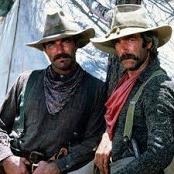
In 1933 Augusta, Ga.-born Duke U. historian of the Am. South Charles Sackett Sydnor (1898-1954) pub. his first book Slavery in Mississippi, which avoids the temptation for propaganda for a balanced perspective, causing African-Am. historian Carter G. Woodson to comment that he "apparently endeavored to write with restraint and care." He follows with A Gentleman of the Old Natchez Region: Benjamin L.C. Wailes (1938), and The Development of Southern Sectionalism, 1818-1848 (1948) (Mayflower Cup); "The best study of the anti-bellum South in print" (Am. Literature); "[a] pervading quality of thoughtful and dispassionate judgment" (Arthur M. Schlesinger Jr.); explores the contention of Ulrich Bonnell Phillips that Southern slavery was benign for slaves and unprofitable for masters, backing his conclusions with detailed research; claims that Southern sectionalism was "essentially dictated by self-interest", while the "wall of constitutional arguments" by John C. Calhoun et al. merely furnished "the righteous garb of legality and high principle", and all attempts at social reforms were met with "intellectual provincialism". He follows with Gentlemen Freeholders: Political Practices in Washington's Virginia (1952), about how the contending forces of aristocracy and democracy coexisted in gen. harmony, with the members of the House of Burgesses chosen so that they were "more or less acceptable both to the leaders and to the rank and le of the voters" after being screened "first by the gentry and then by the freeholders". In 1955 after his death the Southern Historical Assoc. establishes the biennial Charles S. Sydnor Award of $500 for the best book on the history of the Am. South.

On July 3, 1938 Pres. Roosevelt marks the 75th anniv. of the Battle of Gettysburg by dedicating the Eternal Light Peace Memorial in Gettysburg Battlefield, Penn. before an audience of 250K, using a new mobile sound system unit to address the audience.





On Dec. 13-15, 1939 (Wed.-Fri.) the Hollywood blockbuster film Gone With the Wind has its world premiere in Atlanta, Ga., with Dec. 15 proclaimed a state holiday by Dem. Ga. gov. #56 (1937-41) Eurith Dickinson "Ed" Rivers (1895-1967), with 1M coming to see the Dec. 15 premiere at Lowe's Grand Theatre after 300K line the streets for 7 mi. to watch the procession of stars from the airport; Leslie Howard and Victor Fleming don't attend; Hattie McDaniel and the other black actors refuse to attend to protest Jim Crow laws; on Dec. 15, 1939 Victor Fleming's epic tear-jerking 231-min. Gone With the Wind debuts, based on the Margaret Mitchell novel is acclaimed as the greatest movie of all time; writer Sidney Coe Howard is assisted by novelist F. Scott Fitzgerald and producer David O. Selznick; the MGM back lot sets of "King Kong" and "The Garden of Allah" are burned down to simulate the burning of Atlanta; English actress Vivien Leigh (1913-67) plays sassy Southern belle Scarlett O'Hara ("Fiddle-dee-dee! War, war, war! This war talk's spoiling all the fun at every party this spring. I get so bored I could scream. Besides, there isn't going to be any war. If either of you boys say war just once again, I'll go in the house and slam the door," Clark Gable (1901-60) plays the devilish ho-loving courtier Rhett Butler, Leslie Howard (1893-1943) plays Scarlett's unrequited love Ashley Wilkes, who marries his house-garden-and kitchen cousin Melanie (Gr. "black"), played by Olivia de Havilland (1916-), while the South goes to war and ends up you know what; even the black actors shine, despite their demeaning roles, with Hattie McDaniel (1895-1952) playing Scarlett's loving motherly Mamie ("Miss Scarlett, you forgot your shawl"), and Thelma "Butterfly" McQueen (1911-95) playing the superstitious ignorant Sissy ("I don't know nothing about birthin' babies"); David O. Selznick is fined $5K for obscenity when Gable changes "Frankly my dear, I don't care" to "Frankly my dear, I don't give a damn"; Thomas Mitchell (1892-1962) plays Scarlett's Irish dad, who goes bonkers on his plantation Tara after it becomes you know what; future Superman George Reeves (1914-59) gets a part as a courtin' fool; 5-y.-o. Eleanore Cammack "Cammie" King Conlon (1934-2010) plays the daughter Bonnie Blue Butler, and retires after playing the voice of the young deer Faline in "Bambi" (1942); the novel causes the name Melanie to catch on, but not Scarlett?; Greta Garbo later brags about seducing Hattie McDaniel?
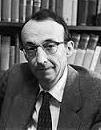
In 1941 Vinegar Hill Township, Ill-born. La. State U. historian (1941-79) T. (Thomas) Harry Williams (1909-79) pub. his first book Lincoln and the Radicals. He follows with Lincoln and His Generals (1952), which claims that Pres. Lincoln was the Union's greatest general, and that Gen. Grant was a greater general than Robert E. Lee "because in a modern war he had a modern mind, and Lee did not", gaining him the Boyd Chair in History at La. State U. in 1953. He follows with P.G.T. Beauregard, Napoleon in Gray (1955), Americans at War: The Development of the American Military System (1960), Romance and Realism in Southern Politics (1961), McClellan, Sherman, and Grant (1962), and Huey Long (1969) (Pulitzer Prize), which makes good use of oral histories. In 1981 he posth. pub. The History of American Wars: From Colonial Times to World War I.
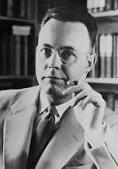

In 1942 Colorado City, Colo.-born historian Richard Norman Current (1912-2012) pub. his first book Old Thad Stevens: A Story of Ambition, followed by Pine Logs and Politics: A Life of Philetus Sawyer, 1816-1900 (1950), The Typewriter and the Men Who Made It (1954), Secretary Stimson: A Study in Statecraft (1954), and Daniel Webster and the Rise of National Conservatism (1955). In 1955 after being asked to finish the 4-vol. bio. of Lincoln begun by James G. Randall (1881-1953), he pub. Lincoln the President: Midstream to the Last Full Measure (Bancroft Prize), which makes him a recognized authority on Abraham Lincoln, after which he pub. seven more books on him, becoming known as "Dean of Lincoln Scholars". In 1958 he pub. The Lincoln Nobody Knows, which claims that Lincoln started out thinking like racist backwoods hicks from Ky. and Ind. then evolved; "He grew in sympathy, in the breadth of his humaneness, as he grew in other aspects of the mind and spirit. In more ways than one he succeeded in breaking through the narrow bounds of his early environment", excusing any shortcoming in his analysis with the soundbyte: "The awful fact of the assassination falls between us and the man. It is like a garish, bloodstained glass, in which all perspectives are distorted." In 1963 he pub. Lincoln and the First Shot, which tries to dispel the myths about Lincoln, incl. the theory that some Cabinet members were in on the assassination; claims that Lincoln was more savvy in law, economics, military tactics than heretofore believed. In 1984 West Point, N.Y.-born gay writer Eugene Louis "Gore" Vidal (1925-2012) pub. the novel Lincoln: A Novel (his masterpiece?), which pisses-off "Dean of Lincoln Scholars" Richard N. Current (1912-2012), who starts a pissing-war with him in The New York Review of Books, with the soundbyte "Vidal simply doesn't know what he's talking about", to which Vidal replies that Current is a "professional saint-maker" and "scholar-squrrel" who "mindlessly gathers little facts"; filmed in 1988 starring Sam Waterston and Mary Tyler Moore.
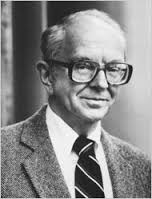

In 1948 Goodman, Miss.-born historian David Herbert Donald (1920-2009), student of James G. Randall pub. his first book Lincoln's Herndon, based on his dissertation about Lincoln's friend and law partner William Henry Herndon (1818-91), who he left behind when he went to the White House, and who had a long fight to pub. his bio. of Lincoln Lincoln: The True Story of a Great Life (3 vols.) (1889) (w/Jesse W. Weik), which received low royalties because of its exposure of Lincoln's dirty laundry. "When is someone going to do the life of Bill Herndon. Isn't it about time? Now the question is out." - Carl Sandburg He follows with Divided We Fought: A Pictorial History of the War, 1861-1865 (1952), Inside Lincoln's Cabinet: The Civil War Diaries of Salmon P. Chase (1954), Lincoln Reconsidered: Essays on the Civil War Era (1956) (3rd ed. 2001), which presents Lincoln as "an astute and dexterous operator of the political machine" (Eric Foner), Charles Sumner and the Coming of the Civil War (1960) (bio. to 1860) (Pulitzer Prize), portraying "Sumner as a man with acute psychological inadequacies", exposing his "facade of pompous rectitude"; "If it does not make Sumner attractive [the book] certainly makes him understandable." (David M. Potter) He follows with The Civil War and Reconstruction (w/James G. Randall) (1961) (rev. ed. in 2001), , Why the North Won the Civil War (1962) (essays) (w/Henry Steele Commager et al.) (rev. ed. in 1996), Diary of Charles Frances Adams: January 1820 - September 1829 (w/wife Aida Dipace Donald) (2 vols.) (1964), politician-diplomat Charles Francis Adams Sr. (1807-86), son of Pres. John Quincy Adams and grandson of Pres. John Adams kept a diary in 1820-80; Harvard U. Press. goes on to pub. more vols. with different editors; The Politics of Reconstruction, 1863-1867 (1965), which uses statistical methods to analyze the voting records of Repub. congressmen, arguing that their positions on controversial issues depended on the safety of their seats more than their personal views, and Charles Sumner and the Rights of Man (1970) (bio. after 1860), which displays the flop in his attitude from anti to pro Sumner after his personal experiences seeing the civil rights movement in action, "The two volumes really could be about two different people, and this reflects his receptivity to changes in historical perception that grew out of the civil rights movement." (Eric Foner) In 1973 he becomes Charles Warren Prof. of Am. History at Harvard U. until his retirement in 1991. In 1987 he pub. Look Homeward: A Life of Thomas Wolfe (Pulitzer Prize), how "Thomas Wolfe [1900-38] had told my life story”, while at the same time he "wrote more bad prose than any other writer I can think of", but was an idiosyncratic genius with a mission to become "the bard of America"; "Thomas Wolfe was not only big in size, he was also big in his appetites. He could eat massive amounts of food, drink until he dropped, engage in sexual orgies, write interminably and exercise the use of massive amounts of vocabulary. He was a man of conflicted ideas: he loved his native South, but lived in the North; he was stingy, yet giving; he hated criticism, but begged for it; he was completely disorganized but welcomed others to organize him; he was anti-Semitic, yet the love of his life was a Jewish woman. Still, as confused as his life was, he was able to write several insightful and successful novels, short stories and articles." He follows with Lincoln (1995), an attempt "to tell the story of Lincoln’s life as he saw it, making use only of the information and ideas that were available to him at the time", demythicizing him by presenting events and decisions from the inside out, with historian Eric Foner uttering the soundbyte: "It is the most balanced of the biographies out there. It is not a work of hero worship, nor does it have a prosecutorial brief. He presents Lincoln as a rather passive figure, not at all in charge of the forces raging around him, which is quite accurate." He follows with Lincoln at Home: Two Glimpses of Abraham Lincoln's Domestic Life (1999), and We Are Lincoln Men: Abraham Lincoln and His Friends (2003), about how his frontier upbringing made it hard to make and keep close friends. He dies leaving unfinished a bio. of Pres. John Quincy Adams.
In 1949 the Grand Army of the Repub. (founded 1866) disbands.
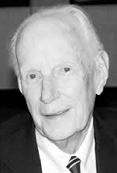
In 1950 Milwaukee, Wisc.-born UCB historian Kenneth Milton Stampp (1912-2009) pub. his first book And the War Came: The North and the Secession Crisis, 1860-1861. In 1956 he pub. The Peculiar Institution: Slavery in the Ante-Bellum South, which refutes the claim by Ulrich Bonnell Phillips (1877-1934) et al. that many Southern slave owners were kind to their slaves, claiming that they did it for selfish reasons incl. preventing rebellion or legal action for mistreatment, and that it didn't convince them that they liked it, leading to defiance active and passive, making them "a troublesome property", causing Martin Luther King Jr. to praise it for its "fascinating" description of "the psychological indoctrination that was necessary from the master's viewpoint to make a good slave"; "Prior to the Civil War southern slavery was America's most profound and vexatious social problem. More than any other problem, slavery nagged at the public conscience; offering no easy solution"; "With the historian it is an article of faith that knowledge of the past is a key to understanding the present"; "One must know what slavery meant to the Negro and how he reacted to it before one can comprehend his more recent tribulations." In 1959 he pub. The Causes of the Civil War, followed by Andrew Johnson and the Failure of the Agrarian Dream (1962), The Era of Reconstruction, 1865-1877 (1965), refuting the Tragic Legend of historian William Archibald Dunning (1857-1922) that portrays the South as "prostrate in defeat, before a ruthless, vindictive conqueror, who plundered its land... and turned its society upside down", leaving Southern govt. to "ignorant, half-civilized former slaves", claiming that it was actually a success, "the last great crusade of nineteenth-century romantic reformers"; too bad, he relies on secondary sources, drawing criticism for ignoring primary sources. In 1969 he pub. The Southern Road to Appomattox, followed by Reconstruction: An Anthology of Revisionist Writings (1969), The Imperiled Union: Essays on the Background of the Civil War (1980), America in 1857: A Nation on the Brink (1990), and The United States and National Self-Determination: Two Traditions (1991). In 1993 he is awarded the Lincoln Prize by Gettysburg College.
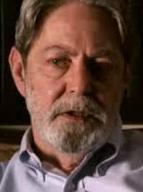
In 1958-74 Greenville, Miss.-born novelist-turned-historian Shelby Dade Foote Jr. (1916-2005) pub. The Civil War: A Narrative (3 vols.), which becomes a std. work; incl. "Fort Sumter to Perryville" (1958), "Fredericksburg to Meridian" (1963), "Red River to Appomattox" (1974); the Ken Burns PBS-TV documentary The Civil War (Sept. 23-27, 1990), narrated by David McCullough, based on the photographs of Mathew Brady and his work makes him famous after it becomes the most-watched program in the network's history. "This country has two grievous sins on its hands. One of them is slavery - whether we’ll ever be cured of it, I don’t know. The other one is emancipation - they told 4 million people, you’re free, hit the road, and they drifted back into a form of peonage that in some ways is worse than slavery."
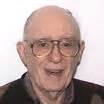
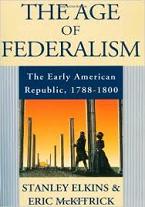
In 1959 Boston, Mass.-born U. of Chicago (later Smith College) Jewish-Am. historian Stanley M. Elkins (1925-2013) pub. his Columbia U. dissertation Slavery: A Problem in American Institutional and Intellectual Life, which uses recent research by Bruno Bettelheim on Nazi concentration camp inmates to compare them to Southern slaves, who, he claims suffered from a "Sambo" complex that kept them unable to effectively resist, claiming it might persist to the present, which is later used by Daniel Patrick Moynihan as a justification for affirmative action programs; too bad, ultimately the African-Am. and Jewish communities consider the comparison offensive. In 1993 he and Battle Creek, Mich.-born Columbia U. historian Eric Louis McKitrick (1919-2002) pub. The Age of Federalism: The Early Republic, 1788-1800 (Bancroft Prize), which becomes a hit. In 1960 McKitrick pub. Andrew Johnson and Reconstruction, which reverses the picture of a brave hero fighting the Carpetbaggers and portrays him as a small-minded stubborn vindictive man who held back racial progress, followed by Slavery Defended: The Views of the Old South (1963), and Andrew Johnson: A Profile (1969).
On Dec. 19, 1959 Walter Williams (b. 1842) the last U.S. Civil War veteran dies at age 117 in Houston, Tex.; it is later revealed that his real date of birth was Nov. 14, 1854 - did he get free checking?

In 1963 poet-novelist Robert Penn Warren (1905-89) pub. The Legacy of the Civil War, containing the soundbyte that the Civil War "holds in suspension the great unresolved issues of our society - justice, tolerance, true brotherhood, understanding, and charity"; "The asking and the answering which history provides may help us to understand, even to frame, the logic of experience to which we shall submit. History cannot give us a program for the future, but it can give us a fuller understanding of ourselves, and of our common humanity, so that we can better face the future."
In 1964 John Hopkins U. historian Willie Lee Nichols Rose (1927-) (student of C. Vann Woodward) pub. Rehearsal for Reconstruction: The Port Royal Experiment (Parkman Prize), followed by A Documentary History of Slavery in North America (1976), What Was Freedom's Price? (Essays) (1978) (w/C. Vann Woodward et al.), Race and Region in American Historical Fiction: Four Episodes in Popular Culture (1979), and Slavery and Freedom (w/William W. Freehling) (1982),
In 1966 the Gettysburg Nat. Military Park in Gettysburg, Penn. is established by commemorate the 1863 Battle of Gettysburg and Nov. 19, 1963 Gettysburg Address.

On Mar. 3, 1972 sculptured figures of Confed. heroes Jefferson Davis, Robert E. Lee, and Stonewall Jackson are completed on Stone Mountain, Ga. for the Daughters of the Confederacy (founded 1895); on Aug. 5, 1975 Pres. Ford obliges with a posth. pardon of Robert E. Lee.



In 1974 Am. cliometric economist Stanley Lewis Engerman (1936-) and New York City-born cliometric economist Robert William Fogel (1926-2013) pub. Time on the Cross: The Economics of American Negro Slavery (2 vols.), which rehabilitates South plantation slavery as more productive per unit of labor than Northern farms, and beneficial for blacks, and argues that it would have continued long after the 1860s if not for the U.S. Civil War, causing a firestorm of controversy; "Slave owners expropriated far less than generally presumed, and over the course of a lifetime a slave field hand received approximately ninety percent of the income produced"; "The cliometricians announced the scientific discovery of a vastly different South led by confident and effective slaveowning entrepreneurs firmly wedded to handsome profits from a booming economy with high per capita incomes and an efficiency ratio 35 percent - greater than that of free Northern agriculture. In the new dispensation the efficient, often highly skilled, and very productive slaves embraced the Protestant work ethic and prudish Victorian morals, avoided both promiscuity and substantial sexual exploitation by planters, lived in father-headed and stable nuclear families, kept 90 percent of the fruits of their labor, and enjoyed one of the best sets of material conditions in the world for working class people." (Charles Crowe) In 1975 New York City-born historian Herbert G. Gutman (1928-85) pub. Slavery and the Numbers Game: A Critique of Time on the Cross, a refutation of some arguments in Fogel and Engerman's 1974 book, incl. their assumption that slaves adopted a white Euro Protestant work ethic instead of being whipped into submission. In 1993 Fogel shares the Nobel Econ. Prize with Douglass North.

In 1974 Jersey City, N.J.-born novelist Michael Shaara (1928-88) pub. the historical novel The Killer Angels: A Novel of the Civil War (Pulitzer Prize), about the June 30-July 3, 1863 Battle of Gettysburg; great read, too bad he's no Dan Brown and doesn't spice it up with unlikely scenarios and love scenes to make it sell?; filmed in 1993 as "Gettysburg".
On July 22, 1975 the House of Reps. joins the Senate in voting to restore the U.S. citizenship of Confederate Gen. Robert E. Lee in recognition of his efforts to urge reconciliation, effective retroactively to June 13, 1865.


On Dec. 14, 1989 Edward Zwick's Glory (TriStar Pictures) debuts, based on the book by Lincoln Kirstein and letters by U.S. Civil War Union Col. Robert Gould Shaw, cmdr. of the first all-black Union army co., starring Matthew Brockerick as Shaw, Denzel Washington as Pvt. Trip, and Morgan Freeman as Sgt. Maj. John Rawlins; launches the dir. career of Edward Zwick (1952-), who becomes known for action flicks with a cerebral dimension; does $27M box office on an $18M budget.

On Oct. 8, 1993 Ronald F. Maxwell's Gettysburg debuts, based on the 1974 Michael Shaara novel "The Killer Angels", a 254-min. reenactment filmed on the Gettysburg Nat. Military Park battlefield (first ever), becoming the largest period scale film filmed in North Am. since D.W. Griffith's 1915 "Birth of a Nation"; the all-male cast incl. Ted Turner (the moneybags behind it all), Jeff Daniels, Martin Sheen, Tom Berenger, Sam Elliott, Richard Jordan (last film role), Kevin Conway, C. Thomas Howell, even Ken Burns.

In 1999 Columbia, Mo.-born NYU historian Walter Johnson Jr. (1966-) pub. his first book Soul by Soul: Life Inside the Antebellum Slave Market (Frederick Jackson Turner Prize), establishing his rep, followed by The Chattel Principle: Internal Slave Trades in the Americas (2004), State of the Field: Slavery (2004), and River of Dark Dreams: Slavery and Empire in the Cotton Kingdom (2013).
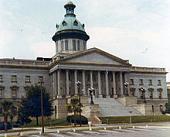
Your choices just got a whole lot younger? On May 18, 2000 after a controversy during the 2000 pres. primary, the S.C. Legislature passes the South Carolina Heritage Act of 2000, ordering the Confederate Stars and Bars battle flag removed from its Sandlapper capitol dome after 138 years (1862), and after the Johnny Rebs get over their shock it is removed on July 1, becoming the last Confed. state to do it; never fear, a smaller square version is put next to the Confederate Soldiers' Memorial on the N side of the Capitol in front of the main entry, but after yet more NAACP protests it is removed also, er, it is left flying while an African-American History Monument is unveiled on Mar. 26, 2001; meanwhile on Aug. 8 fortune intervenes, as the Confederate submarine H.L. Hunley, which in 1864 became the first sub to sink an enemy vessel is raised from the ocean off sandlapping Charleston, S.C. after 136 years - 9 years till Pres. Barack Obama?
On Apr. 19, 2005 the $115M Abraham Lincoln Museum complex opens in Springfield, Ill., with 47K Lincoln-related items, becoming the largest collection of Lincoln artifacts on Earth.
On July 29, 2008 the U.S. Congress issues a milestone apology for the wrongs committed against blacks in the past incl. slavery and Jim Crow segregation laws - only 232 years late? Oh yes, there might be one of them black guys in the er, White House soon?

On Oct. 8, 2012 Steven Spielberg's Lincoln debuts, written by Tony Kushner based on "Team of Rivals: The Political Genius of Abraham Lincoln" by Doris Kearns Goodwin about the last 4 mo. of his life as he twists arms and offers political patronage jobs to get the 13th Amendment passed, starring Daniel Day-Lewis as Abraham Lincoln, Sally Field as Mary Todd Lincoln, David Strathairn as William Seward, Bruce McGill as Edwin Stanton, Hal Holbrook as Francis Preston Blair, and Tommy Lee Jones as Radical Repub. leader Thaddeus Stevens, who swallows his pride to argue for equality before the law instead of racial equality while enduring taunts by N.Y. Tammany Hall Rep. Fernando Wood (played by Lee Pace), then gets into bed with his African housekeeper Lydia Hamilton Smith (played by S. Epatha Merkerson), and utters the soundbyte that the amendment was "passed by corruption, aided and abetted by the purest man in America"; the film is full of moose hockey, but Spielberg admits that "this resurrection is a fantasy... a dream... one of the jobs of art is to go to the impossible places that history must avoid"; it's really just the Day-Lewis show, as he channels Lincoln admirably incl. the high-pitched voice; does $250M+ box office worldwide.
After all the oceans of blood, it takes just 9 more deaths to cause Confederate flags to fall all over the South?
On June 17, 2015 (eve.) after attending a Bible class there for 1 hour to case them, white supremacist Dylann Storm Roof (1994-) shoots up the all-black Emanuel African Methodist Episcopal Church in Charleston, S.C., killing nine incl. pastor and state sen. Clementa C. Pinckney while shouting "You rape our women and you're taking over our country"; on June 18 he is arrested at a traffic stop in Shelby, N.C., before which new U.S. atty. gen. Loretta Lynch announces a federal hate crimes investigation, and after which Pres. Obama calls for gun control, with the soundbytes: "Communities like this have had to endure tragedies like this too many times", and "Let's be clear. At some point, we as a country will have to reckon with the fact that this type of mass violence does not happen in other advanced countries." On June 24 after a nationwide protest sparked by the Emanuel African Methodist Episcopal Church massacre, which incl. S.C. Gov. Nikki Haley on June 22 calling for it to be taken down from a monument at the S.C. State Capitol and relegated to a museum, amd Walmart, Sears, and Amazon discontinuing sales of Confed. flags, and Apple banning any app displaying it, even historical games, Robert Bentley of Ala. becomes the first Southern gov. to order the removal of Confederate banners from the state capitol; the Confed. flag still flies high outside the S.C. statehouse near an open casket ceremony for slain state sen. Rev. Clementa Pinckney; on June 26 Pres. Obama delivers a eulogy, calling him a "man of God who lived by faith", lobbying for gun control, singing "Amazing Grace" and uttering the soundbyte about the Confederate flag: "By taking down that flag we express God's grace"; on June 27 African-Am. protester Brittany "Bree" Newsome climbs the 30-ft. flagpole in front of the S.C. State Capitol and removes the Confed. flag herself before surrendering the police on charges of defacing public property; on June 30 S.C. Repub. Sen. Lindsey Graham calls for the flag's removal on NBC-TV's "Meet the Press", calling it a "roadblock to the future of my state". On Dec. 17 the city council of New Orleans, La. votes to remove four Confed. monuments, incl. statues of Gen. Robert E. Lee, Gen. P.G.T. Beauregard, and pres. Jefferson Davis, with mayor Mitch Landrieu uttering the soundbyte: "The Confederacy, you see, was on the wrong side of history and humanity."
On May 11, 2017 (early a.m.) authorities remove a statue of Confed. Pres. Jefferson Davis in New Orleans, La. in front of pissed-off crowds, becoming the 2nd of four Confed. monuments on the slate after a 2015 city council vote and a court battle. On Aug. 12 after marching on the U. of Va. campus the night before, the white nationalist Unite the Right rally in Charlottesville, Va. to protest the removal of a statue of Confed. Gen. Robert E. Lee ends in violent clashes with counter-protesters, after which a car driven by white supremacist James Alex Fields Jr. rams the crowd, killing 32-y.-o. Heather Heyer and injuring 19; on Aug. 15 black protesters pull down a statue of a Confed. soldier in Durham, N.C.; on Aug. 15/16 (night) Baltimore, Md. mayor Catherine Pugh orders four Confed. monuments taken down. On Aug. 14 after the fake news media blasts him for not explicitly calling out white supremacists in his criticism of the Charlottesville protest, as if he supports them, Pres. Trump meets in the White House with atty. gen. Jeff Sessions and FBI dir. Chris Wray, then delivers a gives a Speech on Racism, with the soundbyte: "Racism is evil, and those who cause violence in its name are criminals and thugs, including the KKK, Neo-Nazis, White Supremacists, and other hate groups that are repugnant to everything we hold dear as Americans", confirming that the FBI and Dept. of Justice are investigating the car attack; too bad, on Aug. 15 Trump doubles down with observations that "both sides" were to blame for violence in Charlottesville, mentioning "the alt-left that came charging at them", that "Not all of those people were neo-Nazis... [or] white supremacists... Those people were also there because they wanted to protest the taking down of a statue", claiming that many "fine people" were among the protesters, and that the movement to strip the U.S. of its 850+ Confed. monuments is an effort to "change history" and "change culture", mentioning George Washington and Thomas Jefferson, which only makes the PC police madder; on Aug. 16 after some CEOs quit to protest his remarks, Trump disbands two high-profile business advisory councils; on Aug. 18 House Dem. Leader Nancy Pelosi endorses a measure to censure Trump, joining 79 Dem. colleagues, and calls on House Speaker Paul Ryan to remove all Confed. statues from the U.S. Capitol; meanwhile on Aug. 7 U.S. Rep. (D-Tenn.) Steve Cohen introduces articles of impeachment against Trump after his no confidence resolution in July went nowhere.